For Admissions : +91-9110661252
For Admissions : +91-9110661252
| 1 | Sri. Navin Nichani | Hon. Secretary, Sindhi College |
| 2 | Dr. K R Jalaja | Chairman & Dean, Department of Commerce & Management, Bengaluru City University |
| 3 | Sri.Kiran Chawla | Industrial Expert, Director- Suraj Metal Industries Pvt Ltd. |
| 4 | Dr. Asha.N | Chairperson & Principal |
| 5 | Smt. Hemalatha R | IQAC Coordinator |
| 6 | Dr. Rajdeep Manwani | Head, Research Centre |
| 7 | Smt. Radhika E K | Academic Co-ordinator & HOD, Computer Science |
| 8 | Dr. Roopa R Anagod | Administrative Co-ordinator & HOD, Mathematics |
| 9 | Smt.Jayashree Tambad | HOD, Commerce |
| 10 | Smt.Shashikala U | HOD, Management |
| 11 | Sri.Vaidyesh M A | NSS Officer |
| 12 | Dr.Rahul Kavishwar | HOD, M.Com |
| 13 | Dr.Kariyanna S | HOD, Kannada |
| 14 | Sri.Subramanya Bhat | HOD ,Sanskrit |
| 15 | Dr. Ranjana Pillai | HOD, Hindi |
| 16 | Dr.Padmavathy | HOD ,English |
| 17 | Mr. Kumar E | Asst.HOD, Commerce |
| 18 | Smt. Priya Hari | Asst. HOD, Computer Science |
| 19 | Smt. Nandini S | Asst.HOD, Management |
| 20 | Lt. Shankara B P | Physical Education Director & NCC Officer |
| 21 | Mr. Sandesh Zephaniah | HOD, Psychology |
| 22 | Mr. Koushik R | HOD, Journalism |
| 23 | Smt.Jayanthi | Office Superintendent |
| 24 | Smt.Kavitha | Sr.Accountant |
| 25 | Sri.Devaraju | Chief Librarian |
| 26 | Mr. Thimmaiah N K | Placement Officer |
| 27 | Mr.Susheel | Alumni Representative |
| 28 | Mr.Vivek Singh | Alumni Representative |
| 29 | Mr. Gaurav S Jain | Student Representative |
| 30 | Ms. Sarika | Student Representative |
| 31 | Ms. Manisha Suthar | Student Representative |
| 32 | Mr. Joshek Nagarchi | Student Representative |
| 1 | Sri. Navin Nichani | Hon. Secretary, Sindhi College |
| 2 | Dr. Muninarayanappa | Academician, Bengaluru City University |
| 3 | Sri.Kiran Chawla | Industrial Expert, Director- Suraj Metal Industries Pvt Ltd. |
| 4 | Prof.Asha.N | Chairperson & Principal |
| 5 | Smt. Hemalatha R | IQAC Coordinator |
| 6 | Dr. Rajdeep Manwani | Head, Research Centre |
| 7 | Smt.Jayashree Tambad | HOD, Commerce |
| 8 | Smt.Radhika E K | HOD , Computer Science |
| 9 | Smt.Shashikala U | HOD, Management |
| 10 | Sri.Vaidyesh M A | NSS Officer |
| 11 | Dr. Roopa Anagod | HOD, Mathematics |
| 12 | Dr.Rahul Kavishwar | HOD, M.Com |
| 13 | Dr.Kariyanna S | HOD, Kannada |
| 14 | Sri.Subramanya Bhat | HOD ,Sanskrit |
| 15 | Dr. Ranjana Pillai | HOD, Hindi |
| 16 | Dr.Padmavathy | HOD ,English |
| 17 | Mr. Kumar E | Asst.HOD, Commerce |
| 18 | Smt. Priya Hari | Asst. HOD, Computer Science |
| 19 | Smt. Nandini S | Asst.HOD, Management |
| 20 | Lt. Shankara B P | Physical Education Director |
| 21 | Mr. Sandesh Zephaniah | HOD, Psychology |
| 22 | Mr. Koushik R | HOD, Journalism |
| 23 | Smt.Jayanthi | Office Superintendent |
| 24 | Smt.Kavitha | Sr.Accountant |
| 25 | Sri.Devaraju | Chief Librarian |
| 26 | Mr.Thimmaiah | Placement Officer |
| 27 | Mr.Susheel | Alumni Representative |
| 28 | Mr.Vivek Singh | Alumni Representative |
| 29 | Ms. Riddhi Pamnani | Student Representative |
| 30 | Mr. Sanjay T | Student Representative |
| 31 | Ms. Shalini S | Student Representative |
| 32 | Mr. Sathish A | Student Representative |
| 1 | Sri. Prakash R Narang | Chairman, Sindhi College |
| 2 | Dr. Muninarayanappa | Academician, Bengaluru City University |
| 3 | Sri. Kiran Chawla | Industrial Expert, Director- Suraj Metal Industries Pvt Ltd. |
| 4 | Dr. B.S.Srikanta | Director & Advisor IQAC |
| 5 | Prof. Asha.N | Chairperson & Principal |
| 6 | Smt. Hemalatha R | IQAC Coordinator |
| 7 | Dr. Rajdeep Manmani | Head, Research Centre |
| 8 | Smt. Jayashree Tambad | HOD, Commerce |
| 9 | Smt. Radhika E K | HOD , Computer Science |
| 10 | Smt. Shashikala U | HOD, Management |
| 11 | Mr. Vaidyesh M A | NSS Officer |
| 12 | Dr. Roopa Anagod | HOD, Mathematics |
| 13 | Dr. Rahul Kavishwar | HOD, M.COM |
| 14 | Dr. Kariyanna S | HOD, Kannada |
| 15 | Mr. Subramanya Bhat | HOD ,Sanskrit |
| 16 | Dr. Ranjana Pillai | HOD, Hindi |
| 17 | Dr. Padmavathy | HOD ,English |
| 18 | Mr. Kumar E | Asst.HOD, Commerce |
| 19 | Smt. Priya Hari | Asst. HOD, Computer Science |
| 20 | Smt. Nandini S | Asst.HOD, Management |
| 21 | Lt. Shankar B P | Physical Education Director |
| 22 | Smt. Jayanthi | Office Superintendent |
| 23 | Smt. Kavitha | Sr.Accountant |
| 24 | Mr. Devaraju S | Chief Librarian |
| 25 | Mr. Srihari | Placement Officer |
| 26 | Mr. Sandesh Zephaniah | HOD, Psychology |
| 27 | Mr. Koushik R | HOD, Journalism |
| 28 | Mr. Susheel | Alumni Representative |
| 29 | Mr. Vivek Singh | Alumni Representative |
| 30 | Mr. Bhargav H C | Student Representative |
| 31 | Mr. Hariharan | Student Representative |
| 32 | Mr. Raju A | Student Representative |
| 33 | Ms. Riddhi Pamnani | Student Representative |
In pursuance of the National Action Plan of the National Assessment and Accreditation Council (NAAC), Bangalore, for performance evaluation, assessment and accreditation and quality up gradation of institutions of higher education, the NAAC proposes that every accredited institution should establish an Internal Quality Assurance Cell (IQAC) as a post-accreditation quality sustenance measure. Since quality enhancement is a continuous process, the IQAC will become a part of an institution’s system and work towards realizing the goals of quality enhancement and sustenance. The prime task of the IQAC is to develop a system for conscious, consistent and catalytic improvement in the performance of institutions. The IQAC will make a significant and meaningful contribution in the post-accreditation phase of institutions. During the post-accreditation period, the IQAC will channelise the efforts and measures of an institution towards academic excellence.
The guidelines provided in the following pages will facilitate the institution in the creation and operation of the Internal Quality Assurance Cell (IQAC). The work of the IQAC is the first step towards the internalization and institutionalization of quality enhancement. Its success depends upon the sense of belongingness and participation it can inculcate in all the constituents of the institution. It will not be yet another hierarchical structure or recordkeeping exercise in the institution; it will be a facilitative and participative voluntary system/unit/organ of the institution. The IQAC has the potential to become a vehicle for ushering in quality by working out intervention strategies to remove deficiencies and enhance quality. Quality circles in industries operate on similar lines.
The Primary aim of the IQAC is to develop a system for conscious, consistent and catalytic action to improve the academic and administrative performance of the institution.
IQAC shall evolve mechanisms and procedures for:
Some of the functions expected of the IQAC are
IQAC will facilitate / contribute
| 1 | Sri Prakash R Narang | Chairman, Sindhi College |
| 2 | Dr.Muninarayanappa | Academician, Bengaluru City University |
| 3 | Sri.Kiran Chawla | Industrial Expert, Director- Suraj Metal Industries Pvt Ltd. |
| 4 | Dr.B.S.Srikanta | Director & President IQAC |
| 5 | Prof.Asha.N | Chairperson & Principal |
| 6 | Smt. Hemalatha R | IQAC Coordinator |
| 7 | Dr. Rajdeep Manmani | Head, Research Centre |
| 8 | Smt.Jayashree Tambad | HOD, Commerce |
| 9 | Smt.Radhika E K | HOD , Computer Science |
| 10 | Smt.Shashikala U | HOD, Management |
| 11 | Sri.Vaidyesh M A | NSS Officer |
| 12 | Dr. Roopa Anagod | HOD, Mathematics |
| 13 | Dr.Rahul Kavishwar | HOD, M.Com |
| 14 | Dr.Kariyanna S | HOD, Kannada |
| 15 | Sri.Subramanya Bhat | HOD ,Sanskrit |
| 16 | Dr. Ranjana Pillai | HOD, Hindi |
| 17 | Dr.Padmavathy | HOD ,English |
| 18 | Mr. Kumar E | Asst.HOD, Commerce |
| 19 | Smt. Priya Hari | Asst. HOD, Computer Science |
| 20 | Smt. Nandini S | Asst.HOD, Management |
| 21 | Lt. Shankar B P | Physical Education Director |
| 22 | Smt.Jayanthi | Office Superintendent |
| 23 | Smt.Kavitha | Sr.Accountant |
| 24 | Sri.Devaraju | Chief Librarian |
| 25 | Mr.Srihari | Placement Officer |
| 26 | Mr.Susheel | Alumni Representative |
| 27 | Mr.Vivek Singh | Alumni Representative |
| 28 | Mr. Gourrank Pamnani | Student Representative |
| 29 | Mr. Aswin Sinoj | Student Representative |
| 30 | Ms. Nandana | Student Representative |
| 31 | Mr. Bhargav H C | Student Representative |
| 70% - 79% | 10% |
| 80% - 89% | 20% |
| 90% - 95% | 30% |
| <95% | 40% |
To encourage sports, sports achievers are given scholarship as detailed below:
| University / State | 40% |
| National | 50% |
| International | 60% |
Apart from the above, 10% scholarship is given to the students belonging to SC/ST, children of defence personnel & teachers.
Applications for merit-cum-means scholarship are invited from the meritorious & needy students. The management conducts interview along with the parents to assess the needs of the students. The quantum of scholarship is decided by the management casewise.
| MERIT | 313 | 25,42,555 |
| SPORTS | 9 | 3,14,700 |
| MINORITY | 19 | 1,26,790 |
| SINDHI COMMUNITY | 7 | 79,045 |
| SC | 33 | 2,01,990 |
| ST | 12 | 81,150 |
| ECONOMICALLY BACKWARD | 45 | 7,28,930 |
| Total | 438 | 40,75,160 |
The above students, who otherwise would have dropped out from the course, successfully completed the course. We have the satisfaction of providing education to such needy students.
| Core Java and Webdesign | 40HRS |
| PCB Designing & Prototyping | 15 HRS |
| Python Programming- | 15 HRS |
| ERP-SAP | 40 HRS |
| IBM Analytics | 40 HRS |
| Dot Net | 40 HRS |
| Campus Recruitment Training Programe | 40 HRS |
| Tally ERP 9.0 | 40 HRS |
| Digital marketing | 40 HRS |
| CCNA Training | 40 HRS |
| Network Security | 40 HRS |
| Business English Certificate(BEC)- (for PG students) | 36 HRS |
As a result of these programmes, it is noticed that placements level improved. Out of 130 students, who opted for placements, 93 students were placed (72%)
| S.No | PARTICULARS |
|---|---|
| 1 | M.Com - Programme Outcomes (PO) |
| 2 | M.Com- Accounting and Taxation Specialisation - Programme Specific Outcomes (PSO) |
| 3 | M.Com- Finance and Banking Specialisation - Programme Specific Outcomes (PSO) |
| 4 | M.Com - Course Outcomes (CO) |
| S.No | PARTICULARS |
|---|---|
| 1 | M.Com (Financial Analysis) - Programme Outcomes (PO) |
| 2 | M.Com (Financial Analysis) - Programme Specific Outcomes (PSO) |
| 3 | M.Com (Financial Analysis) - Course Outcomes (CO) |
This course caters to those students who are seeking careers in management and operation in the air side activities of the aviation industry. BBA Aviation degree holders work as Credit Control Manager, Airport Manager, Test Manager, Program Manager, Assistant Airport Manager, Airport Operations Manager, Manager-Cargo operations etc. Such graduates may later pursue an MBA or a Diploma Degree in Aviation. The program has been designed to offer eligible candidates a strong background of managerial skills in the Aviation management field as well as business and leadership practices in various management related domains. A BBA degree in Aviation will equip the students with the tools to recognize and deal with problems using their managerial skills. The program is highly relevant in the modern times as it addresses the business requirements of the aviation sector .Since the demand for aviation Industry has boomed in the recent years due to the development of travel and tourism, BBA Aviation is considered to be the need of the hour . The demand for the course has increased among the students of modern generation due to attractive pay packages, prestigious designations and career development avenues
| Paper Code | 34101 | |
| Title of the Paper | ENGLISH | |
| Course Outcome |
|
|
| Analysis |  |
|
| Co - Attainment |  |
|
| Paper Code | 34101 | |
| Title of the Paper | ENGLISH | |
| Course Outcome |
|
|
| Analysis |  |
|
| Co - Attainment |  |
|
| Paper Code | 34101 | |
| Title of the Paper | ENGLISH | |
| Course Outcome |
|
|
| Analysis |  |
|
| Co - Attainment |  |
|
| Paper Code | 11101 | |
| Title of the Paper | ENGLISH | |
| Course Outcome |
|
|
| Analysis |  |
|
| Co - Attainment |  |
|
| Paper Code | 32101 | |
| Title of the Paper | ENGLISH | |
| Course Outcome |
|
|
| Analysis |  |
|
| Co - Attainment |  |
|
| Paper Code | 32136 | |
| Title of the Paper | OPTIONAL ENGLISH | |
| Course Outcome |
|
|
| Analysis |  |
|
| Co - Attainment |  |
|
| Paper Code | 32301 | |
| Title of the Paper | ENGLISH | |
| Course Outcome |
|
|
| Analysis |  |
|
| Co - Attainment |  |
|
| Paper Code | 34301 | |
| Title of the Paper | ENGLISH | |
| Course Outcome |
|
|
| Analysis |  |
|
| Co - Attainment |  |
|
| Paper Code | 35321 | |
| Title of the Paper | CORPORATE COMMUNICATION | |
| Course Outcome |
|
|
| Analysis |  |
|
| Co - Attainment |  |
|
| Paper Code | 33301 | |
| Title of the Paper | ENGLISH | |
| Course Outcome |
|
|
| Analysis |  |
|
| Co - Attainment |  |
|
| Paper Code | 32336 | |
| Title of the Paper | OPTIONAL ENGLISH | |
| Course Outcome |
|
|
| Analysis |  |
|
| Co - Attainment |  |
|
| Paper Code | 10533 | |
| Title of the Paper | LITERATURES OF INDIA: An Introduction (Part I) | |
| Course Outcome |
|
|
| Analysis |  |
|
| Co - Attainment |  |
|
| Paper Code | 10534 | |
| Title of the Paper | EUROPEAN AND NON EUROPEAN WRITING (Part-I) | |
| Course Outcome |
|
|
| Analysis |  |
|
| Co - Attainment |  |
|
| Paper Code | CS1.1 | |
| Title of the Paper | Introduction to Communication and Media | |
| Course Outcome |
|
|
| Analysis |  |
|
| Co - Attainment |  |
|
| Paper Code | CS:3.1 | |
| Title of the Paper | REPORTING | |
| Course Outcome |
|
|
| Analysis |  |
|
| Co - Attainment |  |
|
| Paper Code | 5.1 | |
| Title of the Paper | REPORTING | |
| Course Outcome |
|
|
| Analysis |  |
|
| Co - Attainment |  |
|
| Paper Code | 5.2 | |
| Title of the Paper | EDITING | |
| Course Outcome |
|
|
| Analysis |  |
|
| Co - Attainment |  |
|
| Paper Code | ||
| Title of the Paper | Mathematics - I | |
| Course Outcome |
|
|
| Analysis |  |
|
| Co - Attainment |  |
|
| Paper Code | C0240 | |
| Title of the Paper | Mathematics - III | |
| Course Outcome |
|
|
| Analysis |  |
|
| Co - Attainment |  |
|
| Paper Code | E0250 | |
| Title of the Paper | Mathematics - V | |
| Course Outcome |
|
|
| Analysis |  |
|
| Co - Attainment |  |
|
| Paper Code | E0260 | |
| Title of the Paper | Mathematics - VI | |
| Course Outcome |
|
|
| Analysis |  |
|
| Co - Attainment |  |
|
| Paper Code | ||
| Title of the Paper | Numerical and Statistical Methods | |
| Course Outcome |
|
|
| Analysis |  |
|
| Co - Attainment |  |
|
| Paper Code | ||
| Title of the Paper | Quantitative Techniques for Managers | |
| Course Outcome |
|
|
| Analysis |  |
|
| Co - Attainment |  |
|
| Paper Code | C0240 | |
| Title of the Paper | Business Data Analysis | |
| Course Outcome |
|
|
| Analysis |  |
|
| Co - Attainment |  |
|
| Analysis |  |
|
| Co - Attainment |  |
|
| Analysis |  |
|
| Co - Attainment |  |
|
| Paper Code | C0250 | |
| Title of the Paper | Business Analytics - II | |
| Course Outcome |
|
|
| Analysis |  |
|
| Co - Attainment |  |
|
| Paper Code | BCA103 | |
| Title of the Paper | Problem Solving Techniques using C | |
| Course Outcome |
|
|
| Analysis |  |
|
| Co - Attainment |  |
|
| Paper Code | BCA104 | |
| Title of the Paper | Computer Organisation | |
| Course Outcome |
|
|
| Analysis |  |
|
| Co - Attainment |  |
|
| Paper Code | BCA303 | |
| Title of the Paper | Object Oriented Programming using C++ | |
| Course Outcome |
|
|
| Analysis |  |
|
| Co - Attainment |  |
|
| Analysis |  |
|
| Co - Attainment |  |
|
| Paper Code | BCA305 | |
| Title of the Paper | Operating System | |
| Course Outcome |
|
|
| Analysis |  |
|
| Co - Attainment |  |
|
| Paper Code | BCA501 | |
| Title of the Paper | Data Communication and Networks | |
| Course Outcome |
|
|
| Analysis |  |
|
| Co - Attainment |  |
|
| Paper Code | BCA502 | |
| Title of the Paper | Software Engineering | |
| Course Outcome |
|
|
| Analysis |  |
|
| Co - Attainment |  |
|
| Paper Code | BCA503 | |
| Title of the Paper | Computer Architecture | |
| Course Outcome |
|
|
| Analysis |  |
|
| Co - Attainment |  |
|
| Paper Code | BCA504 | |
| Title of the Paper | Java Programming | |
| Course Outcome |
|
|
| Analysis |  |
|
| Co - Attainment |  |
|
| Paper Code | BCA505 | |
| Title of the Paper | Microprocessor and Assembly Language | |
| Course Outcome |
|
|
| Analysis |  |
|
| Co - Attainment |  |
|
| Paper Code | A0220 | |
| Title of the Paper | Principles of Management | |
| Course Outcome |
Students will be familiarized with
|
|
| Analysis |  |
|
| Co - Attainment |  |
|
| Paper Code | A0210 | |
| Title of the Paper | Financial Accounting | |
| Course Outcome |
|
|
| Analysis |  |
|
| Co - Attainment |  |
|
| Paper Code | A0240 | |
| Title of the Paper | Production and Operations Management | |
| Course Outcome |
|
|
| Analysis |  |
|
| Co - Attainment |  |
|
| Paper Code | A0230 | |
| Title of the Paper | Corporate Administration | |
| Course Outcome |
|
|
| Analysis |  |
|
| Co - Attainment |  |
|
| Paper Code | C0220 | |
| Title of the Paper | Cost Accounting | |
| Course Outcome |
|
|
| Analysis |  |
|
| Co - Attainment |  |
|
| Paper Code | C0230 | |
| Title of the Paper | Human Resource Management | |
| Course Outcome |
|
|
| Analysis |  |
|
| Co - Attainment |  |
|
| Paper Code | C0260 | |
| Title of the Paper | Corporate Financial Management | |
| Course Outcome |
It provides understanding of
|
|
| Analysis |  |
|
| Co - Attainment |  |
|
| Paper Code | C0240 | |
| Title of the Paper | Financial Markets and Services | |
| Course Outcome |
Students become familiarized with the
|
|
| Analysis |  |
|
| Co - Attainment |  |
|
| Paper Code | BEMC5S | |
| Title of the Paper | Entrepreneurial Management | |
| Course Outcome |
Students will become familiar with the
|
|
| Analysis |  |
|
| Co - Attainment |  |
|
| Paper Code | BCAC5S | |
| Title of the Paper | Computer application in Business | |
| Course Outcome |
|
|
| Analysis |  |
|
| Co - Attainment |  |
|
| Paper Code | BNMC5S | |
| Title of the Paper | Investment Management | |
| Course Outcome |
|
|
| Analysis |  |
|
| Co - Attainment |  |
|
| Paper Code | BMAC5S | |
| Title of the Paper | Management Accounting | |
| Course Outcome |
|
|
| Analysis |  |
|
| Co - Attainment |  |
|
| Paper Code | AFMC5S | |
| Title of the Paper | Advanced Financial Management | |
| Course Outcome |
Students will be familiar with the
|
|
| Analysis |  |
|
| Co - Attainment |  |
|
| Paper Code | FMSC5S | |
| Title of the Paper | Financial Markets & Services | |
| Course Outcome |
|
|
| Analysis |  |
|
| Co - Attainment |  |
|
| Paper Code | MCBC5S | |
| Title of the Paper | Consumer Behaviour | |
| Course Outcome |
|
|
| Analysis |  |
|
| Co - Attainment |  |
|
| Paper Code | AMMC5S | |
| Title of the Paper | Advertising and Media Management | |
| Course Outcome |
|
|
| Analysis |  |
|
| Co - Attainment |  |
|
| Paper Code | A0240 | |
| Title of the Paper | INTRODUCTION TO AIRLINE INDUSTRY | |
| Course Outcome |
|
|
| Analysis |  |
|
| Co - Attainment |  |
|
| Paper Code | A0210 | |
| Title of the Paper | FUNDAMENTALS OF MANAGEMENT | |
| Course Outcome |
|
|
| Analysis |  |
|
| Co - Attainment |  |
|
| Paper Code | A0220 | |
| Title of the Paper | Accounting & Management Decisions | |
| Course Outcome | To understand
|
|
| Analysis |  |
|
| Co - Attainment |  |
|
| Paper Code | CO250 | |
| Title of the Paper | Aviation law and Aircraft Rules and Regulations | |
| Course Outcome | To enable the Students to learn the legal background of the Aviation World andall the Rules and Regulations connected with Air Transportation including the International
Regulations as well as all the relevant State Acts passed in this respect ,the students would understand.
|
|
| Analysis |  |
|
| Co - Attainment |  |
|
| Paper Code | CO260 | |
| Title of the Paper | Corporate Communication - I | |
| Course Outcome | The objective is to develop both oral and written communication skills relating
to organizational and Business issues and in this regard the students would understand
|
|
| Analysis |  |
|
| Co - Attainment |  |
|
| Paper Code | CO260 | |
| Title of the Paper | Marketing and Retail Management | |
| Course Outcome | Students would understand :
|
|
| Analysis |  |
|
| Co - Attainment |  |
|
| Paper Code | C0230 | |
| Title of the Paper | E-Business and Accounting | |
| Course Outcome | The students would learn:
|
|
| Analysis |  |
|
| Co - Attainment |  |
|
| Paper Code | C0240 | |
| Title of the Paper | Cost and Management Accounting | |
| Course Outcome | The students would learn :
|
|
| Analysis |  |
|
| Co - Attainment |  |
|
| Paper Code | CS1T | |
| Title of the Paper | Programming Concepts using C | |
| Course Outcome |
|
|
| Analysis |  |
|
| Co - Attainment |  |
|
| Paper Code | CS3T | |
| Title of the Paper | Database Management System and Software Engineering | |
| Course Outcome |
|
|
| Analysis |  |
|
| Co - Attainment |  |
|
| Paper Code | CS5T1 | |
| Title of the Paper | Object Oriented Programming using JAVA | |
| Course Outcome |
|
|
| Analysis |  |
|
| Co - Attainment |  |
|
| Paper Code | CS5T2 | |
| Title of the Paper | Visual Programming | |
| Course Outcome |
|
|
| Analysis |  |
|
| Co - Attainment |  |
|
| Paper Code | EL-101T | |
| Title of the Paper | Basic Electronics | |
| Course Outcome |
|
|
| Analysis |  |
|
| Co - Attainment |  |
|
| Paper Code | EL-301T | |
| Title of the Paper | Linear Integrated Circuits & C Programming | |
| Course Outcome |
|
|
| Analysis |  |
|
| Co - Attainment |  |
|
| Paper Code | EL-501T | |
| Title of the Paper | Communication I | |
| Course Outcome |
|
|
| Analysis |  |
|
| Co - Attainment |  |
|
| Paper Code | EL-502T | |
| Title of the Paper | Microprocessors & Instrumentation | |
| Course Outcome |
|
|
| Analysis |  |
|
| Co - Attainment |  |
|
| Semester | 2nd Semester | |
| Topic | Poetry ( Modern and Ancient ) | |
| Course Outcome |
|
|
| Analysis | 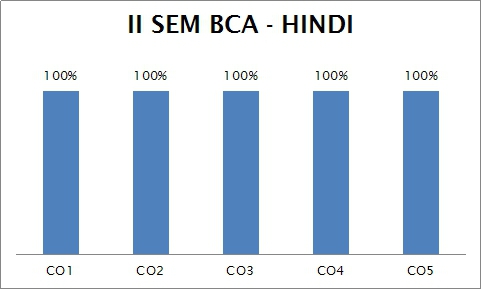 |
|
| Co - Attainment |  |
|
| Semester | 4th Semester | |
| Topic | Novel | |
| Course Outcome |
|
|
| Analysis | 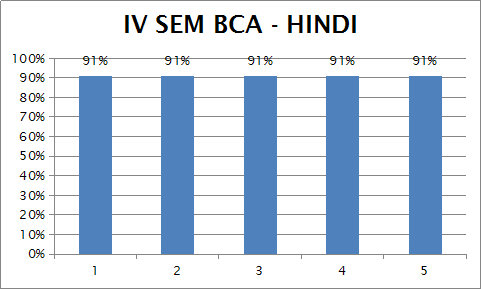 |
|
| Co - Attainment | 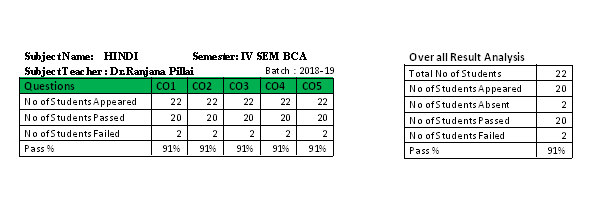 |
|
| Semester | 2nd Semester | |
| Topic | Poetry ( Ancient and Modern ) | |
| Course Outcome |
|
|
| Analysis | 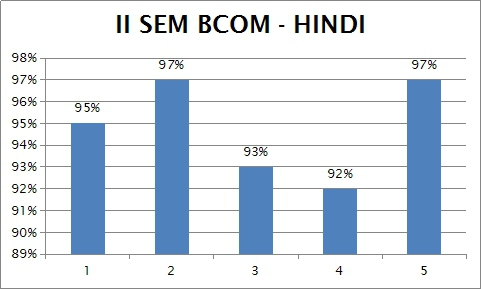 |
|
| Co - Attainment | 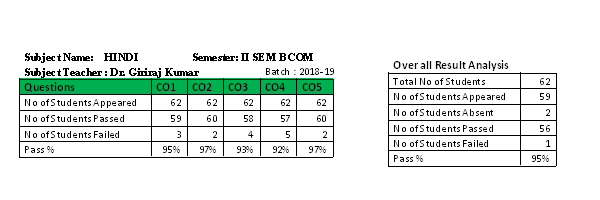 |
|
| Semester | 4th Semester | |
| Topic | Novel | |
| Course Outcome |
|
|
| Analysis | 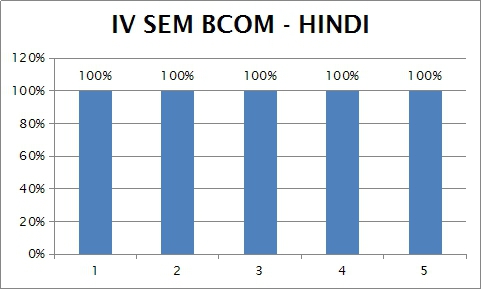 |
|
| Co - Attainment | 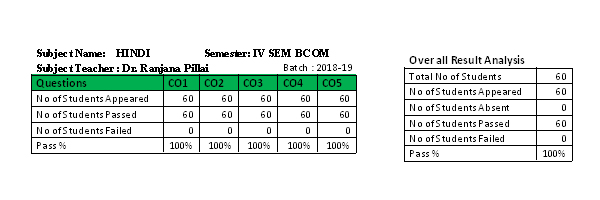 |
|
| Semester | 2nd Semester | |
| Topic | Poetry ( Ancient and Modern ) | |
| Course Outcome |
|
|
| Analysis | 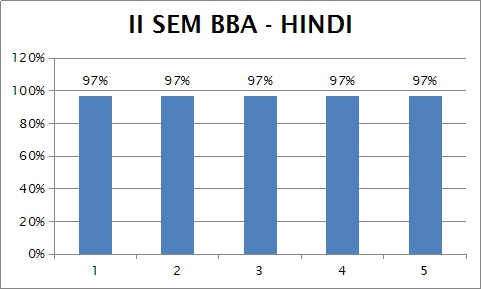 |
|
| Co - Attainment | 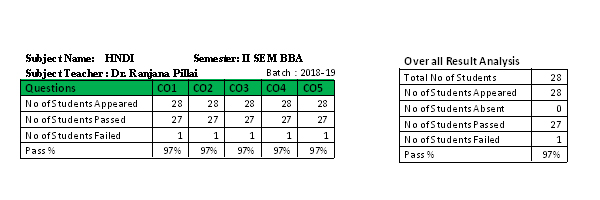 |
|
| Semester | 4th Semester | |
| Topic | Novel | |
| Course Outcome |
|
|
| Analysis | 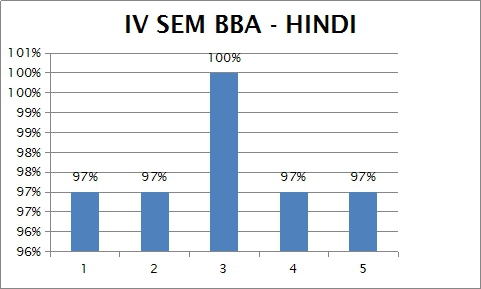 |
|
| Co - Attainment | 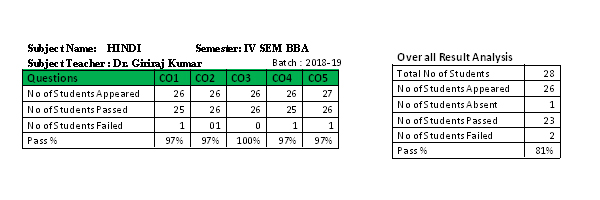 |
|
| Semester | 2nd Semester | |
| Topic | Poetry ( Ancient and Modern ) | |
| Course Outcome |
|
|
| Analysis | 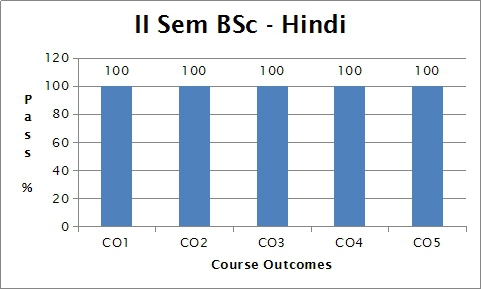 |
|
| Co - Attainment | 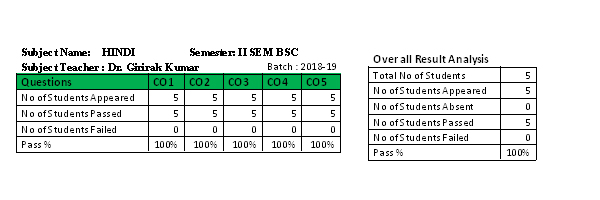 |
|
| Semester | 4th Semester | |
| Topic | Novel | |
| Course Outcome |
|
|
| Analysis | 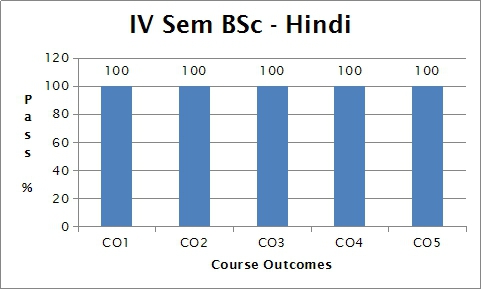 |
|
| Co - Attainment | 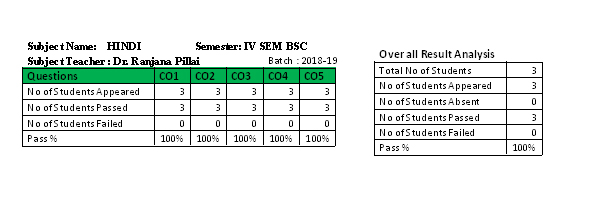 |
|
| Semester | 2nd Semester | |
| Topic | Poetry ( Ancient and Modern ) | |
| Course Outcome |
|
|
| Analysis | 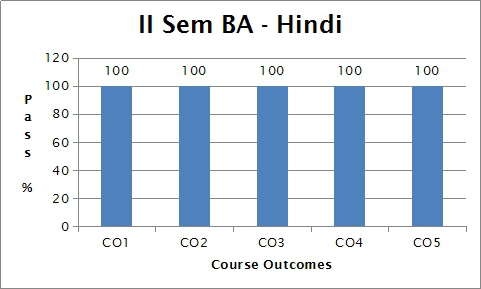 |
|
| Co - Attainment | 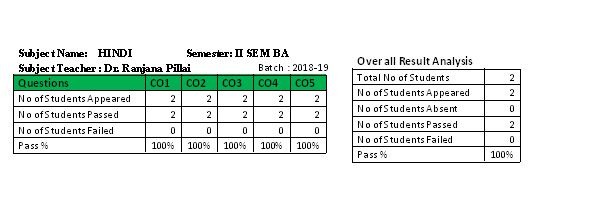 |
|
| Paper Code | ||
| Title of the Paper | Yakshaprashna Sangraha & Grammar | |
| Course Outcome |
|
|
| Analysis |  |
|
| Co - Attainment |  |
|
| Paper Code | ||
| Title of the Paper | Aranya Khanda (Champu Ramayana) | |
| Course Outcome |
|
|
| Analysis |  |
|
| Co - Attainment |  |
|
| Paper Code | ||
| Title of the Paper | Raghuvamsha 5th Canto & Grammar | |
| Course Outcome |
|
|
| Analysis |  |
|
| Co - Attainment |  |
|
| Paper Code | ||
| Title of the Paper | Balakanda (Champuramayanam) & Grammar | |
| Course Outcome |
|
|
| Analysis |  |
|
| Co - Attainment |  |
|
| Paper Code | ||
| Title of the Paper | Meghadutam & Grammar | |
| Course Outcome |
|
|
| Analysis |  |
|
| Co - Attainment |  |
|
| Paper Code | ||
| Title of the Paper | Ayodhyakanda (Champuramayana) & Grammar | |
| Course Outcome |
|
|
| Analysis |  |
|
| Co - Attainment |  |
|
| Paper Code | ||
| Title of the Paper | Kumarasambhavam 2nd Canto & Grammar | |
| Course Outcome |
|
|
| Analysis |  |
|
| Co - Attainment |  |
|
| Paper Code | ||
| Title of the Paper | Sundarakanda of Champuramayana & Grammar | |
| Course Outcome |
|
|
| Analysis |  |
|
| Co - Attainment |  |
|
| Paper Code | 1.3 | |
| Title of the Paper | Financial Accounting | |
| Course Outcome |
|
|
| Analysis |  |
|
| Co - Attainment |  |
|
| Paper Code | 1.4 | |
| Title of the Paper | Business Dynamics & Entrepreneurship | |
| Course Outcome |
|
|
| Analysis |  |
|
| Co - Attainment |  |
|
| Paper Code | 1.5 | |
| Title of the Paper | INDIAN FINANCIAL INSTITUTIONS AND MARKETS | |
| Course Outcome |
|
|
| Analysis |  |
|
| Co - Attainment |  |
|
| Paper Code | 1.6 | |
| Title of the Paper | CORPORATE STRUCTURE AND ADMINISTRATION | |
| Course Outcome |
|
|
| Analysis |  |
|
| Co - Attainment |  |
|
| Paper Code | 3.3 | |
| Title of the Paper | Corporate Accounting | |
| Course Outcome |
|
|
| Analysis |  |
|
| Co - Attainment |  |
|
| Paper Code | 3.4 | |
| Title of the Paper | Financial Management | |
| Course Outcome |
|
|
| Analysis |  |
|
| Co - Attainment |  |
|
| Paper Code | 3.5 | |
| Title of the Paper | Business Regulation | |
| Course Outcome |
|
|
| Analysis |  |
|
| Co - Attainment |  |
|
| Paper Code | CC15N2 | |
| Title of the Paper | International financial reporting standards | |
| Course Outcome |
|
|
| Analysis |  |
|
| Co - Attainment |  |
|
| Paper Code | CC15N3 | |
| Title of the Paper | Income tax - I | |
| Course Outcome |
|
|
| Analysis |  |
|
| Co - Attainment |  |
|
| Paper Code | CC15N1 | |
| Title of the Paper | Entrepreneurship development programme | |
| Course Outcome |
|
|
| Analysis |  |
|
| Co - Attainment |  |
|
| Paper Code | CC15N4 | |
| Title of the Paper | Costing methods | |
| Course Outcome |
|
|
| Analysis |  |
|
| Co - Attainment |  |
|
| Paper Code | CCE5NI | |
| Title of the Paper | Advance accounting | |
| Course Outcome |
|
|
| Analysis |  |
|
| Co - Attainment |  |
|
| Paper Code | CCE6N9 | |
| Title of the Paper | Goods and service tax | |
| Course Outcome |
|
|
| Analysis |  |
|
| Co - Attainment |  |
|
| Paper Code | CCE6IN | |
| Title of the Paper | International financial management | |
| Course Outcome |
|
|
| Analysis |  |
|
| Co - Attainment |  |
|
| Paper Code | 1.3 | |
| Title of the Paper | Financial Accounting | |
| Course Outcome |
|
|
| Analysis |  |
|
| Co - Attainment |  |
|
| Paper Code | 1.4 | |
| Title of the Paper | Business Dynamics & Entrepreneurship | |
| Course Outcome |
|
|
| Analysis |  |
|
| Co - Attainment |  |
|
| Paper Code | 1.6 | |
| Title of the Paper | CORPORATE STRUCTURE AND ADMINISTRATION | |
| Course Outcome |
|
|
| Analysis |  |
|
| Co - Attainment |  |
|
| Paper Code | 1.5 | |
| Title of the Paper | Material Management | |
| Course Outcome |
|
|
| Analysis |  |
|
| Co - Attainment |  |
|
| Paper Code | 3.1 | |
| Title of the Paper | Business Ethics & Corporate Governance | |
| Course Outcome |
|
|
| Analysis |  |
|
| Co - Attainment |  |
|
| Paper Code | 3.2 | |
| Title of the Paper | Corporate Financial Reporting | |
| Course Outcome |
|
|
| Analysis |  |
|
| Co - Attainment |  |
|
| Paper Code | 3.3 | |
| Title of the Paper | Accounting for Managerial Decision | |
| Course Outcome |
|
|
| Analysis |  |
|
| Co - Attainment |  |
|
| Paper Code | 3.4 | |
| Title of the Paper | Strategic Cost Management – I | |
| Course Outcome |
|
|
| Analysis |  |
|
| Co - Attainment |  |
|
| Paper Code | 3.5 | |
| Title of the Paper | Direct Taxes & Planning | |
| Course Outcome |
|
|
| Analysis |  |
|
| Co - Attainment |  |
|
| Paper Code | 3.6 | |
| Title of the Paper | Open Elective: Cyber Space | |
| Course Outcome |
|
|
| Analysis |  |
|
| Co - Attainment |  |
|
1. Passing Percentage for Individual Course Outcome is 88%. 2. Overall Passing Percentage for the Subject is 40%.
| Paper Code | 3.1 | |
| Title of the Paper | Business Ethics & Corporate Governance | |
| Course Outcome |
|
|
| Analysis |  |
|
| Co - Attainment |  |
|
| Paper Code | 3.2 | |
| Title of the Paper | Goods and Service Taxes | |
| Course Outcome |
|
|
| Analysis |  |
|
| Co - Attainment |  |
|
| Paper Code | 3.3 | |
| Title of the Paper | Forex and Derivatives | |
| Course Outcome |
|
|
| Analysis |  |
|
| Co - Attainment |  |
|
| Paper Code | 3.4 | |
| Title of the Paper | Insurance and Risk Management | |
| Course Outcome |
|
|
| Analysis |  |
|
| Co - Attainment |  |
|
| Paper Code | 3.5 | |
| Title of the Paper | Advanced E – Business | |
| Course Outcome |
|
|
| Analysis |  |
|
| Co - Attainment |  |
|
| Paper Code | 3.6 | |
| Title of the Paper | Open Elective: Cyber Space | |
| Course Outcome |
|
|
| Analysis |  |
|
| Co - Attainment |  |
|
1. Passing Percentage for Individual Course Outcome is 87%. 2. Overall Passing Percentage for the Subject is 40%.
| Paper Code | D0011 | |
| Title of the Paper | ENGLISH | |
| Course Outcome |
|
|
| Analysis |  |
|
| Co - Attainment |  |
|
| Paper Code | D0011 | |
| Title of the Paper | ENGLISH | |
| Course Outcome |
|
|
| Analysis |  |
|
| Co - Attainment |  |
|
| Paper Code | B0011 | |
| Title of the Paper | ENGLISH | |
| Course Outcome |
|
|
| Analysis |  |
|
| Co - Attainment |  |
|
| Paper Code | B0011 | |
| Title of the Paper | ENGLISH | |
| Course Outcome |
|
|
| Analysis |  |
|
| Co - Attainment |  |
|
| Paper Code | B0011 | |
| Title of the Paper | ENGLISH | |
| Course Outcome |
|
|
| Analysis |  |
|
| Co - Attainment |  |
|
| Paper Code | B0011 | |
| Title of the Paper | ENGLISH | |
| Course Outcome |
|
|
| Analysis |  |
|
| Co - Attainment |  |
|
| Paper Code | B0361 | |
| Title of the Paper | OPTIONAL ENGLISH | |
| Course Outcome |
|
|
| Analysis |  |
|
| Co - Attainment |  |
|
| Paper Code | D0011 | |
| Title of the Paper | ENGLISH | |
| Course Outcome |
|
|
| Analysis |  |
|
| Co - Attainment |  |
|
| Paper Code | D0361 | |
| Title of the Paper | OPTIONAL ENGLISH | |
| Course Outcome |
|
|
| Analysis |  |
|
| Co - Attainment |  |
|
| Paper Code | B0011 | |
| Title of the Paper | ENGLISH | |
| Course Outcome |
|
|
| Analysis |  |
|
| Co - Attainment |  |
|
| Paper Code | BCA203 | |
| Title of the Paper | Data structures | |
| Course Outcome |
|
|
| Analysis |  |
|
| Co - Attainment |  |
|
| Paper Code | BCA204 | |
| Title of the Paper | Database Management System | |
| Course Outcome |
|
|
| Analysis |  |
|
| Co - Attainment |  |
|
| Paper Code | BCA403 | |
| Title of the Paper | Visual Programming | |
| Course Outcome |
|
|
| Analysis |  |
|
| Co - Attainment |  |
|
| Paper Code | BCA404 | |
| Title of the Paper | Unix Shell programming | |
| Course Outcome |
|
|
| Analysis |  |
|
| Co - Attainment |  |
|
| Paper Code | BCA601 | |
| Title of the Paper | Theory of Computation | |
| Course Outcome |
|
|
| Analysis |  |
|
| Co - Attainment |  |
|
| Paper Code | BCA602 | |
| Title of the Paper | System Programming | |
| Course Outcome |
|
|
| Analysis |  |
|
| Co - Attainment |  |
|
| Paper Code | BCA603 | |
| Title of the Paper | Cryptography and Network Security | |
| Course Outcome |
|
|
| Analysis |  |
|
| Co - Attainment |  |
|
| Paper Code | BCA604 | |
| Title of the Paper | Web Programming | |
| Course Outcome |
|
|
| Analysis |  |
|
| Co - Attainment |  |
|
| Paper Code | CS2T | |
| Title of the Paper | Data Structures | |
| Course Outcome |
|
|
| Analysis |  |
|
| Co - Attainment |  |
|
| Paper Code | CS4T | |
| Title of the Paper | Operating System and UNIX | |
| Course Outcome |
|
|
| Analysis |  |
|
| Co - Attainment |  |
|
| Paper Code | CS6T1 | |
| Title of the Paper | Web Programming | |
| Course Outcome |
|
|
| Analysis |  |
|
| Co - Attainment |  |
|
| Paper Code | CS6T2 | |
| Title of the Paper | Computer Networks | |
| Course Outcome |
|
|
| Analysis |  |
|
| Co - Attainment |  |
|
| Paper Code | EL-201T | |
| Title of the Paper | Electronic Circuits & Special Purpose devices | |
| Course Outcome |
|
|
| Analysis |  |
|
| Co - Attainment |  |
|
| Paper Code | EL-401T | |
| Title of the Paper | Digital Electronics & Verilog | |
| Course Outcome |
|
|
| Analysis |  |
|
| Co - Attainment |  |
|
| Paper Code | EL-601T | |
| Title of the Paper | Communication II | |
| Course Outcome |
|
|
| Analysis |  |
|
| Co - Attainment |  |
|
| Paper Code | EL-602T | |
| Title of the Paper | Microcontrollers | |
| Course Outcome |
|
|
| Analysis |  |
|
| Co - Attainment |  |
|
| Paper Code | B0210 | |
| Title of the Paper | Corporate Accounting | |
| Course Outcome |
|
|
| Analysis |  |
|
| Co - Attainment |  |
|
| Paper Code | B0230 | |
| Title of the Paper | Organizational Behaviour | |
| Course Outcome |
|
|
| Analysis |  |
|
| Co - Attainment |  |
|
| Paper Code | B0240 | |
| Title of the Paper | Marketing Management | |
| Course Outcome |
|
|
| Analysis |  |
|
| Co - Attainment |  |
|
| Paper Code | BRMC4S | |
| Title of the Paper | Business research methods | |
| Course Outcome |
|
|
| Analysis |  |
|
| Co - Attainment |  |
|
| Paper Code | BFMC4S | |
| Title of the Paper | Financial Management | |
| Course Outcome |
|
|
| Analysis |  |
|
| Co - Attainment |  |
|
| Paper Code | BSMC4S | |
| Title of the Paper | Services Management | |
| Course Outcome |
|
|
| Analysis |  |
|
| Co - Attainment |  |
|
| Paper Code | BREC4S | |
| Title of the Paper | Banking Regulations & Operations | |
| Course Outcome |
|
|
| Analysis |  |
|
| Co - Attainment |  |
|
| Paper Code | BCAC4S | |
| Title of the Paper | Cost Accounting | |
| Course Outcome |
|
|
| Analysis |  |
|
| Co - Attainment |  |
|
| Paper Code | BMMC4S | |
| Title of the Paper | Marketing Management | |
| Course Outcome |
|
|
| Analysis |  |
|
| Co - Attainment |  |
|
| Paper Code | BNBC6S | |
| Title of the Paper | International Business | |
| Course Outcome |
|
|
| Analysis |  |
|
| Co - Attainment |  |
|
| Paper Code | BEBC6S | |
| Title of the Paper | E - Business | |
| Course Outcome |
|
|
| Analysis |  |
|
| Co - Attainment |  |
|
| Paper Code | BNTC6S | |
| Title of the Paper | Income Tax | |
| Course Outcome |
|
|
| Analysis |  |
|
| Co - Attainment |  |
|
| Paper Code | BSMC6S | |
| Title of the Paper | Strategic Management | |
| Course Outcome |
|
|
| Analysis |  |
|
| Co - Attainment |  |
|
| Paper Code | BNFC6S | |
| Title of the Paper | International Finance | |
| Course Outcome |
|
|
| Analysis |  |
|
| Co - Attainment |  |
|
| Paper Code | BSCC6S | |
| Title of the Paper | Stock and Commodity Markets | |
| Course Outcome |
|
|
| Analysis |  |
|
| Co - Attainment |  |
|
| Paper Code | BCDC6S | |
| Title of the Paper | Organizational Change & Development | |
| Course Outcome |
|
|
| Analysis |  |
|
| Co - Attainment |  |
|
| Paper Code | BCMC6S | |
| Title of the Paper | Compensation Management | |
| Course Outcome |
|
|
| Analysis |  |
|
| Co - Attainment |  |
|
| Paper Code | B0220 | |
| Title of the Paper | Strategic Human Resource Management : | |
| Course Outcome |
|
|
| Analysis |  |
|
| Co - Attainment |  |
|
| Paper Code | B0230 | |
| Title of the Paper | Organizational Behavior | |
| Course Outcome |
|
|
| Analysis |  |
|
| Co - Attainment |  |
|
| Paper Code | B0240 | |
| Title of the Paper | Aviation Safety and security | |
| Course Outcome |
|
|
| Analysis |  |
|
| Co - Attainment |  |
|
| Paper Code | 2.1 | |
| Title of the Paper | Indian Banking | |
| Course Outcome |
|
|
| Analysis |  |
|
| Co - Attainment |  |
|
| Paper Code | 2.2 | |
| Title of the Paper | Risk Management | |
| Course Outcome |
|
|
| Analysis |  |
|
| Co - Attainment |  |
|
| Paper Code | 2.3 | |
| Title of the Paper | Advanced E - Commerce and Mobile Commerce | |
| Course Outcome |
|
|
| Analysis |  |
|
| Co - Attainment |  |
|
| Paper Code | 2.4 | |
| Title of the Paper | Business Research Methods | |
| Course Outcome |
|
|
| Analysis |  |
|
| Co - Attainment |  |
|
| Paper Code | 2.5 | |
| Title of the Paper | Operations Research and Quantitative | |
| Course Outcome |
|
|
| Analysis |  |
|
| Co - Attainment |  |
|
| Paper Code | 2.6 | |
| Title of the Paper | Business Marketing | |
| Course Outcome |
|
|
| Analysis |  |
|
| Co - Attainment |  |
|
| Paper Code | 2.7 | |
| Title of the Paper | SOFT CORE : Micro Finance | |
| Course Outcome |
|
|
| Analysis |  |
|
| Co - Attainment |  |
|
| Paper Code | 4.1 | |
| Title of the Paper | Commodity Market | |
| Course Outcome |
|
|
| Analysis |  |
|
| Co - Attainment |  |
|
| Paper Code | 4.2 | |
| Title of the Paper | Corporate Reporting Practices and Ind AS | |
| Course Outcome |
|
|
| Analysis |  |
|
| Co - Attainment |  |
|
| Paper Code | 4.3 | |
| Title of the Paper | Strategic Cost Management II | |
| Course Outcome |
|
|
| Analysis |  |
|
| Co - Attainment |  |
|
| Paper Code | 4.4 | |
| Title of the Paper | Goods and Service Taxes | |
| Course Outcome |
|
|
| Analysis |  |
|
| Co - Attainment |  |
|
| Paper Code | 4.2 | |
| Title of the Paper | Forex Management | |
| Course Outcome |
|
|
| Analysis |  |
|
| Co - Attainment |  |
|
| Paper Code | 4.3 | |
| Title of the Paper | International Financial Institutions & Markets | |
| Course Outcome |
|
|
| Analysis |  |
|
| Co - Attainment |  |
|
| Paper Code | 4.4 | |
| Title of the Paper | Banking Operations and Management | |
| Course Outcome |
|
|
| Analysis |  |
|
| Co - Attainment |  |
|
| Paper Code | 2.1 | |
| Title of the Paper | Contemporary Issues in Accounting | |
| Course Outcome |
|
|
| Analysis |  |
|
| Co - Attainment |  |
|
| Paper Code | 2.2 | |
| Title of the Paper | Information Technology for Accounting and Finance | |
| Course Outcome |
|
|
| Analysis |  |
|
| Co - Attainment |  |
|
| Paper Code | 2.3 | |
| Title of the Paper | Corporate Tax Planning | |
| Course Outcome |
|
|
| Analysis |  |
|
| Co - Attainment |  |
|
| Paper Code | 2.4 | |
| Title of the Paper | Securities Analysis and Portfolio Management | |
| Course Outcome |
|
|
| Analysis |  |
|
| Co - Attainment |  |
|
| Paper Code | 2.5 | |
| Title of the Paper | Strategic Cost and Management Accounting | |
| Course Outcome |
|
|
| Analysis |  |
|
| Co - Attainment |  |
|
| Paper Code | 2.6 | |
| Title of the Paper | Asset Liability Management in Banks | |
| Course Outcome |
|
|
| Analysis |  |
|
| Co - Attainment |  |
|
| Paper Code | 2.7 | |
| Title of the Paper | SOFT CORE : Business Research Methods | |
| Course Outcome |
|
|
| Analysis |  |
|
| Co - Attainment |  |
|
| Paper Code | 4.1 | |
| Title of the Paper | Strategic Management | |
| Course Outcome |
|
|
| Analysis |  |
|
| Co - Attainment |  |
|
| Paper Code | 4.2 | |
| Title of the Paper | International Accounting | |
| Course Outcome |
|
|
| Analysis |  |
|
| Co - Attainment |  |
|
| Paper Code | 4.3 | |
| Title of the Paper | International Financial Management | |
| Course Outcome |
|
|
| Analysis |  |
|
| Co - Attainment |  |
|
| Paper Code | 4.4 | |
| Title of the Paper | Strategic Financial Management | |
| Course Outcome |
|
|
| Analysis |  |
|
| Co - Attainment |  |
|
| Paper Code | B0230 | |
| Title of the Paper | Mathematics-II | |
| Course Outcome |
|
|
| Analysis |  |
|
| Co - Attainment |  |
|
| Paper Code | SM1C4S | |
| Title of the Paper | Mathematics-IV | |
| Course Outcome |
|
|
| Analysis |  |
|
| Co - Attainment |  |
|
| Paper Code | SM1C61 | |
| Title of the Paper | Mathematics - VII | |
| Course Outcome |
|
|
| Analysis |  |
|
| Co - Attainment |  |
|
| Paper Code | SM1C62 | |
| Title of the Paper | Mathematics - VIII | |
| Course Outcome |
|
|
| Analysis |  |
|
| Co - Attainment |  |
|
| Paper Code | B0230 | |
| Title of the Paper | Numerical and Statistical Methods | |
| Course Outcome |
|
|
| Analysis |  |
|
| Co - Attainment |  |
|
| Paper Code | SB7114 | |
| Title of the Paper | Operation Research | |
| Course Outcome |
|
|
| Analysis |  |
|
| Co - Attainment |  |
|
| Paper Code | B0220 | |
| Title of the Paper | Quantitative Methods for Business - II | |
| Course Outcome |
|
|
| Analysis |  |
|
| Co - Attainment |  |
|
| Paper Code | B0240 | |
| Title of the Paper | Quantitative Analysis for Business Decisions - I | |
| Course Outcome |
|
|
| Analysis |  |
|
| Co - Attainment |  |
|
| Paper Code | 34101 | |
| Title of the Paper | ENGLISH | |
| Course Outcome |
|
|
| Analysis | 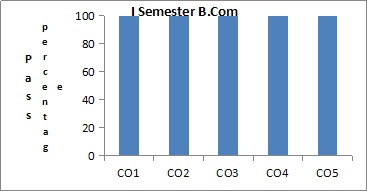 |
|
| Co - Attainment | 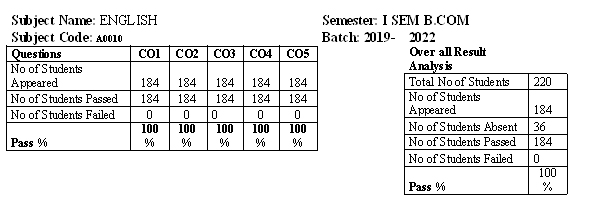 |
|
| Paper Code | ||
| Title of the Paper | ENGLISH | |
| Course Outcome |
|
|
| Analysis | 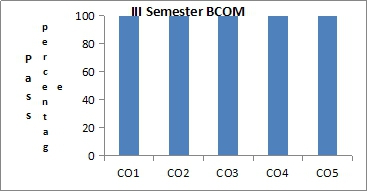 |
|
| Co - Attainment | 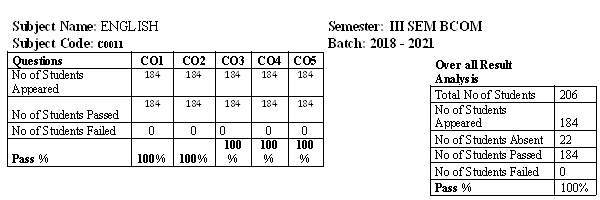 |
|
| Paper Code | 34101 | |
| Title of the Paper | ENGLISH | |
| Course Outcome |
|
|
| Analysis | 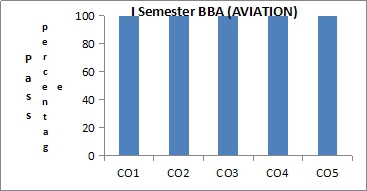 |
|
| Co - Attainment | 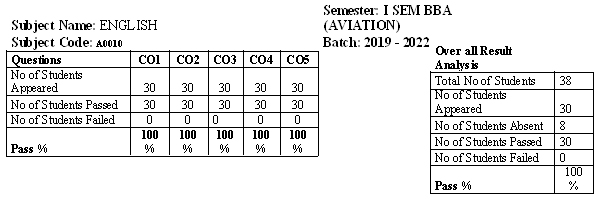 |
|
| Paper Code | 34101 | |
| Title of the Paper | ENGLISH | |
| Course Outcome |
|
|
| Analysis | 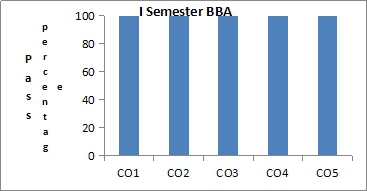 |
|
| Co - Attainment | 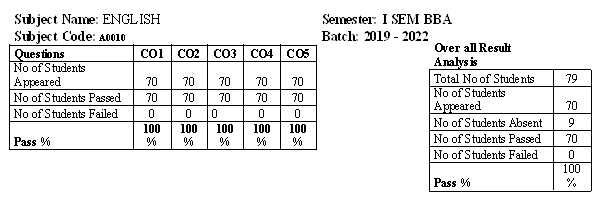 |
|
| Paper Code | ||
| Title of the Paper | SOFT SKILLS FOR BUSINESS | |
| Course Outcome |
|
|
| Analysis | 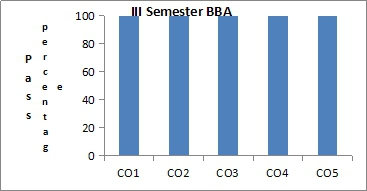 |
|
| Co - Attainment | 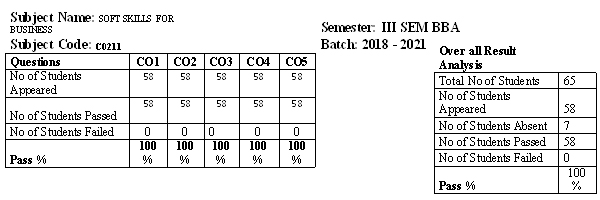 |
|
| Paper Code | 34101 | |
| Title of the Paper | ENGLISH | |
| Course Outcome |
|
|
| Analysis | 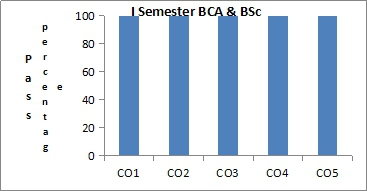 |
|
| Co - Attainment | 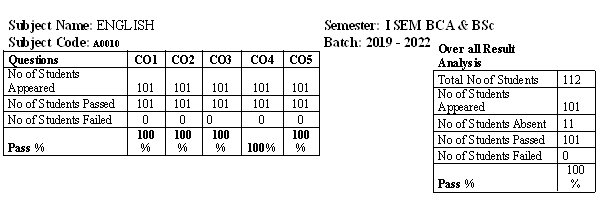 |
|
| Paper Code | 11301 | |
| Title of the Paper | ENGLISH | |
| Course Outcome |
|
|
| Analysis | 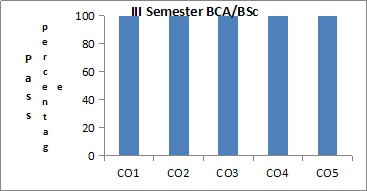 |
|
| Co - Attainment | 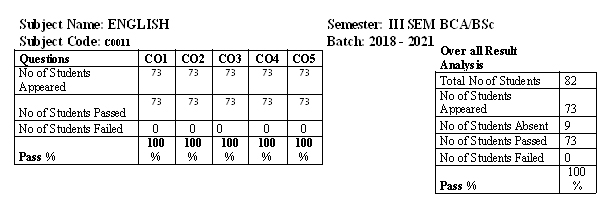 |
|
| Paper Code | ||
| Title of the Paper | ENGLISH | |
| Course Outcome |
|
|
| Analysis | 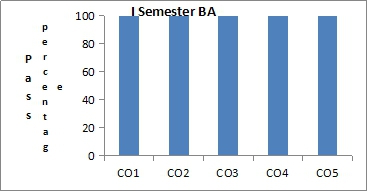 |
|
| Co - Attainment | 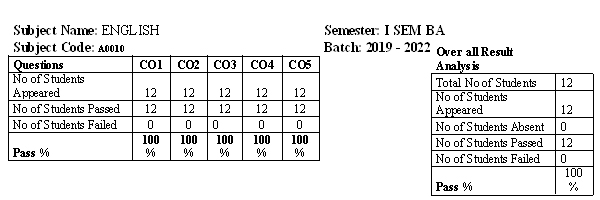 |
|
| Paper Code | ||
| Title of the Paper | OPTIONAL ENGLISH | |
| Course Outcome |
|
|
| Analysis | 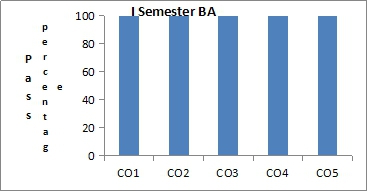 |
|
| Co - Attainment | 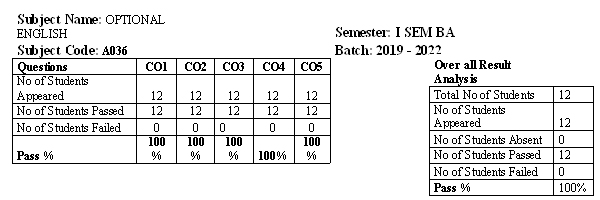 |
|
| Paper Code | ||
| Title of the Paper | ENGLISH | |
| Course Outcome |
|
|
| Analysis | 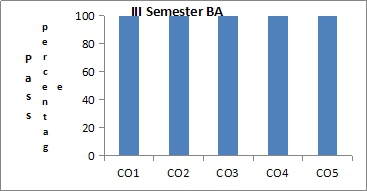 |
|
| Co - Attainment | 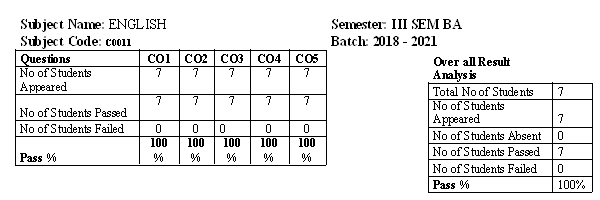 |
|
| Paper Code | ||
| Title of the Paper | OPTIONAL ENGLISH | |
| Course Outcome |
|
|
| Analysis | 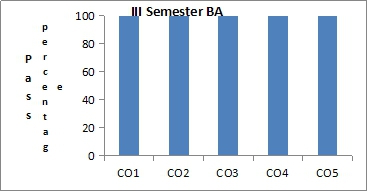 |
|
| Co - Attainment | 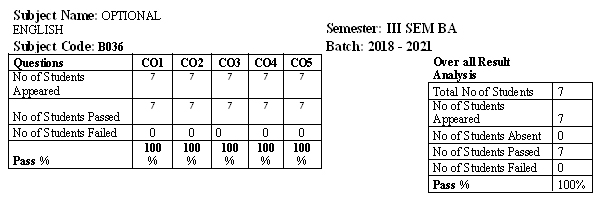 |
|
| Paper Code | CS1.1 | |
| Title of the Paper | Introduction to Communication and Media | |
| Course Outcome |
|
|
| Analysis |  |
|
| Co - Attainment | 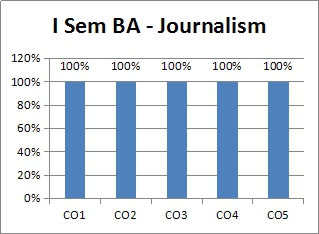 |
|
| Paper Code | 3.1 | |
| Title of the Paper | AUDIO VISUAL MEDIA | |
| Course Outcome |
|
|
| Analysis |  |
|
| Co - Attainment | 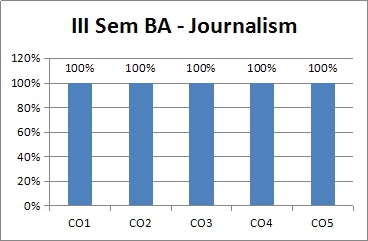 |
|
| Paper Code | B0130 | |
| Title of the Paper | Mathematics - I | |
| Course Outcome |
|
|
| Analysis | 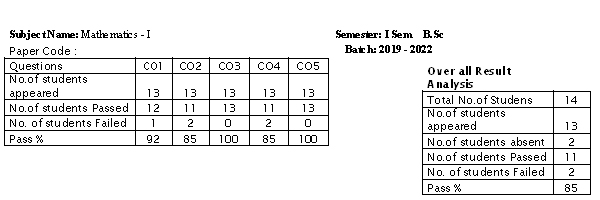 |
|
| Co - Attainment | 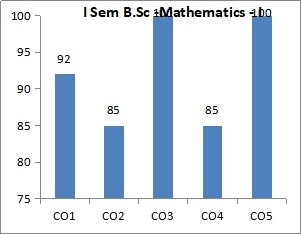 |
|
| Paper Code | B0330 | |
| Title of the Paper | Mathematics - III | |
| Course Outcome |
|
|
| Analysis |  |
|
| Co - Attainment | 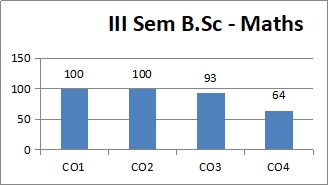 |
|
| Paper Code | SM1C51 | |
| Title of the Paper | Mathematics - V | |
| Course Outcome |
|
|
| Analysis |  |
|
| Co - Attainment | 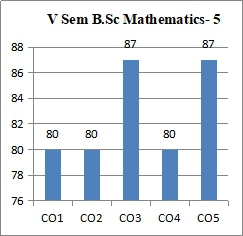 |
|
| Paper Code | SM1C52 | |
| Title of the Paper | Mathematics - VI | |
| Course Outcome |
|
|
| Analysis |  |
|
| Co - Attainment | 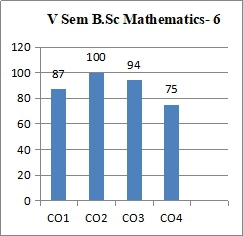 |
|
| Paper Code | B0130 | |
| Title of the Paper | Numerical and Statistical Methods | |
| Course Outcome |
|
|
| Analysis | 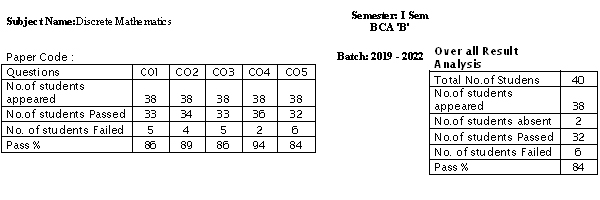 |
|
| Co - Attainment | 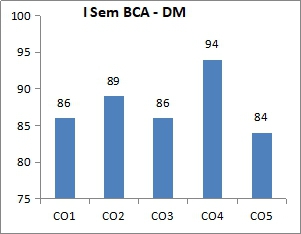 |
|
| Analysis | 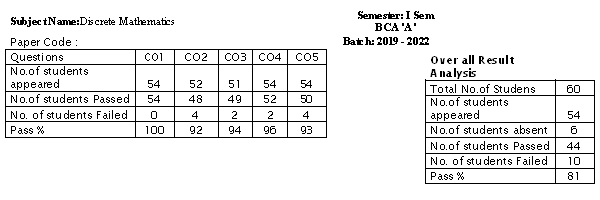 |
|
| Co - Attainment | 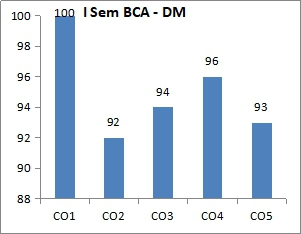 |
|
| Paper Code | ||
| Title of the Paper | Quantitative Techniques for Managers | |
| Course Outcome |
|
|
| Analysis |  |
|
| Co - Attainment | 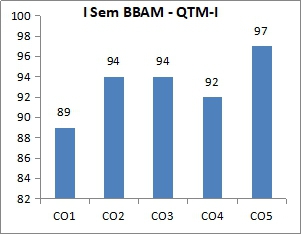 |
|
| Paper Code | B0340 | |
| Title of the Paper | Quantitative Analysis for Business Decisions - II | |
| Course Outcome |
|
|
| Analysis |  |
|
| Co - Attainment | 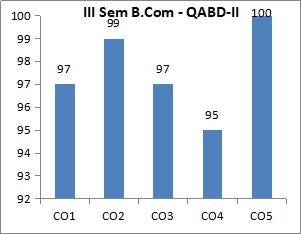 |
|
| Analysis |  |
|
| Co - Attainment | 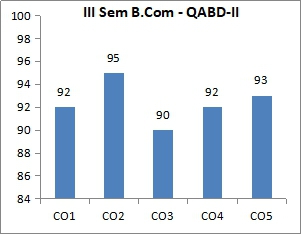 |
|
| Analysis |  |
|
| Co - Attainment | 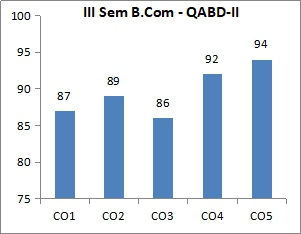 |
|
| Paper Code | BCA103 | |
| Title of the Paper | Problem Solving Techniques using C | |
| Course Outcome |
|
|
| Analysis | 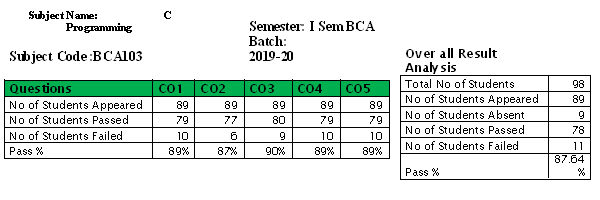 |
|
| Co - Attainment | 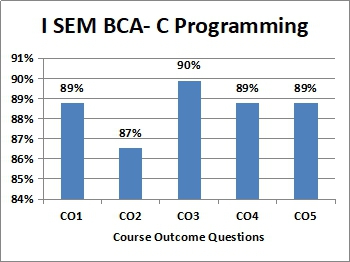 |
|
| Paper Code | BCA104 | |
| Title of the Paper | Computer Organisation | |
| Course Outcome |
|
|
| Analysis | 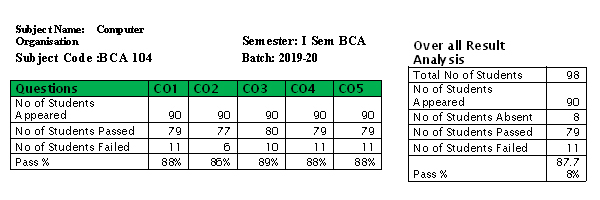 |
|
| Co - Attainment | 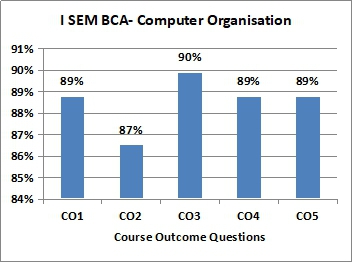 |
|
| Paper Code | BCA303 | |
| Title of the Paper | Object Oriented Programming using C++ | |
| Course Outcome |
|
|
| Analysis |  |
|
| Co - Attainment | 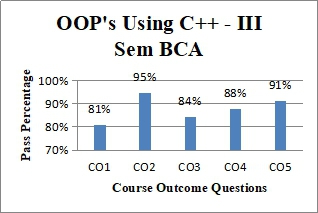 |
|
| Paper Code | BCA305 | |
| Title of the Paper | Operating System | |
| Course Outcome |
|
|
| Analysis |  |
|
| Co - Attainment | 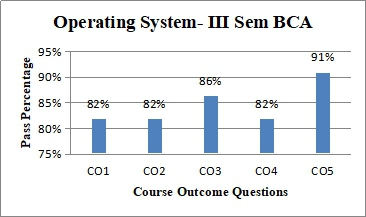 |
|
| Paper Code | BCA501 | |
| Title of the Paper | Data Communication and Networks | |
| Course Outcome |
|
|
| Analysis |  |
|
| Co - Attainment | 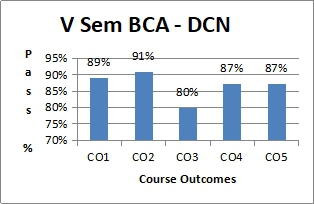 |
|
| Paper Code | BCA502 | |
| Title of the Paper | Software Engineering | |
| Course Outcome |
|
|
| Analysis |  |
|
| Co - Attainment | 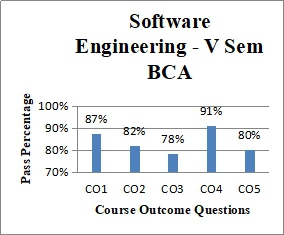 |
|
| Paper Code | BCA503 | |
| Title of the Paper | Computer Architecture | |
| Course Outcome |
|
|
| Analysis |  |
|
| Co - Attainment | 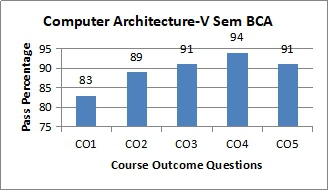 |
|
| Paper Code | BCA504 | |
| Title of the Paper | Java Programming | |
| Course Outcome |
|
|
| Analysis |  |
|
| Co - Attainment | 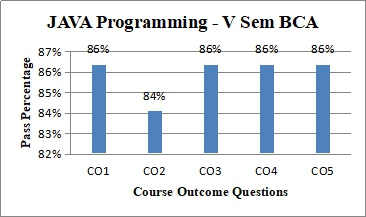 |
|
| Paper Code | BCA505 | |
| Title of the Paper | Microprocessor and Assembly Language | |
| Course Outcome |
|
|
| Analysis |  |
|
| Co - Attainment | 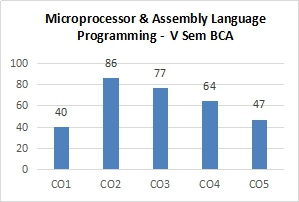 |
|
| Paper Code | 1.3 | |
| Title of the Paper | Financial Accounting | |
| Course Outcome |
|
|
| Analysis |  |
|
| Co - Attainment | 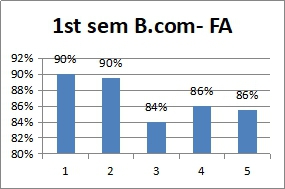 |
|
| Paper Code | 1.4 | |
| Title of the Paper | Business Dynamics & Entrepreneurship | |
| Course Outcome |
|
|
| Analysis | 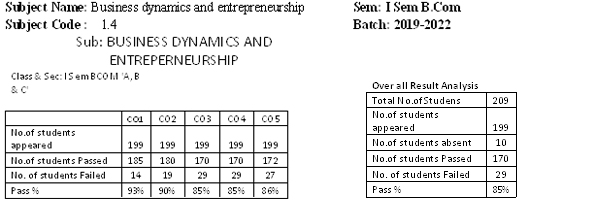 |
|
| Co - Attainment | 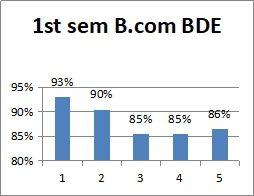 |
|
| Paper Code | 1.5 | |
| Title of the Paper | INDIAN FINANCIAL INSTITUTIONS AND MARKET | |
| Course Outcome |
|
|
| Analysis | 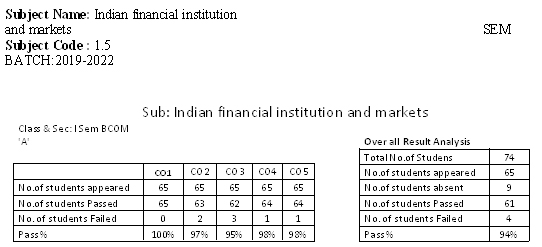 |
|
| Co - Attainment | 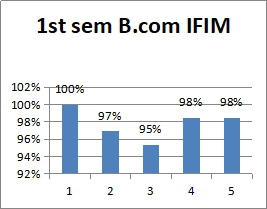 |
|
| Analysis | 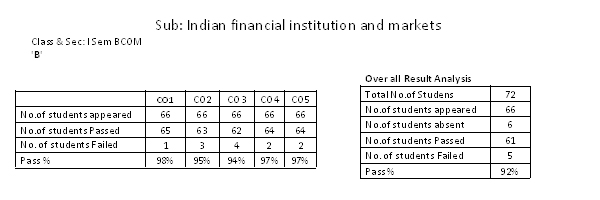 |
|
| Co - Attainment | 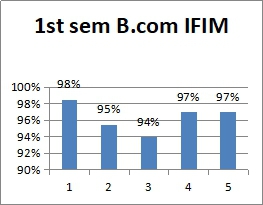 |
|
| Analysis | 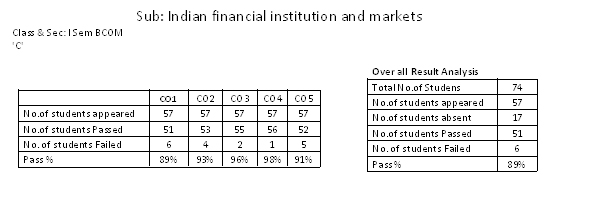 |
|
| Co - Attainment | 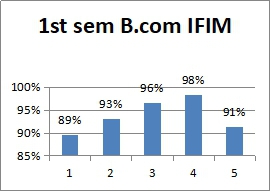 |
|
| Paper Code | 1.6 | |
| Title of the Paper | CORPORATE STRUCTURE AND ADMINISTRATION | |
| Course Outcome |
|
|
| Analysis | 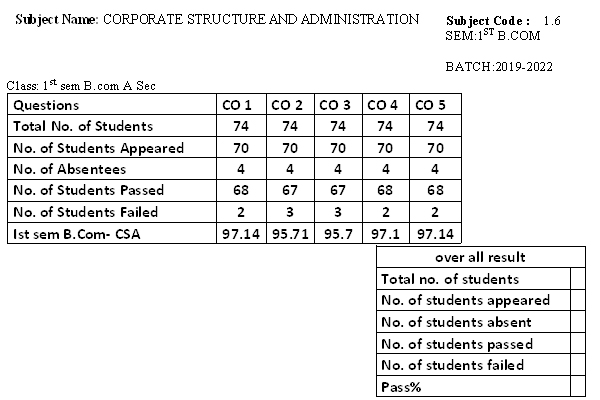 |
|
| Co - Attainment | 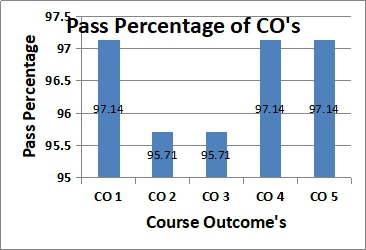 |
|
| Analysis | 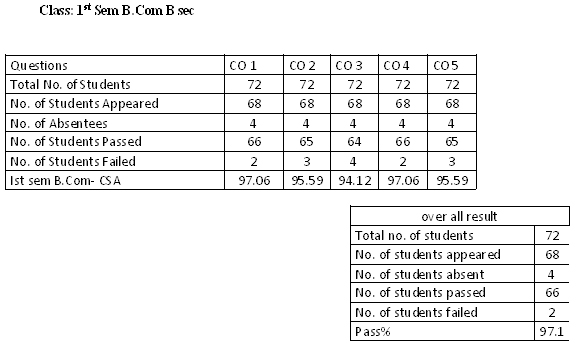 |
|
| Co - Attainment | 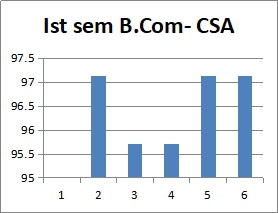 |
|
| Analysis |  |
|
| Co - Attainment | 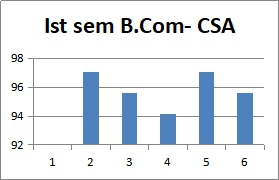 |
|
| Paper Code | CC13N1 | |
| Title of the Paper | Corporate Accounting | |
| Course Outcome |
|
|
| Analysis | 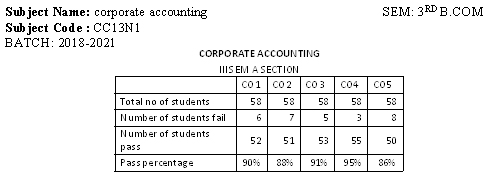 |
|
| Co - Attainment | 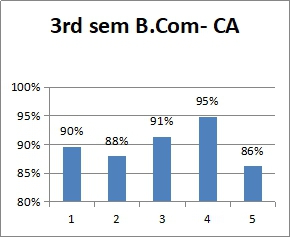 |
|
| Paper Code | CC13N2 | |
| Title of the Paper | Financial Management | |
| Course Outcome |
|
|
| Analysis | 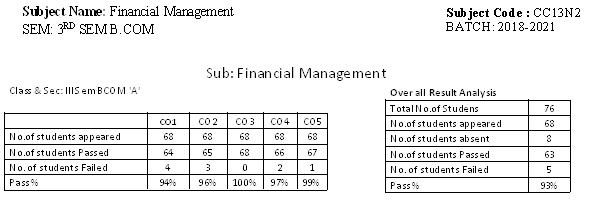 |
|
| Co - Attainment | 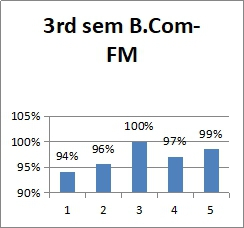 |
|
| Analysis |  |
|
| Co - Attainment | 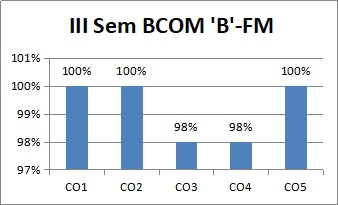 |
|
| Analysis |  |
|
| Co - Attainment | 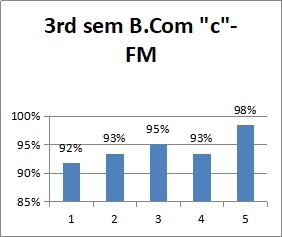 |
|
| Paper Code | CC13N3 | |
| Title of the Paper | Business Ethics | |
| Course Outcome |
|
|
| Analysis | 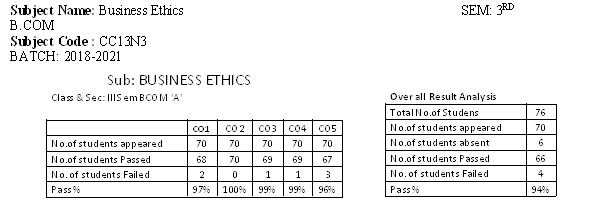 |
|
| Co - Attainment | 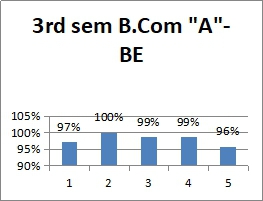 |
|
| Analysis | 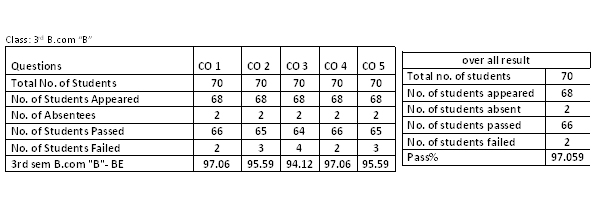 |
|
| Co - Attainment | 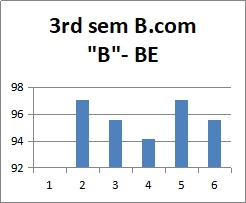 |
|
| Analysis | 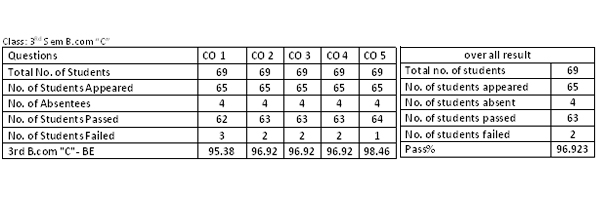 |
|
| Co - Attainment | 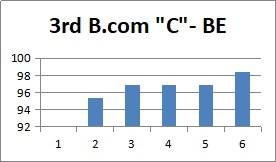 |
|
| Paper Code | CC13N5 | |
| Title of the Paper | Public Relations and Corporate Communication | |
| Course Outcome |
|
|
| Analysis | 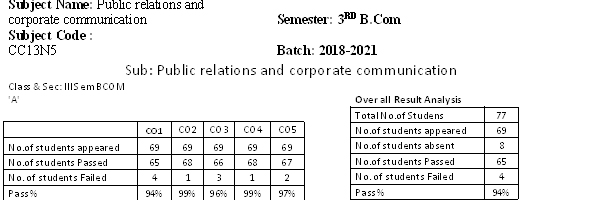 |
|
| Co - Attainment | 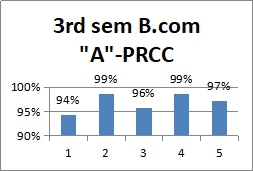 |
|
| Analysis | 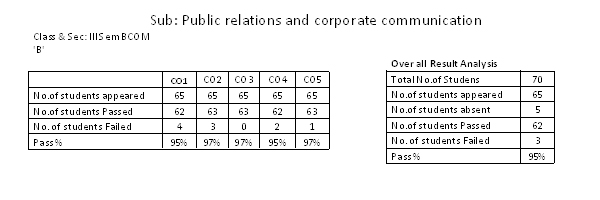 |
|
| Co - Attainment | 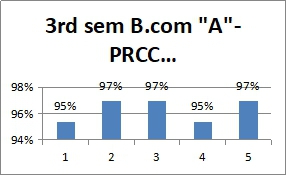 |
|
| Analysis | 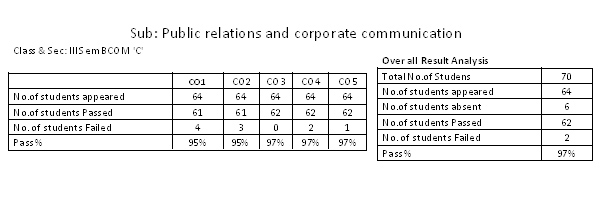 |
|
| Co - Attainment | 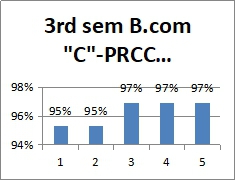 |
|
| Paper Code | CC15N2 | |
| Title of the Paper | International financial reporting standards | |
| Course Outcome |
|
|
| Analysis | 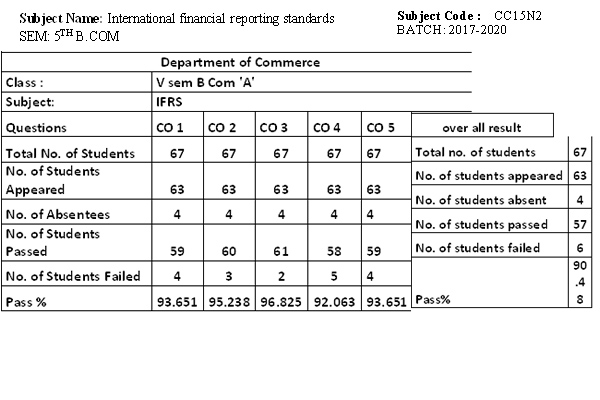 |
|
| Co - Attainment | 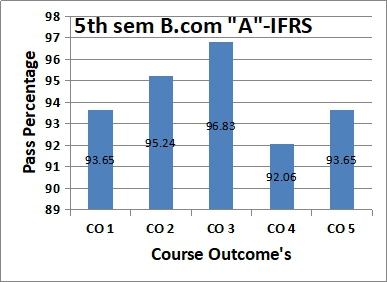 |
|
| Analysis | 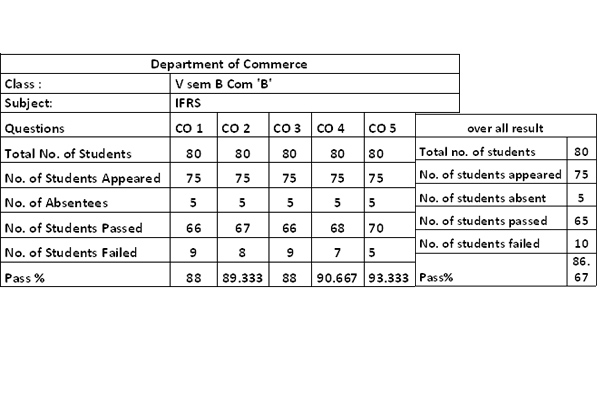 |
|
| Co - Attainment | 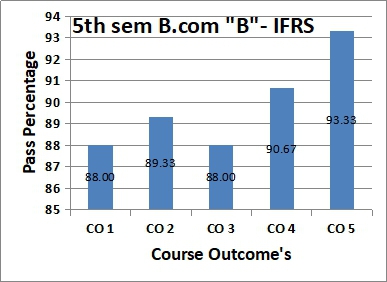 |
|
| Paper Code | CC15N3 | |
| Title of the Paper | Income tax - I | |
| Course Outcome |
|
|
| Analysis | 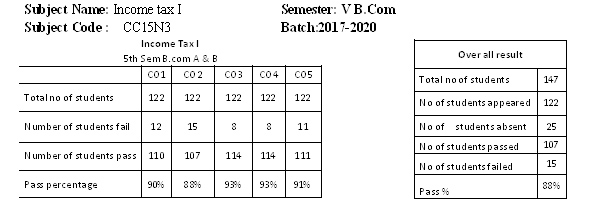 |
|
| Co - Attainment | 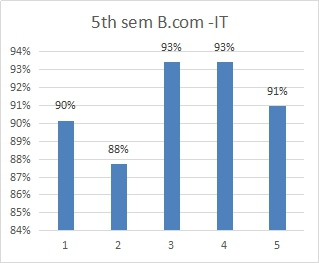 |
|
| Paper Code | CC15N1 | |
| Title of the Paper | Entrepreneurship development programme | |
| Course Outcome |
|
|
| Analysis | 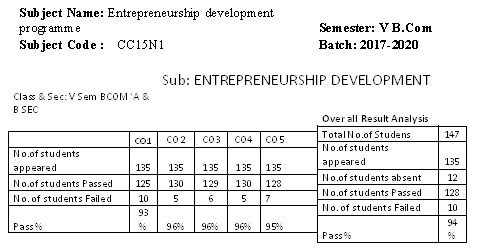 |
|
| Co - Attainment | 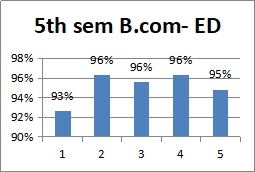 |
|
| Paper Code | CC15N4 | |
| Title of the Paper | Costing methods | |
| Course Outcome |
|
|
| Analysis | 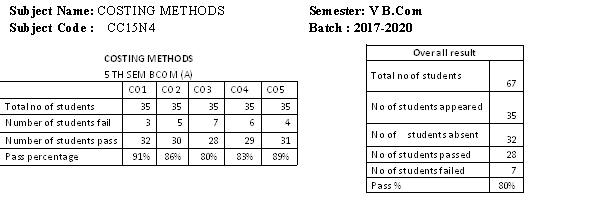 |
|
| Co - Attainment | 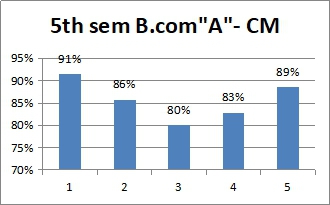 |
|
| Analysis | 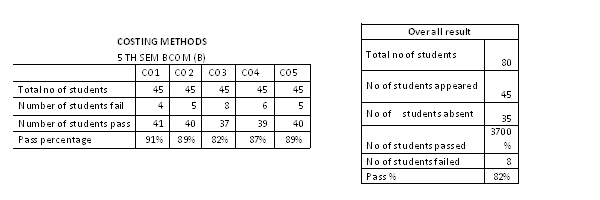 |
|
| Co - Attainment | 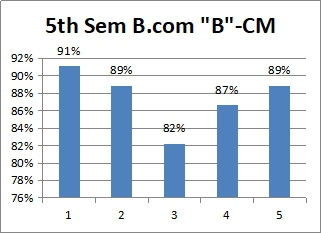 |
|
| Paper Code | CCE5NI | |
| Title of the Paper | Advance accounting | |
| Course Outcome |
|
|
| Analysis | 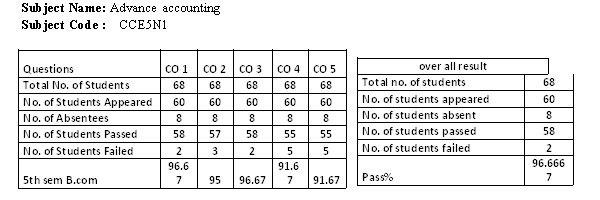 |
|
| Co - Attainment | 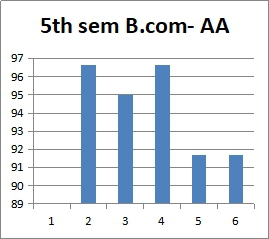 |
|
| Paper Code | CCE6N9 | |
| Title of the Paper | Goods and service tax | |
| Course Outcome |
|
|
| Analysis | 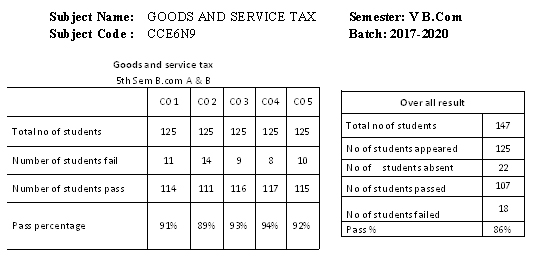 |
|
| Co - Attainment | 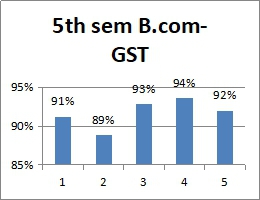 |
|
| Paper Code | CCE6IN | |
| Title of the Paper | International financial management | |
| Course Outcome |
|
|
| Analysis | 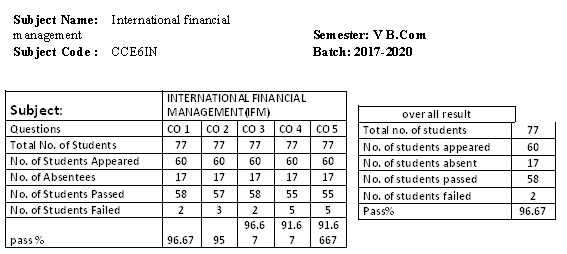 |
|
| Co - Attainment | 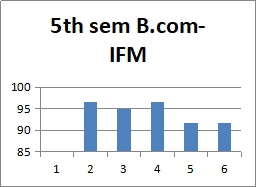 |
|
| Paper Code | 1.1 | |
| Title of the Paper | Monetary Systems | |
| Course Outcome |
|
|
| Analysis | 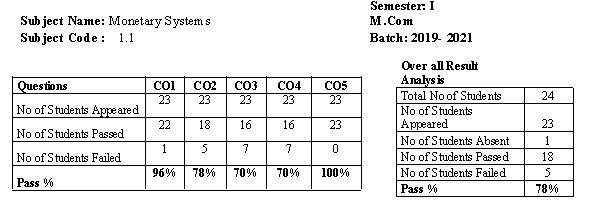 |
|
| Co - Attainment | 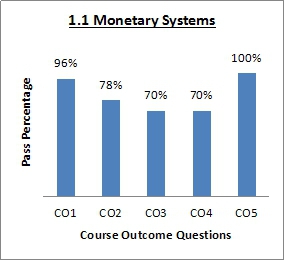 |
|
| Paper Code | 1.2 | |
| Title of the Paper | International Business | |
| Course Outcome |
|
|
| Analysis | 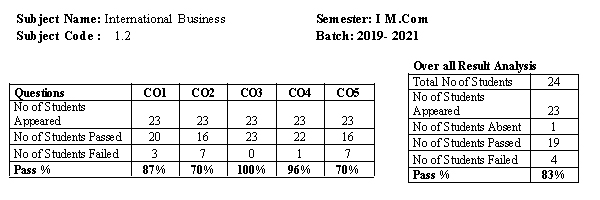 |
|
| Co - Attainment | 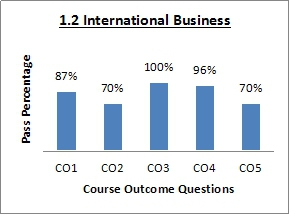 |
|
| Paper Code | 1.4 | |
| Title of the Paper | Information System and Computers | |
| Course Outcome |
|
|
| Analysis | 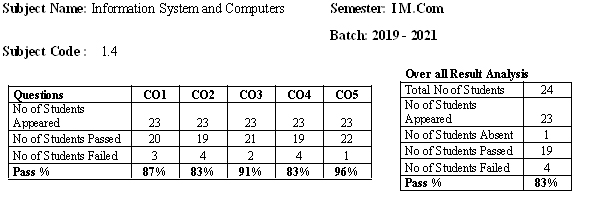 |
|
| Co - Attainment | 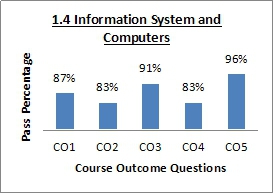 |
|
| Paper Code | 1.5 | |
| Title of the Paper | Advanced Financial Management | |
| Course Outcome |
|
|
| Analysis | 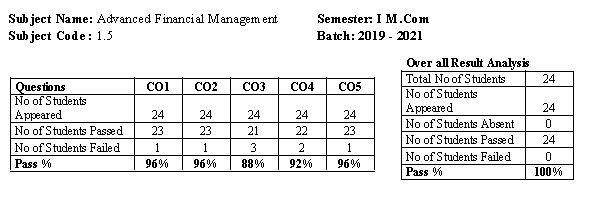 |
|
| Co - Attainment | 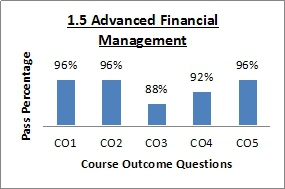 |
|
| Paper Code | 1.6 | |
| Title of the Paper | Human Resource Management | |
| Course Outcome |
|
|
| Analysis | 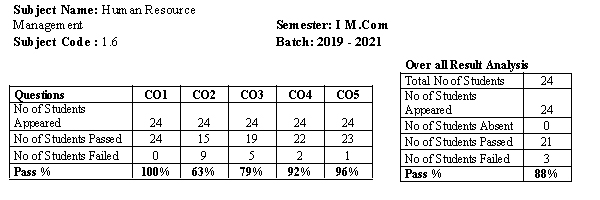 |
|
| Co - Attainment | 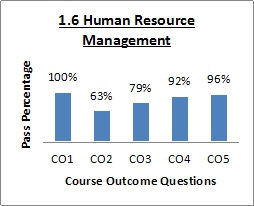 |
|
| Paper Code | 1.7 | |
| Title of the Paper | Communication Skills | |
| Course Outcome |
|
|
| Analysis | 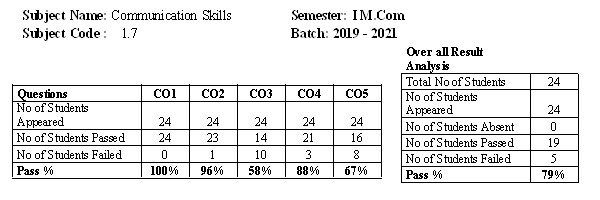 |
|
| Co - Attainment | 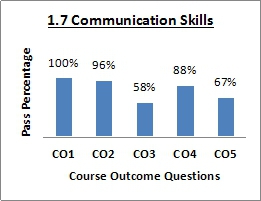 |
|
| Paper Code | 3.1 | |
| Title of the Paper | Business Ethics & Corporate Governance | |
| Course Outcome |
|
|
| Analysis | 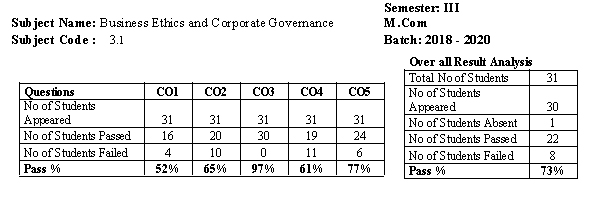 |
|
| Co - Attainment | 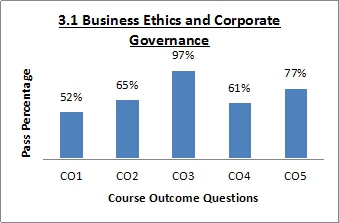 |
|
| Paper Code | 3.2 | |
| Title of the Paper | Corporate Financial Reporting | |
| Course Outcome |
|
|
| Analysis | 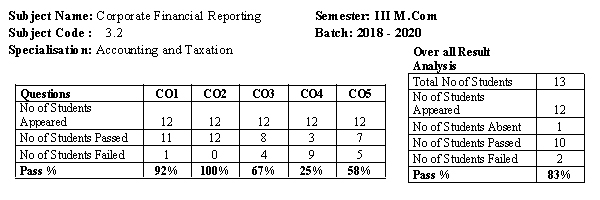 |
|
| Co - Attainment | 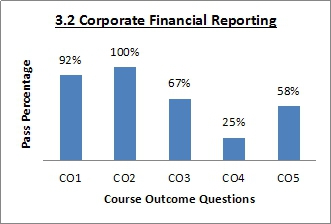 |
|
| Paper Code | 3.3 | |
| Title of the Paper | Accounting for Managerial Decision | |
| Course Outcome |
|
|
| Analysis | 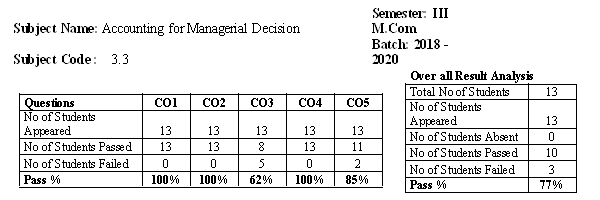 |
|
| Co - Attainment | 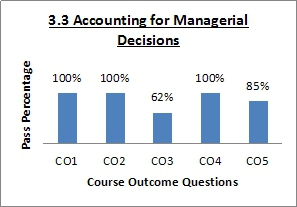 |
|
| Paper Code | 3.4 | |
| Title of the Paper | Strategic Cost Management – I | |
| Course Outcome |
|
|
| Analysis | 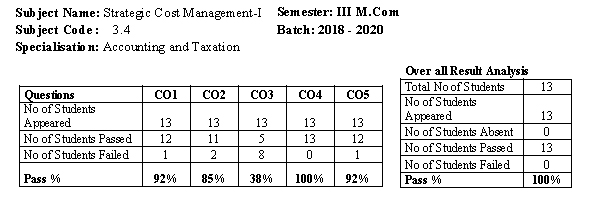 |
|
| Co - Attainment | 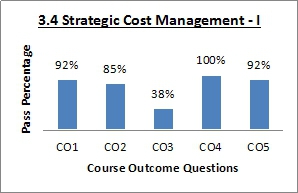 |
|
| Paper Code | 3.5 | |
| Title of the Paper | Direct Taxes & Planning | |
| Course Outcome |
|
|
| Analysis | 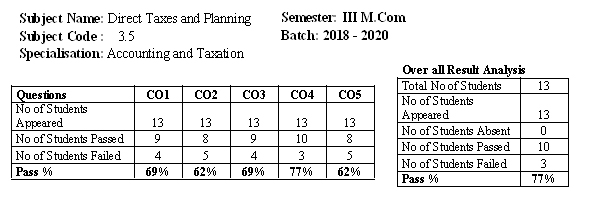 |
|
| Co - Attainment | 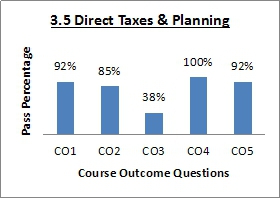 |
|
| Paper Code | 3.2 | |
| Title of the Paper | Financial Markets | |
| Course Outcome |
|
|
| Analysis | 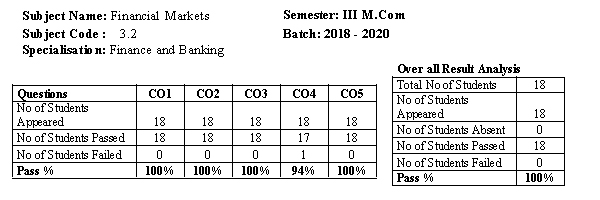 |
|
| Co - Attainment | 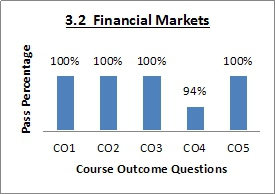 |
|
| Paper Code | 3.3 | |
| Title of the Paper | Financial Services | |
| Course Outcome |
|
|
| Analysis | 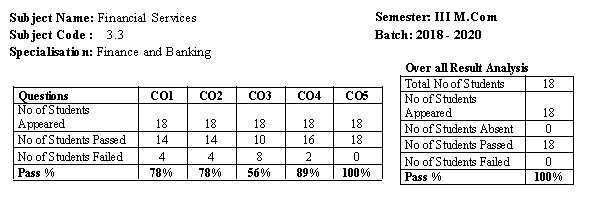 |
|
| Co - Attainment | 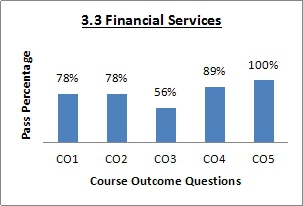 |
|
| Paper Code | 3.4 | |
| Title of the Paper | Security Analysis | |
| Course Outcome |
|
|
| Analysis | 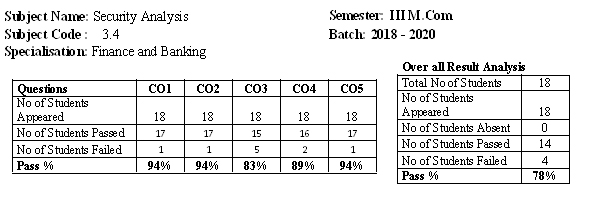 |
|
| Co - Attainment | 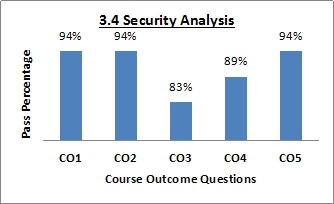 |
|
| Paper Code | 3.5 | |
| Title of the Paper | Portfolio Management | |
| Course Outcome |
|
|
| Analysis | 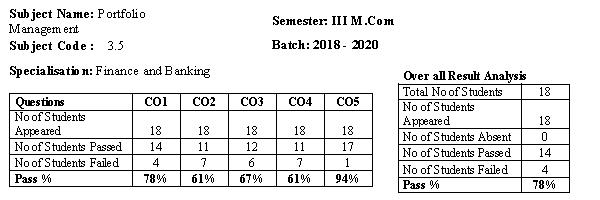 |
|
| Co - Attainment | 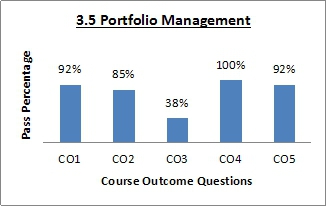 |
|
| Paper Code | 3.6 | |
| Title of the Paper | Open Elective: Cyber Space | |
| Course Outcome |
|
|
| Analysis | 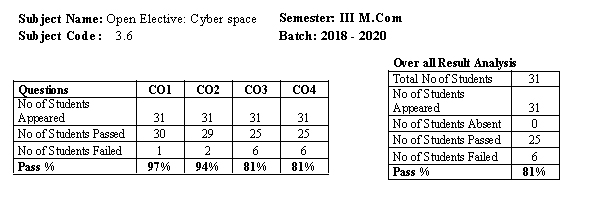 |
|
| Co - Attainment | 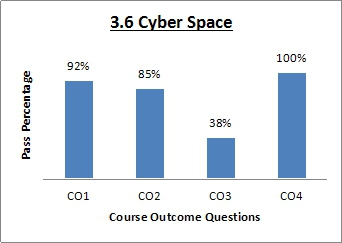 |
|
| Paper Code | 1.1 | |
| Title of the Paper | Accounting Conventions & Standards | |
| Course Outcome |
|
|
| Analysis | 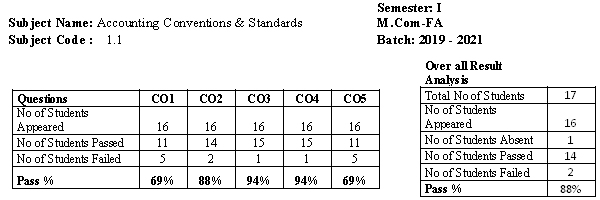 |
|
| Co - Attainment | 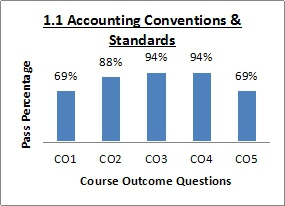 |
|
| Paper Code | 1.2 | |
| Title of the Paper | Managing People in Organisations | |
| Course Outcome |
|
|
| Analysis | 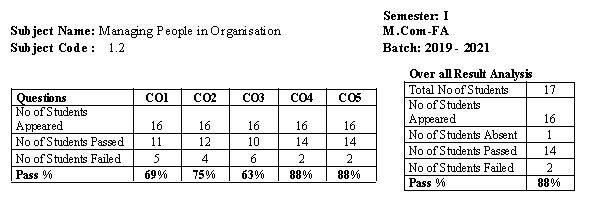 |
|
| Co - Attainment | 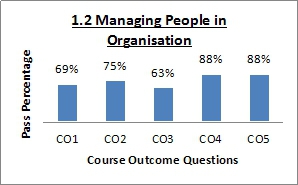 |
|
| Paper Code | 1.3 | |
| Title of the Paper | Micro & Macroeconomics for Business Decisions | |
| Course Outcome |
|
|
| Analysis | 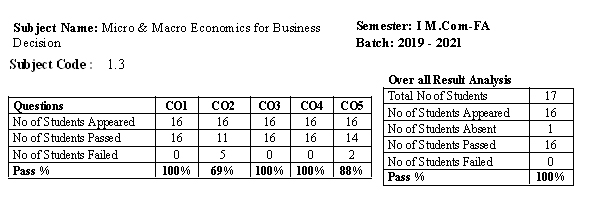 |
|
| Co - Attainment | 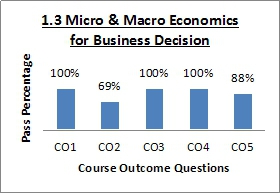 |
|
| Paper Code | 1.4 | |
| Title of the Paper | Managerial Finance | |
| Course Outcome |
|
|
| Analysis | 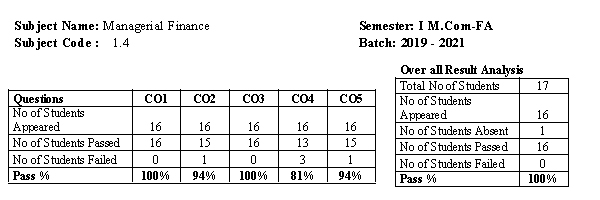 |
|
| Co - Attainment | 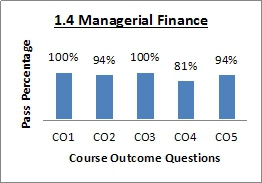 |
|
| Paper Code | 1.5 | |
| Title of the Paper | QT for Accounting and Finance | |
| Course Outcome |
|
|
| Analysis | 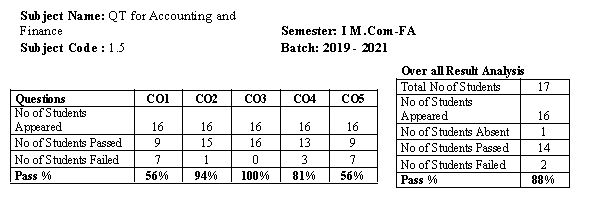 |
|
| Co - Attainment | 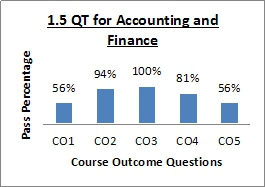 |
|
| Paper Code | 1.6 | |
| Title of the Paper | Financial Markets and Services | |
| Course Outcome |
|
|
| Analysis | 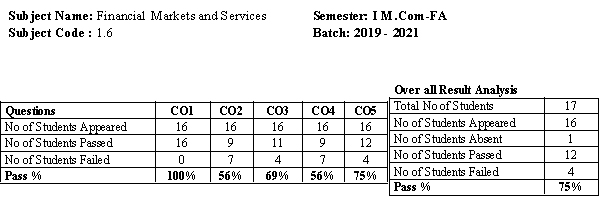 |
|
| Co - Attainment | 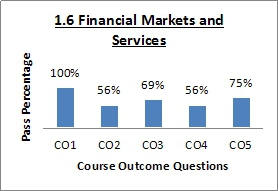 |
|
| Paper Code | 1.7 | |
| Title of the Paper | SOFT CORE : Business Legal Systems | |
| Course Outcome |
|
|
| Analysis | 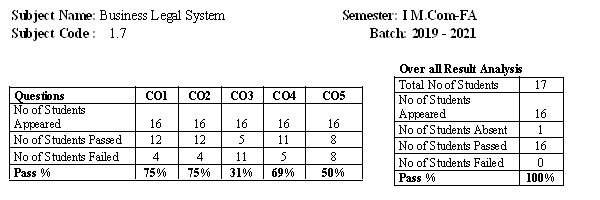 |
|
| Co - Attainment | 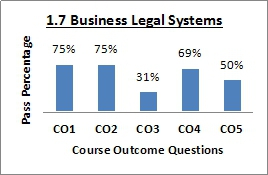 |
|
| Paper Code | 3.1 | |
| Title of the Paper | Business Ethics & Corporate Governance | |
| Course Outcome |
|
|
| Analysis | 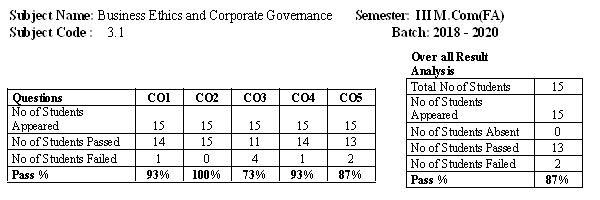 |
|
| Co - Attainment | 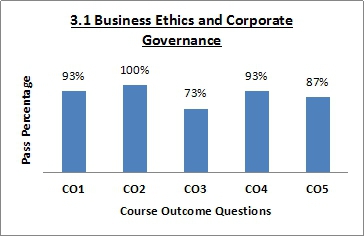 |
|
| Paper Code | 3.2 | |
| Title of the Paper | Goods and Service Taxes | |
| Course Outcome |
|
|
| Analysis | 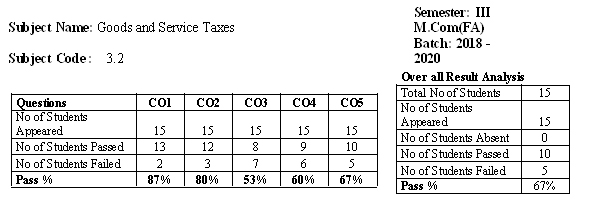 |
|
| Co - Attainment | 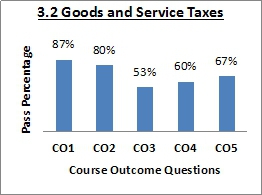 |
|
| Paper Code | 3.3 | |
| Title of the Paper | Forex and Derivatives | |
| Course Outcome |
|
|
| Analysis | 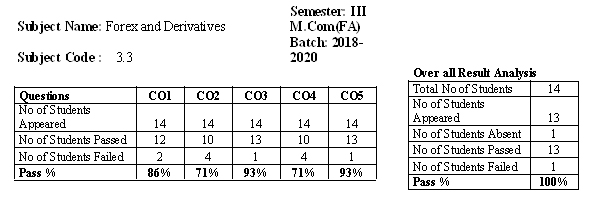 |
|
| Co - Attainment | 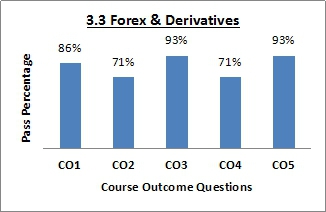 |
|
| Paper Code | 3.4 | |
| Title of the Paper | Insurance and Risk Management | |
| Course Outcome |
|
|
| Analysis | 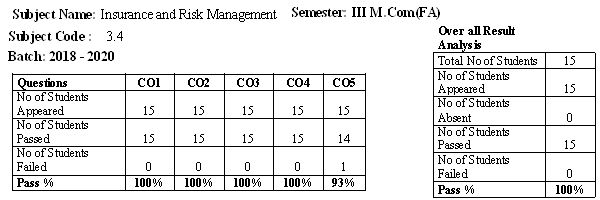 |
|
| Co - Attainment | 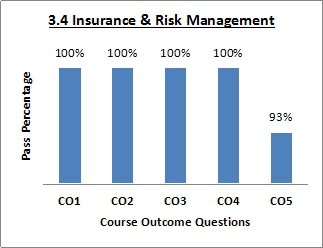 |
|
| Paper Code | 3.5 | |
| Title of the Paper | Advanced E – Business | |
| Course Outcome |
|
|
| Analysis | 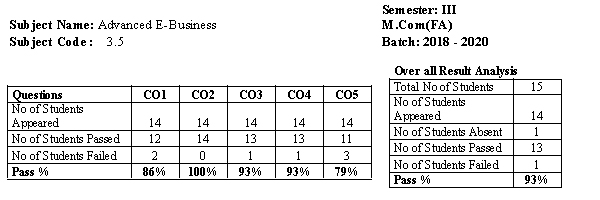 |
|
| Co - Attainment | 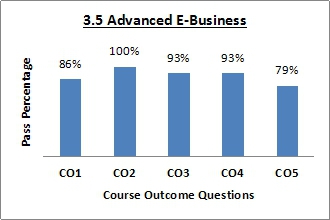 |
|
| Paper Code | 3.6 | |
| Title of the Paper | Open Elective: Cyber Space | |
| Course Outcome |
|
|
| Analysis | 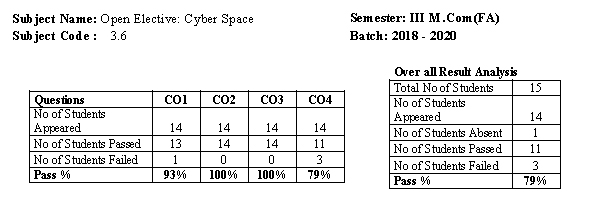 |
|
| Co - Attainment | 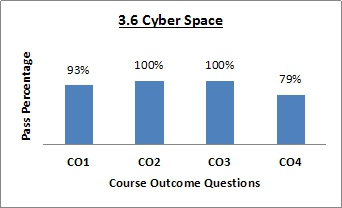 |
|
| Paper Code | A0221 | |
| Title of the Paper | Principles of Management | |
| Course Outcome |
|
|
| Analysis | 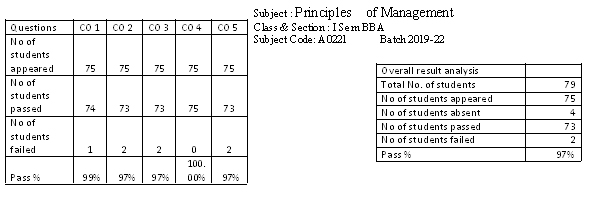 |
|
| Co - Attainment | 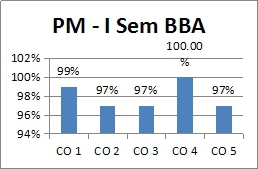 |
|
| Paper Code | A0211 | |
| Title of the Paper | Financial Accounting | |
| Course Outcome |
|
|
| Analysis | 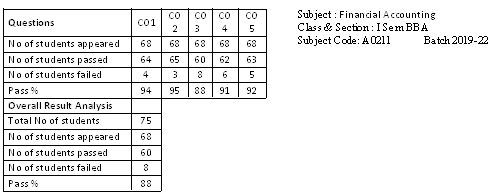 |
|
| Co - Attainment | 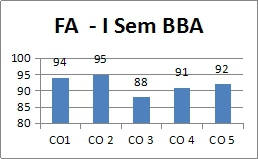 |
|
| Paper Code | A0241 | |
| Title of the Paper | Production and Operations Management | |
| Course Outcome |
|
|
| Analysis | 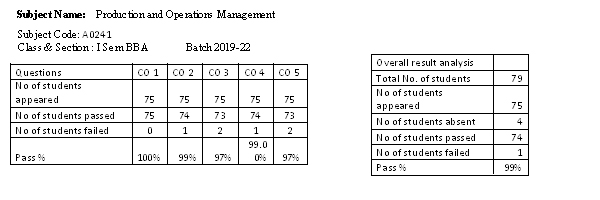 |
|
| Co - Attainment | 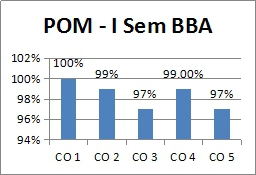 |
|
| Paper Code | A0231 | |
| Title of the Paper | Corporate Administration | |
| Course Outcome |
|
|
| Analysis | 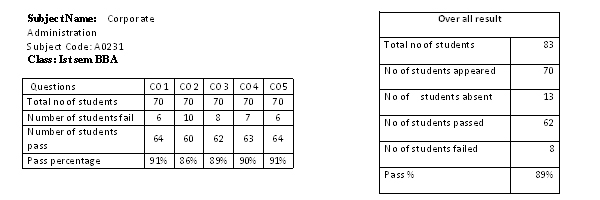 |
|
| Co - Attainment | 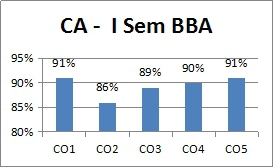 |
|
| Paper Code | BCAC3S | |
| Title of the Paper | Corporate Accounting | |
| Course Outcome |
|
|
| Analysis | 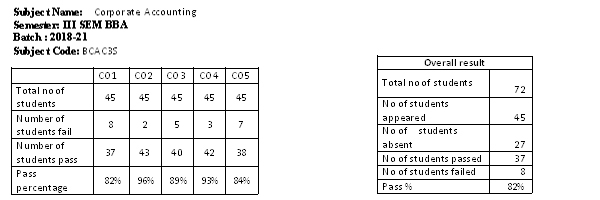 |
|
| Co - Attainment | 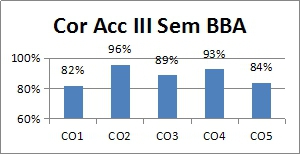 |
|
| Paper Code | BHRC3S | |
| Title of the Paper | Human Resource Management | |
| Course Outcome |
|
|
| Analysis | 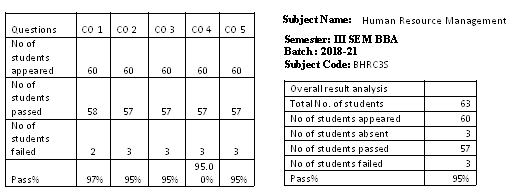 |
|
| Co - Attainment | 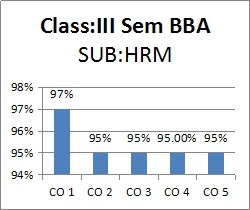 |
|
| Paper Code | BBEC3S | |
| Title of the Paper | Business Ethics | |
| Course Outcome |
|
|
| Analysis | 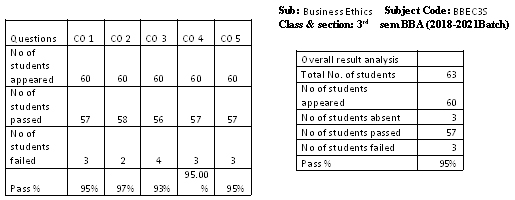 |
|
| Co - Attainment | 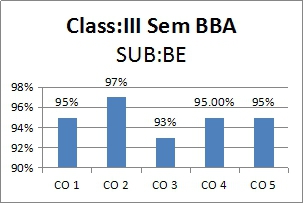 |
|
| Paper Code | BCEC3S | |
| Title of the Paper | Corporate Environment | |
| Course Outcome |
|
|
| Analysis | 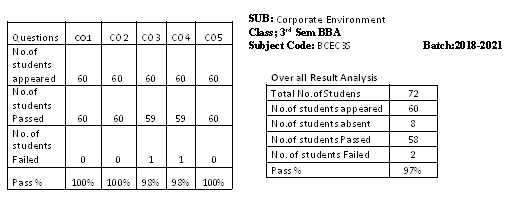 |
|
| Co - Attainment | 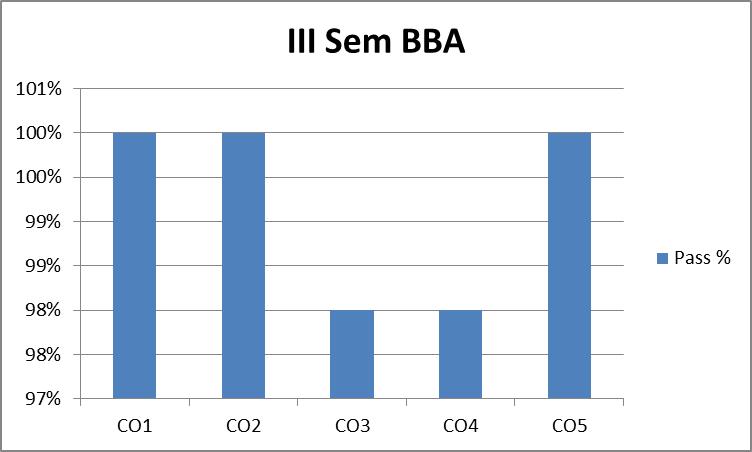 |
|
| Paper Code | BBRC3S | |
| Title of the Paper | Business Regulations | |
| Course Outcome |
|
|
| Analysis | 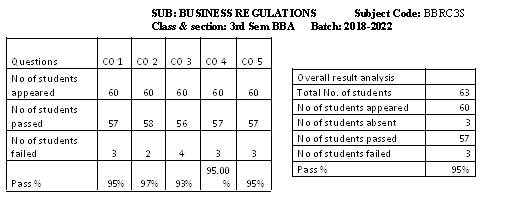 |
|
| Co - Attainment | 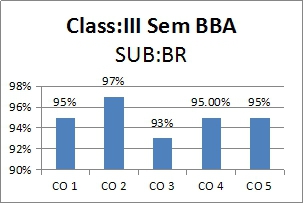 |
|
| Paper Code | BEMC5S | |
| Title of the Paper | Entrepreneurial Management | |
| Course Outcome |
|
|
| Analysis | 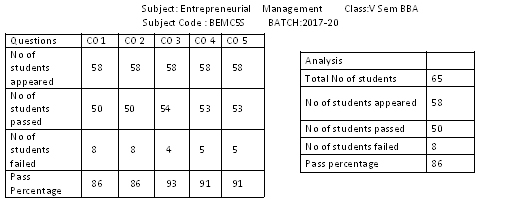 |
|
| Co - Attainment | 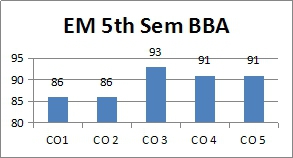 |
|
| Paper Code | BCAC5S | |
| Title of the Paper | Computer application in Business | |
| Course Outcome |
|
|
| Analysis | 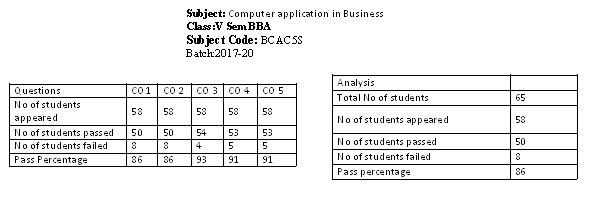 |
|
| Co - Attainment | 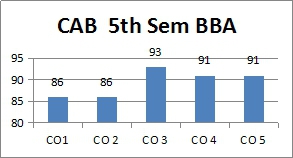 |
|
| Paper Code | BNFC6S | |
| Title of the Paper | Investment Management | |
| Course Outcome |
|
|
| Analysis | 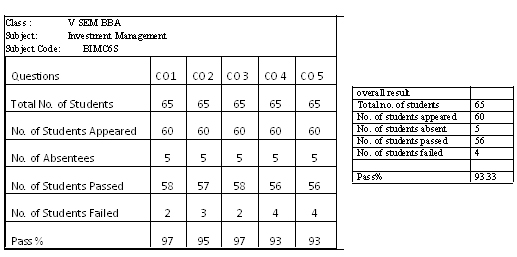 |
|
| Co - Attainment | 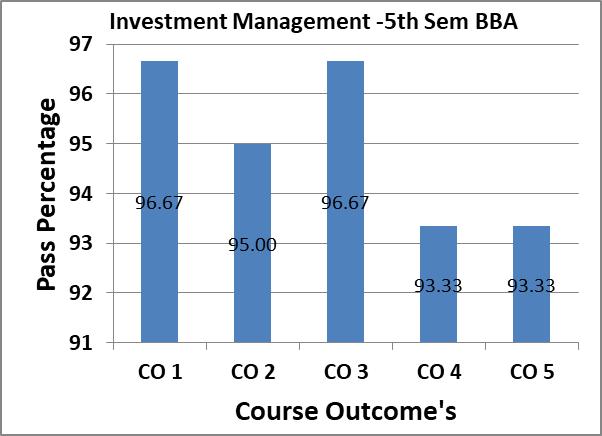 |
|
| Paper Code | BMAC5S | |
| Title of the Paper | Management Accounting | |
| Course Outcome |
|
|
| Analysis | 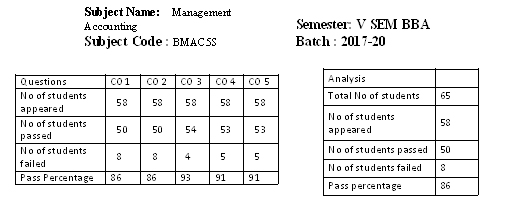 |
|
| Co - Attainment | 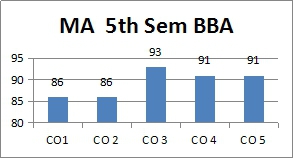 |
|
| Paper Code | AFMC5S | |
| Title of the Paper | Advanced Financial Management | |
| Course Outcome |
|
|
| Analysis | 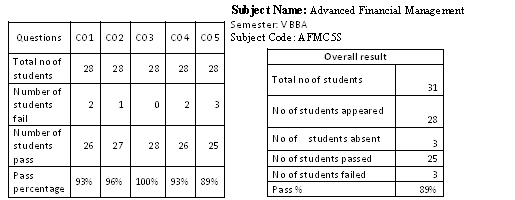 |
|
| Co - Attainment | 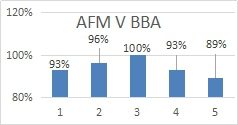 |
|
| Paper Code | FMSC5S | |
| Title of the Paper | Financial Markets & Services | |
| Course Outcome |
|
|
| Analysis | 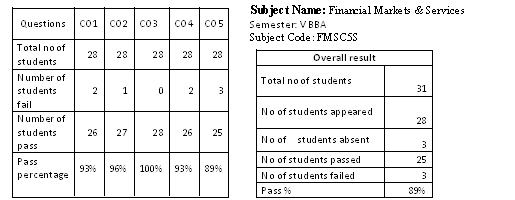 |
|
| Co - Attainment | 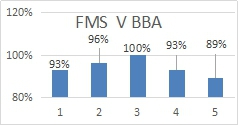 |
|
| Paper Code | EWEC5S | |
| Title of the Paper | Employee Welfare & Social Security | |
| Course Outcome |
|
|
| Analysis | 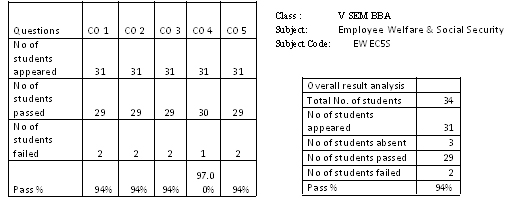 |
|
| Co - Attainment | 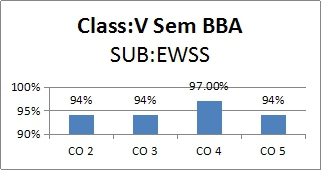 |
|
| Paper Code | HRMC5S | |
| Title of the Paper | Strategic HRM | |
| Course Outcome |
|
|
| Analysis | 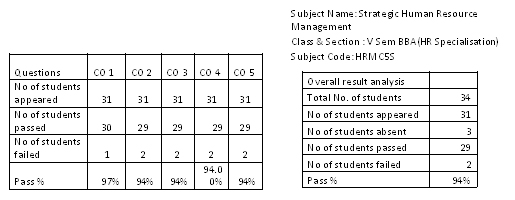 |
|
| Co - Attainment | 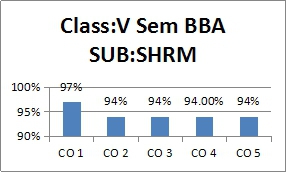 |
|
| Paper Code | A0240 | |
| Title of the Paper | INTRODUCTION TO AIRLINE INDUSTRY | |
| Course Outcome |
|
|
| Analysis | 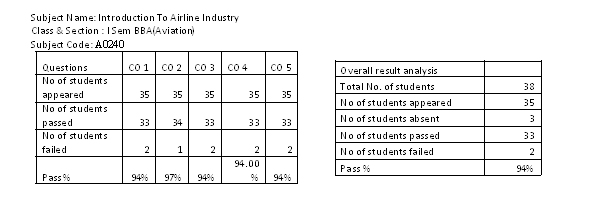 |
|
| Co - Attainment | 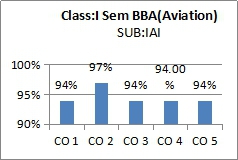 |
|
| Paper Code | A0210 | |
| Title of the Paper | FUNDAMENTALS OF MANAGEMENT | |
| Course Outcome |
|
|
| Analysis | 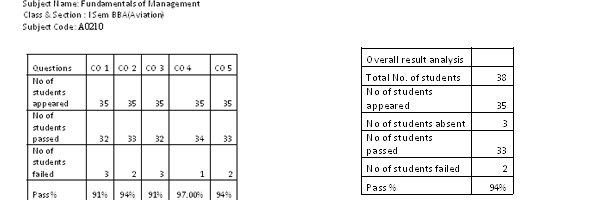 |
|
| Co - Attainment | 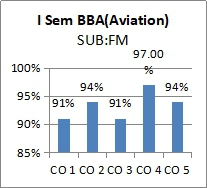 |
|
| Paper Code | A0220 | |
| Title of the Paper | Accounting & Management Decisions | |
| Course Outcome |
|
|
| Analysis | 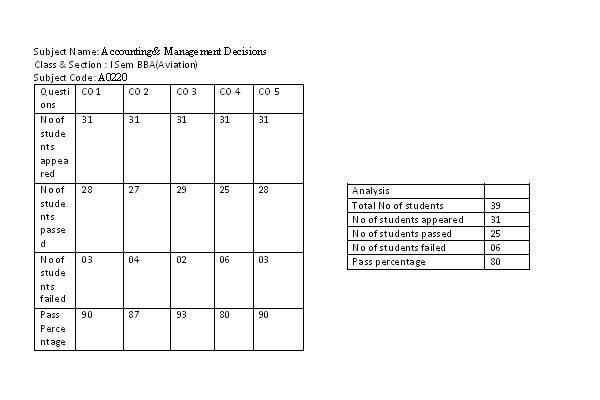 |
|
| Co - Attainment | 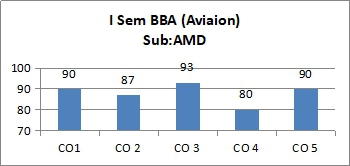 |
|
| Paper Code | CS1T | |
| Title of the Paper | Programming Concepts using C | |
| Course Outcome |
|
|
| Analysis | 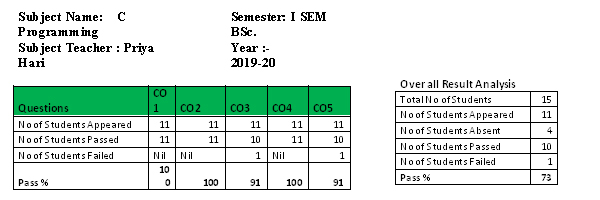 |
|
| Co - Attainment | 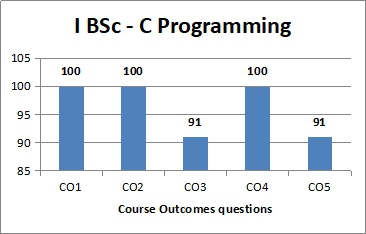 |
|
| Paper Code | CS3T | |
| Title of the Paper | Database Management System and Software Engineering | |
| Course Outcome |
|
|
| Analysis | 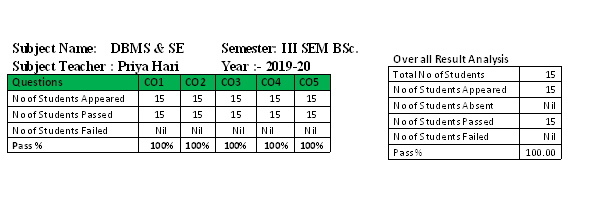 |
|
| Co - Attainment | 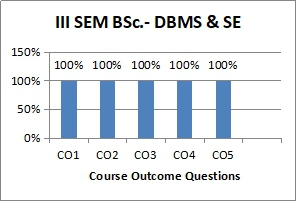 |
|
| Paper Code | CS5T1 | |
| Title of the Paper | Object Oriented Programming using JAVA | |
| Course Outcome |
|
|
| Analysis | 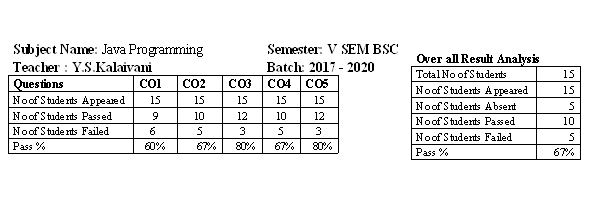 |
|
| Co - Attainment | 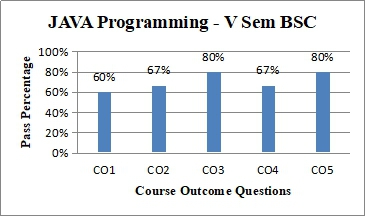 |
|
| Paper Code | CS5T2 | |
| Title of the Paper | Visual Programming | |
| Course Outcome |
|
|
| Analysis | 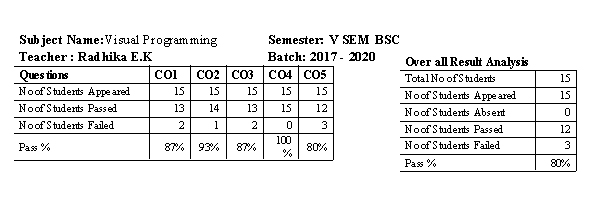 |
|
| Co - Attainment | 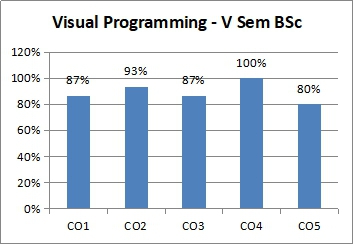 |
|
| Paper Code | EL-101T | |
| Title of the Paper | Basic Electronics | |
| Course Outcome |
|
|
| Analysis | 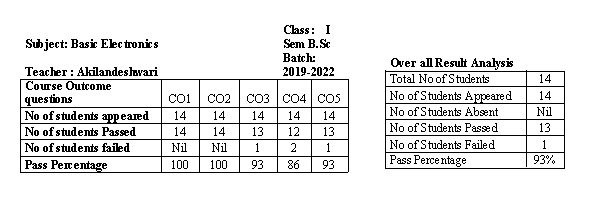 |
|
| Co - Attainment | 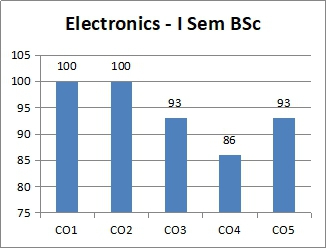 |
|
| Paper Code | EL-301T | |
| Title of the Paper | Linear Integrated Circuits & C Programming | |
| Course Outcome |
|
|
| Analysis | 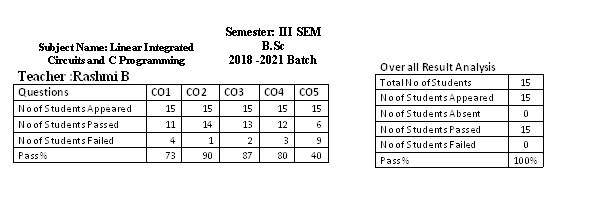 |
|
| Co - Attainment | 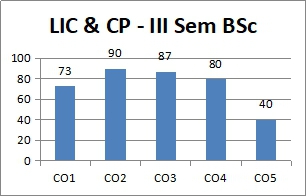 |
|
| Paper Code | EL-501T | |
| Title of the Paper | Communication I | |
| Course Outcome |
|
|
| Analysis | 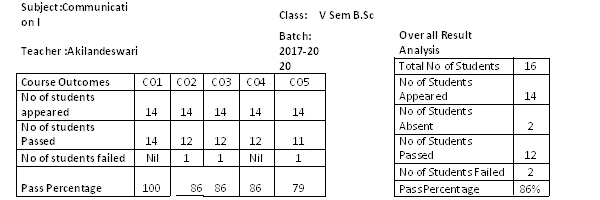 |
|
| Co - Attainment | 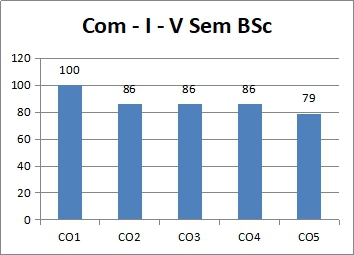 |
|
| Paper Code | EL-502T | |
| Title of the Paper | Microprocessors & Instrumentation | |
| Course Outcome |
|
|
| Analysis | 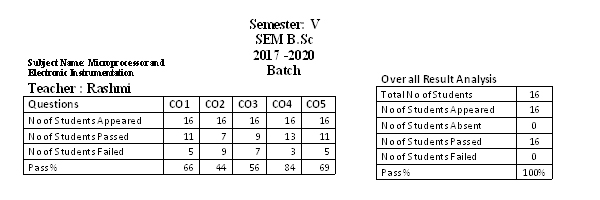 |
|
| Co - Attainment | 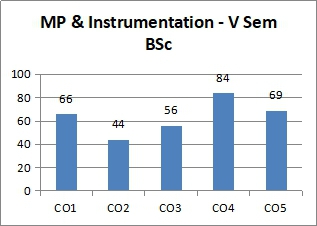 |
|
| Paper Code | ||
| Title of the Paper | Yakshaprashna Sangraha & Grammar | |
| Course Outcome |
|
|
| Analysis | 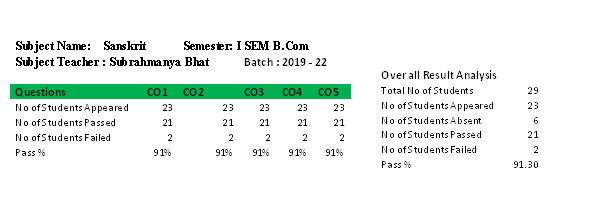 |
|
| Co - Attainment | 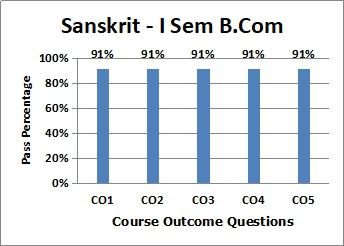 |
|
| Paper Code | ||
| Title of the Paper | Aranya Khanda (Champu Ramayana) & Grammar | |
| Course Outcome |
|
|
| Analysis | 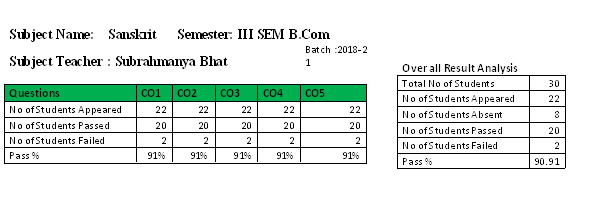 |
|
| Co - Attainment | 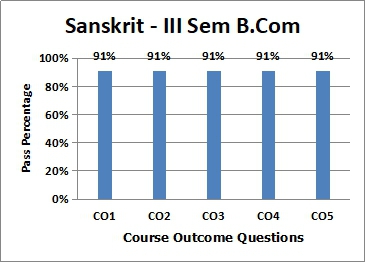 |
|
| Paper Code | ||
| Title of the Paper | Raghuvamsha 5th Canto & Grammar | |
| Course Outcome |
|
|
| Analysis | 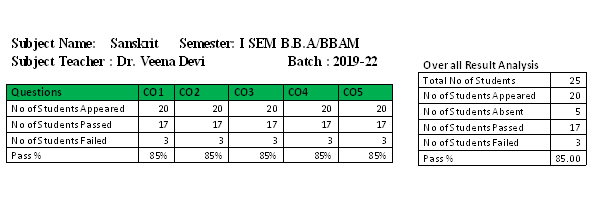 |
|
| Co - Attainment | 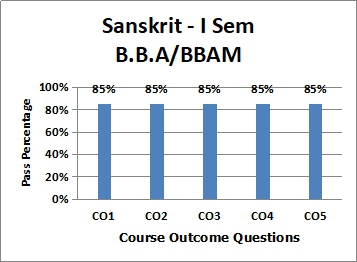 |
|
| Paper Code | ||
| Title of the Paper | Balakanda (Champuramayanam) & Grammar | |
| Course Outcome |
|
|
| Analysis | 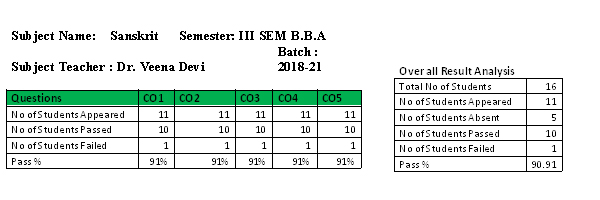 |
|
| Co - Attainment | 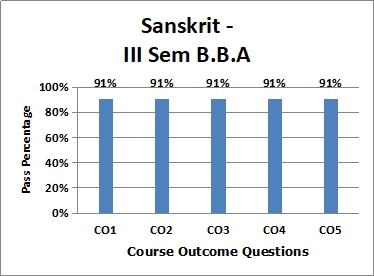 |
|
| Paper Code | ||
| Title of the Paper | Meghadutam & Grammar | |
| Course Outcome |
|
|
| Analysis | 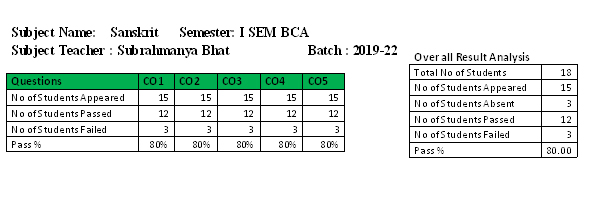 |
|
| Co - Attainment | 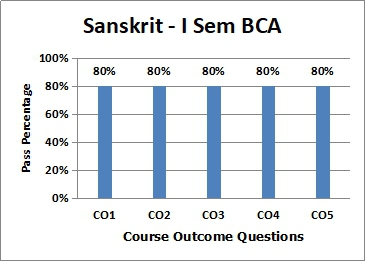 |
|
| Paper Code | ||
| Title of the Paper | Ayodhyakanda (Champuramayana) & Grammar | |
| Course Outcome |
|
|
| Analysis | 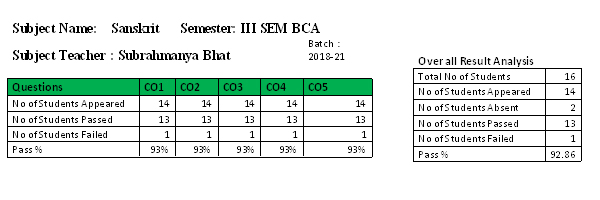 |
|
| Co - Attainment | 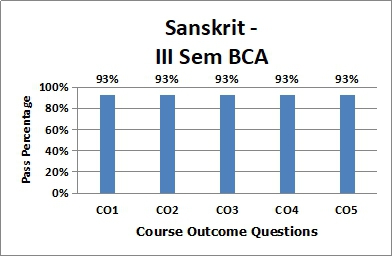 |
|
| Paper Code | ||
| Title of the Paper | Kumarasambhavam 2nd Canto & Grammar | |
| Course Outcome |
|
|
| Analysis | 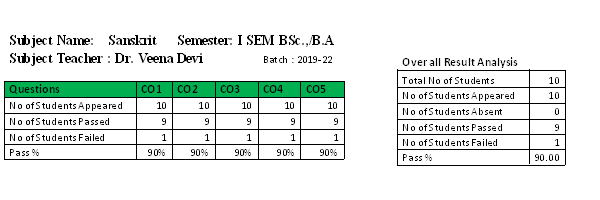 |
|
| Co - Attainment | 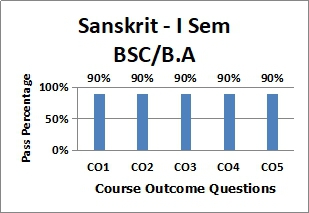 |
|
| Paper Code | ||
| Title of the Paper | Sundarakanda of Champuramayana & Grammar | |
| Course Outcome |
|
|
| Analysis | 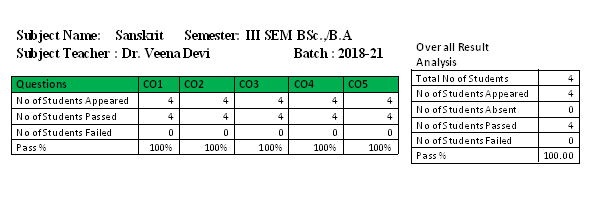 |
|
| Co - Attainment | 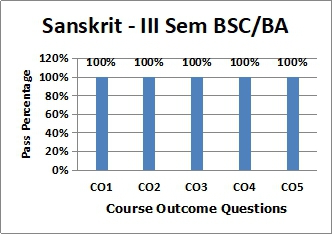 |
|
| Paper Code | CC22N1 | |
| Title of the paper | Advanced Financial Accounting | |
| Course Outcome | Students will be able
|
|
| Analysis |
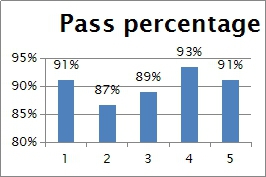
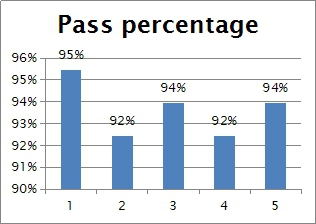
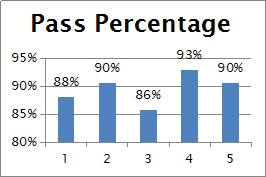
|
|
| Co - Attainment | 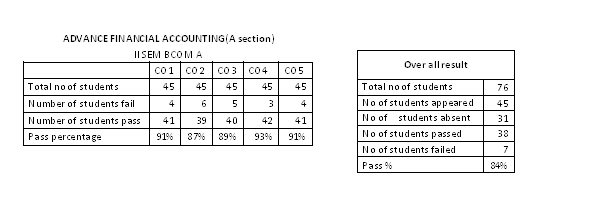 |
|
| Co - Attainment | 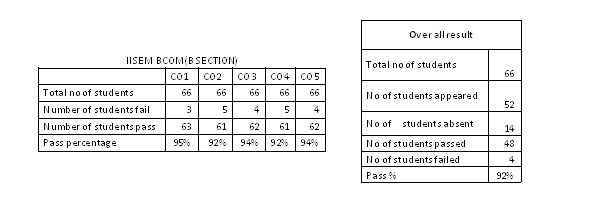 |
|
| Co - Attainment | 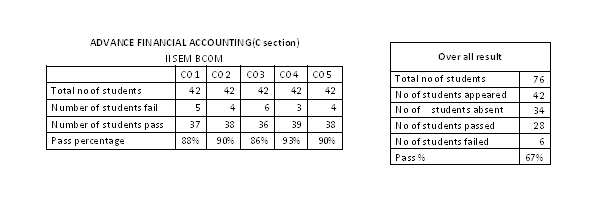 |
|
| Paper Code | CC22N2 | |
| Title of the paper | Retail Management | |
| Course Outcome | Students can evaluate
|
|
| Analysis | 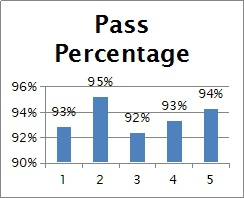 |
|
| Co - Attainment | 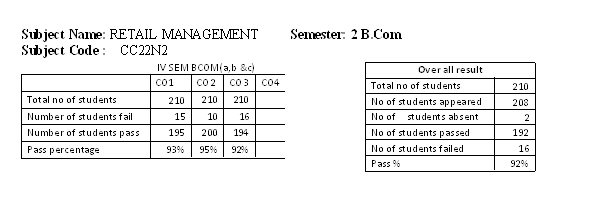 |
|
| Paper Code | CC22N3 | |
| Title of the paper | Banking Law and Operations | |
| Course Outcome | Students will be familiarized
|
|
| Analysis |
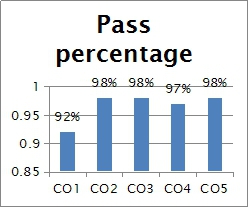
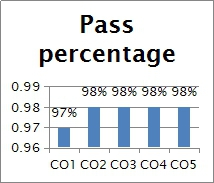
|
|
| Co - Attainment | 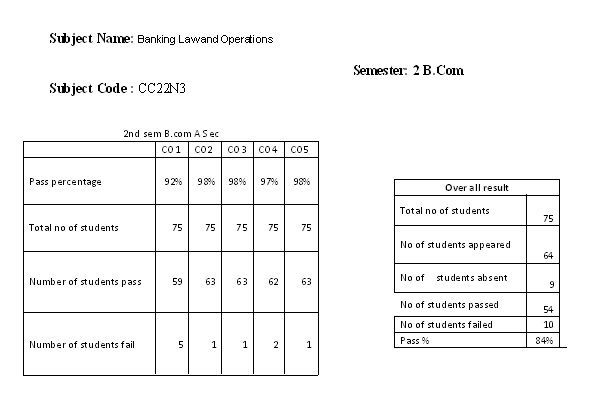 |
|
| Co - Attainment | 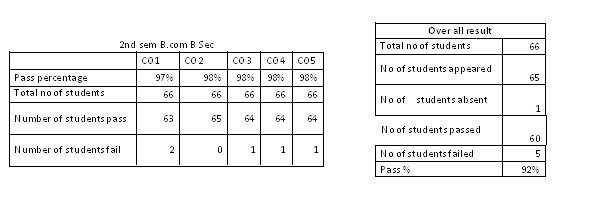 |
|
| Paper Code | CC14N2 | |
| Title of the paper | Advanced Corporate Accounting | |
| Course Outcome | Students will be convergant with
|
|
| Analysis |
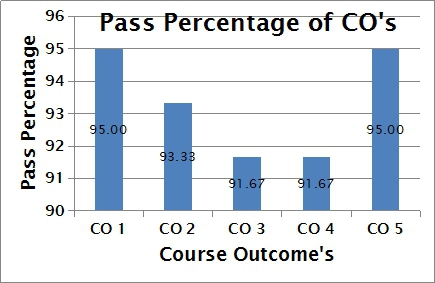
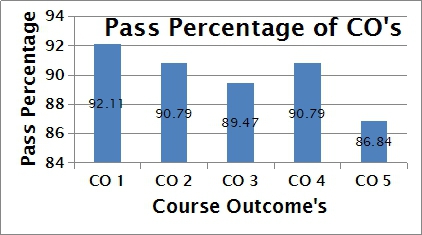
|
|
| Co - Attainment | 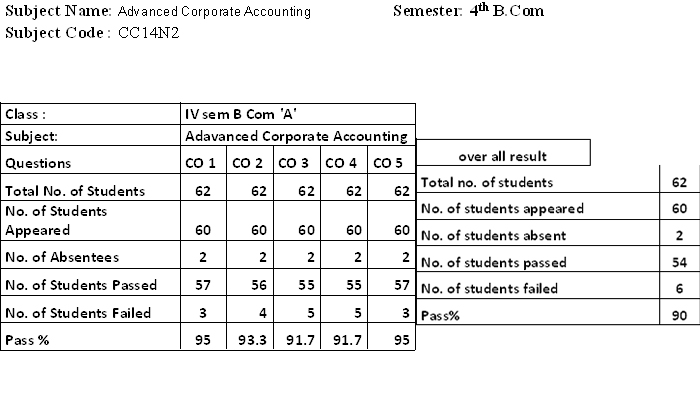 |
|
| Co - Attainment | 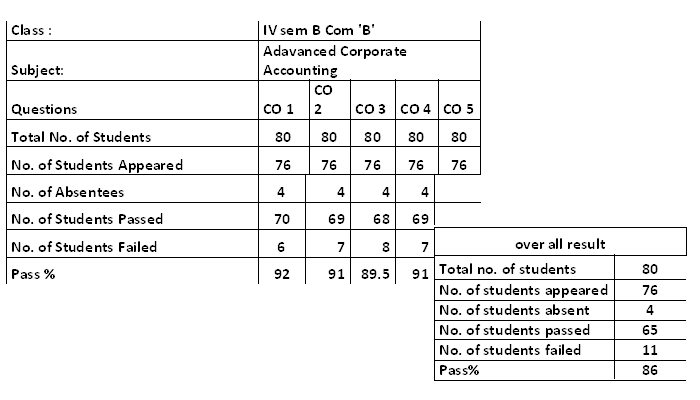 |
|
| Paper Code | CC14N2 | |
| Title of the paper | Cost Accounting | |
| Course Outcome | Students can understand
|
|
| Analysis |
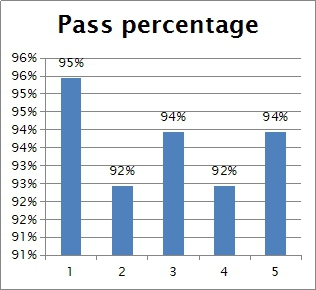
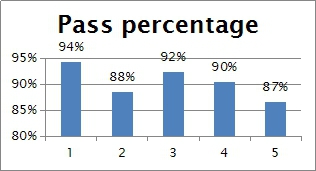
|
|
| Co - Attainment | 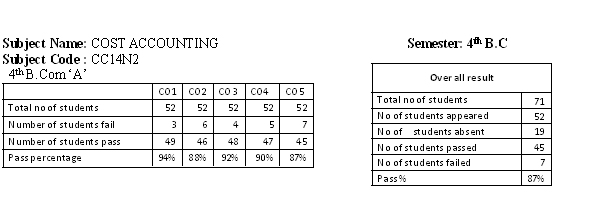 |
|
| Co - Attainment | 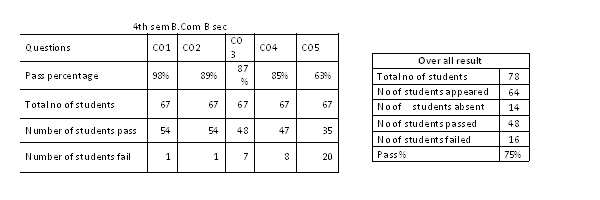 |
|
| Paper Code | CC14N3 | |
| Title of the paper | E-Business Accounting | |
| Course Outcome | Students will gain adequate knowledge about
|
|
| Analysis | 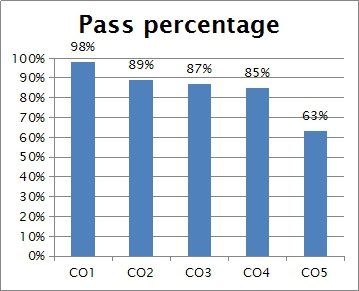 |
|
| Co - Attainment |  |
|
| Paper Code | CC14N4 | |
| Title of the paper | Stock and Commodity Market | |
| Course Outcome | Students are introduced
|
|
| Analysis | 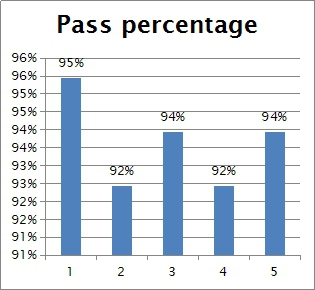 |
|
| Co - Attainment |  |
|
| Paper Code | CC14N5 | |
| Title of the paper | Principles of Event Management | |
| Course Outcome | Students will gain knowledge about
|
|
| Analysis | 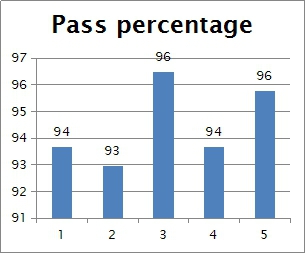 |
|
| Co - Attainment | 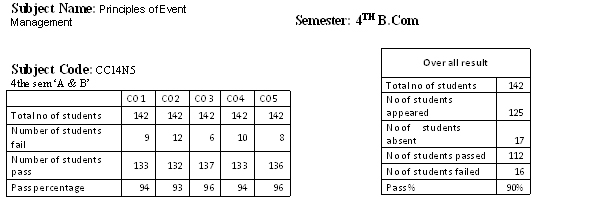 |
|
| Paper Code | CC16N1 | |
| Title of the paper | Business Regulations | |
| Course Outcome | Students will be able to understand
|
|
| Analysis | 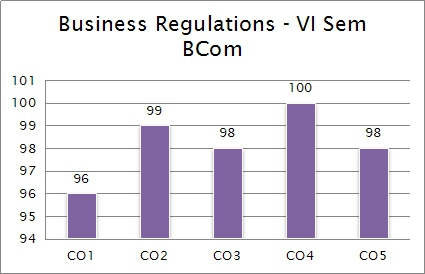 |
|
| Co - Attainment |  |
|
| Paper Code | CC16N2 | |
| Title of the paper | Principles and Practice of Auditing | |
| Course Outcome | Students get familiarized with
|
|
| Analysis | 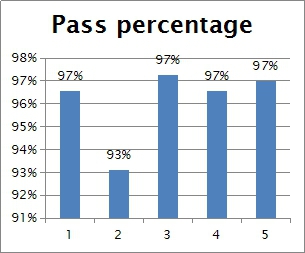 |
|
| Co - Attainment | 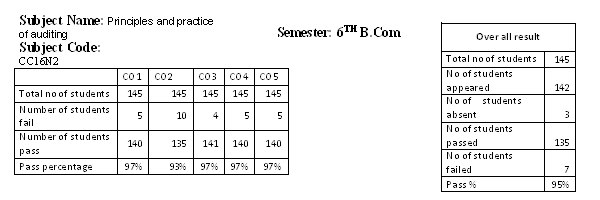 |
|
| Paper Code | CC16N3 | |
| Title of the paper | Income Tax - II | |
| Course Outcome | Students will get to know
|
|
| Analysis | 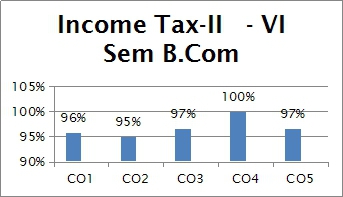 |
|
| Co - Attainment |  |
|
| Paper Code | CC16N4 | |
| Title of the paper | Management Accounting | |
| Course Outcome | Students get familiarized
|
|
| Analysis | 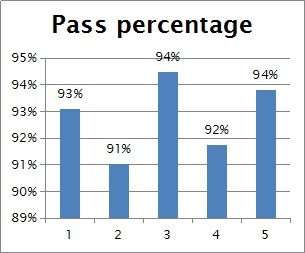 |
|
| Co - Attainment |  |
|
| Paper Code | CCE6N1 | |
| Title of the paper | Business Taxation (Accounting and Taxation) | |
| Course Outcome | Students get to
|
|
| Analysis | 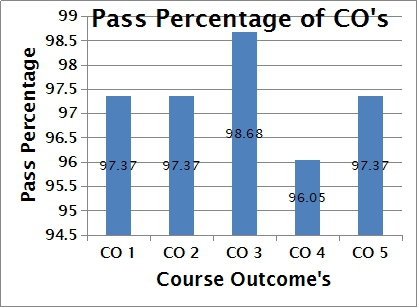 |
|
| Co - Attainment | 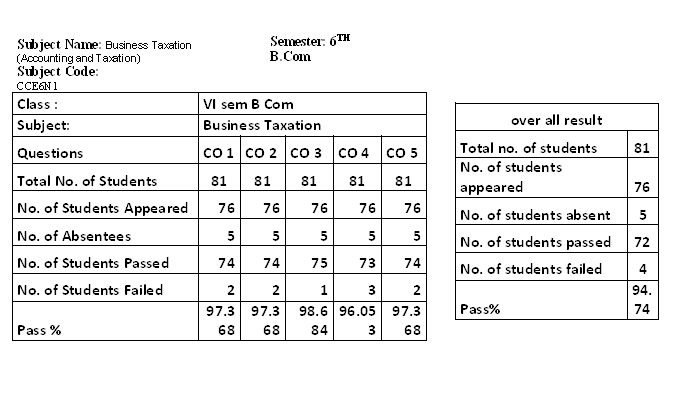 |
|
| Paper Code | CCE6N2 | |
| Title of the paper | Cost Management(Accounting and Taxation ) | |
| Course Outcome | Students will be able
|
|
| Analysis | 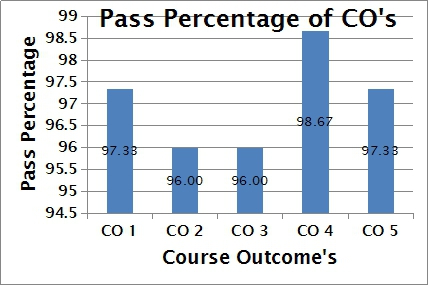 |
|
| Co - Attainment |  |
|
| Paper Code | FN6.5 | |
| Title of the paper | Performance Management(Finance) | |
| Course Outcome | Students can
|
|
| Analysis | 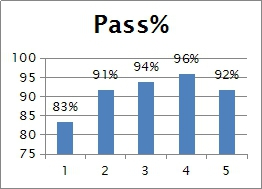 |
|
| Co - Attainment | 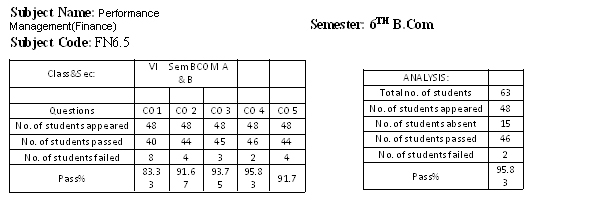 |
|
| Paper Code | FN 6.6 | |
| Title of the paper | International Auditing and Assurance (Finance) | |
| Course Outcome | Students can
|
|
| Analysis | 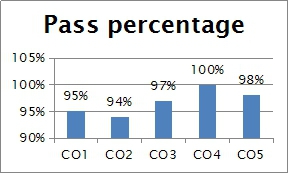 |
|
| Co - Attainment | 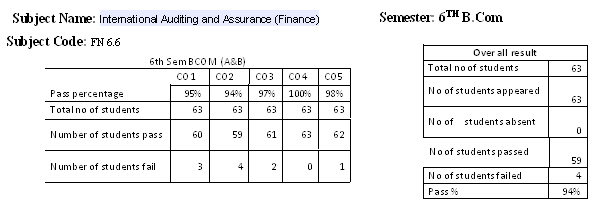 |
|
| Paper Code | BFAC2S | |||
| Title of the paper | Financial Accounting - II | |||
| Course Outcome | The objective of this subject is to acquaint students with the
|
|||
| Analysis |

Co - Attainment |
 |
||
| Paper Code | BRBC2S | |
| Title of the paper | Organizational Behaviour | |
| Course Outcome | It enables the students to understand:
|
|
| Analysis |  |
|
| Co - Attainment |  |
|
| Paper Code | BPMC2S | |||
| Title of the paper | Production and Operations Management | |||
| Course Outcome |
|
|||
| Analysis |

Co - Attainment |
 |
||
| Paper Code | BRMC4S | |||
| Title of the paper | Business research methods | |||
| Course Outcome | Provides awareness regarding
|
|||
| Analysis |

Co - Attainment |
 |
||
| Paper Code | BFMC4S | |||
| Title of the paper | Financial Management | |||
| Course Outcome | It provides understanding of
|
|||
| Analysis |

Co - Attainment |
 |
||
| Paper Code | BSMC4S | |
| Title of the paper | Services Management | |
| Course Outcome | The students will be familiar with
|
|
| Analysis |  |
|
| Co - Attainment |  |
|
| Paper Code | BMMC4S | |
| Title of the paper | Marketing Management | |
| Course Outcome | It enables students to learn
|
|
| Analysis |  |
|
| Co - Attainment |  |
|
| Paper Code | BREC4S | |
| Title of the paper | Banking Regulations & Operations | |
| Course Outcome | Students will understand
|
|
| Analysis |  |
|
| Co - Attainment |  |
|
| Paper Code | BCAC4S | |
| Title of the paper | Cost Accounting | |
| Course Outcome | Students will
|
|
| Analysis |  |
|
| Co - Attainment |  |
|
| Paper Code | BNBC6S | |
| Title of the paper | International Business | |
| Course Outcome | Students will be facilitated with
|
|
| Analysis |  |
|
| Co - Attainment |  |
|
| Paper Code | BEBC6S | |
| Title of the paper | E - Business | |
| Course Outcome | Students will understand
|
|
| Analysis |  |
|
| Co - Attainment |  |
|
| Paper Code | BNTC6S | |
| Title of the paper | Income Tax | |
| Course Outcome | Students will be able to understand
|
|
| Analysis |  |
|
| Co - Attainment |  |
|
| Paper Code | BSMC6S | |
| Title of the paper | Strategic Management | |
| Course Outcome | Students gets exposed to
|
|
| Analysis |  |
|
| Co - Attainment |  |
|
| Paper Code | BNFC6S | |
| Title of the paper | International Finance | |
| Course Outcome | Students will gain knowledge of
|
|
| Analysis |  |
|
| Co - Attainment |  |
|
| Paper Code | BSCC6S | |
| Title of the paper | Stock and Commodity Markets | |
| Course Outcome | It provides students with
|
|
| Analysis |  |
|
| Co - Attainment |  |
|
| Paper Code | BCDC6S | |
| Title of the paper | Organizational Change & Development | |
| Course Outcome | Students will know about
|
|
| Analysis |  |
|
| Co - Attainment |  |
|
| Paper Code | BCMC6S | |
| Title of the paper | Compensation Managemen | |
| Course Outcome | Students will be able to understand
|
|
| Analysis |  |
|
| Co - Attainment |  |
|
| Paper Code | BCA203 | |
| Title of the paper | Data structures | |
| Course Outcome |
|
|
| Analysis | 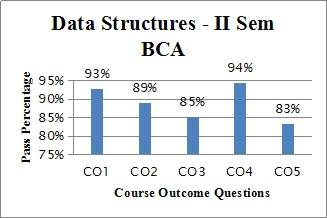 |
|
| Co - Attainment | 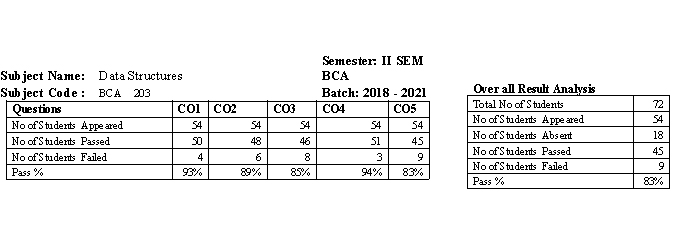 |
|
| Paper Code | BCA204 | |
| Title of the paper | Database Management System | |
| Course Outcome |
|
|
| Analysis | 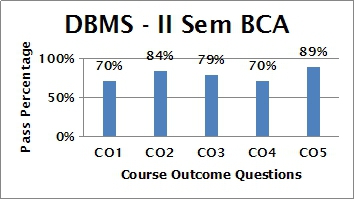 |
|
| Co - Attainment | 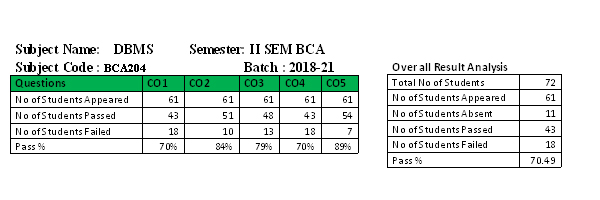 |
|
| Paper Code | BCA403 | |
| Title of the paper | Visual Programming | |
| Course Outcome |
|
|
| Analysis | 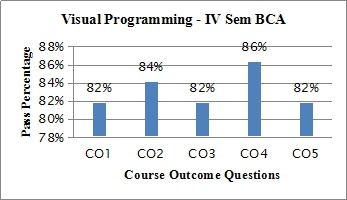 |
|
| Co - Attainment | 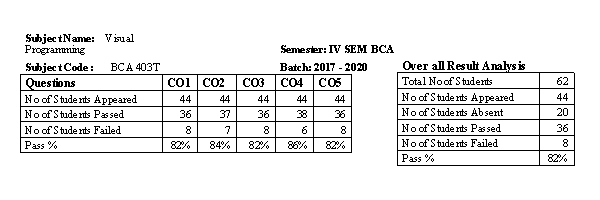 |
|
| Paper Code | BCA404 | |
| Title of the paper | Unix Shell programming | |
| Course Outcome |
|
|
| Analysis | 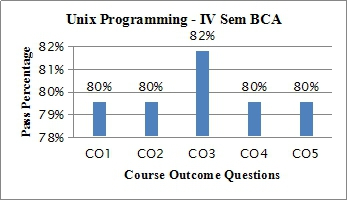 |
|
| Co - Attainment | 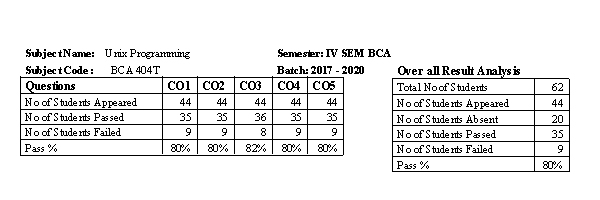 |
|
| Paper Code | BCA601 | |
| Title of the paper | Theory of Computation | |
| Course Outcome |
|
|
| Analysis | 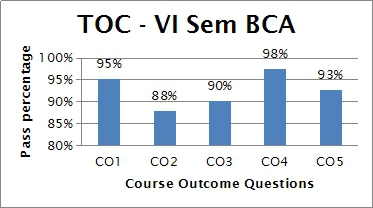 |
|
| Co - Attainment | 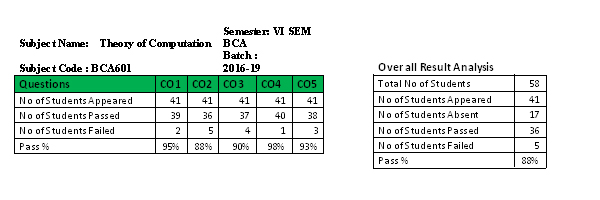 |
|
| Paper Code | BCA602 | |
| Title of the paper | System Programming | |
| Course Outcome |
|
|
| Analysis | 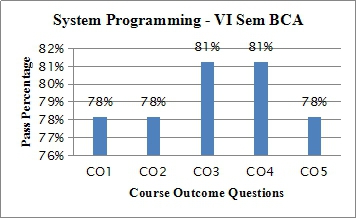 |
|
| Co - Attainment | 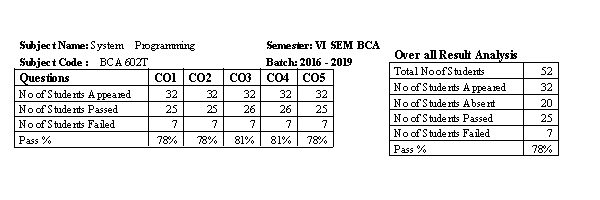 |
|
| Paper Code | BCA603 | |
| Title of the paper | Cryptography and Network Security | |
| Course Outcome |
|
|
| Analysis | 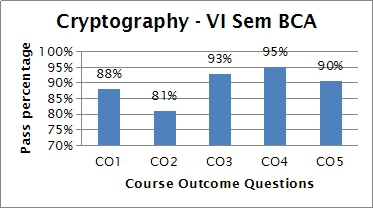 |
|
| Co - Attainment | 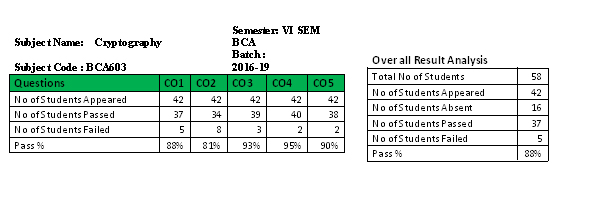 |
|
| Paper Code | BCA604 | |
| Title of the paper | Web Programming | |
| Course Outcome |
|
|
| Analysis | 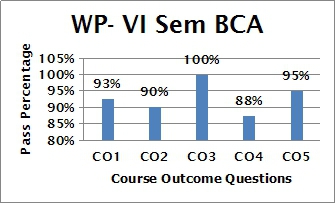 |
|
| Co - Attainment | 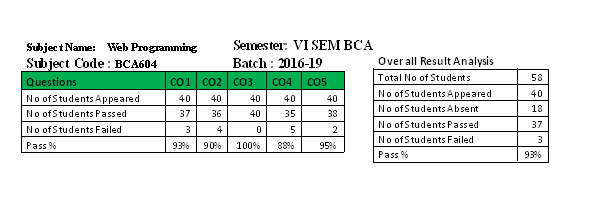 |
|
| Paper Code | CS2T | |
| Title of the paper | Data Structures | |
| Course Outcome |
|
|
| Analysis | 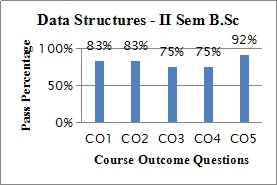 |
|
| Co - Attainment |  |
|
| Paper Code | CS4T | |
| Title of the paper | Operating System and UNIX | |
| Course Outcome |
|
|
| Analysis | 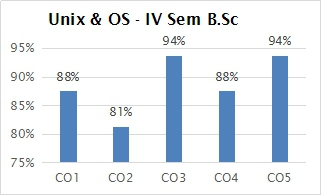 |
|
| Co - Attainment | 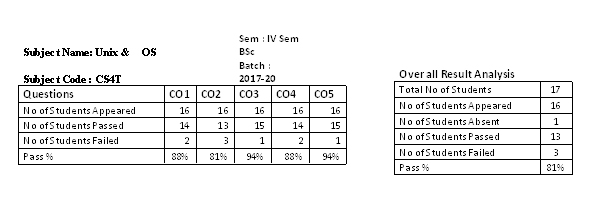 |
|
| Paper Code | CS6T1 | |
| Title of the paper | Web Programming | |
| Course Outcome |
|
|
| Analysis | 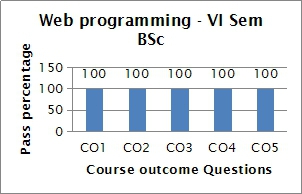 |
|
| Co - Attainment |  |
|
| Paper Code | CS6T2 | |
| Title of the paper | Computer Networks | |
| Course Outcome |
|
|
| Analysis | 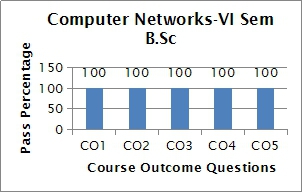 |
|
| Co - Attainment |  |
|
| Paper Code | EL-201T | |
| Title of the paper | Electronic Circuits & Special Purpose devices | |
| Course Outcome |
|
|
| Analysis | 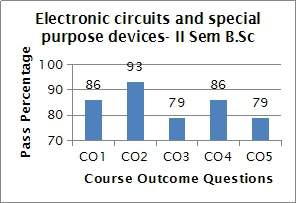 |
|
| Co - Attainment | 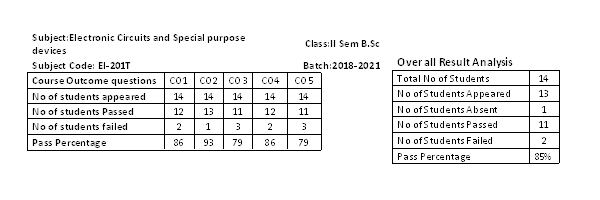 |
|
| Paper Code | EL-401T | |
| Title of the paper | Digital Electronics & Verilog | |
| Course Outcome |
|
|
| Analysis | 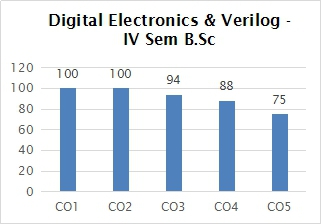 |
|
| Co - Attainment |  |
|
| Paper Code | EL-601T | |
| Title of the paper | Communication II | |
| Course Outcome |
|
|
| Analysis | 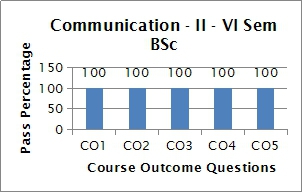 |
|
| Co - Attainment |  |
|
| Paper Code | EL-602T | |
| Title of the paper | Microcontrollers | |
| Course Outcome |
|
|
| Analysis | 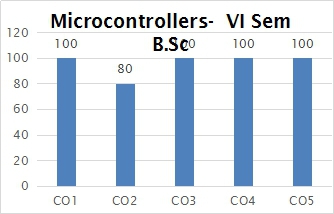 |
|
| Co - Attainment |  |
|
| Paper Code | 2.1 | |||
| Title of the paper | Indian Banking | |||
| Course Outcome |
|
|||
| Analysis |
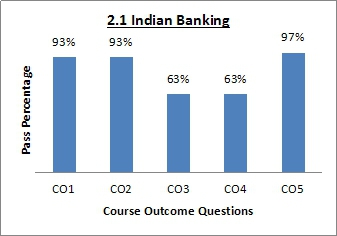
Co - Attainment |
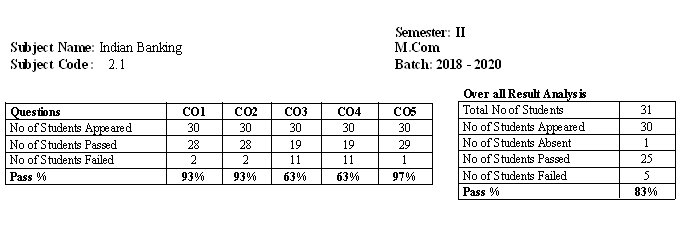 |
||
| Paper Code | 2.2 | |
| Title of the paper | Risk Management | |
| Course Outcome |
|
|
| Analysis | 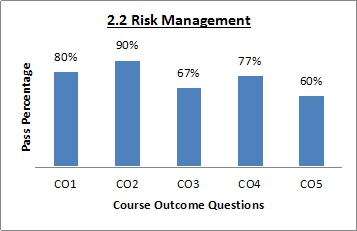 |
|
| Co - Attainment | 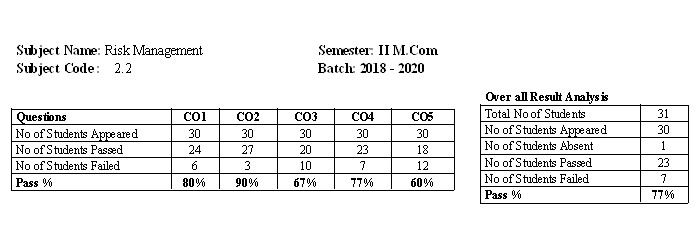 |
|
| Paper Code | 2.3 | |||
| Title of the paper | Advanced E – Commerce & Mobile Commerce | |||
| Course Outcome |
| |||
| Analysis |
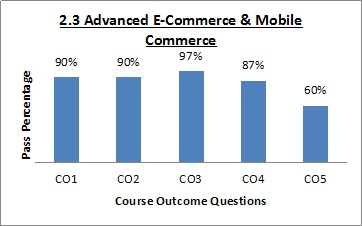
Co - Attainment |
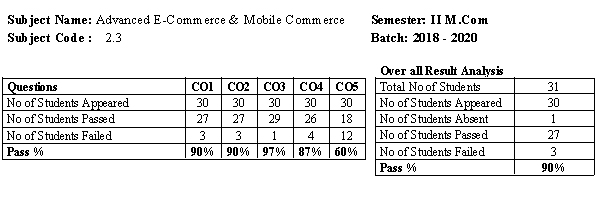 |
||
| Paper Code | 2.4 | |||
| Title of the paper | Business Research Methods | |||
| Course Outcome |
|
|||
| Analysis |
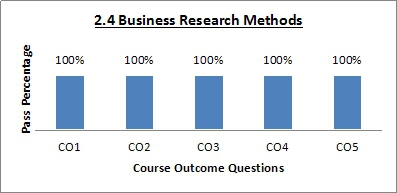
Co - Attainment |
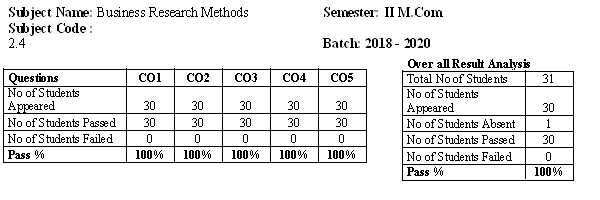 |
||
| Paper Code | 2.5 | |||
| Title of the paper | Operations Research & Quantitative Techniques | |||
| Course Outcome |
|
|||
| Analysis |
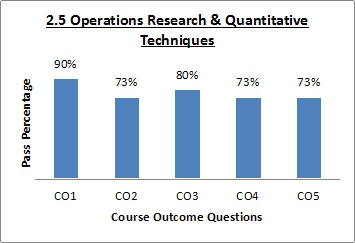
Co - Attainment |
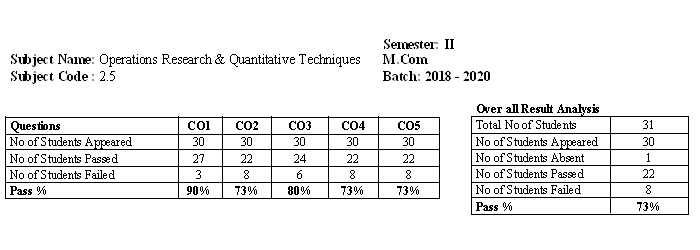 |
||
| Paper Code | 2.6 | |||
| Title of the paper | Business Marketing | |||
| Course Outcome |
|
|||
| Analysis |
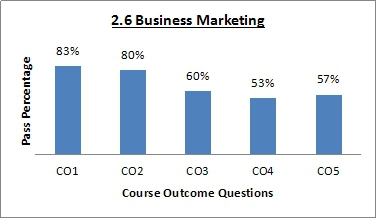
Co - Attainment |
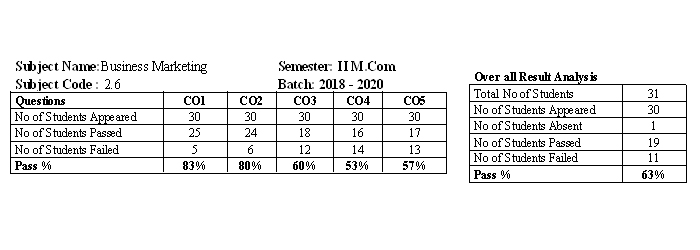 |
||
| Paper Code | 2.7 | |||
| Title of the paper | SOFT CORE : Micro Finance | |||
| Course Outcome |
|
|||
| Analysis |
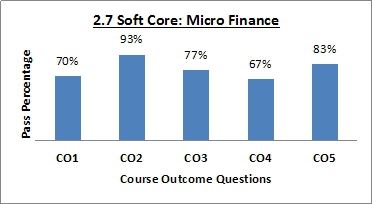
Co - Attainment |
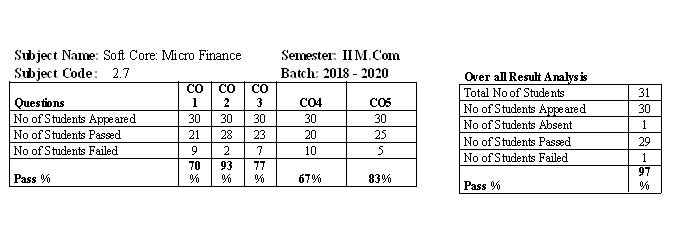 |
||
| Paper Code | 4.1 | |||
| Title of the paper | Commodity Market | |||
| Course Outcome |
|
|||
| Analysis |
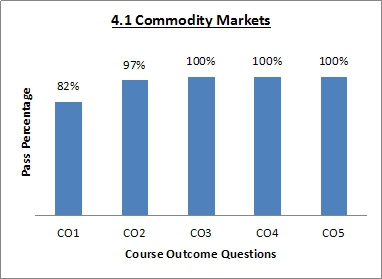
Co - Attainment |
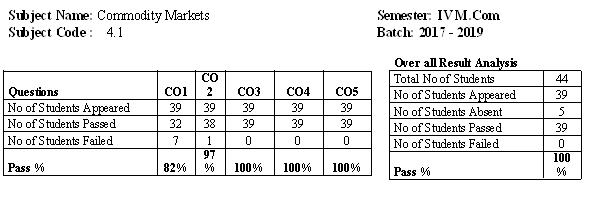 |
||
| Paper Code | 4.2 | |||
| Title of the paper | Corporate reporting practices and Ind AS | |||
| Course Outcome |
|
|||
| Analysis |
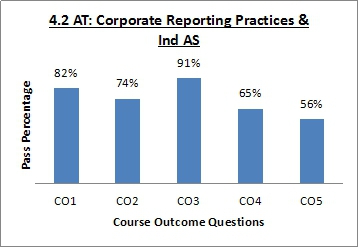
Co - Attainment |
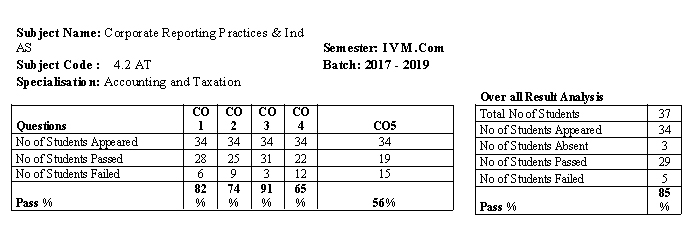 |
||
| Paper Code | 4.4 | |
| Title of the paper | Goods and Service Taxes | |
| Course Outcome |
|
|
| Analysis | 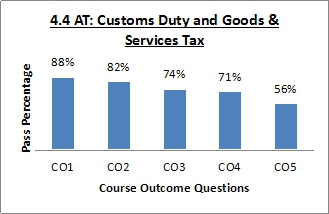 |
|
| Co - Attainment | 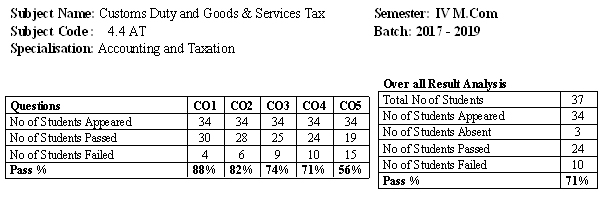 |
|
| Paper Code | 4.2 | |
| Title of the paper | Forex Management | |
| Course Outcome |
|
|
| Analysis | 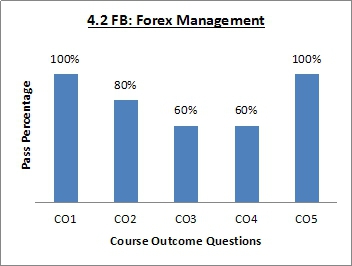 |
|
| Co - Attainment | 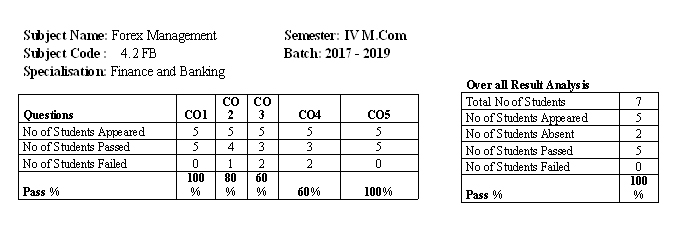 |
|
| Paper Code | 4.3 | |
| Title of the paper | International Financial Institutions & Markets | |
| Course Outcome |
|
|
| Analysis | 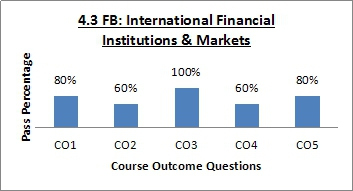 |
|
| Co - Attainment | 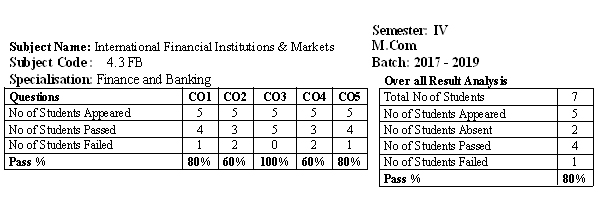 |
|
| Paper Code | 4.4 | |
| Title of the paper | Banking Operations and Management | |
| Course Outcome |
|
|
| Analysis | 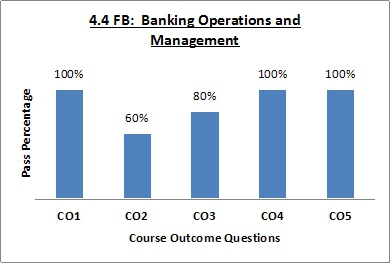 |
|
| Co - Attainment | 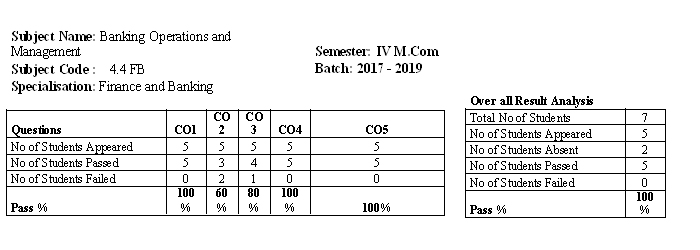 |
|
| Paper Code | 2.1 | |||
| Title of the paper | Contemporary Issues in Accounting | |||
| Course Outcome |
|
|||
| Analysis |
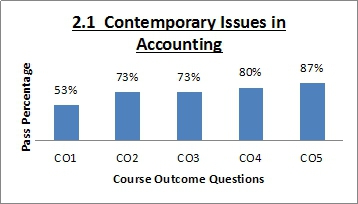
Co - Attainment |
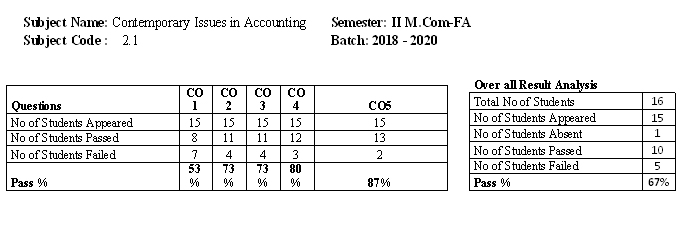 |
||
| Paper Code | 2.2 | |
| Title of the paper | Information Technology for Accounting & Finance | |
| Course Outcome |
|
|
| Analysis | 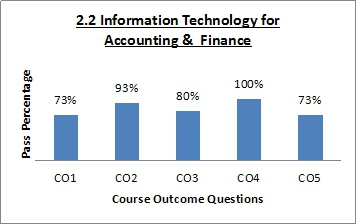 |
|
| Co - Attainment | 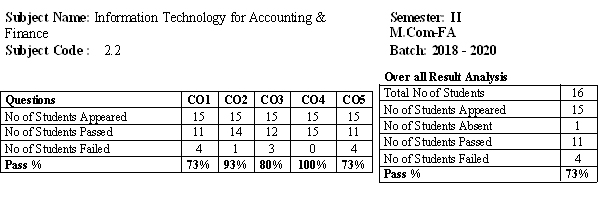 |
|
| Paper Code | 2.3 | |||
| Title of the paper | Corporate Tax Planning | |||
| Course Outcome |
| |||
| Analysis |
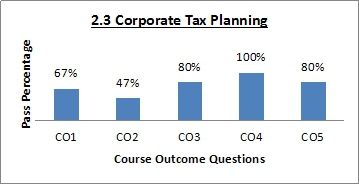
Co - Attainment |
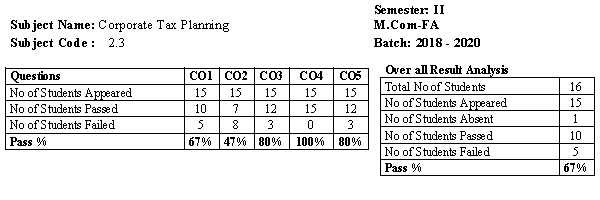 |
||
| Paper Code | 2.4 | |||
| Title of the paper | Securities Analysis and Portfolio Management | |||
| Course Outcome |
|
|||
| Analysis |
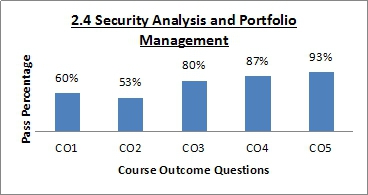
Co - Attainment |
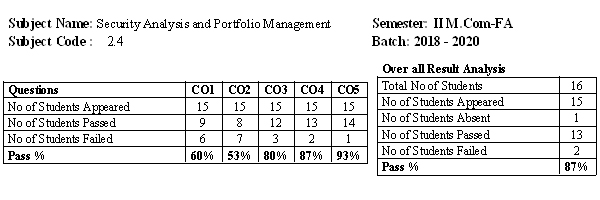 |
||
| Paper Code | 2.5 | |||
| Title of the paper | Strategic Cost and Management Accounting | |||
| Course Outcome |
|
|||
| Analysis |
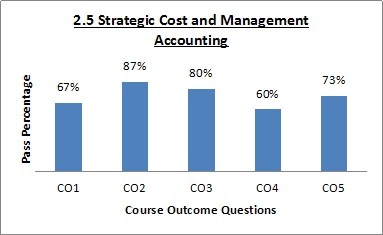
Co - Attainment |
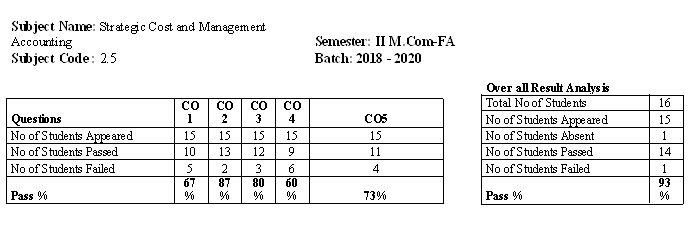 |
||
| Paper Code | 2.6 | |||
| Title of the paper | Asset Liability Management In Banks | |||
| Course Outcome |
|
|||
| Analysis |
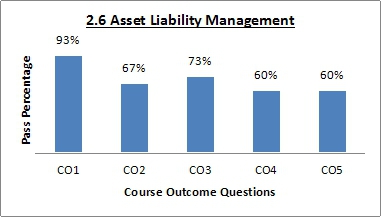
Co - Attainment |
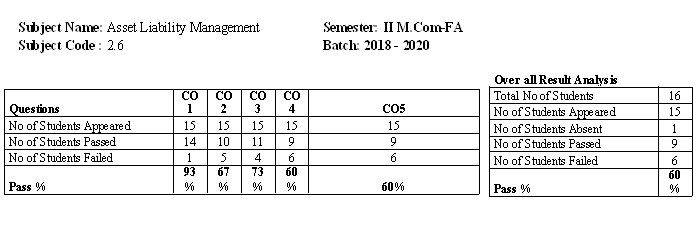 |
||
| Paper Code | 2.7 | |||
| Title of the paper | SOFT CORE : Business Research Methods | |||
| Course Outcome |
|
|||
| Analysis |
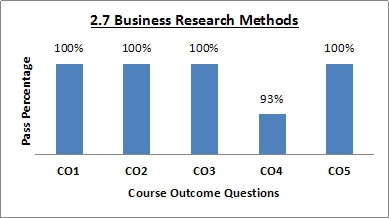
Co - Attainment |
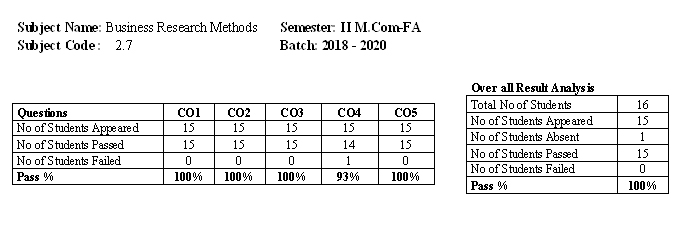 |
||
| Paper Code | 4.1 | |||
| Title of the paper | Strategic Management | |||
| Course Outcome |
|
|||
| Analysis |
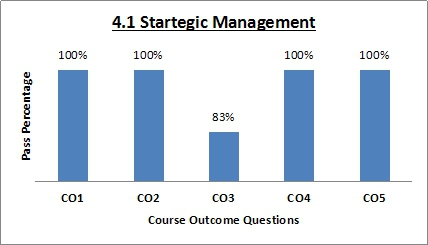
Co - Attainment |
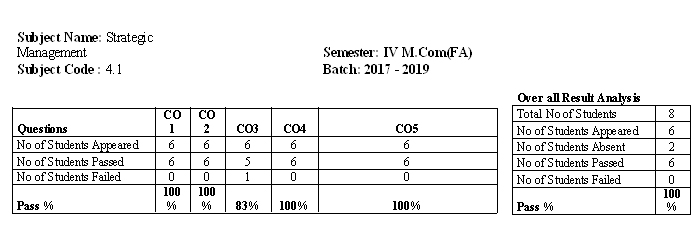 |
||
| Paper Code | 4.2 | |||
| Title of the paper | International Accounting | |||
| Course Outcome |
|
|||
| Analysis |
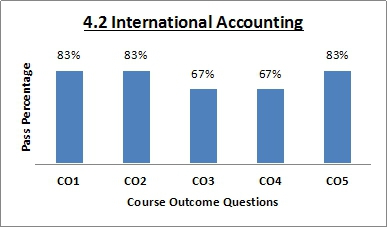
Co - Attainment |
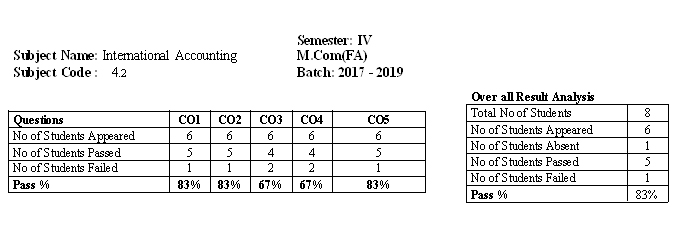 |
||
| Paper Code | 4.3 | |
| Title of the paper | International Financial Management | |
| Course Outcome |
|
|
| Analysis | 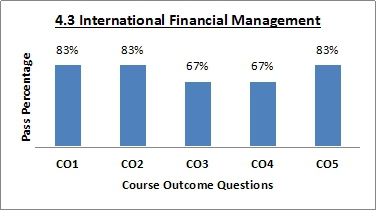 |
|
| Co - Attainment | 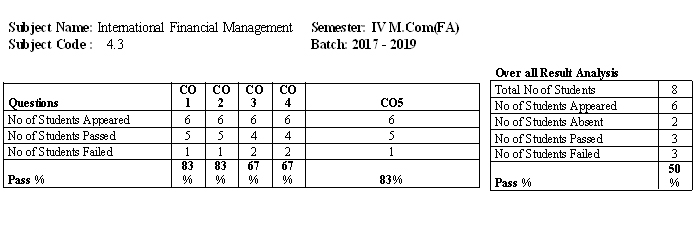 |
|
| Paper Code | 4.4 | |
| Title of the paper | Strategic Financial Management | |
| Course Outcome |
|
|
| Analysis | 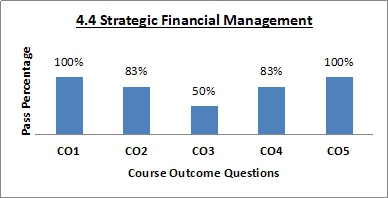 |
|
| Co - Attainment | 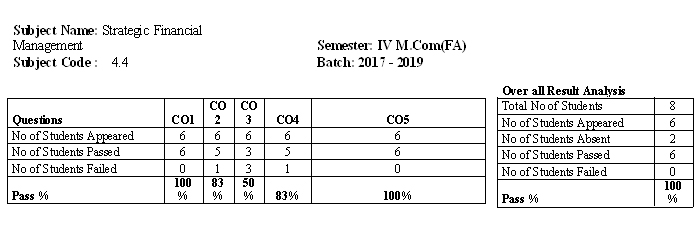 |
|
| Class | II Sem B.COM | |
| Course Outcome |
|
|
| Analysis | 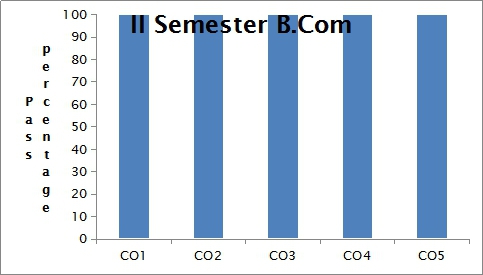 |
|
| Co - Attainment | 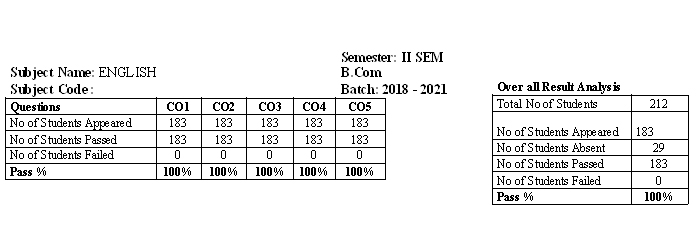 |
|
| Class | IV Sem BCom | |
| Course Outcome |
|
|
| Analysis | 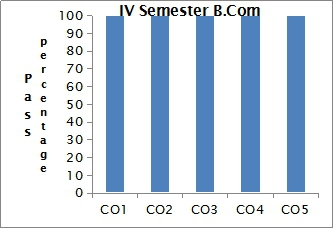 |
|
| Co - Attainment | 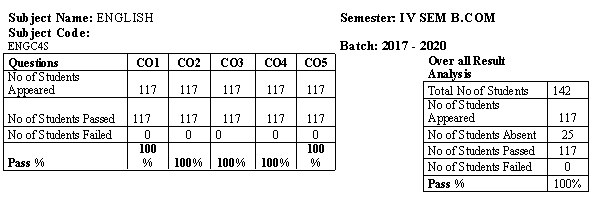 |
|
| Class | II Sem BA | |
| Course Outcome |
|
|
| Analysis | 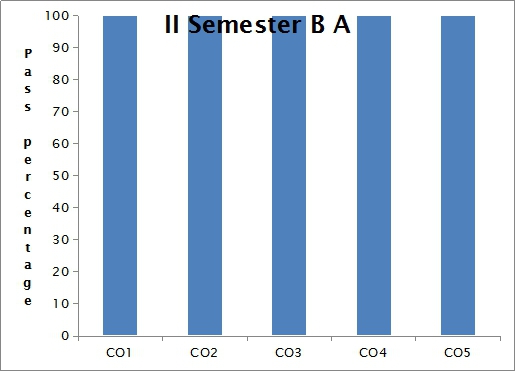 |
|
| Co - Attainment | 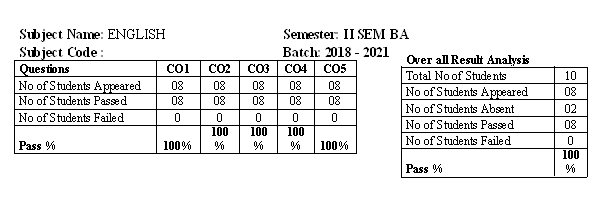 |
|
| Class | II Sem BBA | |
| Course Outcome |
|
|
| Analysis | 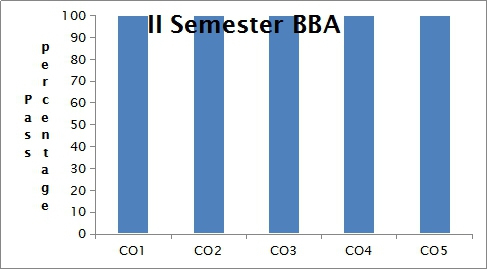 |
|
| Co - Attainment | 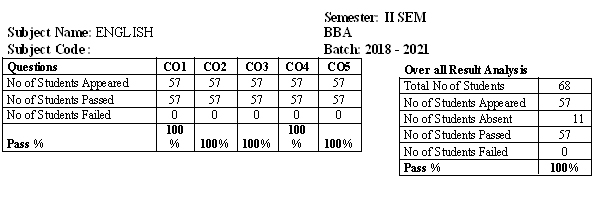 |
|
| Class | II Sem BCA & BSc | |
| Course Outcome |
| |
| Analysis | 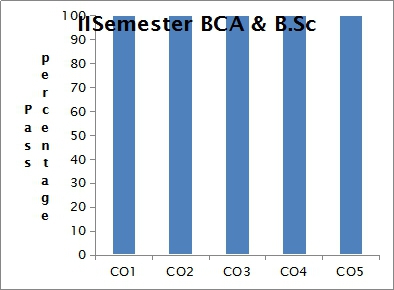 |
|
| Co - Attainment | 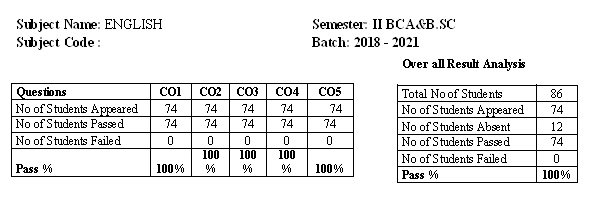 |
|
| Class | IV Sem BCA & BSc | |
| Course Outcome |
|
|
| Analysis | 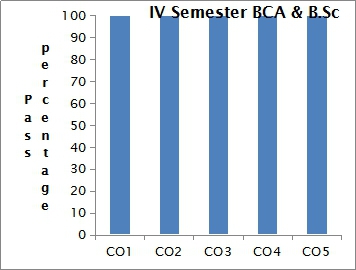 |
|
| Co - Attainment | 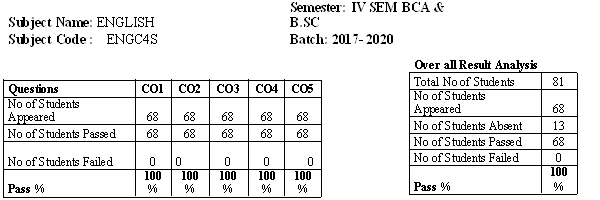 |
|
| Semester | 2nd Semester | |
| Topic | Poetry ( Modern and Ancient ) | |
| Course Outcome |
|
|
| Analysis |  |
|
| Co - Attainment |  |
|
| Semester | 4th Semester | |
| Topic | Novel | |
| Course Outcome |
|
|
| Analysis |  |
|
| Co - Attainment |  |
|
| Semester | 2nd Semester | |
| Topic | Poetry ( Ancient and Modern ) | |
| Course Outcome |
|
|
| Analysis |  |
|
| Co - Attainment |  |
|
| Semester | 4th Semester | |
| Topic | Novel | |
| Course Outcome |
|
|
| Analysis |  |
|
| Co - Attainment |  |
|
| Semester | 2nd Semester | |
| Topic | Poetry ( Ancient and Modern ) | |
| Course Outcome |
|
|
| Analysis |  |
|
| Co - Attainment |  |
|
| Semester | 4th Semester | |
| Topic | Novel | |
| Course Outcome |
|
|
| Analysis |  |
|
| Co - Attainment |  |
|
| Semester | 2nd Semester | |
| Topic | Poetry ( Ancient and Modern ) | |
| Course Outcome |
|
|
| Analysis |  |
|
| Co - Attainment |  |
|
| Semester | 4th Semester | |
| Topic | Novel | |
| Course Outcome |
|
|
| Analysis |  |
|
| Co - Attainment |  |
|
| Semester | 2nd Semester | |
| Topic | Poetry ( Ancient and Modern ) | |
| Course Outcome |
|
|
| Analysis |  |
|
| Co - Attainment |  |
|
| Semester | 2nd Semester | |
| Topic | Harsha Charitha & Grammar | |
| Course Outcome | Students will gain/learn
|
|
| Analysis |  |
|
| Co - Attainment | 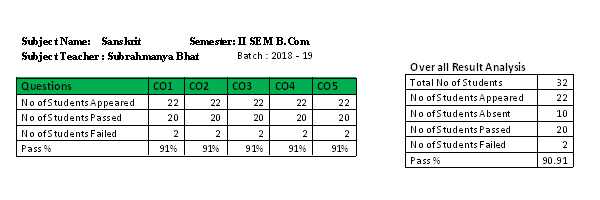 |
|
| Semester | 4th Semester | |
| Topic | Pratijna Yougandharayana & Pracheena Vanijyam | |
| Course Outcome | Students will gain/learn
|
|
| Analysis |  |
|
| Co - Attainment | 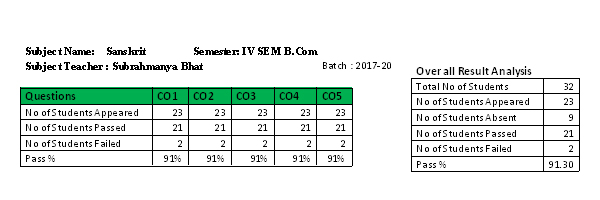 |
|
| Semester | 2nd Semester | |
| Topic | Mitra gupta Charitam & Grammar | |
| Course Outcome | Students will gain/learn
|
|
| Analysis |  |
|
| Co - Attainment | ||
| Semester | 4th Semester | |
| Topic | Duta Ghatotkacham & Smruthis | |
| Course Outcome | Students will gain/learn
|
|
| Analysis | 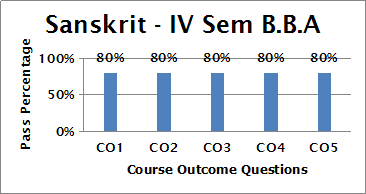 |
|
| Co - Attainment | 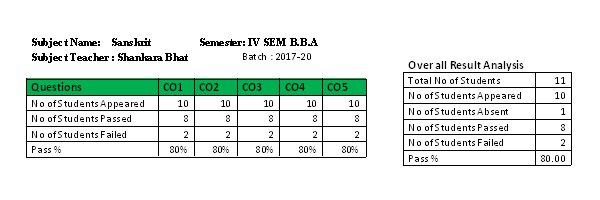 |
|
| Semester | 2nd Semester | |
| Topic | Mahashwetha Vruttanta & Grammar | |
| Course Outcome | Students will gain/learn
|
|
| Analysis |  |
|
| Co - Attainment | 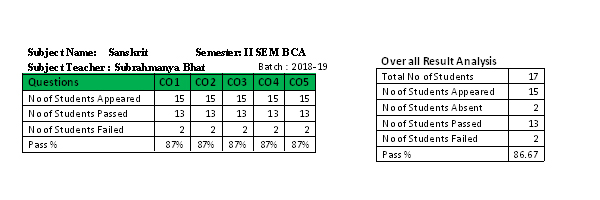 |
|
| Semester | 4th Semester | |
| Topic | Charudattam & Scientific Litereture | |
| Course Outcome | Students will gain/learn
|
|
| Analysis |  |
|
| Co - Attainment | 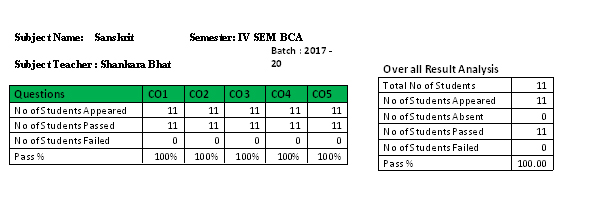 |
|
| Semester | 2nd Semester | |
| Topic | Bhoja Prabanda & Grammar | |
| Course Outcome | Students will gain/learn
|
|
| Analysis |  |
|
| Co - Attainment | 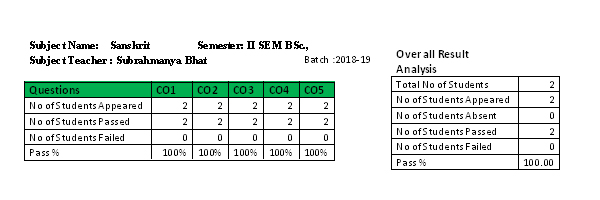 |
|
| Semester | 4th Semester | |
| Topic | Karnabharam & Dramatic Literature | |
| Course Outcome | Students will gain/learn
|
|
| Analysis |  |
|
| Co - Attainment | 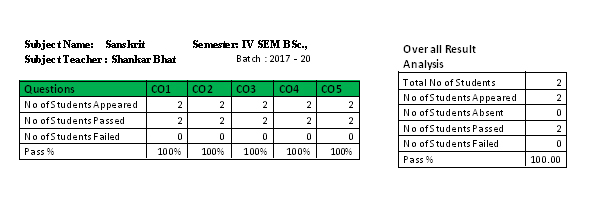 |
|
| Semester | 2nd Semester | |
| Topic | Mathematics-II | |
| Course Outcome |
|
|
| Analysis |  |
|
| Co - Attainment | 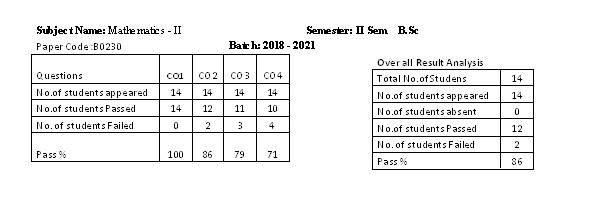 |
|
| Semester | 4th Semester | |
| Topic | Mathematics-IV | |
| Course Outcome |
|
|
| Analysis |  |
|
| Co - Attainment | 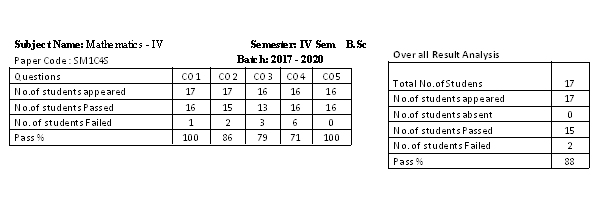 |
|
| Semester | 6th Semester | |
| Topic | Mathematics-VII and Mathematics-VIII | |
| Course Outcome | Mathematics-VII
Mathematics-VIII
|
|
| Analysis |
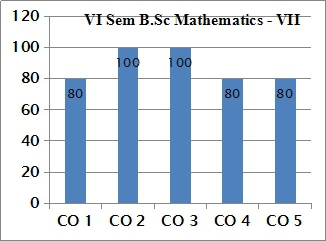
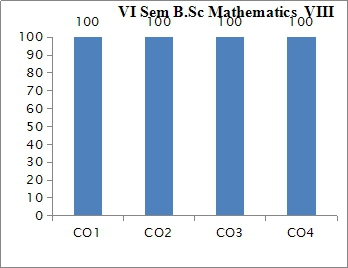
|
|
| Co - Attainment | 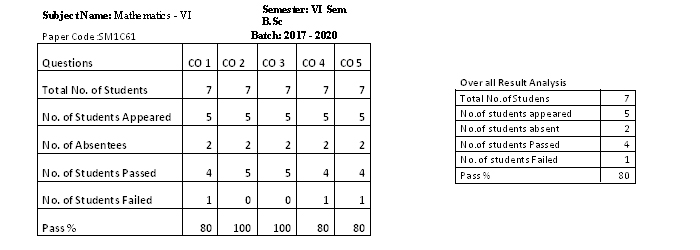 |
|
| Co - Attainment | 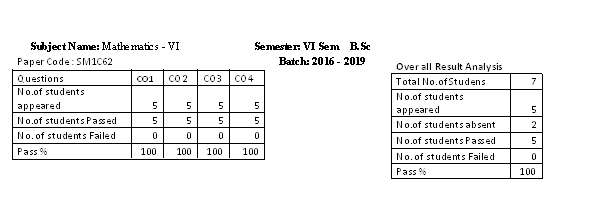 |
|
| Semester | 2nd Semester | |
| Topic | Numerical Analysis & Statistical Methods | |
| Course Outcome |
|
|
| Analysis |  |
|
| Co - Attainment | 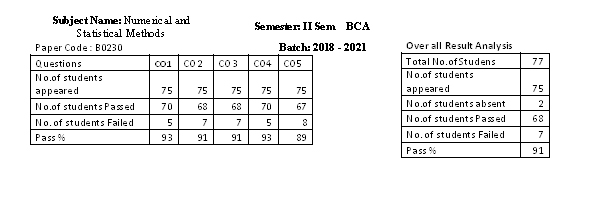 |
|
| Semester | 4th Semester | |
| Topic | Operation Research | |
| Course Outcome |
|
|
| Analysis |  |
|
| Co - Attainment | 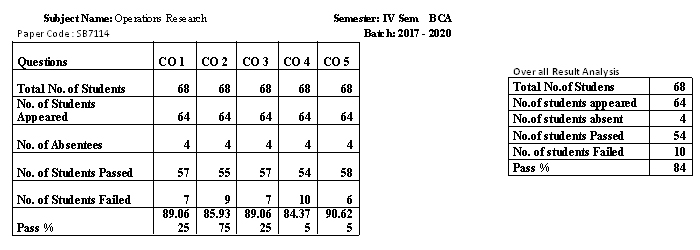 |
|
| Semester | 2nd Semester | |
| Topic | Quantitative Analysis for Business Decisions -I | |
| Course Outcome |
|
|
| Analysis |
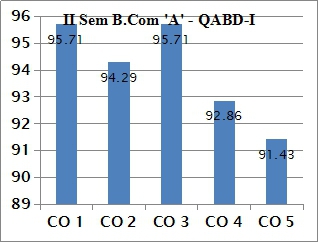
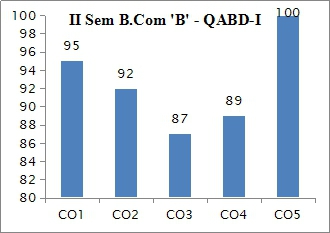
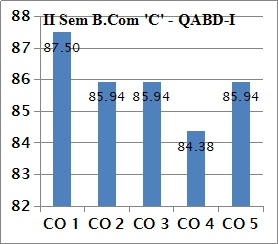
|
|
| Co - Attainment | 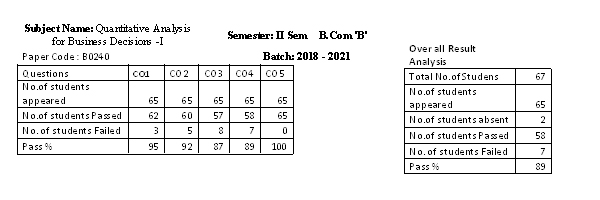 |
|
| Co - Attainment |  |
|
| Co - Attainment | 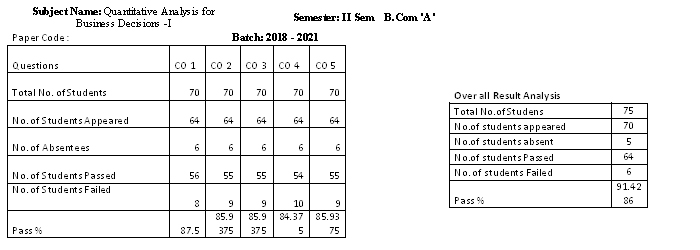 |
|
| Semester | 2nd Semester | |
| Topic | Quantitative Methods for Business -II | |
| Course Outcome |
|
|
| Analysis |  |
|
| Co - Attainment |  |
|
| Semester | 2nd Semester | |
| Topic | PRINT MEDIA | |
| COURSE OUTCOMES |
|
|
| Co - Attainment | 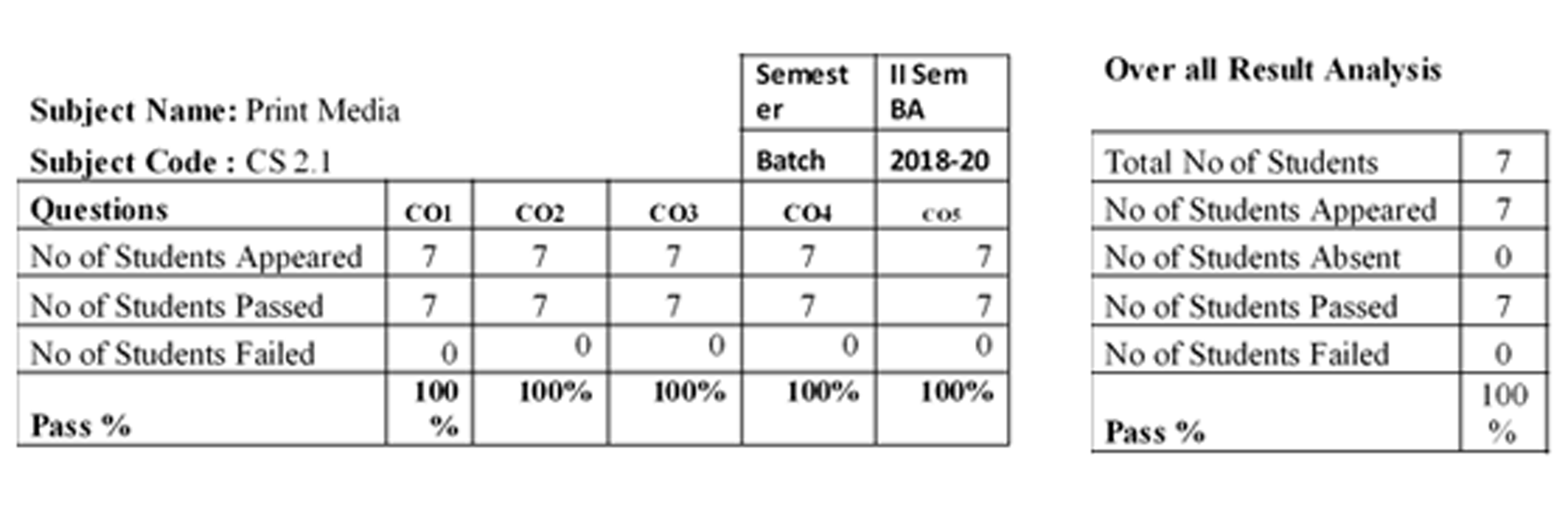 |
|
| Analysis | 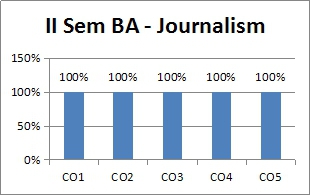 |
|
| Paper Code | CC11N1 | |
| Title of the paper | Financial Accounting | |
| Course Outcome | Students will have adequate knowledge about
|
|
| Analysis |  |
|
| Paper Code | CC11N2 | |
| Title of the paper | Indian Financial System | |
| Course Outcome | Students will posses adequate knowledge about
|
|
| Analysis |  |
|
| Paper Code | CC11N3 | |
| Title of the paper | Marketing and Service Management | |
| Course Outcome | Students will posses knowledge about
|
|
| Analysis |  |
|
| Paper Code | CC11N4 | |
| Title of the paper | Corporate Administration | |
| Course Outcome | Students will posses knowledge about
|
|
| Paper Code | CC13N1 | |
| Title of the paper | Corporate Accounting | |
| Course Outcome | Students will develop the knowledge of
|
|
| Analysis |  |
|
| Paper Code | CC13N2 | |
| Title of the paper | Financial Management | |
| Course Outcome | Students will understand
|
|
| Analysis |  |
|
| Paper Code | CC13N3 | |
| Title of the paper | Business Ethics | |
| Course Outcome | Students will gain the ability
|
|
| Analysis |  |
|
| Paper Code | CC13N5 | |
| Title of the paper | Public Relations and Corporate Communication | |
| Course Outcome | Students will be convergant with
|
|
| Analysis |  |
|
| Paper Code | CC15N2 | |
| Title of the paper | International Financial Reporting Standards | |
| Course Outcome | Students can
|
|
| Analysis |  |
|
| Paper Code | CC15N3 | |
| Title of the paper | Income Tax - I | |
| Course Outcome | Students get familiarized
|
|
| Analysis |  |
|
| Paper Code | CC15N1 | |
| Title of the paper | Entrepreneurship Development Programme | |
| Course Outcome | Students can
|
|
| Analysis |  |
|
| Paper Code | CC15N4 | |
| Title of the paper | Costing Methods | |
| Course Outcome | Students can
|
|
| Analysis |  |
|
| Paper Code | CCE5N1 | |
| Title of the paper | Advanced Accounting (Accounting and Taxation) | |
| Course Outcome | Students
|
|
| Analysis |  |
|
| Paper Code | CCE6N9 | |
| Title of the paper | Goods and Service Tax (Accounting and Taxation ) | |
| Course Outcome | Students will gain knowledge about
|
|
| Paper Code | CCE61N | |
| Title of the paper | International Financial Management (Finance) | |
| Course Outcome | Students will be
|
|
| Paper Code | BFAC1S | |
| Title of the paper | Fundamentals of Accounting | |
| Course Outcome | Students will aquire knowledge of
|
|
| Analysis |  |
|
| Paper Code | BBEC1S | |
| Title of the paper | Business Organization and Environment | |
| Course Outcome | Students will become familiar with
|
|
| Analysis |  |
|
| Paper Code | BMPC1S | |
| Title of the paper | Management Process | |
| Course Outcome | Students will be familiarized with
|
|
| Analysis |  |
|
| Paper Code | BCAC3S | |
| Title of the paper | Corporate Accounting | |
| Course Outcome | Students gets comprehensive understanding regarding the
|
|
| Analysis |  |
|
| Paper Code | BHRC3S | |
| Title of the paper | Human Resource Management | |
| Course Outcome | Students will be familirize with the
|
|
| Analysis |  |
|
| Paper Code | BBRC3S | |
| Title of the paper | Business Regulations | |
| Course Outcome | Students will gain understanding of the
|
|
| Analysis |  |
|
| Paper Code | BCEC3S | |
| Title of the paper | Corporate Environment | |
| Course Outcome | Students become familiarized with the
|
|
| Analysis |  |
|
| Paper Code | BBEC3S | |
| Title of the paper | Business Ethics | |
| Course Outcome | Students get basic knowledge of
|
|
| Analysis |  |
|
| Paper Code | BEMC5S | |
| Title of the paper | Entrepreneurial Management | |
| Course Outcome | Students will become familiar with the
|
|
| Analysis |  |
|
| Paper Code | BCAC5S | |
| Title of the paper | Computer application in Business | |
| Course Outcome | Students will understand the
|
|
| Analysis |  |
|
| Paper Code | BNMC5S | |
| Title of the paper | Investment Management | |
| Course Outcome | Students will get information about
|
|
| Analysis |  |
|
| Paper Code | BMAC5S | |
| Title of the paper | Management Accounting | |
| Course Outcome | Students will know the
|
|
| Analysis |  |
|
| Paper Code | AFMC5S | |
| Title of the paper | Advanced Financial Management | |
| Course Outcome | Students will be familiar with the
|
|
| Analysis |  |
|
| Paper Code | FMSC5S | |
| Title of the paper | Financial Markets & Services | |
| Course Outcome | Students will have knowledge of the
|
|
| Analysis |  |
|
| Paper Code | EWEC5S | |
| Title of the paper | Employee Welfare & Social Security | |
| Course Outcome | Students will know the
|
|
| Analysis |  |
|
| Paper Code | HRMC5S | |
| Title of the paper | Strategic HRM | |
| Course Outcome | Students will be able to know the
|
|
| Analysis |  |
|
| Paper Code | BCA103 | |
| Title of the paper | Problem Solving Techniques using C | |
| Course Outcome |
|
|
| Analysis |  |
|
| Paper Code | BCA104 | |
| Title of the paper | Digital Electronics | |
| Course Outcome |
|
|
| Analysis |  |
|
| Paper Code | BCA303 | |
| Title of the paper | Object Oriented Programming using C++ | |
| Course Outcome |
|
|
| Analysis |  |
|
| Paper Code | BCA305 | |
| Title of the paper | Operating System | |
| Course Outcome |
|
|
| Analysis |  |
|
| Paper Code | BCA501 | |
| Title of the paper | Data Communication and Networks | |
| Course Outcome |
|
|
| Analysis |  |
|
| Paper Code | BCA502 | |
| Title of the paper | Software Engineering | |
| Course Outcome |
|
|
| Analysis |  |
|
| Paper Code | BCA503 | |
| Title of the paper | Computer Architecture | |
| Course Outcome |
|
|
| Analysis |  |
|
| Paper Code | BCA504 | |
| Title of the paper | Java Programming | |
| Course Outcome |
|
|
| Analysis |  |
|
| Paper Code | BCA505 | |
| Title of the paper | Microprocessor and Assembly Language | |
| Course Outcome |
|
|
| Analysis |  |
|
| Paper Code | CS1T | |
| Title of the paper | Problem Solving Techniques using C | |
| Course Outcome |
|
|
| Analysis |  |
|
| Paper Code | CS3T | |
| Title of the paper | Database Management System and Software Engineering | |
| Course Outcome |
|
|
| Analysis |  |
|
| Paper Code | CS5T1 | |
| Title of the paper | Object Oriented Programming using JAVA | |
| Course Outcome |
|
|
| Analysis |  |
|
| Paper Code | CS5T2 | |
| Title of the paper | Visual Programming | |
| Course Outcome |
|
|
| Analysis |  |
|
| Paper Code | EL-101T | |
| Title of the paper | Basic Electronics | |
| Course Outcome |
|
|
| Analysis |  |
|
| Paper Code | EL-301T | |
| Title of the paper | Linear Integrated Circuits & C Programming | |
| Course Outcome |
|
|
| Analysis |  |
|
| Paper Code | EL-501T | |
| Title of the paper | Communication I | |
| Course Outcome |
|
|
| Analysis |  |
|
| Paper Code | CEL-502T | |
| Title of the paper | Microprocessors & Instrumentation | |
| Course Outcome |
|
|
| Analysis |  |
|
| Paper Code | 1.1 | |
| Title of the paper | Monetary Systems | |
| Course Outcome |
|
|
| Analysis | 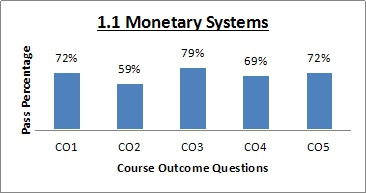 |
|
| Co Attainments | 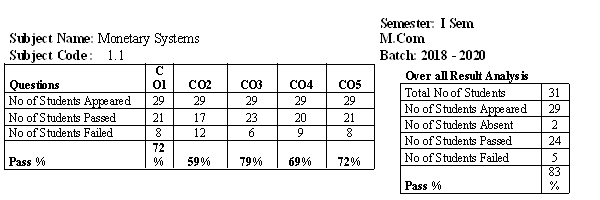 |
|
| Paper Code | 1.2 | |
| Title of the paper | International Business | |
| Course Outcome |
|
|
| Analysis | 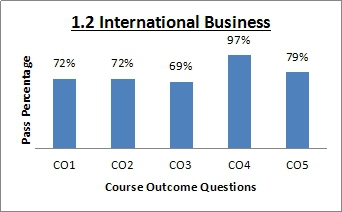 |
|
| Co Attainments | 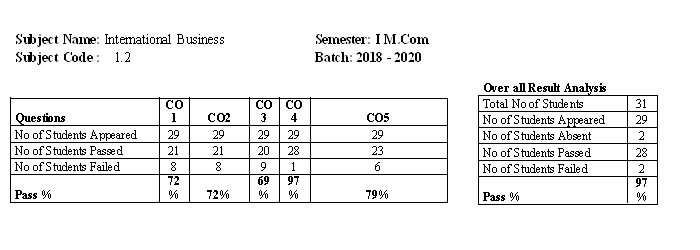 |
|
| Paper Code | 1.3 | |
| Title of the paper | Macro Economics for Business Decisions | |
| Course Outcome |
|
|
| Analysis | 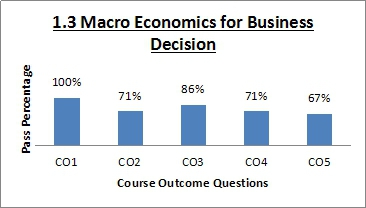 |
|
| Co Attainments | 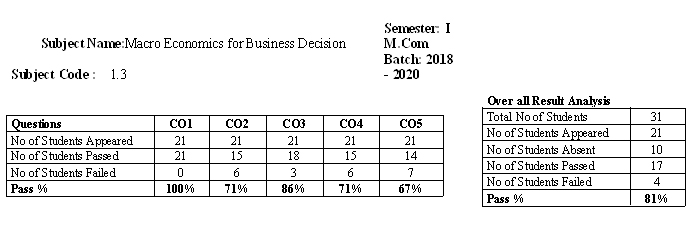 |
|
| Paper Code | 1.4 | |
| Title of the paper | Information System and Computers | |
| Course Outcome |
|
|
| Analysis | 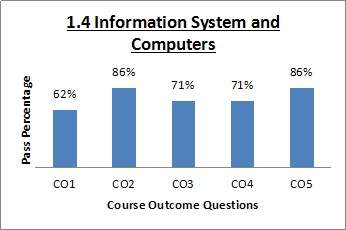 |
|
| Co Attainments | 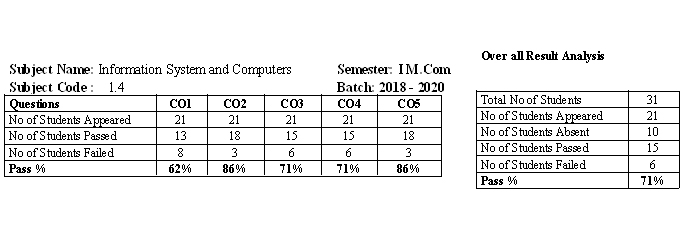 |
|
| Paper Code | 1.5 | |
| Title of the paper | Advanced Financial Management | |
| Course Outcome |
|
|
| Analysis | 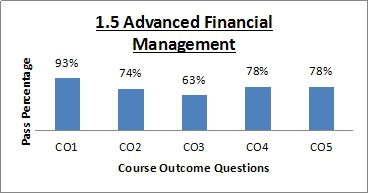 |
|
| Co Attainments | 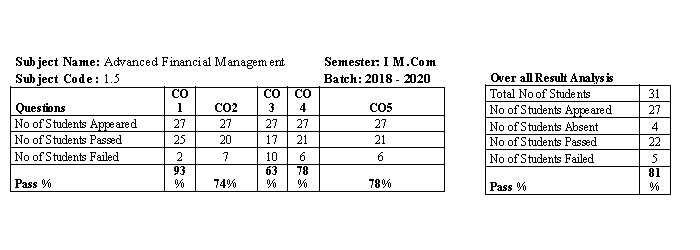 |
|
| Paper Code | 1.6 | |
| Title of the paper | Human Resource Management | |
| Course Outcome |
|
|
| Analysis | 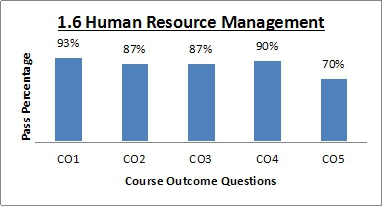 |
|
| Co Attainments | 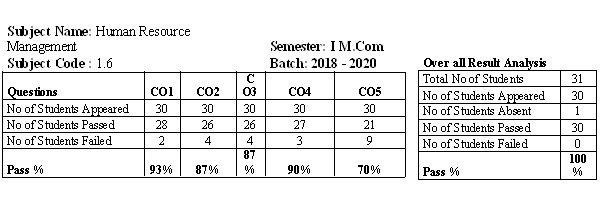 |
|
| Paper Code | 1.7 | |
| Title of the paper | Communication Skills | |
| Course Outcome |
|
|
| Analysis | 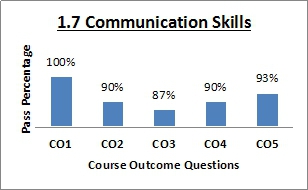 |
|
| Co Attainment | 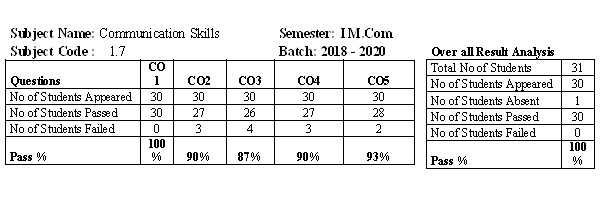 |
|
| Paper Code | 3.1 | |
| Title of the paper | Business Ethics & Corporate Governance | |
| Course Outcome |
|
|
| Analysis | 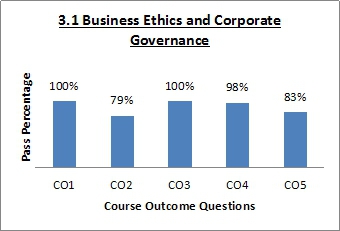 |
|
| Co Attainments | 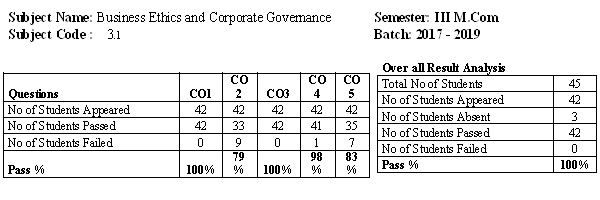 |
|
| Paper Code | 3.2 | |
| Title of the paper | Corporate Financial Reporting | |
| Course Outcome |
|
|
| Analysis | 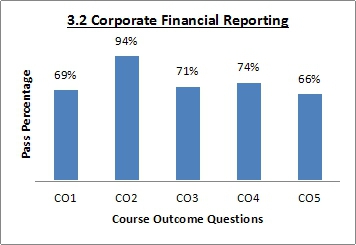 |
|
| Co Attainments | 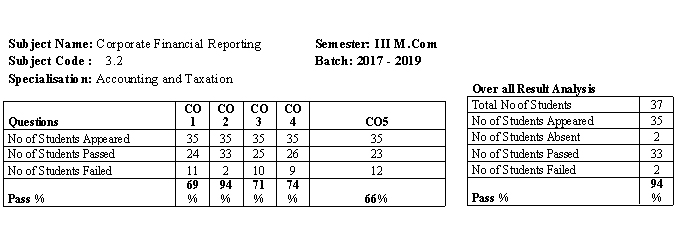 |
|
| Paper Code | 3.3 | |
| Title of the paper | Accounting for Managerial Decision | |
| Course Outcome |
|
|
| Analysis | 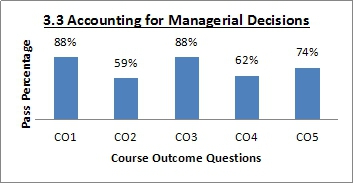 |
|
| Co Attainments | 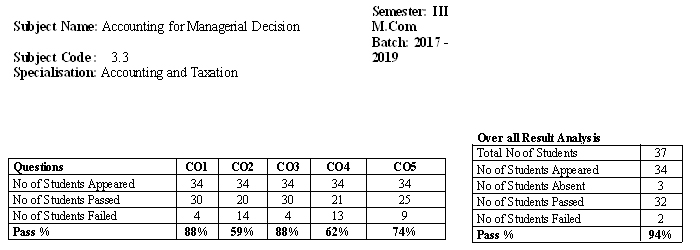 |
|
| Paper Code | 3.4 | |
| Title of the paper | Strategic Cost Management – I | |
| Course Outcome |
|
|
| Analysis | 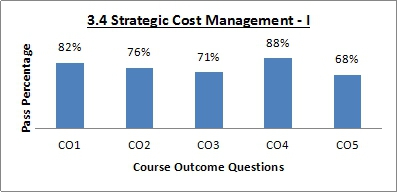 |
|
| Co Attainments | 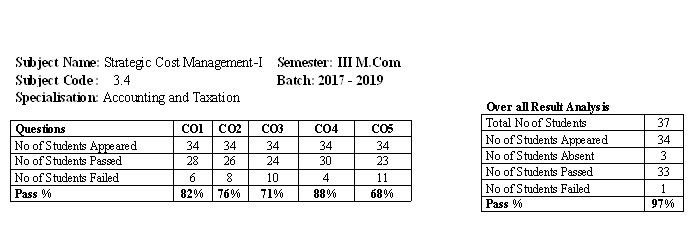 |
|
| Paper Code | 3.5 | |
| Title of the paper | Direct Taxes & Planning | |
| Course Outcome |
|
|
| Analysis | 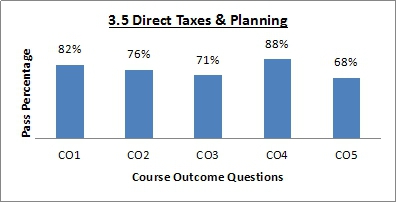 |
|
| Co Attainments | 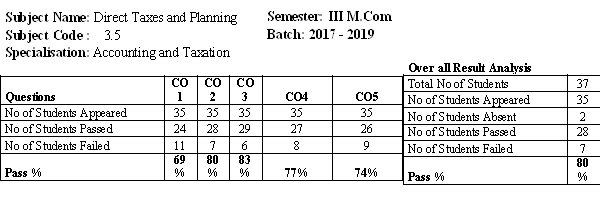 |
|
| Paper Code | 3.2 | |
| Title of the paper | Financial Markets | |
| Course Outcome |
|
|
| Analysis | 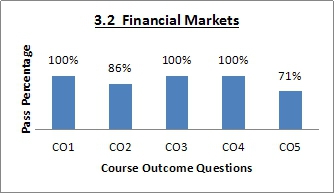 |
|
| Co Attainments | 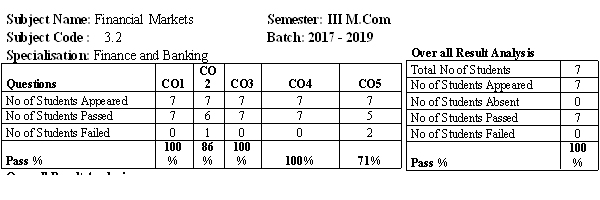 |
|
| Paper Code | 3.3 | |
| Title of the paper | Financial Services | |
| Course Outcome |
|
|
| Analysis | 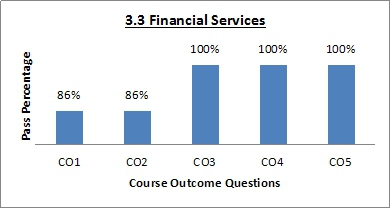 |
|
| Co Attainments | 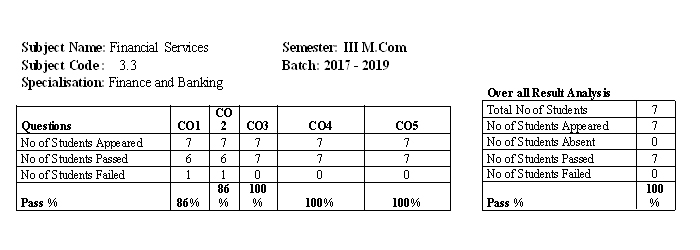 |
|
| Paper Code | 3.4 | |
| Title of the paper | Security Analysis | |
| Course Outcome |
|
|
| Analysis | 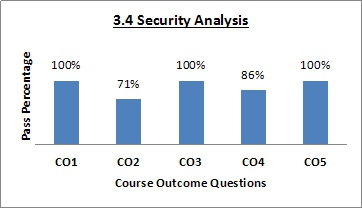 |
|
| Co Attainments |  |
|
| Paper Code | 3.5 | |
| Title of the paper | Portfolio Management | |
| Course Outcome |
|
|
| Analysis | 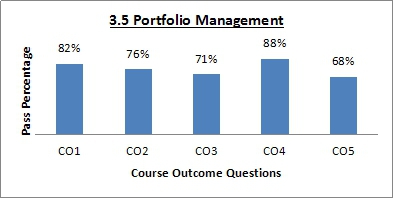 |
|
| Co Attainments | 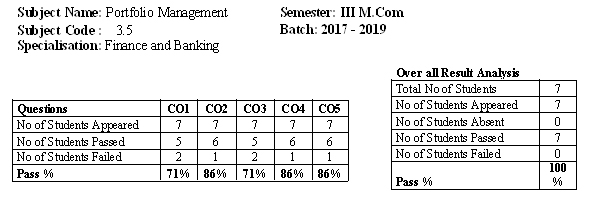 |
|
| Paper Code | 3.6 | |
| Title of the paper | Open Elective : Write It Right | |
| Course Outcome |
|
|
| Analysis | 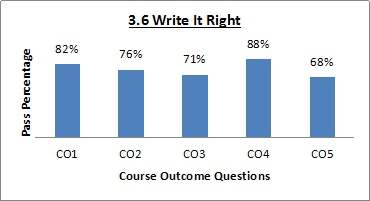 |
|
| Co Attainments | 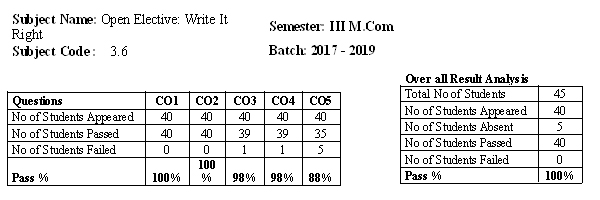 |
|
| Paper Code | 1.1 | |
| Title of the paper | Accounting Conventions & Standards | |
| Course Outcome |
|
|
| Analysis | 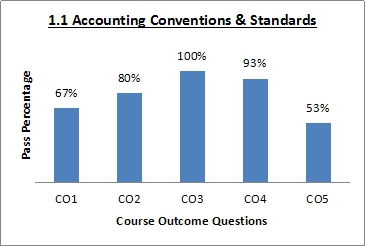 |
|
| Co Attainments | 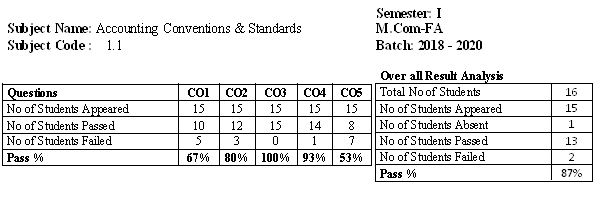 |
|
| Paper Code | 1.2 | |
| Title of the paper | Managing People in Organisations | |
| Course Outcome |
|
|
| Analysis | 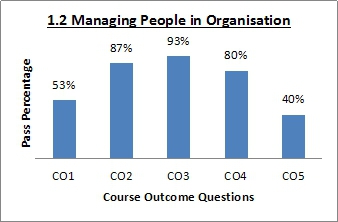 |
|
| Co Attainments | 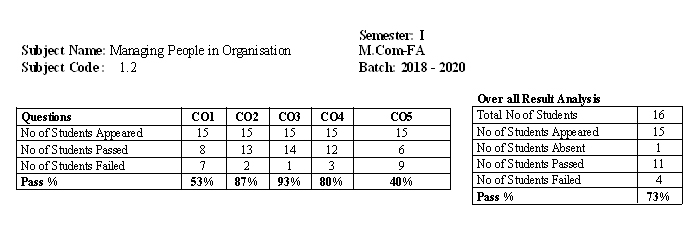 |
|
| Paper Code | 1.3 | |
| Title of the paper | Micro & Macroeconomics for Business Decisions | |
| Course Outcome |
|
|
| Analysis | 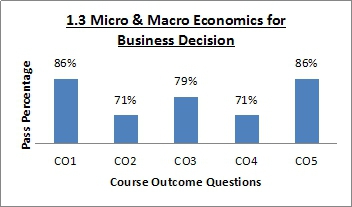 |
|
| Co Attainments | 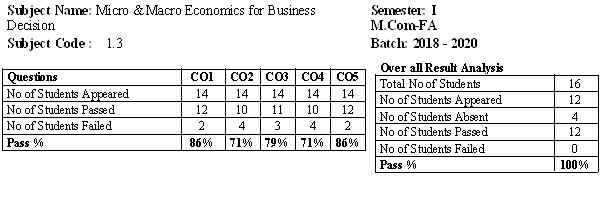 |
|
| Paper Code | 1.4 | |
| Title of the paper | Managerial Finance | |
| Course Outcome |
|
|
| Analysis | 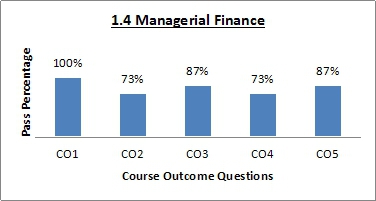 |
|
| Co Attainments |  |
|
| Paper Code | 1.5 | |
| Title of the paper | QT for Accounting and Finance | |
| Course Outcome |
|
|
| Analysis | 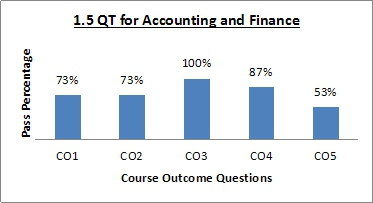 |
|
| Co Attainments | 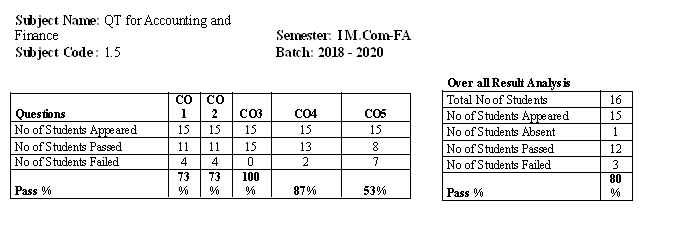 |
|
| Paper Code | 1.6 | |
| Title of the paper | Financial Markets and Services | |
| Course Outcome |
|
|
| Analysis | 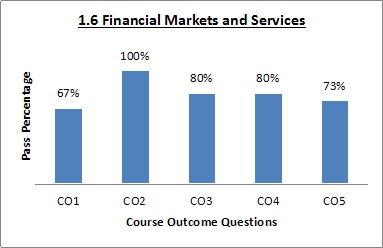 |
|
| Co Attainments | 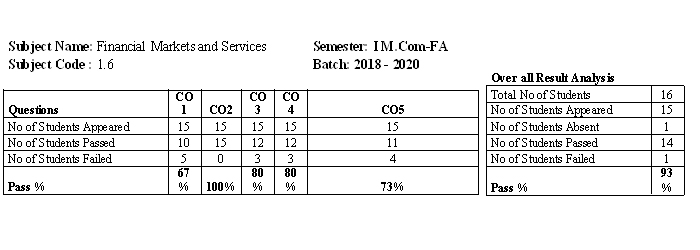 |
|
| Paper Code | 1.7 | |
| Title of the paper | SOFT CORE : Business Legal Systems | |
| Course Outcome |
|
|
| Analysis | 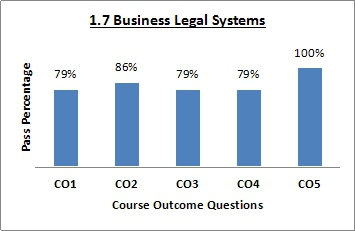 |
|
| Co Attainments | 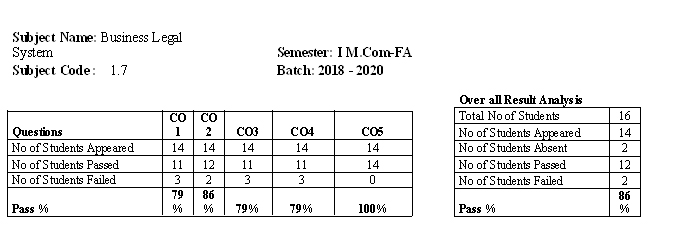 |
|
| Paper Code | 3.1 | |
| Title of the paper | Business Ethics & Corporate Governance | |
| Course Outcome |
|
|
| Analysis |  |
|
| Co Attainments |  |
|
| Paper Code | 3.2 | |
| Title of the paper | Goods and Service Taxes | |
| Course Outcome |
|
|
| Analysis | 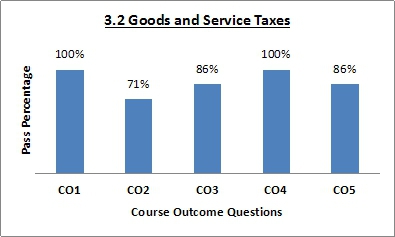 |
|
| Co Attainments | 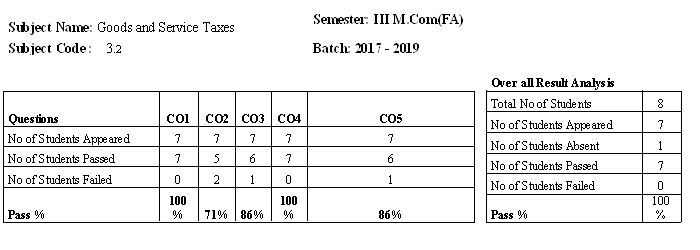 |
|
| Paper Code | 3.3 | |
| Title of the paper | Forex and Derivatives | |
| Course Outcome |
|
|
| Analysis | 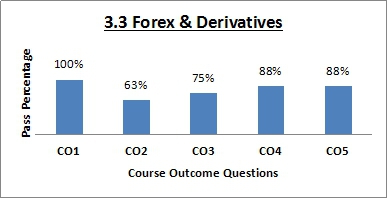 |
|
| Co Attainments | 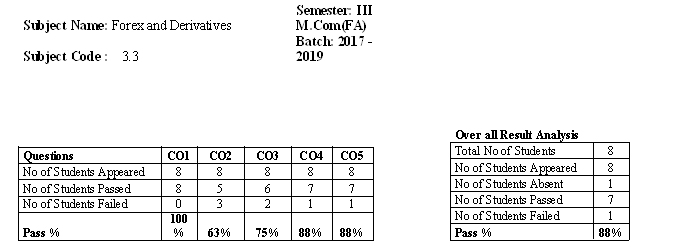 |
|
| Paper Code | 3.4 | |
| Title of the paper | Insurance and Risk Management | |
| Course Outcome |
|
|
| Analysis | 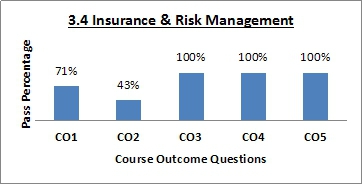 |
|
| Co Attainments | 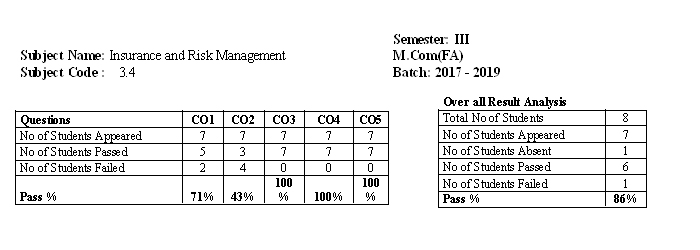 |
|
| Paper Code | 3.5 | |
| Title of the paper | Advanced E – Business | |
| Course Outcome |
|
|
| Analysis | 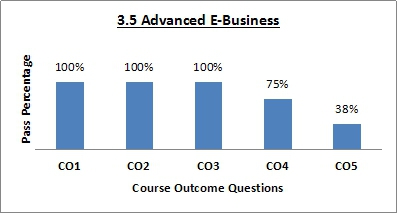 |
|
| Co Attainments | 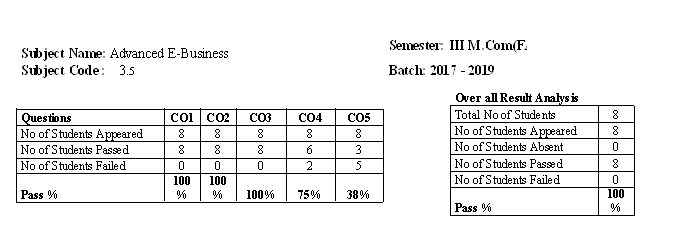 |
|
| Paper Code | 3.6 | |
| Title of the paper | Open Elective: Write It Right | |
| Course Outcome |
|
|
| Analysis |  |
|
| Co Attainments |  |
|
| Class | I Sem B.Com | |
| Course Outcome |
|
|
| CO Attainment |  |
|
| Class | I Sem BBA | |
| Course Outcome |
|
|
| CO Attainment |  |
|
| Class | I Sem BCA & B.SC | |
| Course Outcome |
|
|
| CO Attainment |  |
|
| Class | I Sem B A (GENERAL ENGLISH) | |
| Course Outcome |
|
|
| CO Attainment |  |
|
| Class | III Sem BBA | |
| Course Outcome |
|
|
| CO Attainment |  |
|
| Class | III Sem B.Com | |
| Course Outcome |
|
|
| CO Attainment |  |
|
| Class | III Sem BCA & BSc | |
| Course Outcome |
|
|
| CO Attainment |  |
|
| Semester | 1 ನೇ ಸೆಮಿಸ್ಟರ್ | |
| Topic | I. ಕಾವ್ಯ ಭಾಗ | |
| Course Outcome | 1) ಸಂಧಿಮಾಳ್ಪುದುತ್ತಮ ಪಕ್ಷಂ-ರನ್ನ= ಕುರುಕ್ಷೇತ್ರ ಯುದ್ಧದಲಿ ಅರ್ಥೈಸಿಕೊಳ್ಳುವದೇನಂದರೆ ಮಾನವಿಯತೆ, ಆತ್ಮಾಭಿಮಾನ ಬೆಳೆಸಿಕೊಳ್ಳಬೇಕು, ಮನುಷ್ಯನ ಅಧಿಕಾರದಾಹ, ಲೋಲುಪತೆ, ಆಸೆಬುರುಕತನ, ದುಷ್ಟತನ,ದ್ವೇಷ, ಹಟಮಾರಿತನಗಳಿಂದ ಮಾನಸಿಕವಾಗಿ ಹಾಗೂ ದೈಹಿಕವಾಗಿ ನಮ್ಮ ವ್ಯಕ್ತಿತ್ವವನ್ನು ಹಾಳುಮಾಡಿಕೊಳ್ಳತ್ತೇವೆ ಎಂಬ ಅಂಶವನ್ನು ಈ ಕಾವ್ಯದಿಂದ ವಿದ್ಯಾರ್ಥಿಗಳು ಕಲಿಯುತ್ತಾರೆ.. 2). ವಚನಗಳು-ಬಸವಣ್ಣ,ಅಕ್ಕಮಹಾದೇವಿ = ಸಮಾಜದಲ್ಲಿನ ಅಸಮಾನತೆಯ ಕಂದರದಲ್ಲಿ ಬಿದ್ದಿರವ, ಈ ಬಾರತದ ವರ್ಣವ್ಯವಸ್ಥೆಯ ಸುಧಾರಣೆಗೆ ಮತ್ತು ಸಮಾನತೆಯ ಸಮಾಜದ ನಿರ್ಮಾಣವಾಗಬೇಕೆಂಬ ಅಂಶವನ್ನು ವಿದ್ಯಾರ್ಥಿಗಳು ಕಲಿಯುತ್ತಾರೆ. 3). ತುಂಗಭದ್ರೆ-ಕೆ.ಎಸ್ ನರಸಿಂಹಸ್ವಾಮಿ = ತಂದೆ ತಾಯಿಯರಿಗೆ ಮಗುವಿನ ಮೇಲಿರುವ ಶ್ರದ್ದೆ, ನಂಬಿಕೆ, ಪ್ರೀತಿ ಹಾಗು ಸಂಬಧಗಳ ಮಹತ್ವವು ವಿದ್ಯಾರ್ಥಿಗಳಿಗೆ ಅರಿವಾಗುತ್ತದೆ, ಅಲ್ಲದೆ ತಮ್ಮ ಬದುಕು, ಹಡಗಿನ ಜೊತೆ ಸಮೀಕರಿಸುತ್ತಾ ಭವಿಷ್ಯದ ತಲ್ಲಣಗಳನ್ನು ಮತ್ತು ಗೊಂದಲಗಳನ್ನು ಹಾಗೂ ಪ್ರೀತಿಯ ನಂಬಿಕೆಯನ್ನು ಜೀವ ಬೆಳಕಾಗಿಸುವ ಎಂಬ ಅಂಶವನ್ನು ವಿದ್ಯಾರ್ಥಿಗಳು ಕಲಿಯುತ್ತಾರೆ. 4). ವರ್ಧಮಾನ-ಎಂ.ಗೋಪಾಲಕೃಷ್ಣ ಅಡಿಗ = ಹದಿಹರೆಯದ ಯುವಕರ ಮನಸ್ಸಿನ ಕ್ರಾಂತಿಭಾವ, ವರ್ತಮಾನದ ಮನಸ್ಸಿನ ಏರಿಳಿತಗಳಿಂದಾದ ನಡವಳಿಕೆ ಇದನ್ನು ತಿದ್ದುವ ಹಿರಿತಲೆ ಪ್ರಯತ್ನಿಸುವುದನ್ನು ಕಾಣಬಹುದು, ಅಲ್ಲದೆ ಯುವಕರಲ್ಲಿ ಬದುಕು ಸಾರ್ಥಕವಾಗಿ ವಿಕಾಸಗೊಳ್ಳುವ ಪರಿ ಮತ್ತು ಆತ್ಮ ಪರಿವೀಕ್ಷಣೆಗೆ ತೊಡಗಿ ಸ್ವಯಂ ಸ್ಪುರಿಸಿ ಸಾಧನೆ ಗೈಯುವುದೇ ಈ ಕವಿತೆಯ ಆಶಯವಾಗಿದೆ,ಈ ಅಂಶವನ್ನು ವಿದ್ಯಾರ್ಥಿಗಳು ಕಲಿಯುತ್ತಾರೆ. |
|
| Co - Attainment |  |
|
| Semester | 3 ನೇ ಸೆಮಿಸ್ಟರ್ | |
| Topic | I.ಹಳಗನ್ನಡ ಕಾವ್ಯ ಭಾಗ | |
| Course Outcome | 1) ಸೂಳ್ಪಡೆಯಲ್ಲಪ್ಪುದು ಕಾಣ ಮಹಾಜಿರಂಗದೋಳ್ –ಪಂಪ = ಮಹಾಭಾರತದ ಪಾತ್ರಗಳು ಮತ್ತು ಸಂದೇಶಗಳು ಸಾರ್ವಕಾಲಿಕ ಸತ್ಯವಾದುವುಳೆ ಎಂದು ತಿಳಿದುಕೊಂಡರು. ಮನುಷ್ಯ-ಮನುಷ್ಯನ ಮಧ್ಯೆ ಸ್ವಾರ್ಥ, ಅಹಂಕಾರದ ನೆಲೆಗಳು ಹಾಗೂ ಯೌವನ, ಪರಾಕ್ರಮಗಳ ಪ್ರತಿಷ್ಠೆಯಿಂದ ಯಾವುದೂ ಸಹ ಮನುಷ್ಯನ ಅಭಿವೃದ್ಧಿಗೆ ಬೆಂಬಲವಾಗಿ ನಿಲ್ಲುವುದಿಲ್ಲ ಎಂಬ ಅಂಶವನ್ನು ವಿದ್ಯಾರ್ಥಿಗಳು ತಿಳಿದುಕೊಳ್ಳುತ್ತಾರೆ. 2) ವಚನಗಳು- ವಿವಿಧ ವಚನಕಾರರು = ' ವಚನ ಚಳುವಳಿ ' ಕರ್ನಾಟಕ ಸಂಸ್ಕೃತಿ, ಸಾಹಿತ್ಯ, ಸಮಾಜ ಮತ್ತು ಭಾಷಾಲೊಕಕ್ಕೆ ನೀಡಿರುವ ಕೊಡಿಗೆ ಅಪಾರವಾದುದೆಂದು ತಿಳಿದುಕೊಂಡರು, ಮನುಷ್ಯ ಬದುಕಿನಲ್ಲಿ ಹಣವೇ ಪ್ರಧಾನವಲ್ಲ, ಇದರ ಜೊತೆಗೆ ಮನಸ್ಸನ್ನು ಪರಿಶುದ್ಧದಿಂದ ಕಾಯಕ ಮಾಡಿದಲ್ಲಿ ಶಿವನು ನಿಮ್ಮನ್ನು ಮೆಚ್ಚಿಕೊಳ್ಳುತ್ತಾನೆ, ವಿದ್ಯಾರ್ಥಿಗಳು ವಚನಗಳ ಆಶಯವನ್ನು ತಿಳಿದುಕೊಳ್ಳುತ್ತಾರೆ. 3) ಕಣ್ಣಪ್ಪದೇವರ ರಗಳೆ- ಹರಿಹರ = ಶಿವನನ್ನೇ ಸರ್ವಸ್ವವೆಂದು ಭಾವಿಸಿದ, ಬೇಡ ವೃತ್ತಿಯ ಕಣ್ಣಪ್ಪನ ಮುಗ್ಧ ಭಕ್ತಿ, ಶಿವನ ಕಥೆಯ ಮೂಲಕ ವಿದ್ಯಾರ್ಥಿಗಳು ಭಕ್ತಿ ಪರಾಕಾಷ್ಠೆಯನ್ನು ಎಂಬ ಅಂಶವನ್ನು ವಿದ್ಯಾರ್ಥಿಗಳು ತಿಳಿದುಕೊಳ್ಳುತ್ತಾರೆ. |
|
| Semester | 3 ನೇ ಸೆಮಿಸ್ಟರ್ | |
| Topic | II. ಚಿಂತನೆಧಾರೆ/ವಿಮರ್ಶೆ | |
| Course Outcome | 1) ಇಂದಿನ ಬಂಡವಾಳಶಾಹಿ ಮತ್ತು ಗಾಂಧೀಜಿ ಚಿಂತನೆ – ಡಾ.ಜಿ ರಾಮಕೃಷ್ಣ = ಭಾರತ ಇತ್ತೀಚಿನ ದಿನಗಳಲ್ಲಿ ' ಆರ್ಥಿಕ ಗುಲಾಮಗಿರಿ 'ಎಡೆಗೆ ಧಾವಿಸುತ್ತಿದೆ. ನೈತಿಕ ಮೌಲ್ಯಗಳು, ಅಹಿಂಸೆ, ಸ್ವಾವಲಂಬನೆ–ಮೊದಲಾದುವುಗಳೊಂದಿಗೆ ವಿದೇಶಿ ಸಂಪರ್ಕವನ್ನು ಬೆಸೆಯುವ ಕನಸುಗಳನ್ನು ಹೊತ್ತಿದ್ದ 'ಗಾಂಧೀಜಿ' ಯ ಚಿಂತನೆಗಳ ಮೂಲೆಗುಂಪಾಗುತ್ತಿವೆ, ಇಂಥಹ ವಿಷಯವನ್ನು ವಿದ್ಯಾರ್ಥಿಗಳು ಮನವರಿಕೆ ಮಾಡಿಕೊಡಲಾಗುತ್ತಿದೆ. 2) ಉದ್ಯೋಗ - ಉದ್ದಿಮೆಗಳಲ್ಲಿ ಮಹಿಳೆ –ಡಾ.ಎಂ.ಉಷಾ = ' ಸಾಮಜಿಕ ನ್ಯಾಯ' ವೆಂಬ ಮೌಲ್ಯದ ಅನುಸರಣೆ ಸಾರ್ವತ್ರಿಕವಾಗುತ್ತಿರುವ ಈ ಕಾಲದಲ್ಲಿ ' ಲಿಂಗತಾರತಮ್ಯ' ವನ್ನು ತೊಡೆದು ಹಾಕುವ ಪ್ರಯತ್ನಗಳು ನೆಡಯುತ್ತಿದೆ, ಮಹಿಳೆಯರಿಗೆ ಎಲ್ಲಾ ಅವಕಾಶಗಳು ಕೊಟ್ಟೀದ್ದೇವೆ, ಆದರೆ ಮಾನಸಿಕವಾಗಿ ಮತ್ತು ಆಚರಣೆಯಲ್ಲಿ ಸಮಾನತೆಯಡೆಗೆ ಸಾಗುತ್ತಿಲ್ಲ. ಎಂಬ ಅಂಶವನ್ನು ವಿದ್ಯಾರ್ಥಿಗಳು ತಿಳಿದುಕೊಳ್ಳುತ್ತಾರೆ. 3) ಮಾಹಿತಿ ತಂತ್ರಜ್ಞಾನ ಮತ್ತು ಭಾಶೆ ಹಾಗೂ ಗ್ರಾಮ, ನಗರಗಳ ನಿರಂತರತೆ – ಡಾ.ಆರ್,ಚಲಪತಿ = ಆಧುನಿಕ ಜಗತ್ತಿನಲ್ಲಿ ಯುವ ಜನಾಂಗ ಅಭಿವೃದ್ಧಿಯಾಗಲು ತಾಂತ್ರಿಕ ಜ್ಙಾನ ಮತ್ತು ಆಂಗ್ಲಭಾಷೆಯ ಜ್ಙಾನಗಳು ಅನಿವಾರ್ಯ ಎಂದು ಬಿಂಬಿತವಾಗುತ್ತದೆಯೋ ಹಾಗೆಯೇ ಕನ್ನಡ ಮತ್ತು ತಂತ್ರಜ್ಙಾನಗಳ ಬೆಸೆಯುವ ಕಡೆಗೆ ಗಮನ ಹರಿಸುವ ಅಗತ್ಯತೆ ಇದೆಯೆಂಬುದರ ಬಗ್ಗೆ ವಿದ್ಯಾರ್ಥಿಗಳು ಚಿಂತನೆಯನ್ನು ಕಂಡುಕೊಳ್ಳುತ್ತಾರೆ. |
|
| Semester | 3 ನೇ ಸೆಮಿಸ್ಟರ್ | |
| Topic | III. ಸಂಕೀರ್ಣ ಲೇಖನಗಳು | |
| Course Outcome | 1) ಸಿನಿಮಾ - ಒಂದು ಜನಪದ ಕಲೆ – ಡಾ.ಬರಗೂರುರಾಮಚಂದ್ರಪ್ಪ = ಪ್ರತಿಯೊಬ್ಬರನ್ನು ಮನಸೆಳೆಯುವ ಮನರಂಜನೆ ದೃಶ್ಯ ಮಾಧ್ಯಮವೇ ಸಿನಿಮಾ, ಕಪ್ಪು ಬಿಳುಪಿನ 'ಮೂಕಿ' ಚಿತ್ರಗಳಿಂದ ಆರಂಭವಾದದ್ದು ಇಂದು ತಂತ್ರಜ್ಞಾನದಿಂದ ಮನೆ, ಮನೆಗಳಲ್ಲಿ, ಮೊಬೈಲ್ಗಳಲ್ಲಿ ಪ್ರದರ್ಶನವಾಗುತ್ತಿದೆ. ಇಂತಹ ' ಸಿನಿಮಾ ' ಒಂದು ಆಧುನಿಕ ಜನಪದ ಕಲೆಯಾಗಿದೆ, ಅಲ್ಲದೆ 'ಜನಪದ' ಮತ್ತು 'ಜಾನಪದ' ಪದಗಳ ವಿಶಾಲತೆ ಅರ್ಥವನ್ನು ವಿದ್ಯಾರ್ಥಿಗಳು ತಿಳಿದಕೊಳ್ಳುತ್ತಾರೆ. 2) ವಿಜ್ಞಾನ ಮತ್ತು ಸಮಾಜ-ಡಾ.ಎಚ್ ನರಸಿಂಹಯ್ಯ = ವಿದ್ಯಾವಂತ ತಾನು ಕಲಿತ ವಿದ್ಯೆಯೇ ಬೇರೆ, ಜೀವನವೇ ಬೇರೆ ಎಂದು ಪ್ರತ್ಯೇಕಿಸುವುದು, ಅಲ್ಲದೆ ವಿದ್ಯೆ ಕೇವಲ ಪದವಿಗಾಗಿ, ನೌಕರಿಗಾಗಿ ಅಲ್ಲ, ವಿದ್ಯೆ ಸಮಾಜದ ಅಭಿವೃದ್ಧಿಗಾಗಿ ಮತ್ತು ಯುವ ಜನಾಂಗವನ್ನು ವೈಚಾರಿಕ, ವೈಜ್ಞಾನಿಕ ಪ್ರವೃತ್ತಿಯ ಕಡೆಗೆ ಕರೆದೊಯ್ಯಬೇಕಾಗಿದೆ ಎಂಬ ಆಶಯವನ್ನು ತಿಳಿದುಕೊಂಡರು . 3) ಕನ್ನಡ ಮತ್ತು ಬ್ಲಾಗ್ ಲೋಕ – ಪ್ರೊ.ಎಂ.ಎಸ್. ಶ್ರೀರಾಮ್ = ಇಪ್ಪತ್ತು ವರ್ಷಗಳ ಹಿಂದೆ ಬರವಣಿಗೆ ಕಾಗದದ ಮೇಲೆ ಬರೆಯುದಾಗಿತ್ತು, ಬರದದ್ದು ಪ್ರಕಟಗೊಳ್ಳಲು ಅನೇಕ ತೊಂದರೆಗಳಾಗುತ್ತಿದ್ದವು, ಆದರೆ ವಿಜ್ಞಾನ ಮತ್ತು ತಂತ್ರಜ್ಙಾನ ಬೆಳೆದಹಾಗೆ ' ಬ್ಲಾಗುಗಳ ಲೋಕವು ' ಕನ್ನಡಕ್ಕೆ ಹಲವು ಹೊಸ ಲೇಖಕರನ್ನು ಪರಿಚಯಿಸುತತ್ತಿದೆ ಹಾಗೂ ಜನರ ಸುಪ್ತ ಪ್ರತಿಭೆಯನ್ನು ಗುರುತಿಸುವಂತಹದು ವಿದ್ಯಾರ್ಥಿಗಳಿಗೆ ಈ ಲೇಖನದ ಆಶಯವಾಗಿದೆ, ಈ ಅಂಶವನ್ನು ವಿದ್ಯಾರ್ಥಿಗಳು ತಿಳಿದುಕೊಳ್ಳುತ್ತಾರೆ. |
|
| Semester | 3 ನೇ ಸೆಮಿಸ್ಟರ್ | |
| Topic | IV.ನಿರ್ವಹಣ ಕನ್ನಡ | |
| Course Outcome | 1) ಆನ್ ಲೈನ್ ಮಾರುಕಟ್ಟೆಯ ಕಷ್ಟಸುಖ,ಟಿ.ಆರ್.ಪಿ.ಎಂಬ ಅನಿವಾರ್ಯ ಅವಾಂತರ, ಕೋಟ್ಯಾಧಿಪತಿ ಗುಡಿಸಿಲಲ್ಲೆ ಉಳಿದ! - 2000 ವರ್ಷಗಳ ಇತಿಹಾಸವಿರುವ ಕನ್ನಡ ಭಾಷೆಯನ್ನು ಇಂದಿನ ಕಾಲಮಾನಕ್ಕೆ ತಕ್ಕಂತೆ ಒಗ್ಗಿಸಿಕೊಳ್ಳುವ ಪ್ರಯತ್ನಗಳು ಸತತವಾಗಿ ನೆಡಯತ್ತಿದವೆ. ಸೃಜನಶೀಲ ಸಾಹಿತ್ಯವಷ್ಟೇ ಅಲ್ಲದೆ ಅನ್ಯಜ್ಙಾನ ಶಾಖೆಗಳು, ಪ್ರಚಲಿತ ವಿದ್ಯಾಮಾನಗಳನ್ನು ಕನ್ನಡದಲ್ಲಿ ವಿವರಿಸುವ ಬರವಣಿಗೆ ಮೂಡಿಬರುತ್ತದೆ. ಈ ಮೂಲಕ ಭಾಷೆಯನ್ನು ಸಶಕ್ತಗೊಳಿಸಿ ಜೀವಂತವಾಗಿಡುವ ಕಾರ್ಯ ನಡೆಯುತ್ತಿವೆ. ಇಂತಹ ಪ್ರಯತ್ನಗಳಲ್ಲಿ ' ನಿರ್ವಹಣಾ ಕನ್ನಡ ' ವೆಂಬ ಶಾಖೆಯೂ ಒಂದು. ಇತ್ತೀಚಿನ ದಿನಗಳಲ್ಲಿ " ವಿಶ್ವವೇ ಪುಟ್ಟಗ್ರಾಮ' ವಾಗಿರುವಾಗ ವ್ಯಾಪಾರ, ವಹಿವಾಟುಗಳಲ್ಲಿ ಶಾಸ್ತ್ರೀಯ ಜ್ಞಾನ, ಪದವಿಗಳನ್ನು ಪಡೆದು ವ್ಯಾಪಾರ ಮಾಡುವ, ವ್ಯವಹಾರ ನಡೆಸುವ ಪ್ರವೃತ್ತಿ ಹೆಚ್ಚಾಗಿ ನಡೆಯತ್ತಿದೆ. ಈ ಕ್ಷೇತ್ರಗಳಿಗೆ ಸಂಬಂಧಿಸದ ವಿಷಯಗಳನ್ನು ವಿದ್ಯಾರ್ಥಿಗಳು ಕಲಿಯುತ್ತಾರೆ. |
|
| Co - Attainment |  |
|
| Semester | 1 ನೇ ಸೆಮಿಸ್ಟರ್ | |
| Topic | I . ಕಾವ್ಯ ಭಾಗ | |
| Course Outcome | 1) ಸಾಹಸಧನ ದುರ್ಯೋಧನಂ- ರನ್ನ = ಹಳಗನ್ನಡ ಚಂಪೂಕಾವ್ಯಗಳಲ್ಲಿ ಪ್ರತಿನಾಯಕರನ್ನು ಅಂದರೆ ಪಂಪನ-ಕರ್ಣ, ರನ್ನನ-ದುರ್ಯೋಧನ, ನಾಗಚಂದ್ರನ-ರಾವಣ ಮುಂತಾದವರನ್ನು ಕೇವಲ ಖಳನಾಯಕರನ್ನಾಗಿ ಮಾತ್ರ ಚಿತ್ರಿಸದೆ, ಅವರಲ್ಲಿರುವ ಮಾನವೀಯ ಮುಖಗಳನ್ನು ಅನಾವರಣಗೊಳಿಸಿರುತ್ತಾರೆ.ಇಲ್ಲಿ ಕವಿಯ ಸೋಪಜ್ಞತೆಯನ್ನು ವಿದ್ಯಾರ್ಥಿಗಳು ತಿಳಿದುಕೊಳ್ಳುತ್ತಾರೆ. 2) ಬೆಳಗೆ ಕನ್ನಡಿಯೆನಿಸಿತ್ತಯ್ಯಾ–ವಚನಕಾರರು = ಮನುಷ್ಯ ತನ್ನ ಬದುಕನ್ನು ಹಸನು ಮಾಡಿಕೊಳ್ಳುವುದು ಹೇಗೆ ಎನ್ನುವುದು ಮತ್ತು ಇದಕ್ಕಾಗಿ ನಾವು ಸತತವಾಗಿ ಪ್ರಯತ್ನಿಸಬೇಕು, ಬೇಂದ್ರೆಯವರು ಹೇಳುವಂತೆ 'ಬದುಕಿನೊಳಗೆ ಬಾಳುವುದು' ಅಲ್ಲದೆ 'ಬದುಕು-ಬದುಕ ಗೂಡು', ಎನ್ನುವ ಉತ್ತಮ ಸ್ಥಿತಿಯ ಎತ್ತರಕ್ಕೆ ಮನುಷ್ಯರು ಏರಬೇಕೆಂದರೆ ಮಾನವೀಯತೆಯಿಂದ, ಪ್ರೀತಿಯಿಂದ ಮಾತ್ರ ಸಾದ್ಯ ಎಂಬ ಅಂಶವನ್ನು ವಿದ್ಯಾರ್ಥಿಗಳು ತಿಳಿದುಕೊಳ್ಳುತ್ತಾರೆ. 3) ಚಿಗರಿಗಂಗಳ ಚೆಲುವಿ.- ದ.ರಾ. ಬೇಂದ್ರೆ = " ಪ್ರಕೃತಿಗೆ ಮನುಷ್ಯರ ಆಸೆಗಳನ್ನು ಪೂರೈಸುವ ಶಕ್ತಿಯಿದೆ, ದರಾಸೆಗಳನ್ನಲ್ಲ '' – ಮಹಾತ್ಮಗಾಂಧಿ, ಭೂಮಿ ಒಂದು ಅಪೂರ್ವ ಗ್ರಹ, ಇದೊಂದು ಅನೇಕ ಜೀವಸಂಕುಲಗಳನ್ನೊಳಗೊಂಡ, ಅಪಾರ ಜೀವ ಚೈತನ್ಯವುಳ್ಳ ವಿಸ್ಮಯ, 'ಎಳ್ಳು ಜೀರಿಗೆ ಬೆಳೆಯೋಳ ಭೂಮ್ತಾಯಿಯನ್ನು ನೆನದು ಪೂಜಿಸುವುದು. ಈ ಎಲ್ಲ ಅಂಶಗಳನ್ನ ವಿದ್ಯಾರ್ಥಿಗಳು ತಿಳಿದುಕೊಳ್ಳುತ್ತಾರೆ . 4) ಕುರಿಗಳು ಸಾರ್ ಕುರಿಗಳು- ಕೆ.ಎಸ್ ನಿಸಾರ್ ಅಹಮದ್ – ಇಲ್ಲಿ ಪ್ರಜಾ ಪ್ರಭುತ್ವ ವ್ಯವಸ್ಥೆಯನ್ನು ಕಡೆಗಣಿಸುತ್ತಿರುವುದು ಬಗ್ಗೆ ' ಪ್ರಜಾಪ್ರಭುತ್ವವೆಂದರೆ-ಪ್ರಜೆಗಳಿಂದ ಪಜೆಗಳಿಗಾಗಿ, ಪ್ರಜೆಗಳಿಗೋಸ್ಕರ ' ಅಬ್ರಹಂ ಲಿಂಕನ್ ಮಾತಿನಂತೆ, ಕುರಿ ಮತ್ತು ಕೆಟ್ಟ ಕುರುಬನ ಸಂಬಂಧವಾಗಿಬಿಟ್ಟರೆ ಆಗ ದಬ್ಬಾಳಿಕೆಯಲ್ಲದೆ ಸಮಾನತೆಯಲ್ಲಿಯದು? ಎಂಬುದು ಈ ಕವಿತೆಯ ಆಶಯವಾಗಿದೆ, ಈ ಅಂಶಗಳ ಬಗ್ಗೆ ವಿದ್ಯಾರ್ಥಿಗಳು ಅರಿವನ್ನ ಪಡೆಯ ಪಡೆಯುತ್ತಾರೆ. |
|
| Semester | 1 ನೇ ಸೆಮಿಸ್ಟರ್ | |
| Topic | II. ಕಥಾ ಸಾಹಿತ್ಯ | |
| Course Outcome | 1) ಮೋಚಿ – ಭಾರತೀ ಪ್ರಿಯ = ಬಡತನದ ಬಗ್ಗೆ ಸಾಮಾನ್ಯವಾಗಿ ಸಿಗುವ ಮೊದಲ ಪ್ರತಿಕ್ರಿಯೆ ಅನುಕಂಪದ್ದು. ಆದರೆ ಅನುಕಂಪವೆನ್ನುವುದು ಅನೇಕ ಬಾರಿ ಅಹಂಕಾರದ ಇನ್ನೊಂದು ರೂಪವಾಗಿರುತ್ತದೆ. ಕರುಣೆಯ ಕೂಸುಗಳಾಗುವುದು ಅವರಿಗೆ ಖಂಡಿತ ಹಿಂಸೆ ಮತ್ತು ಅಪಮಾನದ ಸಂಗತಿಯೂ ಆಗಬಲ್ಲದು ಎಂಬ ಅಂಶವನ್ನು ತಿಳಿದುಕೊಳ್ಳುತ್ತಾರೆ. 2) ನಿರಾಕರಣೆ – ವೀಣಾ ಶಾಂತೇಶ್ವರ = 'ನಿರಾಕರಣೆ ' ಕತೆಯ ಶಕುಂತಲೆಯ ವ್ಯಕ್ತಿತ್ವಕ್ಕಿಂತ ಭಿನ್ನವಾದುದು, ಎದುರಾದ ಸವಾಲುಗಳನ್ನು ತನ್ನ ಆತ್ಮ ಗೌರವಕ್ಕೆ ಧಕ್ಕೆ ಬಾರದಂತೆ ನಿಭಾಯಿಸಲು ಇವಳು ಪ್ರಯತ್ನಿಸುತ್ತಾಳೆ ಅಲ್ಲದೆ ಸ್ವಾಭಿಮಾನಿ ಹೆಣ್ಣಾಗಿ ಕಾಣಿಸಿ ಕೊಳ್ಳುತ್ತಾಳೆ ಎನ್ನುವುದು ಇಲ್ಲಿ ಆಶಯ ವಾಗಿದೆ, ಈ ಅಂಶವನ್ನು ವಿದ್ಯಾರ್ಥಿಗಳು ತಿಳುದುಕೊಳ್ಳುತ್ತಾರೆ. 3) ಕೂರ್ಮಾವತಾರ - ಕುಂ .ವೀರಭದ್ರಪ್ಪ = ಗಾಂಧಿ ಎನ್ನುವ ವ್ಯಕ್ತಿ ಮತ್ತು ಬದುಕಿನ ಕ್ರಮದ ಜೊತೆ ಭಾರತೀಯರ ಸಂವಾದ ನಿರಂತರವಾಗಿ ನಡೆದೇ ಇದೆ. ಅವರೊಂದಿಗೆ ಸ್ನೇಹ, ಪ್ರೀತಿ ಮತ್ತು ಜಗಳ ಎಲ್ಲವು ಇದೆ. ಈ ಕಾರಣಕ್ಕಾಗಿಯೇ ಗಾಂಧಿ ಬಾರತೀಯರ ಆಲೋಚನಾಕ್ರಮದಲ್ಲಿ ಇದ್ದೇ ಇದ್ದಾರೆ ಎನ್ನುವ ಇಲ್ಲಿನ ಆಶಯವಾಗಿದೆ, ಈ ಅಂಶವನ್ನು ವಿದ್ಯಾರ್ಥಿಗಳು ತಿಳುದುಕೊಳ್ಳುತ್ತಾರೆ. |
|
| Semester | 1 ನೇ ಸೆಮಿಸ್ಟರ್ | |
| Topic | III. ಜಾನಪದ | |
| Course Outcome | 1) ನಾಲ್ವರು ಜಾಣರು – ಜನಪದ ಕಥೆ = 'ಇದ್ದಲ್ಲಿ ಸಲ್ಲುವ, ಹೋದಲ್ಲಿಯೂ ಸಲ್ಲುವ' ಕವಿ ಸರ್ವಜ್ಞ ಹೇಳುತ್ತಾನೆ. ಆತುರ ಪಡದೆ, ಚೆನ್ನಗಿ ವಿವೇಚಿಸಿ, ಸರಿಯಾಗಿ ನಡೆಯಬಲ್ಲವನೆ ಬುದ್ಧಿಶಾಲಿ, ಅವನು ವಿದ್ಯಾವಂತನಾಗಬೇಕಾದುದು ನಿಯಮವೇನಲ್ಲ ಅನಿಗೆ ಬೇಕಾದುದು ಜೀವನ ವಿವೇಕ ಎನ್ನುವ ವಿಚಾರವನ್ನುವಿದ್ಯಾರ್ಥಿಗಳು ತಿಳಿದುಕೊಳ್ಳುತ್ತಾರೆ. 2) ಮೈಸೂರು ದೊರೆ ಕಥೆ – ಜನಪದ ಲಾವಣಿ = ಜಗತ್ತಿನಲ್ಲಿ ಮನುಷ್ಯರು ಹೆಚ್ಚು ಬುದ್ದಿಯುಳ್ಳ ಪ್ರಾಣಿಯಿಲ್ಲ. ಅಷ್ಟೇ ಅಲ್ಲ ಅವನು ಮೂರ್ಖ, ಕೇಡಿಗಪ್ರಾಣಿಯೂ ಯಾವುದೂ ಇಲ್ಲ. ಆದರೆ ಮನುಷ್ಯ ಮನುಷ್ಯನನ್ನು ಪ್ರೀತಿಯಿಂದ ನೋಡುವುದು, ಸಹಕರಿಸುವುದು ಮುಖ್ಯವಾಗುತ್ತದೆ ಎಂದು ಇಲ್ಲಿನ ಆಶಯವಾಗಿದೆ ಎಂಬ ಈ ಅಂಶವನ್ನು ವಿದ್ಯಾರ್ಥಿಗಳು ತಿಳುದುಕೊಳ್ಳುತ್ತಾರೆ. 3) ಬೆಳ್ದಿಂಗ್ಳಪ್ಪನ ಪೂಜೆ – ಅಗ್ರಹಾರ ಕೃಷ್ಣಮೂರ್ತಿ = ಬೆಳ್ದಿಂಗ್ಳಪ್ಪನ ಪೂಜೆಯಂತಹ ಆಚರಣೆಗಳು ನಮ್ಮನ್ನು ಸಮ್ಮೋಹನಗೊಳಿಸುತ್ತವೆ, ತಣ್ಣನೆಯ ಹುಣ್ಣಿಮೆ ರಾತ್ರಿಯಲ್ಲಿ, ಹಳ್ಳಿ ಜನರೆಲ್ಲ ಸೇರಿ ಪೂಜೆಯ ಆಚರಣೆಯನ್ನು ಮಾಡಿ ಸಂಭ್ರಮ ಪಡುತ್ತಾರೆ. ಹಳ್ಳಿಯವರ ಮುಗ್ದಮನಸ್ಸನ್ನು ಇಲ್ಲಿ ತಿಳಿದುಕೊಳ್ಳುತ್ತಾರೆ. |
|
| Semester | 1 ನೇ ಸೆಮಿಸ್ಟರ್ | |
| Topic | IV.ಲೇಖನ ವೈವಿದ್ಯ | |
| Course Outcome | 1) ಒಂದು ಬೈಸಿಕಲ್ ಬೆಳಿಗ್ಗೆ – ಪಿ. ಲಂಕೇಶ್ = ಚಿಕ್ಕದು-ದೊಡ್ಡದು ಎಂಬ ವ್ಯತ್ಯಾಸವಿಲ್ಲ ಕವಿ ಬೇಂದ್ರೆಯವರು 'ಲೀಲೆಯಲಿ ಯಾವುದೂ ವಿಫಲವಲ್ಲ' ಎಂದು ಸೂಚಿಸಿರುವುದುಇದನ್ನೆ.ಬೆಚ್ಚಗಿನ ಬಂಧದಲ್ಲಿ ಮೈದಾಳುವ ಜೀವ-ಜೀವದ ಸಂಬಂಧ, ಜೀವನ ಪ್ರೀತಿಗಳ ಹೃದ್ಯ ಚಿತ್ರಣವನ್ನು ಕಂಡುಕೊಳ್ಳುತ್ತಾರೆ. 2) ಮುಸ್ಲಿಂ ಹುಡಿಗಿ ಶಾಲೆ ಕಲಿತದ್ದು – ಸಾರಾ ಅಬೂಬಕರ್ = " ಆಧುನಿಕ ವಿದ್ಯಾಭ್ಯಾಸ ತಮಗೆ ದುರಕದೇ ಹೋಗಿದ್ದರೆ ತಾವು ಯಾರದೊ ಮನೆಯಲ್ಲಿ ಸಗಣಿ ಬಾಚಿಕೊಂಡು ಇರಬೇಕಾಗಿತ್ತು. ಎಂದು ಕುವೆಂಪುರವರೇ ಹೇಳುತ್ತಾರೆಮದರೆ, ವಿದ್ಯಭ್ಯಾಸದ (ಶಿಕ್ಷಣ) ಮಹತ್ವವನ್ನು ಅರ್ಥಮಾಡಿಕೊಳ್ಳಬಹುದು. ಹೆಣ್ಣಿರಲಿ ಗಂಡಿರಲಿ ಸರಿಯಾದ ಶಿಕ್ಷಣವಿಲ್ಲದಿದ್ದರೆ ಬದುಕು ಅಪೂರ್ಣ ಎಂದು ಈ ಲೇಖನದ ಆಶಯವಾಗಿದೆ, ಈ ಅಂಶವನ್ನು ವಿದ್ಯಾರ್ಥಿಗಳು ತಿಳುದುಕೊಳ್ಳುತ್ತಾರೆ. 3) ಇಲ್ಲಿ ಯಾರು ಮುಖ್ಯರಲ್ಲ,ಯಾರೂ ಅಮುಖ್ಯರಲ್ಲ… – ಕೃಪಾಕರ ಸೇನಾನಿ = ನಮ್ಮ ಕಣ್ಣಿಗೆ ಕಾಣುವ ಕಾಣದಿರವ ಅನೇಕ ಜೀವ ವೈವಿದ್ಯಗಳು ಪ್ರಕೃತಿಲ್ಲಿವೆ, ಈ ವಿಸ್ಮಯಲೊಕವನ್ನು ಸೂಕ್ಷ್ಮವಾಗಿ ಗಮನಿಸುವ ಮನಸ್ಸು ಮತ್ತು ತಾಳ್ಮೆ ನಮಗಿರಬೇಕು. ಆಗ ನಮ್ಮ ಮುಂದೆ ರೋಮಾಂಚನಕಾರಿಯಾದ ಹೊಸಲೋಕವೆ ತೆರೆದುಕೊಳ್ಳುತ್ತೆದೆ, ಎನ್ನುವುದು ಇಲ್ಲಿನ ಆಶಯವಾಗಿದೆ ಎಂಬ ಈ ಅಂಶವನ್ನು ವಿದ್ಯಾರ್ಥಿಗಳು ತಿಳುದುಕೊಳ್ಳುತ್ತಾರೆ. |
|
| Co - Attainment |  |
|
| Semester | 3 ನೇ ಸೆಮಿಸ್ಟರ್ | |
| Topic | I .ಹಳಗನ್ನಡ ಕಾವ್ಯ | |
| Course Outcome | 1) ಖಾಂಡವ ವನ ದಹನ – ಪಂಪ = ನಮ್ಮ ಸುತ್ತಣ ಪರಿಸರವನ್ನು ಹಾಳುಮಾಡುತ್ತಾ ಹೋದಲ್ಲಿ ನಾವು ಭವಿಷ್ಯದಲ್ಲಿ ಘನ ಘೋರ ದುರಂತಕ್ಕೆ ಈಡಾಗುತ್ತೇವೆ ಎಂಬುದನ್ನು ಪಂಪ ಖಾಂಡವ ವನದಹನ ನಿದರ್ಶನದಿಂದ ಮನಗಾಣಿಸಿದ್ದಾನೆ. ಅಲ್ಲದೆ ಇಂದ್ರ ಮತ್ತು ಅರ್ಜುನನಂತ ತಂದೆ-ಮಕ್ಕಳ ಅವಿವೇಕದ ಆಟಗಳಿಗೆ ಕುಮ್ಮಕ್ಕು ಕೊಡುವ ಪ್ರಕೃತಿ ವಿರೊಧಿಗಳು ಎಲ್ಲ ಕಾಲದಲ್ಲೂ ಇರುತ್ತಾರೆ ಎಂಬುದನ್ನು ಈ ಪ್ರಸಂಗ ಧ್ವನಿಸುತ್ತದೆ ಎಂಬ ಈ ಅಂಶವನ್ನು ವಿದ್ಯಾರ್ಥಿಗಳು ತಿಳುದುಕೊಳ್ಳುತ್ತಾರೆ 2) ವಚನಗಳು (ವಚನ ಸಾಹಿತ್ಯ) - ವಿವಿಧ ವಚನಕಾರರು = ವಚನಕಾರರು ದೇವರು, ಧರ್ಮ , ಬಕ್ತಿ, ಮೋಕ್ಷ ಇವುಗಳಲ್ಲಿ ಸಿಂಹ ಪಾಲು ಪಡೆದಿದ್ದರೂ, ಜನ ಜೀವನದ ಬಗ್ಗೆ ಇರುವ ಕಳಕಳಿ, ಸಮಾಜದ ಬಗ್ಗೆ ಅಭಿವ್ಯಕ್ತವಾಗಿರುವ ಕಾಳಜಿ, ತಮ್ಮ ಸಮಾಜಕ್ಕೇನಾದರು ನೀಡುವ ಜೊತಗೆ ಶ್ರದ್ಧೆ, ಭಕ್ತಿ, ನಿಷ್ಠೆ ಮತ್ತು ಪ್ರೀತಿಯಂದ ಕೂಡಿದ ನಡವಳಿಕೆ ಈ ಸಮಾಜಕ್ಕೆ ಬೇಕು ಎನ್ನವುದು ಈ ವಚನಗಳ ಆಶಯವಾಗಿದೆ, ಎಂಬ ಈ ಅಂಶವನ್ನು ವಿದ್ಯಾರ್ಥಿಗಳು ತಿಳುದುಕೊಳ್ಳುತ್ತಾರೆ. 3) ಕಿರುವೆಳ ಸಟೆ – ರತ್ನಾಕರವರ್ಣಿ = ರತ್ನಕರನ ಭರತೇಶ, ಕುಮಾರವ್ಯಾಸನ ಕೃಷ್ಣ, ಚಾಮರಸನ ಅಲ್ಲಮ ಮಾನವ ರೂಪದ ದಿವ್ಯ ಚೇತನರು. ಭರತನ ವ್ಯಕ್ತಿತ್ವದಲ್ಲಿ ದೈವತ್ವ ಮತ್ತು ಮನುಷ್ಯತ್ವ ಬೆರೆತಿವೆ. ಅದರ ಚಿತ್ರಣದ ಒಂದು ಮಾದರಿ ಎಂಬ ಈ ಅಂಶವನ್ನು ವಿದ್ಯಾರ್ಥಿಗಳು ತಿಳುದುಕೊಳ್ಳುತ್ತಾರೆ |
|
| Semester | 3 ನೇ ಸೆಮಿಸ್ಟರ್ | |
| Topic | II. ಕಥಾ ಸಾಹಿತ್ಯ | |
| Course Outcome | 1) ದೃಷ್ಟಿ ಲಾಭ – ಪ್ರೊ.ಎಂ.ವಿ ಸೀತರಾಮಯ್ಯ = ಸಂಗೀತಗಾರ ಕುರುಡನಾಗಿದ್ದ, ಪತ್ನಿ ಶಾರದಮ್ಮ ಸಾಧುಗಲ್ಲಿ ಪ್ರಾರ್ಥಿಸಿದ ಫಲವಾಗಿ ದೃಷ್ಠಿ ಪಡೆದ ಆದರೆ ಅದರಿಂದ ಅವನ ಕಣ್ಣಿಗೆ ಆದರೆ ಅವನ ಪತ್ನಿಯ ಬಾಹ್ಯ ಕುರೂಪ ಕಂಡಿತು, ಚಲುವೆಯರ ಸಹಾವಾಸದಿಂದ ರೋಗಿಷ್ಟನಾಗಿ ಕಣ್ಣನ್ನು ಕಳೆದುಕೊಂಡ. ಮನುಷ್ಯ ಇಲ್ಲದ್ದನ್ನು ಬಯಸಿದಾಗ ಎದುರಾಗುವ ಸಮಸ್ಯೆಗಳು ಹಲವಾರು ಎಂದು ಈ ಕಥೆಯಿಂದ ತಿಳಿದುಕೊಳ್ಳುತ್ತಾರೆ. 2) ಮುಯ್ಯಿ – ಪ್ರೊ.ಎಲ್.ಎಸ್ ಶೇಷಗಿರಿರಾವ್ = ' ತಾನೊಂದು ಬಗೆದರೆ ದೈವವೊಂದು ಬಗೆಯಿತು' ಎಂಬಂತೆ ಮಾನವರು ತಾವೆಷ್ಟೇ ಜ್ಞಾನಿಯಾದರು ಪ್ರೌಢರಾದರೂ ವಿಧಿಯ ಕೈಗೊಂಬೆಯಾಗಿದ್ದೇವೆ ಎಂಬುದನ್ನು ತಿಳಿಯಬಹುದು, ಆದರೆ ಪ್ರಯತ್ನ ನಿಲ್ಲಿಸಬಾರದು ಎಂದು ಕಥೆಯ ಆಶಯವಾಗಿದೆ, ಎಂಬ ಈ ಅಂಶವನ್ನು ವಿದ್ಯಾರ್ಥಿಗಳು ತಿಳುದುಕೊಳ್ಳುತ್ತಾರೆ. 3) ಮುಕ್ಕಣ್ಣನ ಮುಕ್ತಿ – ಕೋ. ಚೆನ್ನಬಸಪ್ಪ = ಹಳ್ಳಿಯ ನೈಜ ಚಿತ್ರವನ್ನು ಚಿತ್ರಿಸುವ ಕತೆಯಾಗಿದೆ. ಲಿಂಗನ ಮೂಕ ಪ್ರಾಣಿಗಳ ಮೇಲಿನ ಪ್ರೀತಿ, ದಯೆ ಪ್ರಸ್ತುತ ಜೀವನಕ್ಕೆ ಅವಶ್ಯಕವಾದುದು. ಪ್ರಾಣಿದಯೆ ಕತೆಯ ಒಳತೋಟಿಯನ್ನು ಹಿಡಿದು ನಡೆಸುತ್ತದೆ ಎನ್ನುವುದು ಈ ಕಥೆಯ ಆಶಯವಾಗಿದೆ, ಎಂಬ ಈ ಅಂಶವನ್ನು ವಿದ್ಯಾರ್ಥಿಗಳು ತಿಳುದುಕೊಳ್ಳುತ್ತಾರೆ. |
|
| Semester | 3 ನೇ ಸೆಮಿಸ್ಟರ್ | |
| Topic | III. ಭಾಷಾ ಕೌಶಲ | |
| Course Outcome | 1) ನಮ್ಮ ಭಾಷೆ – ಎಂ ಮರಿಯಪ್ಪ ಭಟ್ಟ : ಭಾಷೆ ಸಂವಹನ ಮಾಧ್ಯಮ ಅದು ಮಾತು ಮತ್ತು ಬರಹ ರೂಪದಲ್ಲಿ ಅಭಿವ್ಯಕ್ತಗೊಳ್ಳುತ್ತದೆ ಶ್ರವಣ, ಚಾಕ್ಷುಷ(ಕು) ಎಂದು ಪರಿಗಳಿಸದೆ. ಮಾತಿನ ಸಾಂಕೆತಿಕ ರೂಪವೇ ಬರಹ. ಭಾಷೆಗೆ, ರೂಪ, ಆಕಾರ, ಭೌತಿಕ ಅಥವಾ ರಾಚನಿಕ ಗುಣಗಳೇನು ಇಲ್ಲ. ಅದು ಪ್ರಾದೇಶಿಕವಾಗಿ ಸನ್ನಿವೇಷವನ್ನು ಆರ್ಥೈಸುವ ಹೊಂದಾಣಿಕೆ ಕೆಲಸವನ್ನು ಪ್ರಾತಿನಿಧಿಕವಾಗಿ ಇರ್ವಹಿಸುತ್ತದೆ, ಎನ್ನುವ ಇಲ್ಲಿನ ಆಶಯವಾಗಿದೆ, ಎಂಬ ಈ ಅಂಶವನ್ನು ವಿದ್ಯಾರ್ಥಿಗಳು ತಿಳುದುಕೊಳ್ಳುತ್ತಾರೆ. 2) ಭಾಷೆಯ ಮಾಂತ್ರಿಕತೆ – ಡಾ.ಕೆ.ವಿ. ನಾರಯಣ = ಭಾಷೆಗೂ ಅವುಗಳದ್ದೇ ಆದ ನುಡಿಗಟ್ಟುಗಳು, ನಾಣ್ಣುಡಿ, ಗಾದೆಗಳಿದ್ದು ಅದರದ್ದೇ ಅರ್ಥ ವೈಶಲ್ಯವೂ ಇದೆ. ಮಂತ್ರ ಸ್ತೂತ್ರ, ನಾಮವಳಿ, ಬೀಜಾಕ್ಷರಗಳು ವಿಶಿಷ್ಟ ಶಕ್ತಿ ಇದ್ದು, ಅವು ಅದ್ಬತ ಪ್ರಭಾವವನ್ನು ಬೀರುತ್ತವೆ ಎಂದು ಜನರು ಭಾವಿಸುತ್ತಾರೆ, ಎಂಬ ಈ ಅಂಶವನ್ನು ವಿದ್ಯಾರ್ಥಿಗಳು ತಿಳುದುಕೊಳ್ಳುತ್ತಾರೆ. 3) ಭಾಷೆಯೂ ಲೋಕ ಸೌಂದರ್ಯುವೂ – ಕೆ. ವಿ ತಿರುಮಲೇಶ್ - ಭಾಷೆಯು ಪ್ರಬಲ ಸಂಪರ್ಕ ಮಾಧ್ಯಮವಾಗಿದೆ. ಭಾಷೆಯು ಮನುಷ್ಯನ ಸಂಸ್ಕೃತಿ ಅಂಗವಾಗಿದೆ. ಭಾಷೆಗೆ ಎರಡು ಗುಳಗಳಿರುತ್ತವೆ 1) ಸ್ಥಿತಿ ಸ್ಥಾಪಕತ್ವ ಮತ್ತು 2) ಉದಾರತೆ ಇರಬೇಕಾಗುತ್ತದೆ. ಭಾಷೆ ಪ್ರಗತಿ ಹೊಂದಬೇಕಾದರೆ ಅದನ್ನು ಆಡುವ ಜನರಲ್ಲಿ ಆಭಿಮಾನ ಇರಬೇಕು ಎಂದು ಈ ಲೇಖನದ ಆಶಯವಾಗಿದೆ. |
|
| Semester | 3 ನೇ ಸೆಮಿಸ್ಟರ್ | |
| Topic | IV. ಸಂಕೀರ್ಣ ಲೇಖನಗಳು | |
| Course Outcome | 1) " ಯುವ ಜನಾಂಗ ಮತ್ತು ಧಾರ್ಮಿಕ ಸಾಮರಸ್ಯ " –ಎಚ್.ಎಸ್ ಸತ್ಯನಾರಾಯಣ = ಧರ್ಮ ಮನುಷ್ಯನ ಪಾಲಿಗೆ ವರವೆಂದು ಭಾವಿಸಲಾಗಿತ್ತು, ಆದರೆ ಇಂದು ಶಾಪವಾಗಿ ಪರಿಗಣಿಸಿದೆ. ಧರ್ಮ ಸಾಮಾಜಿಕ ವಿಘಟನೆಗಳಿಗೆ ದರ್ಮಾಂಧತೆಯು ಪ್ರಮುಖ ಕಾರಣವಾಗಿದೆ ಇಂದಿನ ಯುವ ಪೀಳಿಗೆ ಜಾತಿ ಧರ್ಮದಿಂದ ಹೊರ ಬಂದು, ಸಾಮಾಜಿ ಸಮಾನತೆ ಸಾರಬೇಕೆಂಬುದು ಈ ಲೇಖನದ ಆಶಯವಾಗಿದೆ, ಎಂಬ ಈ ಅಂಶವನ್ನು ವಿದ್ಯಾರ್ಥಿಗಳು ತಿಳುದುಕೊಳ್ಳುತ್ತಾರೆ. 2) ವಿಜ್ಞಾನ ಮತ್ತು ಧರ್ಮ – ಡಾ. ರಾಜೇಂದ್ರ ಎಸ್. ಗಡಾದ = ಧರ್ಮ ಎಂಬುದು ಮೂಲ ಆಶಯದಲ್ಲಿ ಮಾನವನ ಹಿತವನ್ನು ಕಾಯುವ ಉದ್ಧೇಶ ಇಲ್ಲ, ಕೇವಲ ಸಾರ್ಜನಿಕರಲ್ಲಿ ಸಾಮರಸ್ಯದ ಬದುಕಿಗೆ ವಿಘನೆಗಳನ್ನು ತಂದೊಡ್ಡಿದೆ. ಇದರಿಂದ ದೂರ ಸರಿದು ಹದಿಹರೆಯದ ಮನಸ್ಸುಗಳಲ್ಲಿ ಚಿಂತನೆಯ ಬೀಜವನ್ನು ಬಿತ್ತಿ ವೈಚಾರಿಕತೆಯ ಬೆಳೆಯನ್ನು ಬೆಳೆಯಬೇಕು ಎಂಬುದು ಇಲ್ಲಿನ ಆಶಯವಾಗಿದೆ, ಎಂಬ ಈ ಅಂಶವನ್ನು ವಿದ್ಯಾರ್ಥಿಗಳು ತಿಳುದುಕೊಳ್ಳುತ್ತಾರೆ. 3) ಹದಿಹರೆಯದವರನ್ನು ಕುರಿತು - ಪಿ.ಲಂಕೇಶ್ = 'ಹದಿಹರೆಯದ' ಬೆಳೆವಣಿಗೆಯ ಮನ್ವಂತರವನ್ನು ಆರೋಗ್ಯಪೂರ್ಣವಾಗಿ ನಿರ್ವಹಿಸುವ ಕುರಿತು ಆಪ್ತ ಶೈಲಿಯಲ್ಲಿ ಸಂವಾದಿಸುತ್ತದೆ. ಹದಿಹರೆಯದವರೊಂದಿಗೆ ಎಲ್ಲರೂ ಓದಿ ಮನೆಯ ವಾತವರಣವನ್ನು ಸಹ್ಯವಾಗಿಸಿಕೊಳ್ಳಲು ಈ ಬರವಣಿಗೆ ದಾರಿದೀಪವಾಗಿದೆ, ಎಂಬ ಈ ಅಂಶವನ್ನು ವಿದ್ಯಾರ್ಥಿಗಳು ತಿಳುದುಕೊಳ್ಳುತ್ತಾರೆ. |
|
| Co - Attainment |  |
|
| Semester | 1 ನೇ ಸೆಮಿಸ್ಟರ್ | |
| Topic | I.ಕಾವ್ಯ ಭಾಗ | |
| Course Outcome | 1)ಈ ಭಾಗದಲ್ಲಿ ವಿದ್ಯಾರ್ಥಿಗಳಿಗೆ ಹಳಗನ್ನಡ ಸಾಹಿತ್ಯದಲ್ಲಿ ಜೈನ ಕವಿ ನಾಗಚಂದ್ರರ ರಾಮಚಂದ್ರ ಚರಿತ ಪುರಾಣದ'ಬಿದಿಯಂ ಮೀರುಗುಮೆ ಪೆರರ ಪೇಳ್ದುಪದೇಶಂ' ಕಾವ್ಯ ಭಾಗದಲ್ಲಿ ರಾವಣ ಸೀತೆಯನ್ನು ಅಪಹರಿಸಲು ಕಾರಣ ವಿದಿ ಆತನ ಜೀವನದಲ್ಲಿ ನಡೆಸಿದ ಆಟವನ್ನು ಅರಿತಿದ್ದಾರೆ. 2)'ವಚನಗಳ' ಭಾಗದಲ್ಲಿ ಬಸವಣ್ಣ, ಅಕ್ಕಮಹಾದೇವಿ, ಅಂಬಿಗರ ಚೌಡಯ್ಯನ ವಚನಗಳಲ್ಲಿ ಸಾಮಾಜಿಕ, ಆರ್ಥಿಕ, ಸಾಂಸ್ಕೃತಿಕ ದೃಷ್ಟಿಕೋನದಿಂದ ವೈಚಾರಿಕತೆಯನ್ನು ತಿಳಿಸಿಕೊಡಲಾಗಿದೆ. 3) ದ.ರಾ.ಬೇಂದ್ರೆಯವರ 'ಅನ್ನಯಜ್ಞ' ಕವಿತೆಯಲ್ಲಿ ಅನ್ನದ ಮಹತ್ವವನ್ನು ಅರಿತಿದ್ದಾರೆ. 4) ಗಂಗಾದರ ಚಿತ್ತಾಲರ 'ಸಂಪರ್ಕ' ಕವಿತೆ ಪ್ರಕೃತಿಯ ವಿಶ್ಮಯವನ್ನು ತಿಳಿಸಿಕೊಡಲಾಗಿದೆ. ಈ ಭಾಗದಲ್ಲಿ ಕಾವ್ಯದ ವಿವಿದ ಪ್ರಕಾರಗಳನ್ನು ಅರಿತಿದ್ದಾರೆ. |
|
| Semester | 1 ನೇ ಸೆಮಿಸ್ಟರ್ | |
| Topic | II. ಕಥಾ ಸಾಹಿತ್ಯ | |
| Course Outcome | 1)ಕಥಾ ಸಾಹಿತ್ಯದಲ್ಲಿ ಚದುರಂಗರ 'ಪರೀಕ್ಷಿತ' ಕಥೆಯಲ್ಲಿ ತಂದೆ – ತಾಯಿಗಳು ತಮ್ಮ ಪ್ರಾಣದ ಹಂಗನ್ನು ತೊರೆದು ಮಕ್ಕಳನ್ನು ರಕ್ಷಿಸಿದ ಬಗೆಯನ್ನು ತಿಳಿಸಲಾಗಿದೆ. 2) ಕೆ. ಪಿ. ಪೂರ್ಣಚಂದ್ರ ತೇಜಸ್ವಿಯವರ 'ಮಾಯಾಮೃಗ' ಕತೆಯಲ್ಲಿ ದೆವ್ವಗಳ ಸಂಶೋಧನೆಯ ಪರಿ ಹಾಗೂ ದಿವ್ವಗಳ ವಿಷಯದಲ್ಲಿ ಒಂದು ಖಚಿತ ತೀರ್ಮಾನಕ್ಕೆ ಬರಲು ಸಾಧ್ಯವಾಗದನ್ನು ತಿಳಿಸಲಾಗಿದೆ. 3) ಬಾನು ಮುಷ್ತಾಕ್ ರವರ 'ಪಾರಿವಾಳದ ರೆಕ್ಕೆಗಳ ಹಾಡು' ಕತೆಯಲ್ಲಿ ಮಹಿಳಾ ಮತ್ತು ಮಕ್ಕಳ ಕಲ್ಯಾಣ ಇಲಾಖೆಯ ಅದಿಕಾರಿಯೆ ಹೆಣ್ಣು ಮಗುವನ್ನು ತನ್ನ ಮನೆಯಲ್ಲಿ ಬಂದಿಸಿ ಆ ಮಗುವಿನ ಬಾಲ್ಯವನ್ನು ಕಿತ್ತುಕೊಂಡ ಬಗೆ ಹಾಗೂ ತನ್ನವರನ್ನು ನೋಡಿದಾಗ ಆ ಮಗುವಿಗಾದ ಆನಂದವನ್ನು ವರ್ಣಿಸಲಾಗಿದೆ. ಈ ಅಂಶವನ್ನು ವಿದ್ಯಾರ್ಥಿಗಳು ತಿಳಿದುಕೊಳ್ಳುತ್ತಾರೆ. |
|
| Semester | 1 ನೇ ಸೆಮಿಸ್ಟರ್ | |
| Topic | III.ಜಾನಪದ ಸಾಹಿತ್ಯ | |
| Course Outcome | 1)ಜಾನಪದ ಸಾಹಿತ್ಯದಲ್ಲಿ ಜೀ.ಶಂ.ಪ ರವರು ಸಂಪಾದಿಸಿರುವ 'ಹೂ ಕೊಟ್ಟ ಚದುರೆ' ಕತೆಯಲ್ಲಿ ರಾಜನ ಮಗನ ಆಸೆಯನ್ನು ಈಡೇರಿಸಲು ಮಂತ್ರಿಯ ಮಗ ಏನೆಲ್ಲ ಕಷ್ಟ ಪಟ್ಟು ಹಲವಾರು ಸಾಹಸಗಳನ್ನು ಮಾಡಿ ಆತನ ಆಸೆಯನ್ನು ಈಡೇರಿಸಿದ ಬಗೆ ಹಾಗೂ ಸ್ನೇಹದ ಮಹತ್ವವನ್ನು ಅರಿತಿದ್ದಾರೆ. 2)ಜಾನಪದ ಲಾವಣಿಯಾದ 'ಕೊಣವೇಗೌಡ' ದಲ್ಲಿ ಜಾನಪದ ಸಾಹಿತ್ಯದ ಪ್ರಕಾರವಾದ ಲಾವಣಿ ಸಾಹಿತ್ಯದ ಪರಿಚಯ ಹಾಗೂ ಜಿಪುಣ ಸ್ವಭಾವದ ವ್ಯಕ್ತಿ ಸಮಾಜದಲ್ಲಿ ನಗೆ ಪಾಟಲಿಗೆ ಒಳಗಾಗುವ ಬಗೆಯನ್ನು ತಿಳಿಸಲಾಗಿದೆ. 3) ಎಚ್. ಎಲ್. ನಾಗೇಗೌಡ ರವರ 'ಜನಪದ ಸಾಹಿತ್ಯದ ಪುನರುಜ್ಜೀವನ' ಲೇಖನದಲ್ಲಿ ಒಂದು ಕಾಲದಲ್ಲಿ ನಮ್ಮ ಸಂಸ್ಕೃತಿಯ ಚಿನ್ನ – ಬೆಳ್ಳಿಯಾಗಿದ್ದ ಜಾನಪದ ಸಾಹಿತ್ಯ ಇಂದು ಅವಸಾನದ ಅಂಚಿನಲ್ಲಿದ್ದು ಆ ಸಾಹಿತ್ಯವನ್ನು ರಕ್ಷಿಸುವ ಜರೂರು ಹಾಗೂ ರಕ್ಷಿಸುವ ಬಗೆಯನ್ನು ತಿಳಿದುಕೊಳ್ಳುತ್ತಾರೆ. |
|
| Semester | 1 ನೇ ಸೆಮಿಸ್ಟರ್ | |
| Topic | IV.ಲೇಖನ ವೈವಿದ್ | |
| Course Outcome | 1)ಲೇಖನ ವೈವಿಧ್ಯದಲ್ಲಿ ಪ್ರಸನ್ನರವರ 'ಗುಳೆ ಏಳುತ್ತಿರುವ ಗ್ರಾಮೀಣ ಶರಣರು' ಗ್ರಾಮೀಣ ರೈತರು ತಮ್ಮ ಕರ್ಮ ಭೂಮಿಯನ್ನು ತ್ಯಜಿಸಿ ನಗರ ಪ್ರದೇಶಗಳತ್ತ ಗುಳೆ ಹೊರಟಿರುವುದು ಹಾಗೂ ಈ ರೈತರು ನಗರಕ್ಕೆ ಬೇಡವಾದವರು. ಈ ಜನ ನಗರ ಪ್ರದೇಶದಲ್ಲಿ ಬದುಕುತ್ತಿರುವ ಬಗೆಯನ್ನು ಬಹಳ ದುಃಖಕರವಾಗಿ ವಿವರಿಸಲಾಗಿದೆ. ಈ ಅಂಶವನ್ನು ವಿದ್ಯಾರ್ಥಿಗಳು ತಿಳಿದುಕೊಳ್ಳುತ್ತಾರೆ. 2)ನಾಗೇಶ ಹೆಗಡೆಯವರ 'ಕೋಟಿ ಮಿದುಳುಗಳ ಬೆಸೆಯುವ ಕೆಲಸ' ಲೇಖನದಲ್ಲಿ ಸಾಮೂಹಿಕವಾಗಿ ತಮ್ಮನ್ನು ಸಂಶೋಧನೆಯಲ್ಲಿ ತೊಡಗಿಸಿಕೊಳ್ಳವ ರೀತಿ ಹಾಗೂ ಸಮಾಜ ಮುಖಿ ಕಾರ್ಯಗಳಲ್ಲಿ ತಮ್ಮನ್ನು ತೊಡಗಿಸಿಕೊಳ್ಳುವ ಬಗೆಯನ್ನು ತಿಳಿದಿದ್ದಾರೆ. 3) ಡಾ.ಆರ್. ಪೂರ್ಣಿಮರವರ 'ಈ ಗೋಡೆ ಮೇಲೆ ಭಯಂಕರ ಬರಹ ಬೇಡ' ಲೇಖನದಲ್ಲಿ ಸಾಮಾಜಿಕ ಜಾಲತಾಣಗಳಲ್ಲಿ ಪ್ರಕಟವಾಗುತ್ತಿರುವ ಬರಹಗಳು ಸಮಾಜಿಕವಾಗಿ ಬೀರುತ್ತಿರುವ ಪರಿಣಾಮಗಳನ್ನು ಅರಿತಿರುತ್ತಾರೆ. ಈ ಅಂಶವನ್ನು ವಿದ್ಯಾರ್ಥಿಗಳು ತಿಳಿದುಕೊಳ್ಳುತ್ತಾರೆ. |
|
| Co - Attainment |  |
|
| Semester | 3 ನೇ ಸೆಮಿಸ್ಟರ್ | |
| Topic | I. ಪ್ರಾಚೀನ ಸಾಹಿತ್ಯ | |
| Course Outcome | 1)ಈ ಭಾಗದಲ್ಲಿ ವಿದ್ಯಾರ್ಥಿಗಳಿಗೆ ಹಳಗನ್ನಡ ಸಾಹಿತ್ಯದಲ್ಲಿ ಜೈನ ಕವಿ ರನ್ನ ಕವಿಯ ಸಾಹಸ ಬೀಮ ವಿಜಯದ ಕಾವ್ಯ ಭಾಗ 'ಚಂಪೂ: ಈತನಲ್ತೆ ಸಾಹಸಧನನ್' ಭಾಗದಲ್ಲಿ ಯುದ್ಧ ಭೂಮಿಯ ಭೀಕರತೆ, ಪುತ್ರ ಶೋಕದಲ್ಲಿ ದರ್ಯೋಧನ ಮುಳುಗುವುದು, ಆತನ ಪಶ್ಚಾತ್ತಾಪದ ಮಾತುಗಳನ್ನು ಎಂಬುದನ್ನು ಇಲ್ಲಿ ಅರಿತಿದ್ದಾರೆ. 2)'ವಚನಗಳ' ಭಾಗದಲ್ಲಿ ಅಕ್ಕಮ್ಮ, ನಗೆಯ ಮಾರಿತಂದೆ, ದೇವರ ದಾಸಿಮಯ್ಯ ವಚನಗಳಲ್ಲಿ ಸಾಮಾಜಿಕ, ಆರ್ಥಿಕ, ಸಾಂಸ್ಕೃತಿಕ ದೃಷ್ಟಿಕೋನದಿಂದ ವೈಚಾರಿಕತೆಯನ್ನು ತಿಳಿಸಿಕೊಡಲಾಗಿದೆ. 3) ಕನಕದಾಸರ 'ಕಾಮದಹನ' ದಲ್ಲಿ ಲೋಕ ಕಲ್ಯಾಣಕ್ಕಾಗಿ ಮನ್ಮಥ ಶಿವನನ್ನು ಕಾಮೋದ್ರೇಕಗೊಳಿಸಲು ಪ್ರಯತ್ನಿಸಿ ಶಿವನ ಕೋಪಕ್ಕೆ ತುತ್ತಾಗುವ ಪರಿಯನ್ನು ಅರಿತಿದ್ದಾರೆ. ಒಟ್ಟಾರೆ ಈ ಭಾಗದಲ್ಲಿ ಕಾವ್ಯದ ವಿವಿದ ಪ್ರಕಾರಗಳನ್ನು ಅರಿತಿದ್ದಾರೆ. |
|
| Semester | 3 ನೇ ಸೆಮಿಸ್ಟರ್ | |
| Topic | II. ಪ್ರಬಂಧಗಳು | |
| Course Outcome | 1)ಪ್ರಬಂಧಗಳು ಭಾಗದಲ್ಲಿ ಎ.ಎನ್.ಮೂರ್ತಿರಾವ್ ರವರ 'ದೆವ್ವಗಳನ್ನು ಕುರಿತು' ಲೇಖನ ದೆವ್ವಗಳ ಅಸ್ಥಿತ್ವ ಕೆಲವರಿಗೆ ಮಾತ್ರ ಯಾಕೆ ಕಾಣಿಸುತ್ತವೆ ವಿವಿಧ ಘಟನೆಗಳ ಮೂಲಕ ದೆವ್ವಗಳಲ್ಲಿರುವ ವಿವಿಧ ಬಗೆಗಳನ್ನು ಹಾಗೂ ಅವುಗಳ ಸ್ವಭಾವವನ್ನು ಅರಿತಿದ್ದಾರೆ. 2) ಡಾ.ಬಿ.ಎಸ್. ಶೈಲಜ ರವರ ವೈಚಾರಿಕ ಲೇಖನ 'ಗ್ರಹಣ ಎಂಬ ಗುಮ್ಮ' ಹಿಂದೆ ಗ್ರಹಣದ ಬಗ್ಗೆ ಇದ್ದಭಯ ಅದರ ವೈಜ್ಞಾನಿಕ ಕಾರಣಗಳು, ಯುವಜನತೆ ಗ್ರಹಣ ಸ್ವೀಕರಿಸುವ ಬಗೆಯನ್ನು ವಿವರಿಸಲಾಗಿದೆ 3)ಹಸನ್ ನಯೀಮ್ ಸೂರಕೂಟರವರ 'ಭಾಗ್ಯವಂತ ಗಿಡ ಮುದ್ದಾದ ಎಲೆ ' ಲೇಖನ ರಾಮ ಮನೋಹರ ಲೋಹಿಯಾರವರ ಬಾಲ್ಯ, ವಿದ್ಯಾಭ್ಯಾಸ ಸ್ವಾತಂತ್ರ್ಯ ಚಳುವಳಿಯಲ್ಲಿ ತನ್ನನ್ನು ತೊಡಗಿಸಿಕೊಂಡು ಮಹಾನ್ ನಾಯಕನಾಗಿ ಬೆಳೆದ ಬಗೆಯನ್ನು ತಿಳಿದಿದ್ದಾರೆ. |
|
| Semester | 3 ನೇ ಸೆಮಿಸ್ಟರ್ | |
| Topic | III. ಕಂಪ್ಯೂಟರ್ ಕನ್ನಡ | |
| Course Outcome | 1)ಕಂಪ್ಯೂಟರ್ ಕನ್ನಡ ದಲ್ಲಿ ಜಿ.ವಿ. ನಿರ್ಮಲ, ಎಸ್.ಕ್ಷಮಾ ರವರ 'ನುಡಿಲಿಪಿ ತಂತ್ರಾಂಶ' ಭಾರತ ಡಿಜಿಟಲೀಕರಣಗೊಳ್ಳುತ್ತಿರುವ ಸಂದರ್ಭ. ಕರ್ನಾಟಕ ಸರ್ಕಾರ ನುಡಿಲಿಪಿ ತಂತ್ರಾಂಶವನ್ನು ಸರ್ಕಾರದ ಅದಿಕೃತ ತಂತ್ರಾಂಶವೆಂದು ಘೋಷಿಸಿರುವುದರಿಂದ ವಿದ್ಯಾರ್ಥಿಗಳಿಗೆ ನುಡಿಲಿಪಿ ತಂತ್ರಾಂಶವನ್ನು ಅನುಸ್ತಾಪಿಸಿ ಮುದ್ರಿಸುವುದನ್ನು ,ಅಂತರ್ಜಾಲದಲ್ಲಿ ಬಳಸುವ ರೀತಿಯನ್ನು ಕಲಿಸಲಾಗಿದೆ. |
|
| Semester | 3 ನೇ ಸೆಮಿಸ್ಟರ್ | |
| Topic | IV. ಸಂಕೀರ್ಣ ಲೇಖನಗಳು | |
| Course Outcome | 1)ಡಾ. ಅಮೃತಾ ಆರ್.ಕಟಕೆಯವರ'ಹೊಸಗನ್ನಡ ಅಭ್ಯಾಸದ ಕ್ರಮ' ಲೇಖನದಲ್ಲಿ ಹೊಸಗನ್ನಡ ಸಾಹಿತ್ಯದ ವಿವಿದ ಪ್ರಕಾರಗಳಾದ ಕತೆ, ಕವನ, ಕಾದಂಬರಿ, ಲೇಖನ, ಪ್ರಬಂದ ಇತರೆ ಪ್ರಕಾರಗಳನ್ನು ಯಾವ ರೀತಿ ಅಭ್ಯಸಿಸ ಬೇಕು ಎಂಬುದನ್ನು ತಿಳಿದಿದ್ದಾರೆ. 2) ಡಾ.ಬರಗೂರು ರಾಮಚಂದ್ರಪ್ಪರವರ 'ಭಾಷೆ ಮತ್ತು ತಂತ್ರಜ್ಞಾನ' ಲೇಖನದಲ್ಲಿ ತಂತ್ರಜ್ಞಾನದಲ್ಲಿ ಏನೆಲ್ಲ ಬದಲಾವಣೆಯಾಗುತ್ತಿದೆ ಈ ಬದಲಾವಣೆಯೊಂದಿಗೆ ಭಾಷೆ ಹೇಗೆ ಬದಲಾಗುತ್ತಿದೆ. ತಂತ್ರಜ್ಞಾನ ಬದಲಾವಣೆಯೊಂದಿಗೆ ಭಾಷೆ ಹೊಂದಾಣಿಕೆಯಾಗುತ್ತಿರುವ ಬಗೆಯನ್ನು ತಿಳಿಸಲಾಹಿದೆ. 3)ಈರಪ್ಪ ಎಂ. ಕಂಬಳಿಯವರ ಮೊಬೈಲ್ ಪೋಬಿಯ ಲೇಖನ ಮೊಬೈಲ್ ಆದುನಿಕವಾಗಿ ಉಂಟುಮಾಡಿರುವ ಭಯವನ್ನು ತಿಳಿಸಳಲಾಗಿದೆ. ಸುಳ್ಳು ಹೇಳುವುದು, ವಿದ್ಯಾರ್ಥಿಗಳ ಕೈಯಲ್ಲಿ ಮೊಬೈಲ್ ಇದ್ದರೆ ತಂದೆ-ತಾಯಿಗಳಿಗೆ ಉಂಟಾಗುವ ಆತಂಕ ಕಾಲೇಜುಗಳಲ್ಲಿ ಅವು ಉಂಟು ಮಾಡುವ ಆತಂಕವನ್ನು ತಿಳಿಸಲಾಗಿದೆ. ಒಟ್ಟಾರೆ ಸಾಹಿತ್ಯದ ವಿವಿದ ಪ್ರಕಾರಗಳನ್ನು ವಿದ್ಯರ್ಥಿಗಳು ಅರಿತಿಕೊಳ್ಳುತ್ತಾರೆ. |
|
| Semester | 1 ನೇ ಸೆಮಿಸ್ಟರ್ | |
| Topic | I.ಕಾವ್ಯ ಭಾಗ | |
| Course Outcome | 1)ಈ ಭಾಗದಲ್ಲಿ ವಿದ್ಯಾರ್ಥಿಗಳಿಗೆ ಹಳಗನ್ನಡ ಸಾಹಿತ್ಯದಲ್ಲಿ ಜೈನ ಕವಿ ರನ್ನ ಕವಿಯ ಸಾಹಸ ಬೀಮ ವಿಜಯದ ಕಾವ್ಯ ಭಾಗ'ಕುರುಕುಳಾಂತಕಂ ಗಳಿತಕೋಪನೇ [ಈ] ಭೀಮಂ' ಭಾಗದಲ್ಲಿ ದ್ರೌಪದಿ ತನಗಾದ ಅವಮಾನವನ್ನು ತೀರಿಸಿಕೊಳ್ಳಲು ಬೀಮನನ್ನು ಪ್ರಚೋದಿಸಿ ಆತನ ಪ್ರತಿಜ್ಞೆಯನ್ನು ನೆನಪಿಸಿ ಆತನನ್ನು ಯುದ್ಧಕ್ಕೆ ಅಣಿಗೊಳಿಸಿದ ಬಗೆ ಹಾಗೂ ಹೆಣ್ಣು ಒಲಿದರೆ ನಾರಿ ಮುನಿದರೆ ಮಾರಿ ಎಂಬುದನ್ನು ಅರಿತಿದ್ದಾರೆ. 2)'ವಚನಗಳ' ಭಾಗದಲ್ಲಿ ದೇವರ ದಾಸಿಮಯ್ಯ, ಬಸವಣ್ಣ, ನೀಲಮ್ಮ, ಮುಕ್ತಾಯಕ್ಕನ ವಚನಗಳಲ್ಲಿ ಸಾಮಾಜಿಕ, ಆರ್ಥಿಕ, ಸಾಂಸ್ಕೃತಿಕ ದೃಷ್ಟಿಕೋನದಿಂದ ವೈಚಾರಿಕತೆಯನ್ನು ತಿಳಿಸಿಕೊಡಲಾಗಿದೆ. 3) ಕುವೆಂಪುರವರ 'ದೇವರು – ಪೂಜಾರಿ' ಕವಿತೆಯಲ್ಲಿ ಸೂರ್ಯನ ಬೆಳಕು ಜ್ಞಾನದ ಸಂಕೇತವಾಗಿ ಜನಗಳಲ್ಲಿ ಅರಿವನ್ನು ಮೂಡಿಸಿದರೆ ಪೂಜಾರಿ ಅಜ್ಞಾನವನ್ನು, ಮೌಡ್ಯವನ್ನು ಹರಡುತ್ತಿರುವ ಬಗೆಯನ್ನು ಅರಿತಿದ್ದಾರೆ. 4) ಚಂದ್ರಶೇಖರ ಕಂಬಾರರ 'ಗಂಗಾಮಯಿ' ಕವಿತೆಯಲ್ಲಿ ಕೆರೆಯೊಂದನ್ನು ಸಂಕೇತವಾಗಿ ತೆಗೆದುಕೊಂಡು ದಿನ ನಿತ್ಯದ ಆಗು ಹೋಗುಗಳಿಗೆ ಕೆರೆ ಸಂಕೇತಿಕವಾಗಿ ಬಿಂಬಿಸಲಾಗಿದೆ. ಜಡ್ಡುಗಟ್ಟಿದ ಸಮಾಜಕ್ಕೆ ಈ ಕೆರೆ ಸಾಕ್ಷಿಯಾಗಿದೆ ಎಂಬುದನ್ನು ನಿರೂಪಿಸಲಾಗಿದೆ. ಒಟ್ಟಾರೆ ಈ ಭಾಗದಲ್ಲಿ ಕಾವ್ಯದ ವಿವಿದ ಪ್ರಕಾರಗಳನ್ನು ಅರಿತಿದ್ದಾರೆ. |
|
| Semester | 1 ನೇ ಸೆಮಿಸ್ಟರ್ | |
| Topic | II.ಕಥಾ ಸಾಹಿತ್ಯ | |
| Course Outcome | 1)ಕಥಾ ಸಾಹಿತ್ಯದಲ್ಲಿ ಯಶವಂತ ಚಿತ್ತಾಲರ ಕತೆ 'ಸೆರೆ' ಭಯಲ್ಲಿ ತಾಯಿ ತಮ್ಮ ಮಗನನ್ನು ಮದುವೆಯ ವೈವಾಹಿಕ ಬಂಧನಲ್ಲಿ ಬಂದಿಸಲು ಪ್ರಯತ್ನಿಸಿದರೆ ಮಗ ಅದನ್ನು ದಿಕ್ಕರಿಸಿ ದೇವಿಯ ಅನೈತಿಕ ಬಂಧನದಲ್ಲಿ ಸಕ್ಕಿಕೊಂಡ ಬಗೆಯನ್ನು ಅರಿತಿದ್ದಾರೆ. 2)ಪಿ. ಲಂಕೇಶ್ರವರ 'ರೊಟ್ಟಿ' ಕತೆ ಆಹಾರದ ಆಹಾಕಾರ ಹಾಗೂ ಅನ್ನವಿಲ್ಲದವರ ಒಗ್ಗಟ್ಟು ಹಾಗೂ ಕಾನೂನು ರಕ್ಷಕರಾದ ಪೋಲಿಸರ ದೌರ್ಜನ್ಯವನ್ನು ಅರಿತಿದ್ದಾರೆ. 3) ಬೆಸಗರಹಳ್ಳಿ ರಾಮಣ್ಣರವರ 'ಜೀತ' ಕತೆ ಜಮೀನ್ದಾರಿ ಪದ್ದತಿಯ ಕರಾಳ ಮುಖ ಹಾಗೂ ಜೀತಕ್ಕಿರುವವರ ಮನೆಯ ದಯನೀಯ ಸ್ಥಿತಿಯನ್ನು ಈ ಕತೆ ಅನಾವರಣಗೊಳಿಸುತ್ತದೆ. ಈ ಅಂಶವನ್ನು ವಿದ್ಯಾರ್ಥಿಗಳು ತಿಳಿದುಕೊಳ್ಳುತ್ತಾರೆ. |
|
| Semester | 1 ನೇ ಸೆಮಿಸ್ಟರ್ | |
| Topic | III.ಜಾನಪದ ಸಾಹಿತ್ಯ | |
| Course Outcome | 1)ಜಾನಪದ ಸಾಹಿತ್ಯದಲ್ಲಿ ಜಾನಪದ ಕತೆ 'ಧೀರಕುಮಾರ' ರಾಕ್ಷಸಿ ಮಲತಾಯಿಂದ ತೊಂದರೆಗೆ ಒಳಗಾಗಿದ್ದ ತಾಯಿಯನ್ನು ರಕ್ಷಿಸಲು ಪಡಬಾರದ ಕಷ್ಟಪಟ್ಟು ಕೊನೆಗೆ ಆಕೆಯ ಕಪಟ ನಾಟಕಕ್ಕೆ ಅಂತ್ಯ ಹಾಡಿದ ಬಗೆ. ದೀರ್ಘಕಾಲದ ವರೆಗೆ ಯಾರನ್ನು ಮೋಸ ಮಾಡಲು ಸಾಧ್ಯವಿಲ್ಲ ಎಂಬುದರ ಅರಿವು ಮೂಡುತ್ತದೆ. 2)ಲಾವಣಿ – 'ವೀರರಾಣಿ ಚೆನ್ನಮ್ಮ' ಜಾನಪದ ಸಾಹಿತ್ಯವಾದ ಲಾವಣಿಯ ಪರಿಚಯ.ಬ್ರಿಟೀಷರ ವಿರುದ್ಧ ಹೋರಾಡಿದ ಚೆನ್ನಮ್ಮನ ಸ್ವಾಭಿಮಾನವನ್ನು ತಿಳಿದಿದ್ದಾರೆ. 3) ಡಾ.ಡಿ.ಕೆ. ರಾಜೇಂದ್ರರವರ ಲೇಖನ – 'ಪ್ರಾಚೀನ ಕಲೆ ತೊಗಲು ಗೊಂಬೆಯಾಟ' ಅವಸಾನದ ಹಂಚಿನಲ್ಲಿರುವ ಈ ಆಟದ ಇತಿಹಾಸ ಹಾಗೂ ಅದರ ಹಿನ್ನಲೆ ಗೊಂಬೆ ಆಡಿಸುವವರ ಕಣ್ಮರೆಯ, ಜಾನಪದ ಕಲೆಗಳು ನಶಿಸುತ್ತಿರುವ ಆತಂಕ ತಿಳಿಸಲಾಯಿತು. ಈ ಅಂಶವನ್ನು ವಿದ್ಯಾರ್ಥಿಗಳು ತಿಳಿದುಕೊಳ್ಳುತ್ತಾರೆ. |
|
| Semester | 1 ನೇ ಸೆಮಿಸ್ಟರ್ | |
| Topic | IV.ಲೇಖನ ವೈವಿದ್ಯ | |
| Course Outcome | 1)ಶ್ರೀಮಾಧವ ಎನ್.ರಟ್ಟೀಹಳ್ಳಿ ಯವರ ಕನ್ನಡ ಗ್ರಂಥೋದ್ಯಮ ಲೇಖನ ಈ ಉದ್ಯಮ ಬೆಳೆದು ಬಂದ ಬಗೆಯನ್ನು ಅದರ ಏಳು – ಬೀಳುಗಳ ವಿವರ ನೀಡಲಾಗಿದೆ. 2)ಡಾ.ಸದಾನಂದ ಕನಹಳ್ಳಿ ಯವರ 'ಕನ್ನಡ ಅಂಕಣ ಸಾಹಿತ್ಯ' ಪತ್ರಿಕೆಯಲ್ಲಿ ರಾರಾಜಿಸುತ್ತಿರುವ ಅಂಕಣ ಸಾಹಿತ್ಯ ಬೆಳೆದು ಬಂದ ಬಗೆ ಹಾಗೂ ಅದರ ಹೇಳಿಗೆಗೆ ಶ್ರಮಿಸಿದವರ ವಿವರ ತಿಳಿಯಲಾಯಿತು. 3) ಜಿ. ಎನ್. ಮಲ್ಲಿಕಾರ್ಜುನಪ್ಪ'ವ್ಯವಹಾರ ಮತ್ತು ನೈತಿಕತೆ'ವ್ಯಾಪಾರ ವ್ಯವಹಾರ ನಡೆಸುವವರಿಗೆ ನೈತಿಕತೆಯ ಮಹತ್ವವೇನು. ಎಂಬುದರ ಅರಿವನ್ನು ಈ ಲೇಖನ ತಿಳಿಸಿಕೊಡುತ್ತದೆ. |
|
| Co - Attainment |  |
|
| Semester | 3 ನೇ ಸೆಮಿಸ್ಟರ್ | |
| Topic | I. ಕಾವ್ಯಭಾಗ | |
| Course Outcome | 1) 'ವಚನಗಳ' ಭಾಗದಲ್ಲಿ ಅಲ್ಲಮಪ್ರಭು, ಸತ್ಯಕ್ಕ, ಆಯ್ದಕ್ಕಿ ಲಕ್ಕಮ್ಮ ವಚನಗಳಲ್ಲಿ ಸಾಮಾಜಿಕ, ಆರ್ಥಿಕ, ಸಾಂಸ್ಕೃತಿಕ ದೃಷ್ಟಿಕೋನದಿಂದ ವೈಚಾರಿಕತೆಯನ್ನು ತಿಳಿಸಿಕೊಡಲಾಗಿದೆ. ವಚನಕಾರ್ತಿಯರ ವಚನಗಳನ್ನು ಪರಿಚಯಿಸಲಾಗಿದೆ. 2)ಪುಲಿಗೆರೆಯ ಸೋಮನಾಥ ತನ್ನ ಸೋಮೇಶ್ವರಶತಕದ 'ಕೆಳೆಯೆ ಸರ್ವರೊಳುತ್ತಮಂ' ಕಾವ್ಯದಲ್ಲಿ ಯಾವುದು ಶ್ರೇಷ್ಠ, ಯಾವುದು ಒಳಿತು,ಯಾವುದು ಉತ್ತಮ ಎಂಬುದನ್ನು ಉದಾಹರಣೆಯೊಂದಿಗೆ ಅರಿತಿದ್ದಾರೆ. 3)ಸಂಚಿಹೊನ್ನಮ್ಮರವರ ಕಾವ್ಯ 'ಪೆರ್ಮೆಯ ಬಿಟ್ಟು ನಿರ್ಮಲಮತಿಯಾಗು' ಕಾವ್ಯ ಭಾಗ ವೇದ ಉಪನಿಷತ್ತುಗಳನ್ನು ಓದಿಕೊಂಡಿರುವ ಋಷಿಮುನಿಯ ಶಕ್ತಿ ಪತಿವ್ರತಾ ಹೆಣ್ಣು ಮಗಳ ಪತಿವ್ರತಾ ಧರ್ಮವನ್ನು ಹೋಲಿಕೆ ಮಾಡಿ ನೋಡಿ ಪತಿವ್ರತೆಯ ಪತಿವ್ರತಾ ಧರ್ಮವೇ ಶ್ರೇಷ್ಠ ಎಂಬುದನ್ನು ಅರಿತಿದ್ದಾರೆ. ಒಟ್ಟಾರೆ ಈ ಭಾಗದಲ್ಲಿ ಕಾವ್ಯದ ವಿವಿದ ಪ್ರಕಾರಗಳನ್ನು ವಿದ್ಯಾರ್ಥಿಗಳು ಅರಿತಿದ್ದಾರೆ. |
|
| Semester | 3 ನೇ ಸೆಮಿಸ್ಟರ್ | |
| Topic | II. ವಾಣಿಜ್ಯ ಕನ್ನಡ | |
| Course Outcome | 1)ಈ ಭಾಗದಲ್ಲಿ ವಿವಿದ ವರದಿಗಳು ಈ ಭಾಗದಲ್ಲಿ ಏಕವ್ಯಕ್ತಿ ವರದಿ, ಸಮಿತಿ ವರದಿ. ಕಾರ್ಯ ಕ್ರಮದ ವರದಿ ಹಾಗೂ ಸಂಘ ಸಂಸ್ಥೆಯ ವರದಿಗಳನ್ನು ರಚಿಸುವುದನ್ನು ಅರಿತಿದ್ದಾರೆ. 2) 'ಜಾಹೀರಾತುಗಳು' ವಿವಿದ ರೀತಿಯ ಜಾಹೀರಾತುಗಳು, ವರ್ಗೀಕೃತ ಜಾಹೀರಾತುಗಳು. ಕಂಪನಿಗಳು ತಮ್ಮ ಉತ್ಪನ್ನಗಳನ್ನು ಮಾರಾಟ ಮಾಡಲು ಜಾಹೀರಾತುಗಳ ಮರೆ ಹೋಗುವುದು ಹಾಗೂ ಮಾದ್ಯಮಗಳ ಆದಾಯವೆ ಜಾಹೀರಾತುಗಳು. 3) ವೆಂಕಟೇಶ್ ಪ್ರಸಾದ್ ಬಿ. ಎಸ್ ರವರ 'ಸಂಚಲನತಂದಿದೆ ಕಂಪನಿ ಮಸೂದೆ' ಲೇಖನ ಕೇಂದ್ರ ಸರ್ಕಾರ ಹೊಸದಾಗಿ ತಂದಿರುವ ಕಂಪನಿ ಮಸೂದೆಯಲ್ಲಿರುವ ಹೊಸ ಅಂಶಗಳು. ಪಾರದರ್ಶಕತೆ, ಉತ್ತರವಿಲ್ಲದ ಕೆಲವು ಅಂಶಗಳ ಚರ್ಚೆಯನ್ನು ಈ ಲೇಖನದಲ್ಲಿ ಮಾಡಲಾಗಿದೆ. ಈ ಅಂಶವನ್ನು ವಿದ್ಯಾರ್ಥಿಗಳು ತಿಳಿದುಕೊಳ್ಳುತ್ತಾರೆ. |
|
| Semester | 3 ನೇ ಸೆಮಿಸ್ಟರ್ | |
| Topic | III. ಕಥೆಗಳು | |
| Course Outcome | 1)ವಸುದೇಂದ್ರರವರ 'ಯುಗಾದಿ' ಕತೆ ವಿಭಿನ್ನ ಆಯಾಮಗಳಲ್ಲಿ ತೆರೆದು ಕೊಳ್ಳುತ್ತದೆ. ತಂದೆಯಲ್ಲಿರುವ ತಾಯ್ತನ, ಹಳ್ಳಿಯ ವಾತಾವರಣದಲ್ಲಿ ಬೆಳೆದವರು ನಗರ ವಾತಾವರಣಕ್ಕೆ ಹೊಂದಿಕೊಳ್ಳಲು ಪರಿತಪಿಸುವ ಬಗೆ, ಶಿಕ್ಷಕ ವೃತ್ತಿಗೆ ಇರುವ ಗೌರವವನ್ನು ತಿಳಿಯಲಾಗಿದೆ. 2) ಕೆ. ಪಿ.ಪೂರ್ಣಚಂದ್ರ ತೇಜಸ್ವಿಯವರ 'ಮಾನೀಟರ್' ಕತೆ ಅವಸಾನದ ಅಂಚಿನಲ್ಲಿರುವ ಉಡ ಪ್ರಾಣಿಯ ಪರಿಚಯ. ಕಾಡಿನಲ್ಲಿ ಬೇಟೆ ನಾಯಿಗಳು ವರ್ತಿಸುವ ರೀತಿ. ಉಡದ ಆಹಾರ ಕ್ರಮ ಉಡಗಳನ್ನು ಯಾವ ಕೆಲಸಗಳಿಗೆ ಬಳಸುತ್ತಿದ್ದರು ಎಂಬುದರ ವಿವರವನ್ನು ನೀಡಲಾಗಿದೆ. 3)ವೈದೇಹಿಯವರ 'ಒಗಟು' ಕತೆ ಕಥಾನಾಯಕಿ ಶಭಾಂಟಿ ಮನೆಯನ್ನು ಬಿಟ್ಟು ಹೊರ ಬರದೆ ಇದ್ದವಳು ಒಂದು ದಿನ ತನ್ನ ಸ್ವಭಾವದಲ್ಲಿ ಬದಲಾವಣೆ ಮಾಡಿಕೊಂಡು ವರ್ಥಿಸುವ ರೀತಿ ಕೊನೆಯವರೆಗು ಬಿಡಿಸಲಾಗದ ಒಗಟಾಗಿಯೆ ಕತೆ ಮುಕ್ತಾಯವಾಗುವುದು ಇದರ ವಿಶೇಷವಾಗಿದೆ. ಈ ಅಂಶವನ್ನು ವಿದ್ಯಾರ್ಥಿಗಳು ತಿಳಿದುಕೊಳ್ಳುತ್ತಾರೆ. |
|
| Semester | 3 ನೇ ಸೆಮಿಸ್ಟರ್ | |
| Topic | IV. ಸಂಕೀರ್ಣ ಲೇಖನಗಳು | |
| Course Outcome | 1)ನಾಗತಿಹಳ್ಳಿ ಚಂದ್ರಶೇಖರ್ರವರ 'ಚೀನಾದ ಇನ್ನೊಂದು ಮುಖ' ಲೇಖನ ಚೀನಾಕ್ಕೆ ಪ್ರವಾಸ ಹೋದ ಅನುಭವವನ್ನು ಹಂಚಿಕೊಳ್ಳಲಾಗಿದೆ. ಚೀನಾದ ಯುವ ಜನತೆಯ ಸ್ಥಿತ, ಹಳ್ಳಿಗಳ ದುಸ್ಥಿತಿ, ವಯೋವೃದ್ಧರ ಸ್ಥಿತಿ ಮಿಲಿಟರಿ ಆಡಳಿತದ ಕರಾಳ ಮುಖವನ್ನು ಈ ಲೇಖನ ಅನಾವರಣಗೊಳಿಸುತ್ತದೆ. 2) ಕುವೆಂಪುರವರ ಆತ್ಮಚರಿತ್ರೆ ನೆನಪಿನ ದೋಣಿಯಿಂದ 'ಕುವೆಂಪು ಮದುವೆ ಪ್ರಸಂಗ' ಮ್ಮ ಹಾಗೂ ತಮ್ಮ ಬಾಮೈದ ಮಾನಪ್ಪನ ಮದುವೆ ಸಂದರ್ಭದಲ್ಲಿ ಎದುರಾಗಿದ್ದ ಅಡಚಣೆ ಹಾಗೂ ಅದರಿಂದ ಪಾರಾದ ಬಗೆ. ಈ ತರದ ಸಮಸ್ಯೆಗಳಿಗೆ ಕಾರಣ ಮತ್ತು ಪರಿಹಾರವನ್ನು ತಿಳಿಸಲಾಯಿತು. 3)ಗೋಪಾಲ ಕೃಷ್ಣ ಅಡಿಗರ 'ಸಿಗರೇಟಿಗೆ ಕೊನೆ ನಮಸ್ಕಾರ' ಯಾವುದೊ ಸಂದರ್ಭದಲ್ಲಿ ಕಲಿತ ಧೂಮಪಾನ ಬಿಟ್ಟರು ಬಿಡದಿ ಈ ಬಂಧ ರೀತಿಯಲ್ಲಿ ಇದ್ದದ್ದು, ಹಾಗೂ ಅದರ ಸಮಾಜಕ್ಕೆ ಧೂಮಪಾನಿಗಳಿಂದ ಆಗುವ ತೊಂದರೆ. ಸ್ವಾಭಿಮಾನಕ್ಕೆ ಧಕ್ಕೆ ತಂದ ಒಂದು ಸಣ್ಣ ಕಾರಣಕ್ಕೆ ಸಿಗರೇಟು ಬಿಟ್ಟ ಬಗೆಯನ್ನು ತಿಳಿಸಲಾಗಿದೆ. - ಒಟ್ಟಾರೆ ಸಾಹಿತ್ಯದ ವಿವಿದ ಪ್ರಕಾರಗಳನ್ನು ವಿದ್ಯಾರ್ಥಿಗಳು ಅರಿತಿದ್ದಾರೆ. ಈ ಅಂಶವನ್ನು ವಿದ್ಯಾರ್ಥಿಗಳು ತಿಳಿದುಕೊಳ್ಳುತ್ತಾರೆ. |
|
| Co - Attainment |  |
|
| Semester | कंप्यूटर साइंस विभाग - प्रथम सत्र | |
| Course Outcome |
|
|
| Co - Attainment |  |
|
| Semester | कंप्यूटर साइंस विभाग - तृतीय सत्र | |
| Course Outcome |
|
|
| Co - Attainment |  |
|
| Semester | वाणिज्य विभाग - प्रथम सत्र | |
| Course Outcome |
|
|
| Co - Attainment |  |
|
| Semester | वाणिज्य विभाग - तृतीय सत्र | |
| Course Outcome |
|
|
| Co - Attainment |  |
|
| Semester | प्रबंधन विभाग - प्रथम सत्र | |
| Course Outcome |
|
|
| Co - Attainment |  |
|
| Semester | प्रबंधन विभाग - तृतीय सत्र | |
| Course Outcome |
|
|
| Co - Attainment |  |
|
| Semester | पप्रबंधन विभाग - चतुर्थ सत्र | |
| Course Outcome |
|
|
| Co - Attainment |  |
|
| Semester | पविज्ञान विभाग - प्रथम सत्र | |
| Course Outcome |
|
|
| Co - Attainment |  |
|
| Semester | विज्ञान विभाग - तृतीय सत्र | |
| Course Outcome |
|
|
| Co - Attainment |  |
|
| Semester | कला विभाग - प्रथम सत्र | |
| Course Outcome |
|
|
| Semester | 1st Semester | |
| Topic | Yakshaprashna Sangraha & Grammar | |
| Course Outcome | Students will gain/learn
|
|
| Co - Attainment |  |
|
| Semester | 3rd Semester | |
| Topic | Aranya Khanda (Champu Ramayana) & Grammar | |
| Course Outcome | Students will gain/learn
|
|
| Co - Attainment |  |
|
| Semester | 1st Semester | |
| Topic | Raghuvamsha 5th Canto & Grammar | |
| Course Outcome | Students will gain/learn
|
|
| Co - Attainment |  |
|
| Semester | 3rd Semester | |
| Topic | Balakanda (Champuramayanam) & Grammar | |
| Course Outcome | Students will gain/learn
|
|
| Co - Attainment |  |
|
| Semester | 1st Semester | |
| Topic | Meghadutam & Grammar | |
| Course Outcome | Students will gain/learn
|
|
| Co - Attainment |  |
|
| Semester | 3rd Semester | |
| Topic | Ayodhyakanda (Champuramayana) & Grammar | |
| Course Outcome | Students will gain/learn
|
|
| Co - Attainment |  |
|
| Semester | 1st Semester | |
| Topic | Kumarasambhavam 2nd Canto & Grammar | |
| Course Outcome | Students will gain/learn
|
|
| Co - Attainment |  |
|
| Semester | 3rd Semester | |
| Topic | Sundarakanda of Champuramayana & Grammar | |
| Course Outcome | Students will gain/learn
|
|
| Co - Attainment |  |
|
| Semester | 1st Semester | |
| Topic | Mathematics-I | |
| Course Outcome |
|
|
| Co - Attainment |  |
|
| Semester | 3rd Semester | |
| Topic | Mathematics-III | |
| Course Outcome |
|
|
| Co - Attainment |  |
|
| Semester | 5th Semester | |
| Topic | Mathematics-V and Mathematics-VI | |
| Course Outcome | Mathematics-V
Mathematics-VI
|
|
| Co - Attainment |  |
|
| Semester | 1st Semester | |
| Topic | Discrete Mathematics | |
| Course Outcome |
|
|
| Co - Attainment |  |
|
| Semester | 1st Semester | |
| Topic | Methods & Techniques of Business Decisions | |
| Course Outcome |
|
|
| Co - Attainment |  |
|
| Semester | 3rd Semester | |
| Topic | Quantitative Analysis for Business Decisions -II | |
| Course Outcome |
|
|
| Co - Attainment |  |
|
| Semester | 1st Semester | |
| Topic | Quantitative Methods for Business -I | |
| Course Outcome |
|
|
| Co - Attainment |  |
|
| Semester | 1st Semester | |
| Topic | Introduction to Communication and Media | |
| Course Outcome |
|
|
| Co - Attainment | 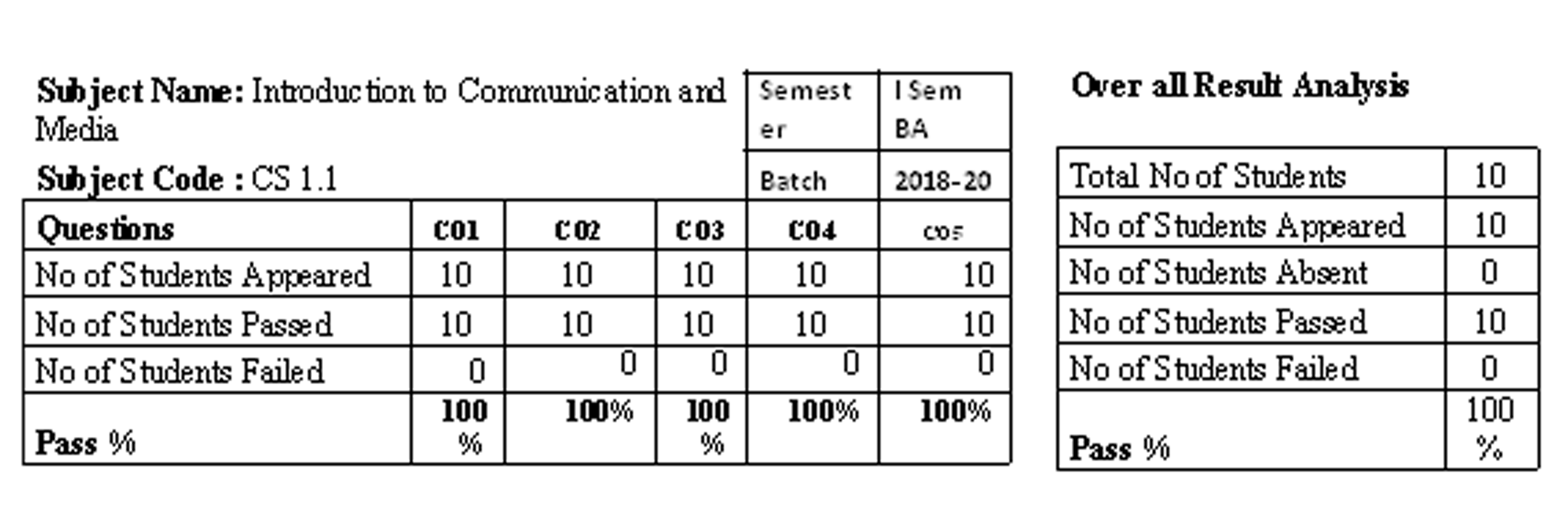 |
|
| Analysis | 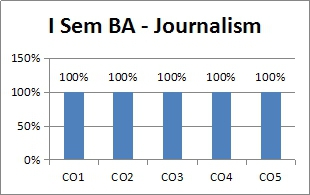 |
|
| Paper Code | CC22N1 | |
| Title of the paper | Advanced Financial Accounting | |
| Course Outcome | Students will be able
|
|
| Analysis |  |
|
| Paper Code | CC22N2 | |
| Title of the paper | Retail Management | |
| Course Outcome | Students can evaluate
|
|
| Paper Code | CC22N3 | |
| Title of the paper | Banking Law and Operations | |
| Course Outcome | Students will be familiarized
|
|
| Analysis |  |
|
| Paper Code | CC14N2 | |
| Title of the paper | Advanced Corporate Accounting | |
| Course Outcome | Students will be convergant with
|
|
| Analysis |  |
|
| Paper Code | CC14N2 | |
| Title of the paper | Cost Accounting | |
| Course Outcome | Students can understand
|
|
| Analysis |  |
|
| Paper Code | CC14N3 | |
| Title of the paper | E-Business Accounting | |
| Course Outcome | Students will gain adequate knowledge about
|
|
| Analysis |  |
|
| Paper Code | CC14N4 | |
| Title of the paper | Stock and Commodity Market | |
| Course Outcome | Students are introduced
|
|
| Analysis |  |
|
| Paper Code | CC14N5 | |
| Title of the paper | Principles of Event Management | |
| Course Outcome | Students will gain knowledge about
|
|
| Analysis |  |
|
| Paper Code | BFAC2S | |
| Title of the paper | Financial Accounting | |
| Course Outcome | Students will aquire knowledge of
|
|
| Analysis |  |
|
| Paper Code | BRBC2S | |
| Title of the paper | Organizational Behaviour | |
| Course Outcome | Students will know the
|
|
| Analysis |  |
|
| Paper Code | BPMC2S | |
| Title of the paper | Production and Operations | |
| Course Outcome | Students will understand the
|
|
| Analysis |  |
|
| Paper Code | BRMC4S | |
| Title of the paper | Business Research Methods | |
| Course Outcome | Students will become aware of the
|
|
| Analysis |  |
|
| Paper Code | BMMC4S | |
| Title of the paper | Marketing Management | |
| Course Outcome | Students will understand the
|
|
| Analysis |  |
|
| Paper Code | BFMC4S | |
| Title of the paper | Financial Management | |
| Course Outcome | Students will gain knowledge of the
|
|
| Analysis |  |
|
| Paper Code | BSMC4S | |
| Title of the paper | Services Management | |
| Course Outcome | Students will become familiar with the
|
|
| Analysis |  |
|
| Paper Code | BREC4S | |
| Title of the paper | Banking Regulations & Operations | |
| Course Outcome | Students will understand the
|
|
| Analysis |  |
|
| Paper Code | BCAC4S | |
| Title of the paper | Cost Accounting | |
| Course Outcome | Students will be able to understand
|
|
| Analysis |  |
|
| Paper Code | BCA203 | |
| Title of the paper | Data structures | |
| Course Outcome |
|
|
| Analysis |  |
|
| Paper Code | BCA204 | |
| Title of the paper | Database Management System | |
| Course Outcome |
|
|
| Analysis |  |
|
| Paper Code | BCA403 | |
| Title of the paper | Visual Programming | |
| Course Outcome |
|
|
| Analysis |  |
|
| Paper Code | BCA404 | |
| Title of the paper | Unix Shell programming | |
| Course Outcome |
|
|
| Analysis |  |
|
| Paper Code | CS2T | |
| Title of the paper | Digital Electronics | |
| Course Outcome |
|
|
| Analysis |  |
|
| Paper Code | CS4T | |
| Title of the paper | Operating System and UNIX | |
| Course Outcome |
|
|
| Analysis |  |
|
| Paper Code | EL-201T | |
| Title of the paper | Electronic Circuits & Special Purpose devices | |
| Course Outcome |
|
|
| Analysis |  |
|
| Paper Code | EL-401T | |
| Title of the paper | Digital Electronics & Verilog | |
| Course Outcome |
|
|
| Analysis |  |
|
| Paper Code | 2.1 | |
| Title of the paper | Indian Banking | |
| Course Outcome |
|
|
| Analysis |  |
|
| Paper Code | 2.2 | |
| Title of the paper | Risk Management | |
| Course Outcome |
|
|
| Analysis |  |
|
| Paper Code | 2.3 | |
| Title of the paper | Advanced E – Commerce & Mobile Commerce | |
| Course Outcome |
|
|
| Analysis |  |
|
| Paper Code | 2.4 | |
| Title of the paper | Business Research Methods | |
| Course Outcome |
|
|
| Analysis |  |
|
| Paper Code | 2.5 | |
| Title of the paper | Operations Research & Quantitative Techniques | |
| Course Outcome |
|
|
| Analysis |  |
|
| Paper Code | 2.6 | |
| Title of the paper | Business Marketing | |
| Course Outcome |
|
|
| Analysis |  |
|
| Paper Code | 2.7 | |
| Title of the paper | SSOFT CORE: Micro Finance | |
| Course Outcome |
|
|
| Analysis |  |
|
| Paper Code | 2.1 | |
| Title of the paper | Contemporary Issues in Accounting | |
| Course Outcome |
|
|
| Analysis |  |
|
| Paper Code | 2.2 | |
| Title of the paper | Information Technology for Accounting & Finance | |
| Course Outcome |
|
|
| Analysis |  |
|
| Paper Code | 2.3 | |
| Title of the paper | Corporate Tax Planning | |
| Course Outcome |
|
|
| Analysis |  |
|
| Paper Code | 2.4 | |
| Title of the paper | Securities Analysis and Portfolio Management | |
| Course Outcome |
|
|
| Analysis |  |
|
| Paper Code | 2.5 | |
| Title of the paper | Strategic Cost and Management Accounting | |
| Course Outcome |
|
|
| Analysis |  |
|
| Paper Code | 2.6 | |
| Title of the paper | Asset Liability Management In Banks | |
| Course Outcome |
|
|
| Analysis |  |
|
| Paper Code | 2.7 | |
| Title of the paper | SSOFT CORE: Micro Finance | |
| Course Outcome |
|
|
| Analysis |  |
|
| Class | II Sem B.Sc / BCA | |
| Course Outcome |
|
|
| CO Attainment |  |
|
| Class | II Sem B.COM | |
| Course Outcome |
|
|
| CO Attainment |  |
|
| Class | II Sem BBA | |
| Course Outcome |
|
|
| CO Attainment |  |
|
| Class | IV Sem BCom | |
| Course Outcome |
|
|
| CO Attainment |  |
|
| Class | IV Sem BCA & BSc | |
| Course Outcome |
|
|
| CO Attainment |  |
|
| Semester | 1 ನೇ ಸೆಮಿಸ್ಟರ್ | |
| Topic | II. ಕಥಾ ಸಾಹಿತ್ಯ | |
| Course Outcome | 1) ನಾಲ್ಕು ಮೊಳ ಭೂಮಿ- ಚದುರಂಗ = ಸ್ವಾರ್ಥಿಯಾದ ಮನುಷ್ಯನಿಗೆ ಸ್ವಾರ್ಥ ಬೆಳೆಯುತ್ತ ಸಾಗಿದಂತೆ, ಆಸೆಗಳು ಅಮಿತವಾಗುತ್ತ ಗೋಜಲಾಗುತ್ತಾ ಹೋದಂತೆ ಸುಖ ಹಾಗೂ ನೆಮ್ಮದಿಗಳು ದೂರ ಸರಿಯುವತ್ತವೆ, ಆಸೆಯೇ ದುಃಖಕ್ಕೆ ಮೂಲ ಎನ್ನುವ ಸರಳ ತತ್ವದ ಅರಿವು ಮುಖ್ಯವಾಗುತ್ತದೆ, ಎನ್ನುವುದು ಈ ಕಥೆಯ ಆಶಯವಾಗಿದೆ, ಈ ಅಂಶವನ್ನು ವಿದ್ಯಾರ್ಥಿಗಳು ಕಲಿಯುತ್ತಾರೆ. 2) ಅಂಕ-ಬೊಳುವಾರು ಮಹಮದ್ ಕುಂಇ = ಬುದ್ಧನ ಪ್ರಕಾರ "ಧರ್ಮದ ಮಹತ್ವವು ದೇವರೊಂದಿಗೆ ಮನುಷ್ಯರು ಹೊಂದಿರುವ ಸಂಬಂಧದಲ್ಲಿ ಇಲ್ಲ. ಮನುಷ್ಯ ಮನುಷ್ಯರ ಜೊತೆ ಹೊಂದಿರುವ ಸಂಬಂಧಲ್ಲಿದೆ. ಪ್ರತಿಯೊಬ್ಬರು ಸುಖವಾಗಿರುವಂತೆ ಮನುಷ್ಯರು ಬೇರೆ ಮನುಷ್ಯರೊಂದಿಗೆ ಹೇಗೆ ವರ್ತಿಸಬೇಕು ಎಂಬುದು ಬೋಧಿಸುವುದೇ ಧರ್ಮದ ದ್ಯೇಯವಾಗಿದೆ. ಜೊತೆಗೆ ಋಜು ನಡೆತೆಯ ಸರ್ವೋಚ್ಚ ಅನಿವಾರ್ಯತೆಯನ್ನು ಜನರ ಮನಸ್ಸಿನಲ್ಲಿ ನಾಟಿಸಬೇಕು ಎಂಬುದು ಈ ಕತೆಯ ಆಶಯವನ್ನು ವಿದ್ಯಾರ್ಥಿಗಳು ಕಲಿಯುತ್ತಾರೆ. 3) ಅಕ್ಕು- ವೈದೇಹಿ = ಅಕ್ಕು ಕತೆಯಲ್ಲಿ ಸಾಮಾನ್ಯ ಸ್ತ್ರೀಯರ ದೈನಂದಿನ ಜೀವನ ಹಾಗೂ ನೋವು, ನಲಿವುಗಳು ಸ್ತ್ರೀವಾದಿ ದೃಷ್ಠಿಕೋನದಿಂದ ಆಂತರಿಕ ಜಗತ್ತು ಪರಿಚಯಿಸುತ್ತದೆ. ಅಲ್ಲದೆ ಸಂಪ್ರದಾಯಸ್ಥ ಮನೊಭಾದಿಂದ ಹಿಡಿದು ಆಧುನಿಕ ಕಾಲದವರೆಗೆ ಎಲ್ಲವರ್ಗದ ವಯಸ್ಸಿನ ಸಾಮಾನ್ಯ ಸ್ತ್ರೀಯರ ಬದುಕಿನ ವಿಷಾದತೆಯನ್ನು ಕಟ್ಟಿಕೊಡುವುದು ಈ ಕತೆಯ ಆಶಯವನ್ನು ವಿದ್ಯಾರ್ಥಿಗಳು ಕಲಿಯುತ್ತಾರೆ.. |
|
| Co - Attainment |  |
|
| Semester | 1 ನೇ ಸೆಮಿಸ್ಟರ್ | |
| Topic | III. ಜಾನಪದ | |
| Course Outcome | 1) ಘಾಟಿ ಸೊಸೆ- ಜನಪದ ಕತೆ = ಜನಪದ ಕತೆಯಲ್ಲಿ ಕಂಡುಬರುವ, ಕುಟುಂಬದಲ್ಲಿ ಸಂಸಾರದ ನೀತಿ ಬೋಧನೆ ಇಲ್ಲಿ ಮುಖ್ಯವಾಗಿದೆ. ಸೊಸೆ ಮೃದು ಸ್ವಭಾವದವಳು, ಆದರೆ ಅತ್ತೆಯಾದವಳು ಸೊಸೆಗೆ ದೈಹಿಕವಾಗಿ ಮತ್ತು ಮಾನಸಿಕವಾಗಿ ಚಿತ್ರಹಿಸೆ ಕೊಡುತ್ತಿದ್ದಳು, ಆದರೆ ಸೊಸೆ ' ತಾಳಿದವಳು ಬಾಳಿಯಾಳು ' ಎಂಬ ಗಾದೆಮಾತಿನಂತೆ ಎಲ್ಲಾ ನೋವುಗಳನ್ನು ಸಹಿಸಿಕೊಂಡು, ಉಳಿದ ಹೆಣ್ಣು ಮಕ್ಕಳಿಗೆ ಆದರ್ಶವಾಗಿದ್ದಾಳೆ ಎಂಬುದೇ ಈ ಕತೆಯ ಆಶಯವನ್ನು ವಿದ್ಯಾರ್ಥಿಗಳು ಕಲಿಯುತ್ತಾರೆ. 2) ಲಾವಣಿ – ಹಲಗಲಿಯ ಬೇಡರು = ಜನ ಸಾಮಾನ್ಯರ ಸ್ಥಿತಿಗತಿಗಳನ್ನು ತಿಳಿಯಲು ಜೊತೆಗೆ 1857ರ ಸಿಪಾಯಿ ದಂಗೆಯ ನಂತರ ಬ್ರಿಟೀಷರು ಜಾರಿಗೆ ತಂದ ನಿಶ್ಯಸ್ತ್ರೀಕರಣ ಕಾಯಿದೆ ವಿಷಯ ತಿಳಿದು ಜನ (ಹಲಗಲಿ ಬೇಡರು) ಬ್ರಿಟೀಷರ ವಿರುದ್ಧ ಏಕೆ ದಂಗೆಯೆದ್ಧರು, ಬೇಡರಿಗೆ ಬೇಟೆಯೇ ಜೀವನಾಧಾರವಾಗಿದ್ದ ಅವರ ಆಯುಧಗಳನ್ನು ಬ್ರಿಟೀಷರು ವಾಸ್ಸು ಪಡೆದುಕೊಂಡಾಗ, ಬೇಡರಿಗೆ ಸ್ವಾಭಿಮಾಕ್ಕೆ ದಕ್ಕೆ ಬಂದಾಗ ಬೇಡ ಜನಾಂಗದ ನಾಲ್ವರು ಯುವಕರು ಪ್ರತಿಜ್ಞೆ , ಬ್ರಿಟೀಷರ ವಿರುದ್ಧ ಹೋರಾಡಿದರು ಹಾಗೂ ದೇಸೀ ಅಸ್ಮಿತೆಯ ಉಳಿವಿಗಾಗಿ ಹೋರಾಡಿ ಆದರ್ಶವಾದಿಗಳಾಗಿದ್ದಾರೆ, ಎಂಬ ಅಂಶಯವನ್ನು ವಿದ್ಯಾರ್ಥಿಗಳು ಕಲಿಯುತ್ತಾರೆ . 3) ಒಂದು ಅಪೂರ್ವ ಕಥನಗೀತೆ = ಭಾಗೀರತಿಯ 'ಕೆರೆಗೆ ಹಾರ' ಕಥನ ಗೀತೆಯಮತೆ, ಗರತಿಗಂಗವ್ವ ಕಥನಗೀತೆಯೂ ಗಂಗವ್ವ ಹೋಲುತ್ತಾಳೆ. ಜನಪದ ಸಮಾಜದ ದೇಶಿ ಹೆಣ್ಣುಮಗಳು ಎಲ್ಲೂ ಪ್ರಚಾರಕ್ಕೆ ಒಳಗಾದವಳಲ್ಲ. ಊರಿನಲ್ಲಿ ಹೊಸದಾಗಿ ಕೆರೆಕಟ್ಟಿಸಿ ನೀರು ಬರದಿದ್ದಾಗ ಹೆಣ್ಣೊಬ್ಬಳು ಆಹುತಿಯಾಗುವುದು ಕೆರೆಗೆ ಹಾರದ ವಸ್ತುವಾದರೆ, ಗರತಿಗಂಗವ್ವದಲ್ಲಿ ಊರಿಗೆ ನೀರು ನುಗ್ಗಿ ಬರುವ ಪ್ರವಾಹವನ್ನು ತನ್ನ ಆತ್ಮ ಶಕ್ತಿಯಿಂದ ಹೊಳೆಯನ್ನು ತಡೆಯುವ ಸಂದರ್ಭವನ್ನು ಹೆಣ್ಣೊಬ್ಬಳ ತ್ಯಾಗದ ಮನೋಭಾವವನ್ನು ವಿದ್ಯಾರ್ಥಿಗಳು ತಿಳಿದುಕೊಳ್ಳುತ್ತಾರೆ.. |
|
| Semester | 1 ನೇ ಸೆಮಿಸ್ಟರ್ | |
| Topic | IV.ಲೇಖನ ವೈವಿಧ್ಯ | |
| Course Outcome | 1) ನಮಗೆ ಬೇಕಾಗಿರುವ ಇಂಗ್ಲೀಷ್ – ಕುವೆಂಪು = ಇವತ್ತಿನ ಸಂದರ್ಭದಲ್ಲಿ, ಜಾಗತೀಕರಣದ ವಿಶೇಷ ಪ್ರಭಾವಗಳಿಗೆ ಸಿಕ್ಕಿ ಭಾರತದ ದೇಸಿಭಾಷೆಗಳಿಗೆ ಎದುರಾಗುವ ಸಂಕಟದ ಬಗ್ಗೆ ಹಾಗೂ ಇಂಗ್ಲೀಷ್ ಭಾಷೆಯ ಹೊರೆಯಿಂದಾಗಿ ಕನ್ನಡ ನಾಡು, ಸಂಸ್ಕೃತಿ, ಭಾಷಾವಲಯಗಳಿಗೆ ಎದುರಾಗುವ ಸಮಸ್ಯೆಗಳ ಬಗ್ಗೆ ವಿದ್ಯಾರ್ಥಿಗಳಿಗೆ ಈ ಲೇಖನ ತಿಳಿಸಿಕೊಡುತ್ತದೆ. 2) ವೃತ್ತ ಪತ್ರಿಕಾ ಸ್ವಾತಂತ್ರ್ಯ- ಡಿ.ವಿ.ಜಿ.= ವಿದ್ಯಾರ್ಥಿಗಳಿಗೆ ವೃತ್ತಪತ್ರಿಕಾ ಸ್ವಾತಂತ್ರ್ಯದಿಂದ ಸಮಾಜದಲ್ಲಿ ಆರೋಗ್ಯ ಪೂರ್ಣವಾದ ಅಭಿವ್ಯಕ್ತಿಯನ್ನು ಬೆಳಿಸಿಕೊಳ್ಳಬಹುದು, ಅನ್ಯಾಯಕ್ಕೆ ಒಳಗಾದ ಪ್ರತಿಯೊಬ್ಬರಿಗೂ ನ್ಯಾಯ ಕೊಡುವ ಮಾಧ್ಯಮವಾಗಿದೆ ಎಂದು ವಿದ್ಯಾರ್ಥಿಗಳು ತಿಳಿದುಕೊಳುತ್ತಾರೆ. 3) ಇದೆಲ್ಲ ಹೇಗೆ ಶುರುವಾಯಿತು-ಮೂಲ: ರೋಸಾಪಾರ್ಕ್(ಅನು: ಎಂ.ಆರ್.ಕಮಲ) = ಭಾಷೆ, ಬಣ್ಣ, ಜನಾಂಗ, ಧರ್ಮ, ಹಾಗೂ ಪ್ರದೇಶಗಳ ಆಧಾರದ ಮೇಲೆ ಮನುಷ್ಯರನ್ನು ಪ್ರತ್ಯೇಕಿಸುವ ಪರಂಪರೆ ಬಗ್ಗೆ ಮತ್ತು ಮನುಕುಲದ ಚರಿತ್ರೆಯಲ್ಲಿ ನಡೆದಿರುವ ಕ್ರೌರ್ಯದ ಬಗ್ಗೆ ವಿದ್ಯಾರ್ಥಿಗಳು ತಿಳಿದುಕೊಳ್ಳುತ್ತಾರೆ. |
|
| Semester | 2 ನೇ ಸೆಮಿಸ್ಟರ್ | |
| Topic | I.ಕಾವ್ಯ ಭಾಗದಲ್ಲಿ | |
| Course Outcome | 1)ಕುಮಾರವ್ಯಾಸನ - ಪಾಂಡು ಮಾದ್ರಿಯರ ಪ್ರಸಂಗದಲ್ಲಿ = ಮನುಷ್ಯ ಸ್ವಾಭಾವದ ಸಹಜ ಆಕರ್ಷಣೆ, ಆಸೆ ಕಾಮನೆಗಳಿಗೆ ಒಳಗಾಗುವ ಪಾಂಡುವಿನ ಈ ಚಿತ್ರ ಹೆಚ್ಚು ಮಾನವೀಯವಾದ ನೆಲೆಯಲ್ಲಿ ಚಿಂತನೆಗೆ ನಮ್ಮನ್ನು ಒಡ್ಡುತ್ತದೆ. ಮಾನವ ಶಕ್ತಿಯ ದೌರ್ಬಲ್ಯ, ಪರಿಮಿತಿಗಳ ಬಗ್ಗೆ ವಿವೇಚಿಸುವಂತೆ ಪ್ರೇರೇಪಿಸುತ್ತೆದೆ. ಹಾಗೆಯೇ ‘ ಕಾಮ ‘ ಮನುಷ್ಯನ ಬದುಕಿನ ಸಹಜ ಆಕರ್ಷಣೆಯಲ್ಲವೆ? ಎಂಬ ಜಿಜ್ಞಾಸೆಗೂ ನಮ್ಮನ್ನು ತೊಡಗುವಂತೆ ಮಾಡುತ್ತದೆ. ಎಂಬ ಅಂಶಗಳನ್ನು ವಿದ್ಯಾರ್ಥಿಗಳು ತಿಳಿದುಕೊಳ್ಳುತ್ತಾರೆ. 2) ಡಾ.ಪಿ.ಕೆ.ರಾಜಶೇಖರ (ಆಕರ: ಜನಪದ ಮಹಾಕಾವ್ಯ) = ಭದ್ರಬಾಹು ತೀರ್ಪುನೀಡಿದ ಪ್ರಸಂಗದಲ್ಲಿ ವ್ಯಾಸನ ಮಹಾಭಾರತದ ಚೌಕಟ್ಟೀ ಇಕಿದ್ದರು. ಅನೇಕ ತಿರುವುಗಳಲ್ಲಿ ಈ ಕಥೆ ಭಿನ ಮಾದರಿಯಾಗಿದೆ, ಮಹಾಕಾವ್ಯದ ಪಾರಂಪರಿಕ ಗುಣಗಳಾದ ಯುಗಧರ್ಮ ಹಾಗು ರಾಷ್ಟ್ರೀಯತೆ ಈ ಕಾವ್ಯವು ಉಳಿಸಿಕೊಂಡು ಬಂದಿದೆ. ಜನಪದ ಮಹಾಕಾವ್ಯದ ಪ್ರಮಖ ಲಕ್ಷಣಗಳಾದ ಜೀವನ ಪ್ರೀತಿಯ ಸತ್ವಗಳನ್ನು, ಮೌಲ್ಯಗಳನ್ನು ಒಳಗೊಂಡಿರುವುದರಿಂದ ಇದನ್ನು ಕೇವಲ ಸಾಹಿತ್ಯದ ದೃಷ್ಟಿಯಿಂದ ನೋಡದೆ ಸಾಂಸ್ಕೃತಿಕ ದೃಷ್ಟಿಯಿಂದ ನೋಡುವುದು ಸೂಕ್ತವಾಗಿದೆ. ಅಧಿಕಾರ ಹಂಚಿಕೊಂಡು ಆಳಲು ಆರಂಭಿಸಿದ ಸಂದರ್ಭದಲ್ಲಿ ಅವರಲ್ಲೆ ಅಸಮಧಾನಗೊಂಡು ಧರ್ಮರಾಯನ ಮೇಲೆ ಮುನಿಸಿಕೊಂಡು ತಕರಾರು ತೆಗೆಯುವ ಸಂದರ್ಭದವು ಈ ಕಥೆಯಿಂದ ವಿದ್ಯಾರ್ಥಿಗಳು ತಿಳಿದುಕೊಳ್ಳುತ್ತಾರೆ. 3) ಡಾ.ಸಿದ್ಧಲಿಂಗಯ್ಯನವರ - ಚೋಮನ ಮಕ್ಕಳ ಹಾಡು ಕವಿತೆಯಲ್ಲಿ = ಸಾವಿರ ಸಂಕಟ ಬಂದರೂ ಬೇಸಾಯಗಾರನಾಗುವ ಕನಸನ್ನು ಬಿಡದೆ ಫಲ ಹೊತ್ತು ಧೀರೋದಾತ್ತ ಜೀವಿಯ ಸಂಕಟ ತಲ್ಲಣಗಳನ್ನು ಈ ಕವಿತೆ ಚಿತ್ರಿಸುತ್ತದೆ ಜಾತಿವ್ಯವಸ್ಥೆ ಮತ್ತು ಊಳಿಗಮಾನ್ಯ ಪದ್ಧತಿಯ ಅಡಿಯಲ್ಲಿ ಸಿಕ್ಕಿ ಛಿದ್ರವಾಗಿ ಹೋದ ಅಸಖ್ಯಾತ ಜೀವಿಗಳ ಪ್ರತಿನಿಧಿಯಾಗಿ ಚೋಮ ಹಾಗೂ ಅವನ ಮಕ್ಕಳು ಶೋಷಣೆಯ ಪಾರಂಪರಿಕ ಪ್ರಜ್ಞೆಯ ಭಾಗವಾಗಿ ಹೋಗಿರುವುದನ್ನು ಈ ಕವಿತೆ ಚಿತ್ರಿಸುತ್ತದೆ. ದಲಿತರ ಶೋಷಣೆಗೆ ವಿನೂತನ ಭಾಷ್ಯ ಬರೆಯುವ ಯತ್ನವನ್ನು ಕವಿ ಇಲ್ಲಿ ಮಾಡಿದ್ದಾರೆ, ಎಂಬ ಅಂಶವನ್ನು ವಿದ್ಯಾರ್ಥಿಗಳು ತಿಳಿದುಕೊಳ್ಳತ್ತಾರೆ. 4) ಸವಿತಾ ನಾಗಭೂಷಣರವರ – ಜಾತ್ರೆಯಲ್ಲಿ ಶಿವ ಕವಿತೆಯಲ್ಲಿ = ‘ ಉದರ ನಿಮಿತ್ತರ ಬಹುಕೃತ ವೇಷಂ ‘ ಎಂಬಂತೆ ಬಡವನೊಬ್ಬ ಶಿವನ ವೇಷ ಹಾಕಿದ್ದಾನೆಯೇ ? ಅಥವಾ ಸಾಕ್ಷಾತ್ ಶಿವನೇ ಇಲ್ಲಿ ಬಡಮನುಷ್ಯನೊಬ್ಬನನ್ನು ಹೋಲವ ವೇಷದಾರಿಯೇ? ನಿಜ-ವೇಷ, ವೃಕ್ಷ, ವ್ಯಕ್ತ- ಅವ್ಯಕ್ತ, ತೋರಿಕೆ ಸತ್ಯಗಳ ದ್ವಂದ್ವ ವಿನ್ಯಾಸದಲ್ಲಿ ಅತಿಭಾವುಕತೆಯುನ್ನು ವಿರೋಧಿಸುವ ವೈನೋದಿಕ ದಾಟಿಯಲ್ಲಿ ಅನುಭವವನ್ನು ಅದಿಕೃತಗೊಳಿಸುವ ದಟ್ಟವಿವರಗಳಲ್ಲಿ, ಸಾಮಾನ್ಯ ವಿವರಗಳೂ ಅರ್ಥವಿಸ್ತಾರವನ್ನು ಪಡೆಯುವ ವ್ಯಂಜಕತೆಯಲ್ಲಿ ನಮ್ಮನ್ನು ಆಕರ್ಶಿಸುತ್ತದೆ. ಎಂಬ ಅಂಶಗಳನ್ನು ವಿದ್ಯಾರ್ಥಿಗಳು ತಿಳಿದುಕೊಳ್ಳುತ್ತಾರೆ. |
|
| Semester | 2 ನೇ ಸೆಮಿಸ್ಟರ್ | |
| Topic | II.ನಾಟಕ | |
| Course Outcome | 1) ಪಿ.ಲಂಕೇಶ್ವರ – ‘ಕ್ರಾಂತಿ ಬಂತು ಕ್ರಾಂತಿ’ = ನಾಟಕದ ನಾಯಕ ಭಗವಾನ್ ಈತ ಆದರ್ಶ, ಮಾನವೀಯತೆ, ಕ್ರಾಂತಿಕಾರಕ ಮಾತುಗಳಿಂದ ಸಮಾಜವನ್ನು ಬದಲಾಯಿಸಲು ಹೊರಟಂತೆ ಕಾಣುವ, ತನ್ನ ವಾಕ್ಚಾತುರ್ಯದಿಂದ ಎಲ್ಲರನ್ನು ಸೆಳೆಯುವ ಇವನು ವಾಸ್ತವವಾಗಿ ಸೋಗಲಾಡಿ ವ್ಯಕ್ತಿತ್ವದವನು ಅಲ್ಲದೆ ಸ್ವಾರ್ಥ ವ್ಯಕ್ತಿತ್ವದವನು. ಬದಲಾವಣೆ ಯಾವುದೇ ಸಮಾಜದ ಆರೋಗ್ಯಕ್ಕೆ ಅಗತ್ಯ, ಬದಲಾಣೆ ಎಂಬುದು ಪ್ರಗತಿಯ ಸಂಕೇತವೂ ಹೌದು, ಸಾಮಾಜಿಕ ಬದಲಾವಣೆಗಾಗಿ ನಕ್ಸಲೈಟ್ ಆಗಿರುವ ದಿನಕರನಂಥವರಿಂದ ಆರೋಗ್ಯಕರ ಸಮಾಜ ರಚನೆ ಸಾಧ್ಯವಿಲ್ಲ ಎಂಬುದನ್ನು ಈ ನಾಟದ ಅಂಶಗಳನ್ನು ವಿದ್ಯಾರ್ಥಿಗಳು ತಿಳಿದುಕೊಳ್ಳುತ್ತಾರೆ. |
|
| Semester | 2 ನೇ ಸೆಮಿಸ್ಟರ್ | |
| Topic | III. ಪ್ರಬಂಧ ಸಾಹಿತ್ಯ | |
| Course Outcome | 1) ಚಂದ್ರ ಶೇಖರ ಆಲೂರು - ಒಂದು, ಎರಡು, ಮೂರು….. = ಈ ಪ್ರಬಂಧದ ಪ್ರಧಾನ ಗುಣವೆಂದರೆ ಲೇಖಕರ ಸಂವೇದನಾಶೀಲತೆ, ಒಟ್ಟು ಬದುಕನ್ನು ಕುರಿತಾದ ಚಿಂತನೆಯನ್ನು ಸಹಜವಾಗಿ ಇರೂಪಿಸುವ ಬಗೆ ಉಲ್ಲೇಖನೀಯ. ಸಣ್ಣ ಪುಟ್ಟ ಅನುಭಗಳಿಗೆ ಭಾಷೆಯ ಆದ್ರಭಾವವನ್ನು ತೊಡಿಸಯತ್ತಾ ನೆನಪುಗಳ ಮೂಲಕವೇ ಬದುಕಿನ ಸಂವೇದನೆಳು. ತನ್ನನ್ನು ತೀರ್ವವಾಗಿ ಒಡ್ಡಿಕೊಳ್ಳುವ ಮನಸ್ಥಿತಿಯನ್ನು ಗುರುತಿಸುವುದು ಎಂಬ ಅಂಶಗಳನ್ನು ವಿದ್ಯಾರ್ಥಿಗಳು ತಿಳಿದುಕೊಳ್ಳುತ್ತಾರೆ. 2) ಈರಪ್ಪ ಕಂಬಳಿ - ಯಾಕಾಗಿ ಮಳಿ ಹ್ವಾದವೋ = ಈ ಲೇಖನವು ನಿರ್ಲಕ್ಷಿತ ಹಾಗೂ ಗಡಿ ಪ್ರಾಂತ್ಯದಲ್ಲಿ ತೀವ್ರವಾಗಿ ಶೋಷಣೆಗೆ ಒಳಾಗಿರುವ ಹೈದರಬಾದ್ ಕರ್ನಾಟಕ ಪ್ರಾಂತ್ಯದ ಜನ ಪ್ರಾಕೃತಿಕ ವಿಕೋಪದ ಕೆಂಗಣ್ಣಿಗೆ ಗುರಿಯಾಗಿ ಕಂಗಾಲಾಗಿರುವ ಜೀವನ ಚಿತ್ರವನ್ನು ಕಟ್ಟಿಕೊಡುತ್ತದೆ, ವಿಜ್ಞಾನ , ತಂತ್ರಜ್ಞಾನ, ಜಾಗತೀಕರಣ, ಉದಾರಿಕರಣದ ವೈಭವೀಕರಣಗಳ ನಡುವೆ ಮನುಷ್ಯನ ಮೂಲಭೂತ ಸಂವೇದನೆಗಳನ್ನು ನಾವು ಕಳೆದುಕೊಳ್ಳುತ್ತಿರುವ ಸಮಾಕಾಲಿನ ಸಂದರ್ಭದಲ್ಲಿ ಮಾನವೀಯತೆಯ ಮೂಲ ಪಾಠವನ್ನು ಮರುಶೋಧಿಸಬೇಕಾದ ತುರ್ತನ್ನು ಈ ಪ್ರಬಂಧ ಕಟ್ಟಿಕೊಡುತ್ತದೆ, ಎಂಬ ಅಂಶವನ್ನು ವಿದ್ಯಾರ್ಥಿಗಳು ತಿಳಿದುಕೊಳ್ಳುತ್ತಾರೆ. 3) ರಾ.ಕು( ಆರ.ವಿ.ಕುಲಕರ್ಣಿ ) – ಗಾಳೀಪಟ = ಗಾಳೀಪಟದಲ್ಲಿ ರೈಟ್ ಸಹೋದರರು, ವಿಜ್ಞಾನಿಗಳ ಶೋಧದ ದುಷ್ಟ್ರಯೋಗ, ಗಾಳೀಪಟದ ಪ್ರಕಾರಗಳು, ಮನ:ಶಾಸ್ತ್ರ, ಆಕಾಶಯಾನ ಹೀಗೆ ವಿಷಯಗಳನ್ನು ವಿಸ್ತರಿಸುತ್ತಾ ಕೊನೆಗೆ ನಕ್ಷತ್ರಗಳನ್ನೆ ಸೂತ್ರದಲ್ಲಿ ಕಟ್ಟಿ ಪಟ ಮಾಡುವ ಮನುಷ್ಯನ ಬುದ್ಧಿಶಕ್ತಿ ಜೊತಗೆ ವಿಜ್ಞಾನ ಹಾಗೂ ಲೌಕಿಕತೆಗಳ ನಡುವಿನಲ್ಲೇ ಕಲಾತ್ಮಕ ಚೌಕಟ್ಟನ್ನು ಕೊಡುವಲ್ಲಿ ಪ್ರಬಂಧವು ಈ ಎಲ್ಲಾ ಅಂಶಗಳನ್ನು ವಿದ್ಯಾರ್ಥಿಗಳು ತಿಳಿದುಕೊಳ್ಳುತ್ತಾರೆ. |
|
| Semester | 2 ನೇ ಸೆಮಿಸ್ಟರ್ | |
| Topic | IV. ಲೇಖನ ವೈವಿಧ್ಯ | |
| Course Outcome | 1)ಕೆ.ವಿ.ಸುಬ್ಬಣ್ಣ – ಅಡಿಕೆಯ ಮಾನ = ಲೇಕನದಲ್ಲಿ ಭಾರತದಲ್ಲಿ ಕೃಷಿ ಎನ್ನುವುದು ಸಮಾಜದ ಬಹುಸಂಖ್ಯಾತರ ಜೀವನದ ಆಧಾರವೂ, ಜೀವನವಿಧಾನವೂ ಆಗಿದ್ದ ಕಾಲವುಂದಿತ್ತು. ಆದರೆ ಈಗ ಕೃಷಿಸಮಾಜವು ಆದರಿಂದ ದೂರಸರಿಯುತ್ತಿರುವುದು ತುಂಬ ಆತಂಕಕಾರಿ ಸಂಗತಿ. ಕೃಷಿ ಸಂಸ್ಕೃತಿಯ ಅಳಿವು ಒಂದು ದೇಶ, ಒಂದು ಸಮಾಜದ ಮೂಲ ಚ್ಯತನ್ಯದ ಅಳಿವೂ ಆಗಿರುತ್ತದೆ ಎನ್ನುವುದನ್ನು ಗಮನಿಸಬೇಕಾಗುತ್ತದೆ. ಕೃಷಿಕರ ಕುರಿತು ಪ್ರಭುತ್ವಗಳು ಹಾಗೂ ಕೃಷಿಯೇತರ ಸಮಾಜ ಮಾತನ್ನೇನೋ ಯಥೇಚ್ಚವಾಗಿ ಆಡುತ್ತವೆ. ಆದ್ದರಿಂದ ಯಾವ ಉಪಯೋಗವು ಇಲ್ಲ. ಬದಲಾಗಿ ರೈತರ ಆತ್ಮವಿಶ್ವಾಸವನ್ನು, ಬದಲಾಗಿ ರೈತರ ಆತ್ಮವಿಶ್ವಾಸವನ್ನು ಹೆಚ್ಚಿಸುವ ಕೆಲಸ ಮಾಡಬೇಕು. ಕೃಷಿಎನ್ನುವುದು ಅತ್ಯುನ್ನತ ಘನತೆಯ ಕಾಯಕ ಎನ್ನುವ ವಾತವರಣವನ್ನು ನಿರ್ಮಿಸಬೇಕು ಎನ್ನುವ ವಿಷಯಗಳನ್ನು ವಿದ್ಯಾರ್ಥಿಗಳು ತಿಳಿದುಕೊಳ್ಳುತ್ತಾರೆ. 2) ಜಾಹಿರಾತುಗಳ ಸ್ವರೂಪ ಮತ್ತು ವಿಶ್ಲೇಷಣೆ – ಡಾ.ಕಲಾವತಿ ಬಿ.ಜಿ. = ಪ್ರಸ್ತುತ ಲೇಖನ ಆಧುನಿಕ ಮಾರುಕಟ್ಟೆ ಎನ್ನುವುದು ಒಂದು ಬೃಹತ್ ಜಗತ್ತು. ವ್ಯಾಪಾರ ವಹಿವಾಟುಗಳೇ ಇಂದು ಮನುಷ್ಯನ ಬದುಕನ್ನು ಬಹುಪಾಲು ಪ್ರಭಾವಿಸಿತ್ತಿವೆ ಹಾಗೂ ನಿಯಂತ್ರಿಸುತ್ತಿವೆ ಎನ್ನುವುದು ಸುಳ್ಳಲ್ಲ. ಜನರಿಗೆ ಅಗತ್ಯವಿರುವ ವಸ್ತುಗಳನ್ನು ಉತ್ಪಾದಿಸಿ ಮಾರಾಟಮಾಡುವುದು, ಜನರಿಗೆ ತಲುಪುವಂತೆ ನೋಡಿಕೊಳ್ಳವುದು ಇದರ ಮೂಲಕ ಹೆಚ್ಚು ಲಾಭಗಳಿಸುವುದು ಇಂದಿನ ವಾಣಿಜ್ಯ ಉದ್ಯಮಗಳ ಮೂಲ ಉದ್ದೇಶವಾಗುದೆ. ಪ್ರಸ್ತುತ ಲೇಖನ ಇಂತಹ ಜಾಹಿರಾತುಗಳ ಸ್ವರೂಪವನ್ನು ಅಧ್ಯಯನ ಮಾಡಲು ಅದು ಬೆಳೆದು ಬಂದ ಬಗೆ, ಅದರ ಇತಿಹಾಸ ನಿರ್ವಚನಗಳ ಅವಲೋಕನವನ್ನು ನಡೆಸಿದೆ. ಜಾಹಿರಾತುಗಳು ಇಂದಿನ ವ್ಯಾಪಾರ ಕ್ಷೇತ್ರದ ಬಂಡವಾಳ ಶಾಹಿ ವ್ಯವಸ್ಥೆಯ ಅವಿಭಾಜ್ಯ ಅಂಗವಾಗಿ ಬೆಳೆದಿರುವುದನ್ನು ಇಲ್ಲಿ ವಿದ್ಯಾರ್ಥಿಗಳು ಅರ್ಥೈಸಿಕೊಳ್ಳುತ್ತಾರೆ.< 3) ಜಪಾನೀಯರ ಬಿಸಿನೆಸ್ ಸ್ಟೈಲ್! –ಜಯದೇವ ಪ್ರಸಾದ ಮೊಳೆಯಾರ = ಇಂದಿನ ಜಾಗತಿಕರಣದ ಮುಕ್ತ ಆರ್ಥಿಕ ವ್ಯವಸ್ಥೆಯಲ್ಲಿ ಅಂತರಾಷ್ಟ್ರೀಯ ವ್ಯಪಾರಗಳ ಬಗ್ಗೆ ಕೇವಲ ಸೈಂದ್ಧಾಂತಿಕ ತಿಳುವಳಿಕೆ ಇದ್ದರೆ ಸಾಲದು. ವ್ಯಾಪಾರ ವಹಿವಾಟುಗಳನ್ನು ನಡೆಸುವಾಗ ವ್ಯಕ್ತಿ ಮತ್ತು ಸಂಸ್ಥೆಗಳ ಔಪಚಾರಿಕ ವರ್ತನೆ ವ್ಯಾಪಾರಿಗಳ ಸಂಬಂಧಗಳ ನಿರ್ವಹಣೆಯಲ್ಲಿ ತೋರಬೇಕಾದ ಎಚ್ಚರ, ಬುದ್ಧಿವಂತೆಕೆ, ಅರಿವು ಬಹಳ ಮುಖ್ಯವಾದುದು. ಈ ಹಿನ್ನೆಲೆಯಲ್ಲಿ ಜಾಗತಿಕ ವ್ಯಾಪಾರದಲ್ಲಿ ಜಪಾನಿನ ಬಿಸಿನೆಸ್ ಸ್ಟೈಲ್ ನ್ನು ವಿದ್ಯಾರ್ಥಿಗಳಿಗೆ ಪರಿಚಯಿಸುವ ಮೂಲಕ ವ್ಯವಹಾರ ನಿರ್ವಹಣೆಯಲ್ಲಿನ ಹಲವು ಭಿನ್ನ ಸಾಧ್ಯತೆಗಳ ಕುರಿತು ವಿದ್ಯಾರ್ಥಿಗಳು ತಿಳಿದುಕೊಳ್ಳುತ್ತಾರೆ. |
|
| Co - Attainment | 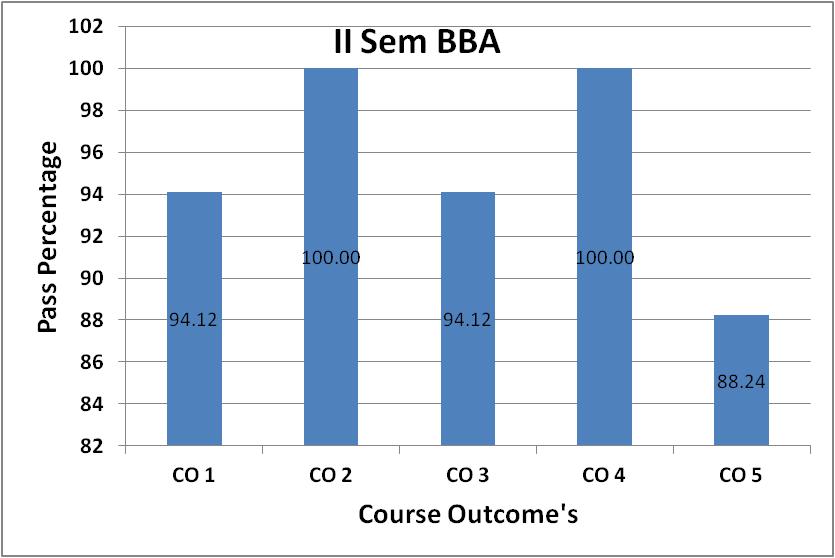 |
|
| Semester | 4 ನೇ ಸೆಮಿಸ್ಟರ್ | |
| Topic | I. ಕಾವ್ಯ ಭಾಗದಲ್ಲಿ | |
| Course Outcome | 1) ಊರುಗಳನುಡಿವೆನ್ –ರನ್ನ : = ಈ ಕಾವ್ಯದಲ್ಲಿ ತನಗಾದ ಅವಮಾನಕ್ಕೆ ಪ್ರತೀಕಾರ ಕೈಗುಳ್ಳುವವುದು ಮನುಷ್ಯನ ಸಹಜ ಗುಣವಾಗಿದೆ. ಸೇಡು- ಪ್ರತಿಕಾರಗಳ ಮಧ್ಯೆ, ಹೇಗಾದರೂ, ಮಾಡಿ ಜಯ ಸಾಧಿಸಬೇಕೆಂಬ ಆಸೆಯೂ ಸಹಜವಾದುದು, ಇಲ್ಲಿ ದ್ರೌಪದಿ ತನಗಾದ ಅವಮಾನಕ್ಕೆ ಪ್ರತಿಯಾಗಿ, ಅದಕ್ಕೆ ಕಾರಣವಾದ ದುರ್ಯೋಧನನ್ನು ಕೊಲ್ಲುವ ಕಾರಣಕ್ಕಾಗಿ, ಮಧ್ಯೆ, ಮಧ್ಯೆ ‘ ಭೀಮನ್ನು ಪ್ರಚೋಧಿಸುತ್ತಾಳೆ. ಅವನಲ್ಲಿ ಹಠ ಹುಟ್ಟುವಂತೆ ಮಾಡಿ ಆ ಮೂಲಕ ತನ್ನ ಪ್ರತಿಜ್ಞೆ ನೆರೆವೇರಿಸಿಕೊಳ್ಳವ ದಿಟ್ಟ ಹೆಣ್ಣಾಗಿ, ಗಂಡಿನ ಹಿಂದಿನ ಪ್ರೇರಕ “ಶಕ್ತಿ”ಯಾಗಿ ರೂಪಿತಳಾಗಿದ್ದಾಳೆ. ಅಂತೆಯೇ ಅನ್ಯಾಯ, ಅಧರ್ಮ, ದುಷ್ಟತೆಯ ನಾಶಕ್ಕೆ ಕಾರಣಗಳಾಗುತ್ತವೆ ಎಂದು ಈ ಎಲ್ಲಾ ವಿಷಯಗಳನ್ನು ವಿದ್ಯಾರ್ಥಿಗಳು ತಿಳಿದುಕೊಳ್ಳುತ್ತಾರೆ. 2) ಪುಷ್ಪರಗಳೆ- ಹರಿಹರ = ಈ ಕಾವ್ಯದಲ್ಲಿ ದೇವರು ತನ್ನ ಭಕ್ತನನ್ನು ಪರೀಕ್ಷಿಸಲು ಹಲವು ಮಾರ್ಗಗಳನ್ನು ಹಿಡಿಯುತ್ತಾನೆ. ಅಕ್ಕಸಾಲಿಗ ಚಿನ್ನದ ಸಾಚಾತನವನ್ನು ಪರಿಶೀಲಿಸುವಂತೆ ‘ ಹರ ತನ್ನ ಭಕ್ತರ ತಿರಿವಂತೆ ಮಾಡುವ…. ಎಂಬ ವಚನಕಾರರ ಮಾತಿನಂತೆ, ಕಿತ್ತುಕೊಂಡು, ಕೊಟ್ಟು ಎಲ್ಲಾ ರೀತಿಯಲ್ಲಿಯೂ ಜಯಿಸಿದರೆ ಆಗ ಅತನನ್ನು ಕರವಿಡಿದೆತ್ತಿಕೊಂಡಂತೆ, ಹರಿಹರ ಕವಿಯೂ ಸಹ ತನ್ನ ನೂರೊಂದು ರಗಳೆಗಳಲ್ಲಿ ಭಕ್ತಿ ಪರಕಾಷ್ಟೆಯನ್ನು, ಶಿವನ ಸತ್ವ ಪರೀಕ್ಷೆಯನ್ನು ಪರಿಪರಿಯಾಗಿ ಬಣ್ಣಿಸುತ್ತಾನೆ ಹಾಗೂ ಶಿವನಿಗೆ ಹಲವು ರೀತಿಯ ಹುವುಗಳನ್ನುಅರ್ಚಿಸುವ ಮತ್ತು ಭಕ್ತನ ಪರಿ ಹತ್ತಾರು ಹೂಗಳ ಗುಣಗಳನ್ನು ವಿದ್ಯಾರ್ಥಿಗಳು ತಿಳಿದುಕೊಳ್ಳುತ್ತಾರೆ. 3) ಕೀರ್ತನೆಗಳು - ಪುರಂದರದಾಸ = ಈ ಕಾವ್ಯದಲ್ಲಿ 16ನೇ ಶತಮಾನದ ಹರಿಬಕ್ತರ ಕಾಲವಾಗಿ ಹರಿಯ ಕೀರ್ತನೆಯನ್ನು ವಿಶಿಷ್ಟ ಬಿಡಿ ಪದ್ಯಗಳಲ್ಲಿ ಕರ್ನಾಟಕ ಶಾಸ್ತ್ರೀಯ ಸಂಗೀತಕ್ಕೂ ಕೊಡುಗೆಯಾಗಿ, ಪುರಂದರದಾಸ, ಕನಕದಾಸ, ಜಗನ್ನಾಥ ದಾಸ, ವಿಜಯದಾಸ ಮುಂತಾದವರು ತಮ್ಮ ಪಾರಮ್ಯವನ್ನು ಮೆರೆದರು, ಇವರ ಕೀರ್ತನೆಗಳಲ್ಲಿ ಸಂಪತ್ತು ಶಾಶ್ವತವಲ್ಲವಾದ್ದರಿಂದ ಯಾವುದೇ ವ್ಯಕ್ತಿಯ ಅಧಿಕಾರ ಬಲ, ಧನಬಲ, ಬುದ್ಧಿಬಲಗಳಿಂದ ಕೊಬ್ಬಿನಡೆದರೆ ನಿರಾಪರಾಧಿಗಳಿಗೆ ನೋವಾಗುತ್ತದೆ ಎಂದು ವಿದ್ಯಾರ್ಥಿಗಳು ಅರ್ಥೈಸಿಕೊಳ್ಳುತ್ತಾರೆ. |
|
| Semester | 4 ನೇ ಸೆಮಿಸ್ಟರ್ | |
| Topic | II. ವಾಣಿಜ್ಯ ಕನ್ನಡ | |
| Course Outcome | 1) ಸಂಕ್ಷೇಪ ಲೇಖನ = ಈ ಲೇಖನದಲ್ಲಿ ಮುಖ್ಯವಾಗಿ ಅಚ್ಚಾದ, ಲಿಖಿತವಾದ ಅಥವಾ ಆಡಿದ ಮಾತುಗಳ ಮುಖ್ಯ ಸಂಗತಿಗಳ ಅಡಕವಾದ ಸಂಹಿತೆಯೆ’ ಸಂಕ್ಷೇಪ ಅಥವಾ ಸಂಗ್ರಹವೆಂದು ವಿದ್ಯಾರ್ಥಿಗಳು ತಿಳಿದುಕೊಳ್ಳುತ್ತಾರೆ. 2) ಕಂಪನಿ ಕಾರ್ಯದರ್ಶಿ- ಎಚ್ಚೆಸ್ಕೆ = ಈ ಲೇಖನದಲ್ಲಿ ಕೂಡು ಬಂಡವಾಳ ಸಂಸ್ಥೆ ಅಥವಾ ಜಾಯಿಂಟ್ ಸ್ಟಾಕ್ ಕಂಪನಿ ಆಧುನಿಕ ಆರ್ಥಿಕ ವ್ಯವಸ್ಥೆಯ ವೈಶಿಷ್ಟಗಳಲ್ಲೊಂದು, ರಾಷ್ಟ್ರದ ಆಡಳಿತಕ್ಕೆ ಅಂತಿಮವಾಗಿ ಪ್ರತಿಯೊಬ್ಬ ಪ್ರಜೆಯೂ ಹೇಗೆ ಹೊಣೆಯೋ ಹಾಗೆಯೇ ಕಂಪನಿ ಆಡಳಿತಕ್ಕೆ ಅಂತಿಮವಾಗಿ ಅದರ ಪ್ರತಿ ಸದಸ್ಯನೂ , ಷೇರುದಾರನೂ, ಆದರೆ ರಾಷ್ಟ್ರವನ್ನು ಎಲ್ಲಾ ಪ್ರಜೆಗಳು ಸೇರಿ ನೇರವಾಗಿ ಹೇಗೆ ಆಳಲಾರನೋ, ಹಾಗೆಯೆ ಕಂಪನಿಯ ವ್ಯವಹಾರವನ್ನೂ ಅದರ ಎಲ್ಲಾ ಸದಸ್ಯರು ನೇರವಾಗಿ ನಡೆಸಲಾರರು. ಸದಸ್ಯರಿಂದ ನೇಮಕವಾದರೂ ಕಂಪನಿಯ ಆಡಳಿತ ನಡೆಸುತ್ತಾರೆ ಎನ್ನುವ ವಿಷಯಗಳನ್ನು ವಿದ್ಯಾರ್ಥಿಗಳು ತಿಳಿದುಕೊಳ್ಳುತ್ತಾರೆ. 3) ಕನ್ನಡದಲ್ಲಿ ಕಂಪ್ಯೂಟರ್ ಬಳಕೆ –ಡಾ. ವೀರೇಶ ಬಡಿಗೇರಿ = ಕಂಪ್ಯೂಟರ್ ಇಂದು ಯಾಂತ್ರಿಕ ಪರಿಕಲ್ಪನೆಯಾಗಿ ಉಳಿದಿಲ್ಲ, ನಿತ್ಯ ಜೀವನದ ಅವಿಭಾಜ್ಯ ಅಂಗವಾಗಿದೆ. ಕಂಪ್ಯೂಟರ್ ಒಂದು ಕಾಲಕ್ಕೆ ಕೂಡುವ, ಕಳೆಯು, ಭಾಗಿಸುವ ಗಣತಿಯ ವ್ಯವಹಾರಗಳಿಗೆ ಸೀಮಿತವಾಗಿತ್ತು. 1950 ರ ನಂತರದ ದಶಕಗಳಲ್ಲಿ ತ್ವರಿತ ಗತಿಯಲ್ಲಿ ಬೆಳದ ಕಂಪ್ಯೂಟರ್ ವ್ಯವಸ್ಥೆಯು, ಡಿಜಿಟಲ್ ಆಗಿ ಚಿತ್ರಕೊಡುವ, ಎ.ಟಿ.ಎಂ ಆಗಿ ಹಣ ಕೊಡುವ ಹಂತಕ್ಕೆ ಬಂದು ನಿಂತಿದೆ. ಮಾನವನ ಅದ್ಬುತ ವ್ಯೆಜ್ಞಾನಿಕ ಸಾಧನೆಗಳಲ್ಲಿ ಇದೂ ಒಂದಾಗಿದೆ ಈ ಎಲ್ಲಾ ವಿಷಯಗಳನ್ನು ವಿದ್ಯಾರ್ಥಿಗಳು ತಿಳಿದುಕೊಂಡರು. |
|
| Semester | 4 ನೇ ಸೆಮಿಸ್ಟರ್ | |
| Topic | III. ಚಿಂತನಧಾರೆ ಲೇಖನಗಳು | |
| Course Outcome | 1) ಕನ್ನಡಭಿಮಾನದ ತಾತ್ವಿಕತೆ = ಡಾ.ಬರಗೂರು ರಾಮಚಂದ್ರಪ್ಪ: ಸ್ವತಂತ್ರ ಭಾರತದಲ್ಲಿ ಪ್ರಾದೇಶಿಕ ಭಾಷೆಗಳು, ಸಂಸ್ಕೃತಿಗಳು ಅವಾಸನವಾಗುವ ಸ್ಥಿತಿ ತಲುಪುತ್ತಿರುವಾಗ ಮತ್ತೆ ಎಲ್ಲರನ್ನೂ ಬಡಿದೆಚ್ಚರಿಸುವ ಕೆಲಸವನ್ನು ಸತ್ತಂತಿಹರನು ಎದ್ದು ಕೂರಿಸುವ ಕೆಲಸವನ್ನು ಮಾಡುವ ಅವಶ್ಯಕತೆ ಅನಿವಾರ್ಯವಾಗಿದೆ. ಈ ನಿಟ್ಟಿನಲ್ಲಿ ರಾಷ್ಟ, ರಾಜ್ಯ ಸರ್ಕಾರಗಳು, ರಾಜಕಾರಣಿಗಳು, ಪ್ರಾಮಾಣಿಕ ಚಿಂತಕರು ಜನತೆಗೆ ಸ್ಥಳೀಯ ಭಾಷೆಗಳ ಸತ್ವ ಮತ್ತು ಮಹತ್ವವನ್ನು ಹಣಗಳಿಕೆಯ ಆಚೆಗಿನ ಆತ್ಮ ತೃಪ್ತಿಯನ್ನು ಮನಗಾಣಿಸುವ ಅನಿವರ್ಯತೆ ಮೂಡಿದೆ ಎಂಬ ವಿಷಯಗಳನ್ನು ವಿದ್ಯಾರ್ಥಿಗಳು ತಿಳಿದುಕೊಂಡರು. 2)ಎಲ್ಲಾ ಮಗಳ ಮದುವೆಗಾಗಿ- ನೇಮಿಚಂದ್ರ = ಆಧುನಿಕತೆ ಬೆಳೆದಂತೆ, ಜನಸಂಖ್ಯೆ ಗಣನೀಯ ಪ್ರಮಾಣದಲ್ಲಿ ಏರುತ್ತಿದ್ದಂತೆ, ಹೆಣ್ಣಿನ ಮೇಲಿನ ದೌರ್ಜನ್ಯಗಳೂ ಸಹ ಅಗಾದವಾಗಿ ದಿನೇ ದಿನೇ ಹೆಚ್ಚಾಗುತ್ತಿವೆ. ಹೆಣ್ಣುಮಕ್ಕಳ ಭ್ರೂಣಹತ್ಯೆ ತಡೆಗೆ ಕಾನೂನು, ಸಂಘಟನೆಗಳ ಹೋರಾಟ ಒಂದು ಕಡೆಯಾದರೆ ಮತ್ತೊಂದು ಕಡೆ ಅತ್ಯಾಚಾರ, ವರದಕ್ಷಣೆ ಪಿಡುಗು, ಕೊಲೆ, ಸುಲಿಗೆ ಹೆಣ್ಣಿನ ಮೇಲೆ ನಿರಂತರ ನಡೆಯುತ್ತಿವೆ. ಇಂತಹ ಸಂದರ್ಭದಲ್ಲಿ ಸಹಜವಾಗಿ ಆತಂಕಕ್ಕೆ ಒಳಗಾಗವ ತಂದೆ-ತಾಯಿಗೆ ಹೆಣ್ಣು ಹೊರೆ ಎನಿಸುವುದು, ಆತಂಕಕ್ಕೆ ಕಾರಣವಾಗಿರುವುದು ಸಹಜವಾಗಿದೆ. ನಮ್ಮ ಸುತ್ತ ಮುತ್ತ ನಡೆಯುವ ಹೆಣ್ಣುಗಳ ಶೋಷಣೆ ದೌರ್ಜನ್ಯ ಮತ್ತು ತಂದೆ-ತಾಯಿಗಳು ಅನುಭವಿಸುವ ಯಾತನೆ ಅಗಣಿತ ಎನ್ನುವ ವಿಷಯಗಳನ್ನು ವಿದ್ಯಾರ್ಥಿಗಳು ತಿಳಿದುಕೊಳ್ಳುತ್ತಾರೆ. 3) ಮೂಢನಂಬಿಕೆಗಳು- ಎಂ.ಡಿ ಧನ್ನೂರ್ = ವಿಜ್ಞಾನ- ತಂತ್ರಜ್ಞಾನದ ಯುಗದಲ್ಲಿಯೂ, ತಾಯತ ಕಟ್ಟಿಕೊಳ್ಲುವವರು, ಶಾಂತಿಮಾಡಿಸುವವರು, ಜೋತಿಷ್ಯ, ಅಸ್ತಸಾಮುದ್ರಿಕೆ ಹೇಳುವವರು, ಭವಿಷ್ಯ ಹೇಳುವವರು, ಕನಸಿಗೆ ಅರ್ಥಕಟ್ಟುವವರು, ಹಲ್ಲಿ ಲೊಚಗುಟ್ಟಿದ ಪರಿಣಾಮ ಹೇಳುವವರು, ಸಂಖ್ಯಾಶಾಸ್ತ್ರಗಳನ್ನು ಮಾತ್ರಿಕ-ತಾಂತ್ರಿಕರನ್ನು ಪವಾಡ ಪುರು಼ಷರೆಂದು ಬಡಾಯಿ ಕೊಚ್ಚಿಕೊಳ್ಳುವವರು, ಗಿಳಿಶಾಸ್ತ್ರ, ಬುಡಬುಡಕಿ ಶಾಸ್ತ್ರಗಳನ್ನು ದುಂಬಾಲು ಬಿದ್ದು ಕೇಳುವ- ಹೀಗೆ ನಾನೆಂಬ ನಾಮಾಂಕಿತರನ್ನು ಬಿಟ್ಟಿಲ್ಲ ಈ ಪೊಳ್ಳು ಪರಿಪಾಠಗಳು, ಟೊಳ್ಳುರೂಢಿಗಳು, ಜೊಳ್ಳುನಂಬಿಕೆಗಳು, ಹೊಳ್ಳುಮೂಢಾಚರಣೆಗಳು, ಭ್ರಮೆಗಳು, ಭ್ರಾಂತಿಗಳು, ಉಚ್ಚುಗೀಳುಗಳು, ಶಾಸ್ತ್ರಂಧತೆಗಳು, ತಪ್ಫು ತಿಳುವಳಿಕೆಗಳು- ವಿಶ್ವವ್ಯಾಪಿಯಾಗಿದೆ ಈ ದೆಶದಲ್ಲಿ. ಇಲ್ಲಿ ಇವುಗಳದೇ ಸ್ವಾರಾಜ್ಯ: ಇವುಗಳದೇ ಸಾಮ್ರಾಜ್ಯ ಎನ್ನುವ ವಿಷಯಗಳನ್ನು ಕುರಿತು ವಿದ್ಯಾರ್ಥಿಗಳು ತಿಳಿದುಕೊಳ್ಳುತ್ತಾರೆ. |
|
| Semester | 4 ನೇ ಸೆಮಿಸ್ಟರ್ | |
| Topic | IV. ಸಂಕೀರ್ಣ ಲೇಖನಗಳು | |
| Course Outcome | 1)ವಿಶ್ವ ಶಾಂತಿ ಯಾತ್ರೆ = ಡಾ. ಶಿವಮೂರ್ತಿ ಶಿವಾಚಾರ್ಯ ಶ್ರೀಗಳು: ಕರ್ನಾಟಕದಲ್ಲಿ ,ಮಠ ಮಾನ್ಯಗಳು ಶಿಕ್ಷಣ ಕ್ಷೇತ್ರದಲ್ಲಿ ಮತ್ತು ಸಮಾಜ ಸುಧಾರಣಾ ಕ್ಷೇತ್ರದಲ್ಲಿ ವಿಶಿಷ್ಟ ಪಾತ್ರವನ್ನು ಬಹಳ ಹಿಂದಿನಿಂದ ಮಾಡುತ್ತಾ ಬಂದಿದೆ. ಉಳ್ಳವರಿಂದ ಪಡೆದು ಇಲ್ಲದವರಿಗೆ ನೀಡುವ ಕೆಲಸವನ್ನು ಸಾಕಷ್ಟು ಮಠಗಳು, ಶ್ರೀಗಳು ಮಾಡುತ್ತಾ ಬಂದಿದ್ದಾರೆ. ಅಂತೆಯೆ ದೇಶ ಸುತ್ತಿಸಿ. ಕೋಶ ಓದಿಸಿ, ಮೌಢ್ಯದಿಂದ ದೂರ ಇರಿಸಿ ಎಲ್ಲರಿಗೂ ಎಲ್ಲವೂ ಸಾಧ್ಯ, ಮನಸ್ಸು ಮಾಡಬೇಕಷ್ಟೆ ಎಂಬುದನ್ನು ತೋರಿಸಿಕೊಟ್ಟಿದ್ದಾರೆ. ಪ್ರಾದೇಶಿಕ ಪ್ರವಾಸ ಕೈಗೊಂಡು ಅಲ್ಲಿಂದ ವಿದೇಶಿ ಪ್ರವಾಸವನ್ನು ಮಾಡಿಸಿ ಅನುಭವದ ಎತ್ತರವನ್ನು ವಿಸ್ತರಿಸಿದ ಸಿರಿಗೆರೆ ಶ್ರೀಗಳ ಒಂದು ವಿಶಿಷ್ಟ ಸಾಹಸವನ್ನು ನಾವಿಲ್ಲಿ ಹಾಸ್ಯ ಮತ್ತು ವಿಚಾರಳೆಗಳೊಡನೆ ನೋಡಬಹುದಾಗಿದೆ ಎಂದು ಪ್ರವಾಸದ ಅನುಭವವನ್ನು ವಿದ್ಯಾರ್ಥಿಗಳಿಗೆ ತಿಳಿಸಿಕೊಳ್ಳುತ್ತಾರೆ. 2)ಹಬ್ಬ ಮತ್ತು ರಥೋತ್ಸವ- ಗೊರೂರು ರಾಮಸ್ವಾಮಿ ಅಯ್ಯಂಗಾರ್ = ಈ ಲೇಖನದಲ್ಲಿ ಭಾರತ ಸರ್ವಧರ್ಮ ಸಮನ್ವಯತೆಯಿಂದ ಕೂಡಿದ ರಾಷ್ಟ್ರ. ವಿವಿಧತೆಯಲ್ಲಿ ಏಕತೆಯನ್ನು ಸಾರುವುದು. ಇಲ್ಲಿನ ಉದ್ದೇಶ. ವೈವಿದ್ಯ, ಸಂಸ್ಕೃತಿ, ವಿಭಿನ್ನ ಸಂಪ್ರದಾಯ, ವಿವಿಧ ಬಾಷೆಗಳನ್ನಾಡುವ ಜನ ಇಲ್ಲಿ ಕಾಲಾನುಕಾಲದಿಂದ ಒಂದಾಗಿ ಒಗ್ಗಟ್ಟಿನಿಂದ ಒಗ್ಗಟ್ಟುಗೂಡಿ ಒಗ್ಗಟ್ಟನ್ನು ಒಡೆದು, ಜಾತಿ ಧರ್ಮದ ವಿಷಬೀಜವ ಬಿತ್ತುವ ಪಟ್ಟಭದ್ರ ಹಿತಾಶಕ್ತಿಗಳು ಹೆಚ್ಚಾಗುತ್ತಿವೆ. ಈ ಒಡಕು ಜನಾಂಗಕ್ಕಾಗಲಿ, ಸಮಾಜಕ್ಕಾಗಲಿ ಬೇಡವಾಗಿದೆ. ಆದರೆ ಧೂಳೆಬ್ಬಿಸಿ, ಅಲ್ಲೋಲ ಕಲ್ಲೋಲ ಮಾಡುವ ಕಾಣದ ಕೈಗಳಿಗೆ ಇವೆಲ್ಲಾ ಸ್ವಾಹಿತಾಶಕ್ತಿಗೆ ಬೇಕಾಗಿದೆ. ಹಿಂದಿನಿಂದ ಒಂದಾಗಿ ಹಬ್ಬ ಆಚರಣೆಗಳನ್ನು ಒಗ್ಗಟ್ಟಿನಿಂದ ಆಚರಿಸುವ ಗೊರೂರಿನ ಸಂಪ್ರದಾಯವನ್ನು ಅವರ ಬಾಲ್ಯದ ಅನುಭವದಿಂದ ಈ ಆತ್ಮ ಕಥನದಲ್ಲಿ ವಿದ್ಯಾರ್ಥಿಗಳು ತಿಳಿದುಕೊಳ್ಳುತ್ತಾರೆ. 3) ಬೆಳ್ಳಿಚುಕ್ಕಿ- ಡಾ.ಜಿ.ಶಂ. ಪರಮಶಿವಯ್ಯ = ಈ ಲೇಖನದಲ್ಲಿ ರಾಷ್ಟ್ರೀಯ ಸಂಸ್ಕೃತಿಯ ತಾಯಿ ಬೇರಾಗಿರುವ ಜನಪದ ಸಾಹಿತ್ಯವು, ನಾಡಿನ ಜನತೆಯ ಸಮಗ್ರ ಜೀವನವನ್ನು ಪ್ರತಿಬಿಂಬಿಸುವ ಕೈಗನ್ನಡಿಯಾಗಿದೆ. ಗ್ರಾಮೀಣ ಬದುಕಿನ ಜೀವಂತ ಅಭಿವ್ಯಕ್ತಿಯಾಗಿದೆ. ಅನೇಕ ವಿದ್ವಾಂಸರ ಆಸಕ್ತಿ ಸೆಳೆಯುತ್ತಿರುವ ಹೊಸ ವಿಜ್ಞಾನದಾಗಿದೆ. ಜನಜೀವನ ಸಮಸ್ತ ಮುಖಗಳ ಮೇಲೂ ಬೆಳಕು ಚಲ್ಲಿದೆ, ಜನಪದ ಸಂಸ್ಕೃತಿಯ ಶ್ರೀಮಂತಿಕೆ, ಧೀಮಂತಿಕೆ, ಇಲ್ಲಿ ಕೆನೆಗಟ್ಟಿ ನಿಂತಿದೆ. ಅಕ್ಷರ ಕಲಿಯದೇ ಇದ್ದರೂ ಜೀವನಾನುಭವವನ್ನು ಗೊಷಿಸಿಕೊಂಡು, ಪ್ರಾಚೀನ ಸಂಸ್ಕೃತಿಯ ಉದಾತ್ತ ಮೌಲ್ಯಗಳನ್ನು ಕಾಪಾಡಿಕೊಂಡು ಬಂದವರು ಜಪದರಾಗಿದ್ದಾರೆ, ಎಂಬ ವಿಷಯಗಳನ್ನು ವಿದ್ಯಾರ್ಥಿಗಳು ತಿಳಿದುಕೊಳ್ಳುತ್ತಾರೆ. |
|
| Co - Attainment | 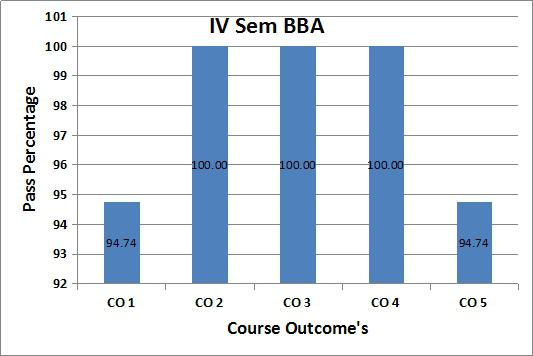 |
|
| Semester | 2 ನೇ ಸೆಮಿಸ್ಟರ್ | |
| Topic | I . ಕಾವ್ಯ ಭಾಗದಲ್ಲಿ | |
| Course Outcome | 1) ಮಾತಿಂಗೆ ಮಾತು ಗಡಲರಿದು – ರಾಘವಾಂಕ = ಈ ಕಾವ್ಯದಲ್ಲಿ ಹರಿಶ್ಚದ್ರನಿಗೆ ಹೊಲತಿಯರು ತಮ್ಮನ್ನು ವರಿಸುವಂತೆ ಕೇಳುವ ಧೈರ್ಯವನ್ನು ಅರಗಿಸಿಕೊಳ್ಳಲಾಗುವುದಿಲ್ಲ, ಕುಲಕುಲವೆಂದು ಹೊಡೆದಾಡುವವರು ಇರುವ ತನಕ ಅನಾಮಿಕ ಸತಿಯರ ಪ್ರಶ್ನೆ ಅನಾವರಣಗೊಳ್ಳುತ್ತಲೇ ಇರುತ್ತದೆ. ವ್ಯಕ್ತಿಗೆ ಕುಲ ಮುಖ್ಯವೋ? ಗುಣ ಮುಖ್ಯವೋ? ಎನ್ನವ ವಿಷಯಗಳನ್ನು ವಿದ್ಯಾರ್ಥಿಗಳು ತಿಳಿದುಕೊಳ್ಳುತ್ತಾರೆ. 2)ಶ್ರವಣ ದೊರೆ ಸಂಹಾರದ ಕವಟ್ಲು – ಜಾನಪದ ಮಹಾ ಕಾವ್ಯ ಭಾಗ = ಈ ಕಾವ್ಯದಲ್ಲಿ ‘ ಶ್ರಣದೊರೆ ಸಂಹಾರ ’ ಉರಿಚಮ್ಮಾಳಿಗೆ ಪ್ರಸಂಗವು ಮನುಷ್ಯನ ಅಹಂಕಾರದ ಠೇಂಕಾರವನ್ನು ನಾಟಕಿಯವಾಗಿ ಹೇಳುತ್ತದೆ. ಅಧಿಕಾರವು ಮನುಷ್ಯನಿಗೆ ಅಕಾರಣವಾಗಿ ತಂದುಕೊಡುವ ಮೇರೆಯಿಲ್ಲದ ಅಹಂಕಾರದ ಮದವನ್ನು ಅದರ ಪರಿಣಾಮವನ್ನು ಹೇಳುತ್ತದೆ. ಇನ್ನೊಬ್ಬರನ್ನು ಮೆಟ್ಟಬೇಕು ಎನ್ನುವ ಮನುಷ್ಯ ದೌರ್ಬಲ್ಯವು ವಿಕಾರವಾಗುವುದನದನ್ನು ಹೇಳುತ್ತದೆ. ಕೊನೆಗೆ ಆ ಅಹಂಕಾರವೇ ಮನುಷ್ಯನನ್ನು ಸುಡುವುದನ್ನು ಈ ಭಾಗ ಪ್ರತಿಮಾತ್ಮಕವಾಗಿ ಹೇಳುತ್ತದೆ ಎಂಬುದನ್ನು ವಿದ್ಯಾರ್ಥಿಗಳು ತಿಳಿದುಕೊಳ್ಳುತ್ತಾರೆ. 3)ನಾ ಮೆಟ್ಟಿದ ಜೋಡು – ಮೂಡ್ನಾಕೂಡು ಚಿನ್ನಸ್ವಾಮಿ = ಈ ಕಾವ್ಯದಲ್ಲಿ ದಮನಿತ ವರ್ಗದ ನೋವು ಮತ್ತು ವಿಷಾದಗಳು ನಿಧಾನವಾಗಿ ಕೀಳಿರುಮೆಯನ್ನು ನೀಗಿಕೊಂಡು ಆತ್ಮಗೌರವದ ನೆಲೆಯತ್ತ ಸಾಗುತ್ತರುವುದನ್ನು ಇಲ್ಲಿ ಗಮನಿಸಬಹುದು ಇದಕ್ಕೆ ಮುಖ್ಯ ಕಾರಣ ಕಾಯಕ ಗೌರವದ ಪ್ರಜ್ಞೆ ಮತ್ತು ರಾಜಕೀಯದ ಅರಿವು, ಕೀಳೆನಿಸದ ಜಾತಿ, ಹೀನವೆನಿಸಿದ ವೃತ್ತಿ- ಈ ಕಾರಣಕ್ಕಾಗಿ ಹುಟ್ಟಿದ ಕೀಳರಿಮೆ ಇವುಗಳನ್ನೆಲ್ಲ ವ್ಯವಸ್ಥೆಯ ಹುನ್ನಾರವೆಂದು ಅರ್ಥ ಮಾಡಿಕೊಂಡಾಗ ಹುಟ್ಟುವ ಆತ್ಮವಿಶ್ವಾಸ ಈ ಕವಿತೆಯಲ್ಲಿ ಕಾಣಿಸುತ್ತದೆ ಎನ್ನುವುದನ್ನು ವಿದ್ಯಾರ್ಥಿಗಳು ತಿಳಿದುಕೊಕಳ್ಳುತ್ತಾರೆ. 4) ವಕ್ರೀಭವನ –ಲಲಿತಾ ಸಿದ್ಧಬಸವಯ್ಯ = ಈ ಕವಿತೆಯಲ್ಲಿ ಹೆಣ್ಣೊಬ್ಬಳ ಬದುಕಿನ ಸ್ವಗತದಂತಿರುವ ‘ವಕ್ರೀಭವನ’ ಕವಿತೆ ಸ್ತ್ರೀವಾದದ ಉಬ್ಬರವೆಲ್ಲ ಇಳಿದಂತಿರುವ ಈ ಸಂದರ್ಭದಲ್ಲಿ ಮುಖ್ಯವೆನಿಸುತ್ತದೆ. ಹೆಣ್ಣು ತಾನು ನಡೆದು ಬಂದ ಹಾದಿಯನ್ನು ಹಿಂದುರಿಗಿ ತಾನೇ ನೋಡಿಕೊಳ್ಳುವ ಮತ್ತು ಇಂದಿನ ತನ್ನ ಅಸ್ತಿತ್ವದ, ವ್ಯಕ್ತಿತ್ವದ ಪ್ರತಿಬಿಂಬ ಕಾಣುವ ಚಿತ್ರಣವಿದೆ. ಅವಳ ಅವಸ್ಥಾಂತರಕ್ಕೆ ಕನ್ನಡಿ ಒಂದು ರೂಪಕವಾಗಿದೆ ಎಂದು ವಿದ್ಯಾರ್ಥಿಗಳು ತಿಳಿದುಕೊಳ್ಳುತ್ತಾರೆ. |
|
| Semester | 2 ನೇ ಸೆಮಿಸ್ಟರ್ | |
| Topic | II. ನಾಟಕ ಭಾಗ | |
| Course Outcome | 1)ಶೂದ್ರತಪಸ್ವಿ - ಕುವೆಂಪು = ಶ್ರೇಷ್ಟತೆಗೆ ಜಾತಿಯ ಹಂಗಿಲ್ಲ ಮಹಿಮಾನ್ವಿತರಾಗುವುದು ಹುಟ್ಟಿನ ಬಲದಿಂದಲ್ಲ ನಡೆಸುವ ಬದುಕಿನಿಂದ, ಮೂಲಭೂತವಾದ ಅಲೋಚನೆಗಳಿಂದ ಎಂಬುದನ್ನು ಈ ಕಿರುನಾಟಕ ಎತ್ತಿ ಹಿಡಿಯುತ್ತದೆ. ಶೂದ್ರನ ತಪಸ್ಸು ನಾಯಿಯ ಹಾಲಿನಂತೆ ಎಂದು ಮೊದಲ್ಲಲ್ಲಿ ಹೇಳಿದ ಶಾಸ್ತ್ರ ಸಮೂಹ, ಜಾತಿ ಗರ್ವಾಂಧ ಬ್ರಾಹ್ಮಣನೆ ನಾಟಕದ ಕೊನೆಯಲ್ಲಿ ಹೊಸ ಅರಿವು ಪಡೆದ ಶೂದ್ರ ತಪಸ್ವಿಯ ಹಿರಿಮೆ ಅರಿವೆಗೆ ಬರುತ್ತದೆ. ಅಲ್ಲದೆ ಕ್ರಾಂತಿಕಾರಿಕ ವಸ್ತುವಿನಿಂದಾಗಿ ಹೊಸ ಅಲೋಚನೆಯೊಂದಿಗೆ ವಿದ್ಯಾರ್ಥಿಗಳು ತಿಳಿದುಕೊಳ್ಳುತ್ತಾರೆ. |
|
| Semester | 2 ನೇ ಸೆಮಿಸ್ಟರ್ | |
| Topic | III. ಪ್ರಬಂಧ ಸಾಹಿತ್ಯ | |
| Course Outcome | 1) ಅಕ್ಕಿ ಹೆಬ್ಬಾಳು - ಎ,ಎನ್ ಮೂರ್ತಿ ರಾವ್ = ಈ ಲೇಖನದಲ್ಲಿ ಲೇಖಕರ ಕನಸಿನ ಅಕ್ಕಿ ಹೆಬ್ಬಾಳದ ರಂಗು, ರುಚಿ, ಅನುಭವಗಳು, ದಶಕ – ದಶಕಗಳ ನಂತರವೂ ವಾಸ್ತವದಲ್ಲಿ ಬದಲಾಗಿದೆ ಇರಲು ಸಾಧ್ಯವಿಲ್ಲ. ಆದರೆ ಮನಸ್ಸು ಮಾತ್ರ ಹಳೆಯ ಊರನ್ನೆ ಧ್ಯಾನಿಸುತ್ತದೆ. ಆ ಮೂಲ ಭೂತಕಾಲದ ಸ್ಮೃತಿ ಕೋಶದೊಂದಿಗೆ ಇಂದಿನ ವರ್ತಮಾನದ ಚಿತ್ರಗಳನ್ನಿಟ್ಟು ತುಲನೆ ಮಾಡುತ್ತದೆ. ಎಂಬ ವಿಷಯಗಳನ್ನು ವಿದ್ಯಾರ್ಥಿಗಳು ತಿಳಿದುಕೊಳ್ಳು ತ್ತಾರೆ. 2)ಮಂದಹಾಸ ಮೀಮಾಂಸೆ = ಪ್ರಭುಶಂಕರ : ಈ ಲೇಖನದಲ್ಲಿ ನಗುವೆ ಬಾಳಿನ ಸಂಜೀವಿನಿ ಎಷ್ಟೇ ಕಷ್ಟಗಳಿಂದ್ದರೂ ನಗುನಗುತ್ತಾ ಬಾಳಬಲ್ಲವನೇ ನಿಜವಾದ ಧೀರ. ಏಕೆಂದರೆ ನಾವು ಅಳುವುದಕ್ಕೆ ಬದುಕು ನೂರು ಕಾರಣಗಳನ್ನು ಕೊಡುತ್ತದೆ: ಅದಕ್ಕೆ ಪ್ರತಿಯಾಗಿ ನಗಲು ನಮಗೆ ಸಾವಿರ ಕಾರಣಗಳಿವೆ ಎಂಬುದನ್ನು ನಾವು ಅದಕ್ಕೆ ತೋರಿಸಿ ಗೆಲ್ಲಬೇಕು. ನಮ್ಮ ಗಂಟು ಮೋರೆಯನ್ನು ನೋಡಲು ಯಾರಿಗೆ ತಾನೆ ಆಸೆ ? ಸಿಡುಕು, ವ್ಯಕ್ತಿಯ ಸೌಂದರ್ಯವನ್ನು ನಾಶಪಡಿಸಿದರೆ, ಮುಗುಳ್ನಗು ಮುಖದ ಮೌಲ್ಯವನ್ನು ಹೆಚ್ಚಿಸುತ್ತದೆ ಎಂಬ ವಿಷಯದ ಬಗ್ಗೆ ವಿದ್ಯಾರ್ಥಿಗಳು ತಿಳಿದುಕೊಳ್ಳುತ್ತಾರೆ. 3)ರುಚಿ – ಸುನಂದಾ ಬೆಳೆಗಾಂವಕರ್ = ಈ ಪ್ರಬಂಧದಲ್ಲಿ ರುಚಿ ಎನ್ನವುದು ವ್ಯಕ್ತಿಯ ಮತ್ತು ಸಮೂದಾಯದ ಎಲ್ಲ ವಿಷಯಕ್ಕೂ ಸಂಬಂಧಪಟ್ಟದ್ದು. ‘ಲೋಕೋಭಿನ್ನ ರುಚಿ: ’ಎನ್ನವ ಮಾತು ಅನೇಕ ರುಚಿಗಳನ್ನು ಅವರ ವ್ಯಕ್ತಿತ್ವಕ್ಕೆ ಅನನ್ಯತೆಯನ್ನು ತಂದು ಕೊಡುವಂತೆಯೇ ಭಿನ್ನ ಸಂಸ್ಕೃತಿಗಳೂ ಕೂಡ ತಮ್ಮದೇ ಆದ ರುಚಿಯ ಪರಿಕಲ್ಪನೆಯನ್ನು ಹೊಂದಿರುತ್ತವೆ. ಸಮಕಾಲೀನ ಸಮಾಜದ ಕೊಳ್ಳುಬಾಕ ಸಂಸ್ಕೃತಿಯ ರುಚಿಯು ಅಗತ್ಯಗಳನ್ನು ಮೀರಿದ ಹಪಾಹಪಿತನವಾಗಿರುವುದನ್ನು ನಾವು ಗಮನಿಸಬಹುದು. ರುಚಿಯು ವೈಯಕ್ತಿಕ ಆಯ್ಕೆಯನ್ನು ಮೀರಿದ ಪೊಳ್ಳು ಸಾಮಾಜಿಕ ಪ್ರತಿಷ್ಠೆಯ ಹಿನ್ನೆಲೆಯನ್ನು ತಲುಪಿದೆ. ಸಮವಸ್ತ್ರ ರೂಪಿಯಾದ ಜಾಗತಿಕ ರುಚಿಗಳು ಆಹಾರ, ಉಡುಗೆ ತೊಡುಗೆ ಎಲ್ಲವನ್ನು ವ್ಯಾಪಿಸುತ್ತಿರುವ ಸಂದರ್ಭದಲ್ಲಿ ಕರ್ನಾಟಕದ ಪ್ರಾದೇಶಿಕ ರುಚಿಯೊಂದರ ಪರಿಚಯವನ್ನು ವಿದ್ಯಾರ್ಥಿಗಳು ತಿಳಿದುಕೊಳ್ಳುತ್ತಾರೆ. |
|
| Semester | 2 ನೇ ಸೆಮಿಸ್ಟರ್ | |
| Topic | IV.ಲೇಖನ ವೈವಿಧ್ಯ | |
| Course Outcome | 1) ಸದ್ಯದ ಬೆಳಕಿನಲ್ಲಿ ಅಂಬೇಡ್ಕರ್ – ಡಾ. ಎಸ್.ತುಕರಾಮ್ = ಈ ಲೇಖನದಲ್ಲಿ ಸಂವಿಧಾನ ಶಿಲ್ಪಿ ಡಾ. ಬಿ.ಆರ್. ಅಂಬೇಡ್ಕರ್. ಹಿಂದುಳಿದ ಜನಾಂಗಕ್ಕೆ ಹಾಗೂ ಅಸ್ಪೃಶ್ಯರಿಗೆ ಆದ ಅನ್ಯಾಯಗಳಿಗೆ, ನೋವುಗಳಿಗೆ ಕನ್ನಡಿ ಹಿಡಿದವರು ದಮಿನಿತರ ಏಳಿಗೆಗಾಗಿ ಹಗಲಿರುಳು ಶ್ರಮಿಸಿದರು. ಅವರ ಅಗಾಧ ವಿದ್ವತ್ತು, ವಿಷಯಗಳ ವಿಶ್ಲೇಷಣೆ, ಮಾನವತವಾದ, ನ್ಯಾಯ ಪಕ್ಷಪಾತ ಎಲ್ಲವೂ ಒಂದಕ್ಕಿಂತ ಒಂದು ದೊಡ್ಡದು. ಜಾತಿಯನ್ನು ನಿರಾಕರಿಸಿದ ಸೋದರಭಾವದಲ್ಲಿ ಭಾರತಿಯರೆಲ್ಲ ಬಾಳಬೇಕೆಂಬ ಅವರ ಕನಸು, ನನಸಾಗಿದೆಯೇ ಎಂದು ನಾವೀಗ ಯೋಚಿಸಬೇಕು ಎಂಬ ವಿಷಯಗಳ ಬಗ್ಗೆ ವಿದ್ಯಾರ್ಥಿಗಳು ತಿಳಿದುಕೊಳ್ಳುತ್ತಾರೆ. 2) ಚಿಪಾಂಜಿಗಳ ಗೆಳತಿ – ಜೇನ್ ಗುಡಾಲ್ – ನೇಮಿಚಂದ್ರ = ಜ್ಞಾನದ ಸಾಧನೆಗೆ ಹೆಣ್ಣು –ಗಂಡೆಂಬ ವ್ಯತ್ಯಾಸವಿಲ್ಲ. ಆದರೆ ಜ್ಞಾನ ರಾಜಕಾರಣದಿಂದಾಗಿ ವಿಜ್ಞಾನ ಪ್ರಪಂಚಕ್ಕೆ ಮಹಿಳೆಯ ಪ್ರವೇಶ ತಡವಾಗಿಯೇ ಆಯಿತು. ಈಗಲೂ ಅದು ಪುರಷವರ್ಗಕ್ಕೆ ಸುಲಭವಾದಷ್ಟು ಸ್ತ್ರೀವರ್ಗಕ್ಕಿಲ್ಲ. ಹಾಗೆಂದ ಮಾತ್ರಕ್ಕೆ ವಿಜ್ಞಾನ ಕ್ಷೇತ್ರದಲ್ಲಿ ಮಹಿಳೆಯರಿಗೆ ಪ್ರತಿಭೆಯ ಕೊರತೆ ಇದೆ ಎಂದಾಗಲಿ, ಆಸಕ್ತಿ ಇಲ್ಲವೆಂದಾಗಲಿ ಅಲ್ಲ. ಜಗತ್ತೆ ವಿಸ್ಮಯಗೊಳ್ಳುವಂತಹ ಸಂಶೋಧನೆಗಳನ್ನು ಈಗಾಗಲೆ ಹಲವಾರು ಮಹಿಳಾ ವಿಜ್ಞಾನಿಗಳು ತಮ್ಮೆಲ್ಲ ಪ್ರತಿಬಂಧಕಗಳ ನಡುವೆಯೂ ಮಾಡಿ ತೋರಿಸಿದ್ದಾರೆ. 40 ವರ್ಷಗಳಿಗೂ ಮೀರಿದ ದೀರ್ಗವದಿಯಲ್ಲಿ ಚಿಪಾಂಜಿಗಳ ಬಗೆಗೆ ಕಠೋರ ತಪಸ್ಸಿಗಿಂತ ತೀವ್ರವಾದ ಅಧ್ಯಯನ ನಡೆಸಿ, ಕುರಿತು ಜಗತ್ತಿನ ಕಣ್ಣುತೆರೆಸಿರುವ ಜೇನ್ ಗುಡಾಲ್ ಅವರದ್ದು ನಂಬಲಾಸಾಧ್ಯವಾದ ಸಾಧನೆ ಬಗ್ಗೆ ವಿದ್ಯಾರ್ಥಿಗಳು ತಿಳಿದುಕೊಂಡರು. 3) ತರಕಾರಿನೋ ವಿಷಕಾರಿನೋ, ಪ್ರಾಣಿಗಳೋ ಪ್ರಾಣಹಾನಿಗಳೋ - ಡಾ.ಎಚ್.ಎಸ್. ಪ್ರೇಮ = ಈ ಲೇಕನದಲ್ಲಿ ‘ ಅನ್ನಗತ ಪ್ರಾಣ ’ ಮಾತೊಂದಿದೆ. ಅಂದರೆ ಎಲ್ಲಾ ಜೀವಿಗಳಿಗೂ ಅವು ತಿನ್ನುವ ಅನ್ನವೇ ಅವುಗಳ ಪ್ರಾಣಕ್ಕೆ ಆಧಾರ. ಹಸು ಹುಲ್ಲು ತಿನ್ನಲಿ, ಹುಲಿ ಹಸುವನ್ನು ತಿನ್ನಲಿ ಅಥವಾ ಮನುಷ್ಯ ರೊಟ್ಟಿ ತಿನ್ನಲಿ ಬಎಲ್ಲವೂ ಅನ್ನವೆ. ಹೀಗೆ ಜೀವ ಪೋಷಕವಾದ ಅನ್ನವೇ ಜೀವಾಪಹಾರಿಯಾಗುವುದಾದರೆ ಜಗತ್ತು ಆರೋಗ್ಯಕರವಾಗಿ ಉಳಿದುಕೊಳ್ಳುವ ಪ್ರಶ್ನೆ ಎಲ್ಲಿ ನದಿಮೂಲಕ್ಕೆ ವಿಷಬೆರೆಸಿ ಕೆಡಿಸಿಬಿಟ್ಟರೆ ಮುಂದೆ ಹರಿಯುವ ನೀರೆಲ್ಲಾ ವಿಷಯುಕ್ತವಾಗುವಂತೆ, ಬೆಳೆಯುವ ಭೂಮಿಯ ಒಡಲಿಗೆ ಅಳತೆಮೀರಿ ರಾಸಾಯನಿಕಗಳನ್ನು ಸುರಿದು ಕಡಿಸಿದರೆ ಬೆಳೆಯುವುದೆಲ್ಲ ವಿಷಯುಕ್ತವೆ. ಅವುಗಳನ್ನು ತಿಂದೂ ಉಳಿಯುವಂತಿಲ್ಲ, ತಿನ್ನದೆಯೂ ಉಳಿಯುವಂತಿಲ್ಲ. ನಮ್ಮದೇಶದಲ್ಲಿ ನಡೆಯುವ ಹಲವು ಸಮಸ್ಯೆಗಳನ್ನು ಕುರಿತು ವಿದ್ಯಾರ್ಥಿಗಳು ತಿಳಿದುಕೊಳ್ಳುತ್ತಾರೆ. |
|
| Co - Attainment | 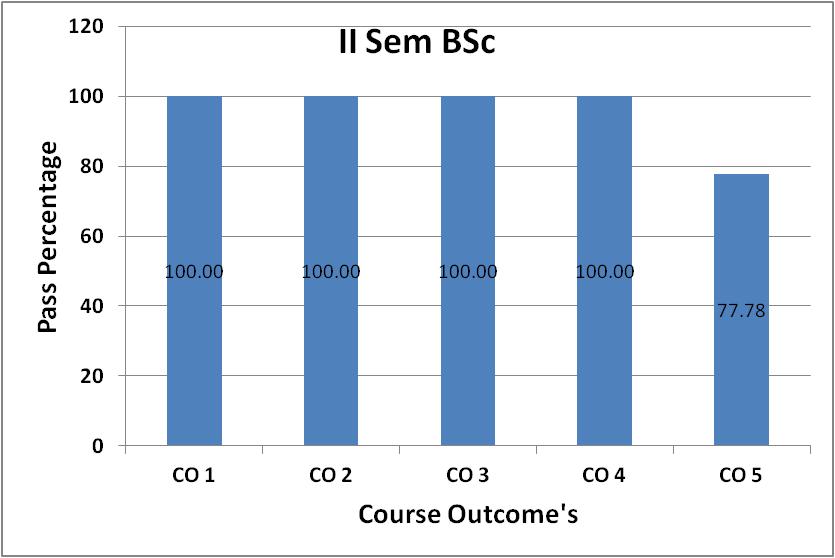 |
|
| Semester | 4 ನೇ ಸೆಮಿಸ್ಟರ್ | |
| Topic | I .ಹಳಗನ್ನಡ ಕಾವ್ಯ ಭಾಗ | |
| Course Outcome | 1) ರ್ಯೋಧನ ವಿಲಾಪಂ - ರನ್ನ = ಈ ಕಾವ್ಯದಲ್ಲಿ ದುರ್ಯೋಧನನು ತನ್ನ ಹತ್ತಿರದ ಬಂಧು ಬಾಂಧವರನ್ನು ಯುದ್ಧದಲ್ಲಿ ಕಳೆದುಕೊಂಡು ಅಸಹಾಯಕ ಸ್ಥಿತಿಯಲ್ಲಿರುವಾಗ ತಂದೆಯ ಮಾತಿನಂತೆ ಭೀಷ್ಮರನ್ನು ನೋಡಲು ಬರುತ್ತಾರೆ, ಭೀಕರ ರಣರಂಗದಲ್ಲಿ ನಡೆದುಬರುತ್ತಾ ಮರಳುಗಳ ಟೀಕೆಗೆ ಒಳಗಾಗಿ ಅಂತರಂಗದಲ್ಲಿ ನೊಂದು ಬರುವಾಗ ದ್ರೋಣಾಚಾರ್ಯರ ಕಳೇಬರಹವನ್ನು ಕಂಡು ಶೋಕಿಸಿ ಮುಂದೆ ಬರುತ್ತಾನೆ, ಅಭಿಮಾನ್ಯು ಲಕ್ಷಣ ಕುಮಾರ, ದುಶ್ಯಾಸನ ಮತ್ತು ಕರ್ಣರ ಕಳೇಬರಹಗಳನ್ನು ನೋಡಿದಾಗ ದುರ್ಯೋಧನನ ಮನಸ್ಥಿಯಲ್ಲಿ ಹಾದು ಹೋಗುವ ತೀವ್ರ ಭಾವನೆಗಳು ದುರ್ಯೋಧನನ ವ್ಯಕ್ತಿತ್ವದ ಔನ್ನತ್ಯವನ್ನು ಉಜ್ವಲವಾಗಿ ಪ್ರಕಟ ಪಡಿಸುವ ಬಗ್ಗೆ ವಿದ್ಯಾರ್ಥಿಗಳು ತಿಳಿದುಕೊಳ್ಳುತ್ತಾರೆ. 2) ಮಾಯೆಯ ತಿರಸ್ಕಾರ – ಚಾಮರಸ = ಈ ಕಾವ್ಯ ಭಾಗದಲ್ಲಿ - ಮಾಯೆ ಅಲ್ಲಮನ ವಿರಹ ತಾಪದಿಂದ ಬಳಲಿ ಬೆಂಡಾಗಿ ಅವನನ್ನು ಒಲಿಸಿಕೊಳ್ಳಲು ನಾನಾ ವಿಧವಾಗಿ ಪ್ರಯತ್ನಿಸುತ್ತಾಳೆ. ಮಮಕಾರ ಮತ್ತು ಮೋಹಿನಿಯರ ಮಗಳಾದ ಈ ಮಾಯೆಯನ್ನು ಅಲ್ಲಮ ತಿರಸ್ಕರಿಸಲು ಸನ್ನಿವೇಶ ಪ್ರಭುಲಿಂಗ ಲೀಲೆಯಲ್ಲಿ ಅಪೂರ್ವ ಎಂಬಂತೆ ವರ್ಣನೆಯಾಗಿದೆ. ಪ್ರಸ್ತುತ ಬಾಗವನ್ನು ಪ್ರಭುಲಿಂಗ ಲೀಲೆಯಲ್ಲಿ ಕಂಡುಬರುವ ಮಾಯೆಯನ್ನು ವಿದ್ಯಾರ್ಥಿಗಳು ತಿಳಿದುಕೊಳ್ಳುತ್ತಾರೆ. 3) ರಾಜೀವಾಕ್ಷಣ ಕರುಣೆ – ಶ್ರೀ ಗುರುರಾಮವಿಠಲರು = ಈ ಕಾವ್ಯದಲ್ಲಿ ಹರಿದಾಸ ಸಾಹಿತ್ಯ ದ್ವೈತ, ಅದ್ವೈತ, ವಿಶಿಷ್ಟಾದ್ವೈತ ಪರಂಪರೆಗಳನ್ನು ಕಾಣಬಹುದು.ದ್ವೈತ ಹರಿದಾಸ ಪರಂಪರೆಯು ಇತಿಹಾಸಿಕವಾಗಿ ಶ್ರೀ ಪಾದರಾಜರಿಂದ ( 15ನೆ ಶತಮಾನದ ) ಪ್ರಾರಂಭವಾಗಿ ವಿಜಯದಾಸರವರಿಗೆ ಮೊದಲನೆಯಘಟ್ಟವೆಂದು ವಿಜಯದಾಸರಿಂದ ( 17 ನೇ ಶತಮಾನ ) 19-20ನೆಯ ಶತಮಾನದವರೆಗೆ ದ್ವಿತೀಯ ಗಟ್ಟವೆಂದೂ ಗುರುತಿಸಲಾಗಿದೆ. ಹರಿದಾಸ ಸಾಹಿತ್ಯ ಇಂದಿಗೂ ಜೀವಂತವಾಗಿದ್ದು ಅನೇಕ ಅರಿದಾಸರು ಕೀರ್ತನೆಗಳು ರಚಿಸಿರುವುದನ್ನು ಕಾಣಬಹುದು. ಹರಿದಾಸರಿಗೆ ಸಂಸ್ಕೃತ, ಕನ್ನಡ ಪಾಂಡಿತ್ಯವಲ್ಲದೆ ಇತರ ಭಾಷೆಗಳಲ್ಲಿಯೂ ಪಾಂಡಿತ್ಯವಿರುವುದು ಅವರ ರಚನೆಗಳಿಂದ ತಿಳಿದುಬರುತ್ತದೆ. ದ್ವೈತ ಪರಂಪರೆಯ ಹರಿದಾಸರೆಲ್ಲರೂ ದ್ವೈತ ಸಿಧ್ಧಾಂತವನ್ನು ಪ್ರತಿಪಾದಿಸುವುದರೊಂದಿಗೆ ದೇವತಾ ತಾರತಮ್ಯವನ್ನು ತಂದಿರುವುದನ್ನು ವಿದ್ಯಾರ್ಥಿಗಳು ತಳಿದುಕೊಳ್ಳುತ್ತಾರೆ |
|
| Semester | 4 ನೇ ಸೆಮಿಸ್ಟರ್ | |
| Topic | II. ಚಿಂತನೆಧಾರೆ | |
| Course Outcome | 1) ಗಜಮುಖನ ಕ್ಷೀರ ದಾಹ – ನಾಗೇಶ ಹೆಗಡೆ = ಈ ಲೇಖನದಲ್ಲಿ ಗಣೇಶನ ಹಬ್ಬದ ನಂತರ ದಸರಾಕ್ಕೆ ಕೊಂಚ ಮೊದಲು ಕೇವಲ ಗಣೇಶನ ವಿಗ್ರಹಕ್ಕೆ ಕ್ಷೀರಾಭಿಷೇಕ ಪವಾಡ ಮಾತ್ರವಲ್ಲದೆ ನೀರು ಜೇನುತುಪ್ಪ ಪಾನಕ ಇವುಗಳ ಮುಖಾಂತರ ಪವಾಡ ನಡೆದಿದೆ ಎಂದು ಜನರನ್ನು( ತಮಿಳುನಾಡು, ಆಂದ್ರಪ್ರದೇಶ ವಶಿಕರಣ ಮಾಡುತ್ತಿದ್ದಾರೆ. ಪವಾಡವನ್ನು ಏಕಕಾಲಕ್ಕೆ ಅನೇಕ ಸ್ಥಳಗಳಲ್ಲಿ ತೋರಿಸಬೇಕಾದರೆ, ಸಾರ್ವತ್ರಿಕವಾಗಿ ಪೂಜೆಗೊಳ್ಳುವ ವಿಗ್ರಹವೇ ಹಾಗಿರಬೇಕು. ಹಾಲಿನಂತಹ ದ್ರವ್ಯದಿಂದ ಪವಾಡ ನಡೆಸುತ್ತಾರೆ ಎಂಬ ಸಂಗತಿಗಳನ್ನು ವಿದ್ಯಾರ್ಥಿಗಳು ತಿಳಿದುಕೊಳ್ಳುತ್ತಾರೆ. 2) ಸಂಕೋಲೆಯ ಹಿಡಿತದಲ್ಲಿ – ಎನ್. ಗಾಯಿತ್ರಿ = ಈ ಲೇಖನದಲ್ಲಿ 12ನೇಯ ಶತಮಾನಕ್ಕೆ ಧಾವಿಸುತ್ತಿರುವ ಹೆಣ್ಣನ್ನು ಇಂದಿಗೂ ಕೇವಲ ನಾಲ್ಕು ಗೋಡೆಗಳ ಮಧ್ಯದಲ್ಲಿಯೇ ಬಂಧಿಸಿದ್ದಾರೆ. ಮದುವೆ ಚೌಕಟ್ಟಿನೊಳಗೆ ಕ್ರೌರ್ಯ, ವಂಚನೆಗೆ ಒಳಗಾಗುವ ಹೆಣ್ಣುಗಳು ದಿನ ದಿನಕ್ಕೂ ಕುಬ್ಜರಾಗಿ ದನಿಯಿಲ್ಲದವರಾಗಿದ್ದಾರೆ. ಗಂಡಂದಿರ ಹೊಡೆತದಿಂದ ಮಾತ್ರ ವಿಮೋಚನೆ ಪಡೆದಿರುವುದಿಲ್ಲ, ವಂಶದ ಜ್ಯೋತಿಯಾಗುವುದೆಂಬ ಭ್ರಮೆಯಲ್ಲಿ ಇರುವವರಿಗೆ ಗಂಡು ಸಂತಾನ ಜನಿಸದಿರಲು ಅದಕ್ಕೆ ಮಹಿಳೆಯನ್ನೆ ಬಲಿ ತೆಗೆದುಕೊಳ್ಳಲಾಗುತ್ತದೆ. ಪುತ್ರಫಲಾಪೇಕ್ಷೆಯ ತೊಳಲಾಟ ಇಂದು ಮಾನವ ಸಮಾಜವನ್ನು ಲಿಂಗಾನುಪಾತದ ಅಸಮಾನತೆಯ ಅಪಾಯದ ಅಂಚಿಗೆ ತಂದು ನಿಲ್ಲಿಸಿದೆ. ಇತ್ತೀಚೆಗೆ ಹೆಚ್ಚುತ್ತಿರುವ ಹೆಣ್ಣು ಭ್ರೂಣ ಹತ್ಯೆಗೆ ಆವಿಷ್ಕಾರ ಗೊಂಡಿರುವ ವಿಜ್ಞಾನವು ಕಾರಣವಾಗಿರುವುದು ವಿಪರ್ಯಸದ ಬಗ್ಗೆ ವಿದ್ಯಾರ್ಥಿಗಳು ತಿಳಿದುಕೊಳ್ಳೂತ್ತಾರೆ. 3) ಮಹಿಳೆ - ಒಂದು ಚಿಂತನೆ- ಡಾ. ಪ್ರಮಿಳಾ ಮಾದವ್ = ಈ ಲೇಖನದಲ್ಲಿ ಸ್ತ್ರೀಯ ಮಹತಿಯನ್ನು ಹಾಡಿ ಹೊಗಳಿದ ಸಂಸ್ಕೃತಿ ನಮ್ಮದು. ಪಂಚಕನ್ಯಾಸ್ಮರೇನಿತ್ಯಂ ಮಹಾಪಾತಕ ನಾಶಕಂ’ ನಮ್ಮನ್ನು ಶುದ್ಧಿಕರಿಸಿಕೊಳ್ಳುವ ಸಿರಿವಂತ ಪರಂಪರೆಯ ನಾಡು. ನಿಜ ದರೆ ಆಧುನಿಕ ಯುಗದಲ್ಲಿ ಪಾಶ್ಚಿಮಾತ್ಯ ಬಿರುಗಾಳಿಗೆ ತಕ್ಕಾದಂತೆ ಸಮಾನತೆಯ ಗಾಳಿ ಸ್ತ್ರೀಯನ್ನು ಎಚ್ಚರಿಸಿದದ್ದೂ ಐತಹಾಸಿಕ ಸತ್ಯವನ್ನು ಕಡೆಗಣಿಸಲಾಗದು. ಹೀಗೆ ಸಮಾಜದ, ಸಂಸ್ಕೃತಿಯ, ನೈಜ ಧರ್ಮದ, ಮಾನವನ ಅರ್ಥಪೂರ್ಣ ಅಸ್ತಿತ್ವಕ್ಕೆ ಪೂರ್ಣತೆ ತಂದುಕೊಡುವವಳು ಮಹಿಳೆ ಎನ್ನುವ ಸಂಗತಿಗಳನ್ನು ವಿದ್ಯಾರ್ಥಿಗಳು ತಿಳಿದುಕೊಳ್ಳುತ್ತಾರೆ. |
|
| Semester | 4 ನೇ ಸೆಮಿಸ್ಟರ್ | |
| Topic | III. ಪ್ರವಾಸ | |
| Course Outcome | 1) ಪೆರುವಿನ ಪವಿತ್ರ ಕಣಿವೆಯಲ್ಲಿ – ನೇಮಿಚಂದ್ರ : ಈ ಪ್ರವಾಸ ಕಥನದಲ್ಲಿ ‘ ತಿರಿವರಿಂ ಸಿರಿವಂತರಾರು ಸರ್ವಜ್ಞ’ ಎಂಬಂತೆ ‘ ದೇಶಸುತ್ತಿ ನೋಡು ಕೋಶ ಓದಿನೋಡು’ ಎಂಬ ಗಾದೆಯಂತೆ ದೇಶ ಸುತ್ತಿರುವ ಮಹಿಳೆಯೊಬ್ಬರು ದಕ್ಷಿಣ ಅಮೇರಿಕಾದ ಪೆರುಕಣಿವೆ, ಬ್ರಜಿಲ್, ಅಮೇಜಾನ್, ನಾಸ್ಕಾಗೆರೆ. ಮಾಚುಪೀಚುವಿನ ಎತ್ತರವನ್ನು ತಲುಪಿ, ಅಕ್ಕಪಕ್ಕದ ದೇಶಗಳಲ್ಲೂ ಸುಳಿದಾಡಿ ಪ್ರವಾಸ ಹೋದಾಗ ದುರಾಗುವ ಭಾಷೆಯ ಸಮಸ್ಯೆಯನ್ನು ತಮ್ಮದೇ ಕೈಬಾಯಿ ಸನ್ನೆಗಳ ಮೂಲಕ ನಿಭಾಯಿಸಿಕೊಂಡು, ಹಾಗೆಯೇ ಅಹಾರದ ಪ್ರಶ್ನೆಯನ್ನು ಬಗೆಹರಿಸಿಕೊಂಡು, ಹೋದಕಡೆಯಲ್ಲೆಲ್ಲ ನಮ್ಮ ಊರಿನದೇ ಪರಿಸ್ಥಿಯನ್ನು. ನಮ್ಮ ಜನರಂತೆಯೇ ಆದರಿಸುವ, ಪ್ರೀತಿಸುವ, ಸ್ನೇಹ ಬಾವ ತೋರಿಸುವ ಜನರನ್ನು ಭೇಟಿಮಾಡಿದ ಅನುಭವಗಳನ್ನು ಲೇಖಕಿಯಿಂದ ವಿದ್ಯಾರ್ಥಿಗಳು ತಿಳಿದುಕೊಳ್ಳುತ್ತಾರೆ. |
|
| Semester | 4 ನೇ ಸೆಮಿಸ್ಟರ್ | |
| Topic | IV. ಸಂಕೀರ್ಣ ಲೇಖನಗಳು | |
| Course Outcome | 1) ಅಮಾನವೀಯ ಮಾನವರು – ಕೆ ಎಸ್. ನಿಸಾರ್ ಅಹಮದ್ = ಈ ಲೇಖನದಲ್ಲಿ ಮನುಷ್ಯನು ತನ್ನಂತೆ ಇರುವ ಸಹಜೀವಿಗಳಲ್ಲಿ ಅಮಾನವೀಯವಾಗಿ ವರ್ತಿಸುತ್ತಾನೆ. ದಯೆ, ಕರುಣೆ, ಸಹಾನುಭೂತಿಗಳ ಆಗರವಾಗಬೇಕಾದ ಅವನ ಅಂತರಂಗ ದಯಾಶೂನ್ಯ ನಡವಳಿಕೆಯನ್ನು ರೂಢಿಸಿಕೊಂಡಿದೆ, ಅವನ ಅಮಾನುಷತೆ ಅನ್ಯರ ದುರವಸ್ಥೆ – ದುರಂತಗಳನ್ನು ಕಂಡು ಮರುಗದೆ ತಮಾಷೆ – ಗೇಲಿಗಳ ಗೀಳಿಗೆ ಪಕ್ಕಾಗಿದೆ. ಪರರ ಶೋಕಕ್ಕೆ ಕರಗದ ಆರ್ದ್ರಗೊಳ್ಳದ ಅವನ ನಡವಳಿಕೆಯ ತರರ ಬದುಕನ್ನು ಅಸಹನೀಯಗೊಳಿಸುತ್ತಿದೆ. ಪರರ ಕಷ್ಟಕ್ಕೆ ನೆರವಾಗದ ಆತ ತಾನು ಅಂತಹಸ ಸಂದರ್ಭಗಳಿಗೊಳಗಾದಾಗ ಇತರರು ನೆರವಾಗಬೇಕೆಂದು ಅಪೇಕ್ಷಿಸುತ್ತೇನೆ ಅವನ ನಡವಳಿಕೆಯ ವೈರುಧ್ಯದಲ್ಲಿ, ಸ್ವಾರ್ಥ, ಲೋಭ ಪರನಿಂದೆಗಳು ಮುಂಚೂಣಿಗೆ ಬಂದು ಅಂತರಂಗ ರೂಢಿಗೊಳ್ಳುವುದನ್ನು ಅತ್ಯಂತ ಕಳಕಳಿ ಮತ್ತು ಕಳವಳಗಳೊಂದಿಗೆ ಪ್ರಸ್ತುತತೆಯನ್ನು ವಿದ್ಯಾರ್ಥಿಗಳು ತಿಳಿದುಕೊಳ್ಳುತ್ತಾರೆ. 2) ಜಾನಪದ ಮತ್ತು ಆಧುನಿಕತೆ ಸಾಹಿತ್ಯ – ಕಿ ರಂ. ನಾಗರಾಜು = ಈ ಲೇಖನವು ಜಾನಪದ ಮತ್ತು ಆಧುನಿಕ ಸಾಹಿತ್ಯವನ್ನು ಕುರಿತು ಕನ್ನಡದ ಪ್ರಖರ ವಿದ್ವತ್ತಿನ ಚಿಂತಕರಾದ ಕಿ.ರಂ.ಅವರ ವಿಚಾರ ಧಾರೆಗಳು ಇಲ್ಲವೆ. ಪ್ರಾಚೀನ ಮತ್ತು ಆಧುನಿಕ ಸಾಹಿತ್ಯ ಲಯಗಳೊಳಗಿನ ಅಂತರ್ ಸಂಬಂಧಗಳು ಕನ್ನಡ ಸಂಸ್ಕೃತಿ ಮತ್ತು ಪರಂಪರೆಗಳನ್ನು ಮೊರೆದಿರುವುದನ್ನು ಲೇಖಕರು ಅನನ್ಯವಾಗಿ ಕಂಡಿರಿಸಿದ್ದಾರೆ ಆಧುನಿಕ ಸಾಹಿತ್ಯದ ನೆಲೆಗಳನ್ನು ಚಿಂತಿಸುವ ಸವಾಲಿನ ಜೊತೆ ಜೊತೆಗೆ ಜಾನಪದ ಸಾಹಿತ್ಯದ ಶಾಸ್ತ್ರೀಯ ವಿಶ್ಲೇಷಣೆ ನಡೆಯದಿರುವ ಕುರಿತು ಲೇಖಕರು ವಿಶ್ಲೇಷಿಸಿದ್ದಾರೆ. ಇತರೆಲ್ಲಾ ಜ್ಞಾನಶಾಖೆಗಳ ಸಹಯೋಗಲ್ಲಿ ನಮ್ಮ ಸಾಹಿತ್ಯ ಪರಂಪರೆಯ ವ್ಯಾಖ್ಯಾನಗಳು ಮರುಚಿಂತನೆಗೆ ಒಳಪಡಬೇಕಾದ ಅನಿವಾರ್ಯತೆಯನ್ನು ಪ್ರಸ್ತುತ ಲೇಖನವು ಪ್ರತಿಪಾದಿಸಿದೆ ಎನ್ನುವ ವಿಷಯಗಳನ್ನು ವಿದ್ಯಾರ್ಥಿಗಳು ತಿಳಿದುಕೊಳ್ಳುತ್ತಾರೆ. 3) ವಚನ ಚಳುವಳಿ ಮತ್ತು ದಲಿತರು – ಡಾ.ಸಿದ್ಧಲಿಂಗಯ್ಯ = ಈ ಲೇಖನದಲ್ಲಿ ಸಾಮಾಜಿಕ ಅಸಮಾನತೆಯನ್ನು ದೂರ ಮಾಡಲು ಹನ್ನೆರಡನೆಯ ಶತಮಾನದಲ್ಲೇ ಬಸವಾದಿ ಪ್ರಮುಖರು ಮಾಡಿದ ಹೋರಾಟವು ಸಾಮಾಜಿಕ ಚಳುವಳಿಯ ಸ್ವರೂಪವನ್ನು ತಳೆಯಿತು. ‘ ವಚನ ಸಾಹಿತ್ಯ’ ಎಂಬುದಕ್ಕಿಂತಲೂ ‘ವಚನ ಚಳುವಳಿ’ ಎಂಬ ಮಾತೇ ಆ ಸಂದರ್ಭಕ್ಕೆ ಔಚಿತ್ಯ ಪೂರ್ಣವೆನೆಸುತ್ತದೆ. ಈ ಚಳುವಳಿಗೆ ಪ್ರೇರಕವಾದ ಸಾಮಾಜಿಕ ಬಿಟ್ಟುಗಳು ಈಗ ಇನ್ನಷ್ಟು ಬಲಗೊಂಡಿವೆ. ಅನೇಕರು ತಮ್ಮ ಮೂಲ ಸಂಸ್ಕೃತಿಯ ಬೇರುಗಳನ್ನು ಕಳಚಿಕೊಂಡು ವಚನ ಸಂಸ್ಕೃತಿಗೆ ಪಕ್ಕಾದರು. ವಚನ ಸಂಸ್ಕೃತಿಯಲ್ಲಿ ತಮ್ಮ ಬಿಡುಗಡೆಯ ಭರವಸೆಯನ್ನು ಅನುಭವಿಸಿದರು. ದಲಿತ ವಿಮೋಚನೆಯ ಬಗ್ಗೆ ಇಂದು ನಾವು ಚಿಂತಿಸುತ್ತಿರುವ ವಿಚಾರಗಳಿಗಿಂತಲೂ ವಚನಕಾರರು ಆಲೋಚನೆಯಲ್ಲಿ ಮುಂದಿದ್ದುದ್ದನ್ನು ಲೇಖಕರಲ್ಲಿ ಪರಿಣಾಮಕಾರಿಯಾಗಿ ದಾಖಲಿಸಿದ್ದಾರೆ ಎಂಬ ವಿಷಯಗಳನ್ನು ವಿದ್ಯಾರ್ಥಿಗಳು ತಿಳಿದುಕೊಳ್ಳುತ್ತಾರೆ. |
|
| Co - Attainment | 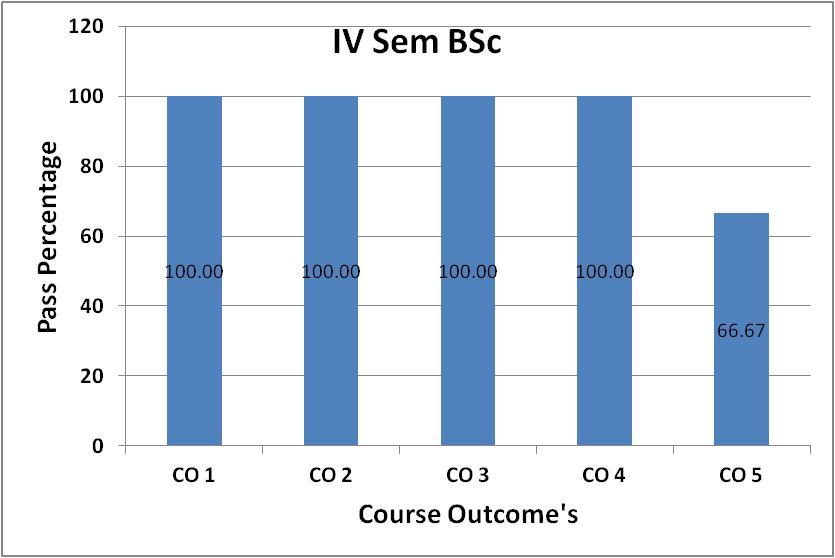 |
|
| Semester | 2 ನೇ ಸೆಮಿಸ್ಟರ್ | |
| Topic | I.ಕಾವ್ಯ ಭಾಗ | |
| Course Outcome | ಈ ಭಾಗದಲ್ಲಿ ವಿದ್ಯಾರ್ಥಿಗಳಿಗೆ ಹಳಗನ್ನಡ ಸಾಹಿತ್ಯದಲ್ಲಿ ಷಟ್ಪದಿ ಕವಿ
ರಾಘವಾಂಕರ 1)‘ನೀನೆಮಗೆ ವಲ್ಲಭನಾಗು’ ಈ ಕಾವ್ಯ ಭಾಗದಲ್ಲಿ ನಾಟ್ಯ ರಾಣಿಯರು ಸೂರ್ಯವಂಶದ ರಾಜ ಸತ್ಯ ಹರಿಶ್ಚಂದ್ರನನ್ನು ವಚನ ಭ್ರಷ್ಟನನ್ನಾಗಿ ಮಾಡಲು ಮಾಡಿದ ಪ್ರಯತ್ನಗಳನ್ನು ವಿಫಲಗೊಳಿಸಿ ಸತ್ಯತೆಯನ್ನು ಮೆರೆದಿದ್ದನ್ನು ಅರಿತಿದ್ದಾರೆ. ಡಾ. ಅನಸೂಯ ಕಾಂಬ್ಳೆಯವರ 2) ಮಹಾದೇವಿ ಅಕ್ಕನಿಗೆ ಕವಿತೆಯ ಈ ಭಾಗದಲ್ಲಿ ಅಕ್ಕಮಹಾದೇವಿಯು ಸಂಸಾರಿಕ ಬಂಧನವನ್ನು ಕಳಚಿ ಪುರುಷ ವಿರೋಧಿ ನಿಲುವಿಗೆ ವಿರುದ್ಧವಾಗಿ ಸಂಸಾರಕ್ಕೆ ಬಂಧಿಯಾಗಿಯೆ ತಾನು ಸಹಾಯಕಳಾಗಿ ಬದುಕ ಬಲ್ಲೆ ಎಂಬುದನ್ನು ತಿಳಿಸಿಕೊಡಲಾಗಿದೆ. ಜಂಬಣ್ಣ ಅಮರಚಿಂತ ರವರ 3)‘ಕೋಟೆ’ ಕವಿತೆಯಲ್ಲಿ ಅಂದು ಕೋಟೆ ಕೊತ್ತಲಗಳನ್ನು ನಿರ್ಮಿಸಿ, ಅರಮನೆಗಳನ್ನು ಕಟ್ಟಿ ರಾಜನ ಸರ್ವತೋಮುಖ ಅಬಿವೃದ್ಧಿಗೆ ಕಾರಣರಾದ ಶ್ರಮಿಕ ವರ್ಗ ಸ್ವಾತಂತ್ರ್ಯ ಬಂದ ನಂತರವು ಆಗೆಯೆ ಮುಂದುವರಿದಿರುವುದನ್ನು ಈ ಕವಿತೆಯ ಮುಖಾಂತರ ತಿಳಿಸಲಾಗಿದೆ. ಜನಪದ ರಾಮಾಯಣ ಕಾವ್ಯಭಾಗ 4) ‘ಕುಶ್ಚಲವುಲು ಮೀನುಗಳೆ ಸರಣೆಂದೆ’ ಜಾನಪದ ರಾಮಾಯಣದ ಭಾಗ . ಈ ಭಾಗದಲ್ಲಿ ಸೀತೆಯು ಅರಣ್ಯವಾಸದಲ್ಲಿ ಪಡಬಾರದ ಕಷ್ಟ ಕಾರ್ಪಣ್ಯಗಳನ್ನು ಅನುಭವಿಸಿ ಬದುಕಿನ ಬಗ್ಗೆ ಬೇಸತ್ತು ಸಾಯಲು ಪ್ರಯತ್ನಿಸಿದಾಗ ಮೀನುಗಳು ಆಕೆಯನ್ನು ಕಾಪಾಡುತ್ತವೆ. ಆಕೆಯನ್ನು ಸಮಾದಾನ ಪಡಿಸಿ ಆತ್ಮಹತ್ಯೆ ಮಹಾ ಪಾಪ ಎಂಬುದನ್ನು ಈ ಭಾಗದಲ್ಲಿ ಅರಿತಿದ್ದಾರೆ. ಒಟ್ಟಾರೆ ಈ ಭಾಗದಲ್ಲಿ ಕಾವ್ಯದ ವಿವಿಧ ಪ್ರಕಾರಗಳನ್ನು ಅರಿತಿದ್ದಾರೆ. |
|
| Semester | 2 ನೇ ಸೆಮಿಸ್ಟರ್ | |
| Topic | II.ಪ್ರಬಂಧ ಸಾಹಿತ್ಯದಲ್ಲಿ | |
| Course Outcome | ಬಿ. ಜಿ. ಎಲ್ ಸ್ವಾಮಿಯವರ 1)‘ಪುಷ್ಪ ಪರಿಸರ' ಈ ಪ್ರಬಂಧ ಪುಷ್ಪ ಪರಿಸರವನ್ನು ಅನಾವರಣ ಮಾಡುತ್ತದೆ. ಹೂವನ್ನೆ ಆದಾರವಾಗಿ ಇಟ್ಟುಕೊಂಡು ಆಭರಣಗಳ ತಯಾರಿಕೆ, ಔಷಧಕ್ಕೆ, ಹಲವಾರು ವರ್ಷಗಳಿಗೆ ಹೂ ಬಿಡುವ ಮರ, ದ್ವಿಲಿಂಗಿ ಹೂಗಳು. ಹೀಗೆ ಹೂವಿನ ವಿವಿಧ ಮಜಲುಗಳನ್ನು ಅರಿತಿದ್ದಾರೆ. ವಿ. ಸೀತಾರಾಮಯ್ಯ ರವರ 2)‘ಮಳೆ’ ಪ್ರಬಂಧ ದಲ್ಲಿ ರಾಜ್ಯ – ರಾಜ್ಯಗಳ ನಡುವೆ, ದೇಶ – ದೇಶಗಳ ನಡುವೆ ನೀರಿಗಾಗಿ ಕಲಹಗಳಾಗುತ್ತಿವೆ. ಬೆಂಗಳೂರಿನಲ್ಲಿ ನೀರಿಗಾಗಿ ಕೆರೆಯ ನೀರನ್ನು ಅವಲಂಭಿಸಿದ ಸಂದರ್ಭದಲ್ಲಿ ಬೇಸಿಗೆಯಲ್ಲಿ ಮಳೆಗಾಗಿ ಕಾಯುವುದು, ಮುಂಗಾರು ಮಳೆಯ ಪ್ರವೇಶ, ರಸ್ತೆಗಳಲ್ಲಿ ಗುಂಡಿ ಬೀಳುವುದು, ಚಲಿಸಲು ಪರದಾಟ, ಮಳೆಯ ವಿಧಗಳು, ತಗ್ಗು ಪ್ರದೇಶಗಳಿಗೆ ನೀರು ಪ್ರವೇಶ, ಹಳೆ ಮನೆಗಳಲ್ಲಿ ವಾಸವಿರುವವರ ಪರಿಸ್ಥಿತಿಯನ್ನು ಅರಿತಿದ್ದಾರೆ. ಭುವನೇಶ್ವರಿ ಹೆಗಡೆ ಯವರ 3)‘ಗಾರ್ದಭ ಗೀತ ಮಹಾತ್ಮೆ’ ಪ್ರಬಂಧದಲ್ಲಿ ಮಾನವ ಎಷ್ಟೆ ಆಧುನಿಕವಾಗಿದ್ದರೂ, ವಿಜ್ಞಾನದ ಆವಿಷ್ಕಾರಗಳಾದರು, ವೈಚಾರಿಕವಾಗಿ ತನ್ನ ಮನಃಸ್ಥಿತಿಯನ್ನು ಗಟ್ಟಿಗೊಳಿಸಿಕೊಂಡಿಲ್ಲದಿರುವದನ್ನು, ಒಂದು ಕತ್ತೆಯನ್ನು ಇಟ್ಟುಕೊಂಡು ಈಡೀ ಒಂದು ಹಳ್ಳಿಯನ್ನೆ ಮೊಸಗೊಳಿಸಿದ ಬಗೆಯನ್ನು ತಿಳಿದುಕೊಳ್ಳುತ್ತಾರೆ. ಈ ಅಂಶವನ್ನು ವಿದ್ಯಾರ್ಥಿಗಳು ತಿಳಿದುಕೊಂಡಿದ್ದಾರೆ. |
|
| Semester | 2 ನೇ ಸೆಮಿಸ್ಟರ್ | |
| Topic | III.ನಾಟಕ ಸಾಹಿತ್ಯದಲ್ಲಿ | |
| Course Outcome | ಟಿ.ಪಿ ಕೈಲಾಸಂ ರವರ 1)‘ಟೊಳ್ಳುಗಟ್ಟಿ’ ನಾಟಕದಲ್ಲಿ ವಿದ್ಯೆ ಎಂಬುದು ಪರೀಕ್ಷೆಯ ಹೆಸರಿನಲ್ಲಿ ದಿನಗಟ್ಟಲೆ ಓದು, ಗಂಟೆ ಗಟ್ಟಲೆ ಪರೀಕ್ಷೆ ಬರೆದು ಒಳ್ಳೆ ಅಂಕ ಪಡೆದವನು ಬುದ್ಧಿವಂತ ಎಂಬುದನ್ನು ಬಿಟ್ಟು ವಿದ್ಯಾರ್ಥಿಗಳಲ್ಲಿರುವ ಸುಪ್ತ ಪ್ರತಿಭೆಯನ್ನು ಹೊರತೆಗೆದು ಹೊಸ ಪದ್ಧತಿ ಹಾಗೂ ಹೊಸ ಆಲೋಚನೆಗಳತ್ತ ಮಕ್ಕಳ ಮನಸನ್ನು ರೂಪಿಸ ಬೇಕು. ಈ ನಾಟಕದಲ್ಲಿ ಬರುವ ಓದಿನಲ್ಲಿ ಹಿಂದಿರುವ ಮಾದು, ಆತನ ಸಹೃದಯ ವ್ಯಕ್ತಿತ್ವವನ್ನು, ಆತನ ಸಾಮಾಜಿಕ ಕಳಕಳಿಯನ್ನು ವಿವರಿಸಿದ್ದಾರೆ.ಈ ಅಂಶವನ್ನು ವಿದ್ಯಾರ್ಥಿಗಳು ಅರಿತಿದ್ದಾರೆ. |
|
| Semester | 2 ನೇ ಸೆಮಿಸ್ಟರ್ | |
| Topic | IV.ಲೇಖನ ವೈವಿಧ್ಯದಲ್ಲಿ | |
| Course Outcome | ಡಾ. ಗುರುರಾಜ ದೇಶಪಾಂಡೆಯವರ 1)‘ಬದುಕು ರೂಪಿಸುವ ಮನಸ್ಥಿತಿ’ ಸಂಘ ಜೀವಿಯಾದ ಮನುಷ್ಯನಿಗೆ ಸಮಾಜದಲ್ಲಿ ಜೀವಿಸುವ ಪ್ರತಿಯೊಬ್ಬ ವ್ಯಕ್ತಿಗೂ ಅವನ ಸಾಮರ್ಥ್ಯಕ್ಕಿಂತಲೂ ಆತನ ಮನಸ್ಥಿತಿ ಮುಖ್ಯ. ಯಾವುದೇ ಪರಿಸ್ಥಿತಿಯನ್ನು ನಿಭಾಯಿಸಲು ಮನಸ್ಥಿತಿ ಮುಖ್ಯ ಪಾತ್ರ ವಹಿಸುತ್ತದೆ. ಈ ಅಂಶವನ್ನು ವಿದ್ಯಾರ್ಥಿಗಳು ಅರಿತಿದ್ದಾರೆ. ಸತೀಶ್ ಚಪ್ಪರಿಕೆ ಯವರ 2)‘ದಾವಣಗೆರೆ : ತಾಹಿರ್ ಅಲಿ ಒಂದು ನೆನಪು’ ಲೇಖನದಲ್ಲಿ ಮಕ್ಕಳನ್ನ ಬಾಲಕಾರ್ಮಿಕರಾಗಿ ದುಡಿಸಿಕೊಳ್ಳ ಬಾರದು, ಮನೆಕೆಲಸವೆ ಆಗಿರಲಿ, ಅಪಾಯಕಾರಿ ಉಧ್ಯಮ ಯಾವುದೆ ಆಗಿರಲಿ, ಬಾಲ ಕಾರ್ಮಿಕರಿರ ಬಾರದು ಎಂಬುದು ಸರ್ಕಾರಿ ನಿಯಮ. ತಾಹಿರ್ ಅಲಿ ಎನ್ನುವ ಬಾಲ ಕಾರ್ಮಿಕ ಮಂಡಕ್ಕಿ ಕೊಪ್ಪರಿಗೆಯಲ್ಲಿ ಬಿದ್ದು ಸತ್ತ ಕಾರಣದಿಂದ ಜಿಲ್ಲಾಡಳಿತ ಜಾಗೃತವಾದರು, ಅಪರಾಧಿಗಳು ಸುಲಭವಾಗಿ ಕಾನೂನಿನ ಕುಣಿಕೆಯಿಂದ ತಪ್ಪಿಸಿಕೊಳ್ಳಲು ಅನುಸರಿಸಿದ ತಂತ್ರವನ್ನು ವಿದ್ಯಾರ್ಥಿಗಳು ಅರಿತಿದ್ದಾರೆ. ಟಿ. ಪಿ ಅಶೋಕ ರವರ 3)‘ನನ್ನ ರಸಯಾತ್ರೆ’ ಲೇಖನ ಮಲ್ಲಿಕಾರ್ಜುನ ಮನಸೂರ್ ರವರ ಬದುಕಿನ ಕಷ್ಟದ ದಿನಗಳು ಹಾಗೂ ಒಳ್ಳೆಯ ದಿನಗಳಲ್ಲೂ ಎದೆಗುಂದದೆ ಮುನ್ನುಗ್ಗಿದ ಬಗೆ. ಗುರುಗಳಿಂದ ಕಲಿತ ಪಾಠ, ಮಗನೊಂದಿಗಿನ ವಿರಸ ಹೊಂದಾಣಿಕೆ ಎಲ್ಲಾ ವಿಚಾರಗಳನ್ನು ತಿಳಿದಿದ್ದಾರೆ. ಒಟ್ಟಾರೆ ಈ ಎಲ್ಲಾ ಅಂಶಗಳನ್ನು ವಿದ್ಯಾರ್ಥಿಗಳು ತಿಳಿದುಕೊಳ್ಳುತ್ತಾರೆ. |
|
| Co - Attainment | 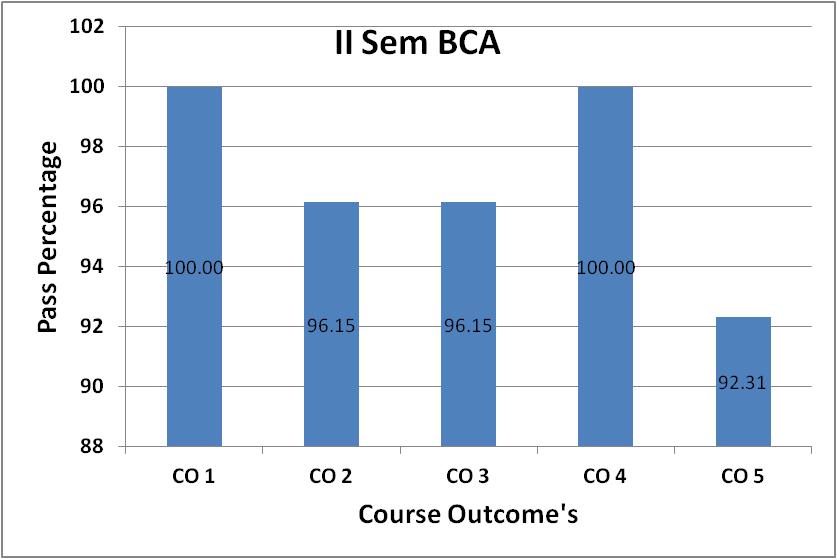 |
|
| Semester | 4 ನೇ ಸೆಮಿಸ್ಟರ್ | |
| Topic | I.ಪ್ರಾಚೀನ ಸಾಹಿತ್ಯ | |
| Course Outcome | ಈ ಭಾಗದಲ್ಲಿ ವಿದ್ಯಾರ್ಥಿಗಳು ಹಳಗನ್ನಡ ಸಾಹಿತ್ಯದಲ್ಲಿ ಚಂಪೂ ಕವಿ ಪಂಪ
ಮಹಾಕವಿಯ ಅಜಿತನಾಥ ಪುರಾಣಂ ಮಹಾಕಾವ್ಯದಿಂದ 1)‘ಎನ್ನ ಬಾಹುದಂಡಮೆ ಸಾಲ್ಗುಂ’ ಭಾಗದಲ್ಲಿ ಭರತ ಚಕ್ರವರ್ತಿಯ ಆಯುಧಾಗಾರದಲ್ಲಿ ದೊರೆತ ಚಕ್ರರತ್ನವನ್ನು ಮುಂದಿಟ್ಟುಕೊಂಡು ದಿಗ್ವಿಜಯ ಹೊರಟ್ಟಿದ್ದು. ಆತನ ಪರಾಕ್ರಮಕ್ಕೆ ಅಹಂಕಾರದಿಂದ ವರ್ತಿಸಿದ ಮಾಗದ ರಾಜ ಮಂತ್ರಿವರ್ಗದವರ ಮಾತು ಕೇಳಿ ಭರತನ ಮುಂದೆ ಬಂದು ಶರಣಗತನಾದ ಬಗೆಯನ್ನು ತಿಳಿದಿದ್ದಾರೆ. ದಾಸ ಸಾಹಿತ್ಯದಲ್ಲಿ 2)‘ಕೀರ್ತನೆಗಳು’ ಈ ಭಾಗದಲ್ಲಿ ಶ್ರೀ ವ್ಯಾಸರಾಯರ ‘ನಿನ್ನ ದ್ಯಾನವ ಮಾಡುತ್ತ’ ಕೀರ್ತನೆಯಲ್ಲಿ ಮನಸ್ಸಿನ ಬಗ್ಗೆ ತಿಳಿಸುತ್ತ ದೇವರ ಧ್ಯಾನ ಮಾಡುತ್ತಿದ್ದರು ಮನಸ್ಸು ಅನ್ಯಕ್ಕೆ ಎರಗುತ್ತಿರುವುದರ ಬಗ್ಗೆ ಅರಿತಿದ್ಧಾರೆ. ಶಿಶುನಾಳ ಷರೀಫರ ‘ದುಡ್ಡು ಕೆಟ್ಟದ್ದು ನೋಡಣ್ಣ’ ಕೀರ್ತನೆಯಲ್ಲಿ ಹಣದ ಹಿಂದೆ ಬಿದ್ದವರು ಸಮಾಜದಲ್ಲಿ ಹೇಗೆ ಪಾತಾಳ ಕಂಡಿದ್ದಾರೆ ಎಂಬುದನ್ನು ಅರಿತಿದ್ದಾರೆ. ತಿಮ್ಮಪ್ಪದಾಸರ ‘ಬೆಳಗುತ್ತಿದೆ ಬೆಳಗುತ್ತಿದೆ ಭಾನುವಿನ ಬೆಳಕು’ ಭಾಗದಲ್ಲಿ ಸೂರ್ಯ ಹೇಗೆ ಬೆಳಕು ದೇವರ ರೂಪದಲ್ಲಿ ಜಗತ್ತನ್ನು ಬೆಳಗುತ್ತಿದೆ ಎಂಬುದನ್ನು ಅರಿತಿದ್ದಾರೆ. ಷಟ್ಪದಿ ಸಾಹಿತ್ಯದಲ್ಲಿ ಲಕ್ಷ್ಮೀಶ ಕವಿಯ 3)‘ನಾರಿಯರ ಚೆಲುವೆಂತುಟೋ’ ಕಾವ್ಯ ಭಾಗದಲ್ಲಿ ತನ್ನ ಮಗನ ಸಾವಿನಿಂದ ಆಕ್ರೋಶ ಭರಿತಳಾದ ಜ್ವಾಲೆ ಗಂಗೆಯ ಮುಖಾಂತರ ಅರ್ಜುನನ ಸಾವಿಗೆ ಕಾರಣವಾಗುವಂತೆ ಶಾಪಕೊಡಿಸಿದ್ದನ್ನು ಅರಿತಿದ್ದಾರೆ. ಒಟ್ಟಾರೆ ಈ ಭಾಗದಲ್ಲಿ ಕಾವ್ಯದ ವಿವಿದ ಪ್ರಕಾರಗಳನ್ನು ಅರಿತಿದ್ದಾರೆ. |
|
| Semester | 4 ನೇ ಸೆಮಿಸ್ಟರ್ | |
| Topic | II. ಚಿಂತನಧಾರೆ ಸಾಹಿತಯ್ಯದಲ್ಲಿ | |
| Course Outcome | ಎಂ.ವೈ ರಾಮದರ್ಗರವರ 1) ‘ಪ್ರಕೃತಿಯಿಂದ ಕಲಿಯಬೇಕಾದ ಪಾಠಗಳು’ ಭಾಗದಲ್ಲಿ ನಿಸರ್ಗ ಪ್ರೇರಣಾ ಶಕ್ತಿಯ ಆಗರ ಪ್ರಕೃತಿಯಲ್ಲಿ ಸಿಗುವ ನೀರು, ಭೂಮಿ, ಗಾಳಿ, ಸಾಗರ, ಅರಣ್ಯ- ಗಿಡಮರ ಬಳ್ಳಿಗಳು, ಕೀಟಗಳು, ಪಕ್ಷಿಗಳು ಮಾನವನಿಗೆ ಪ್ರೇರಣಾ ಶಕ್ತಿಯಾಗಿರುವುದನ್ನು ಅರಿತಿದ್ದಾರೆ. ಸ್ವಾಮಿ ಪುರುಷೋತ್ತಮಾನಂದ ರವರ 2) ’ತ್ಯಾಗಭೂಮಿಯಿಂದ ಭೋಗಭೂಮಿಯೆಡಗೆ’ ಲೇಖನದಲ್ಲಿ ಸ್ವಾಮಿ ವಿವೇಕಾನಂದರು ಅಮೇರಿಕಾದ ಚಿಕಾಗೋದಲ್ಲಿ ಜರುಗಲಿರುವ ವಿಶ್ವ ಧರ್ಮ ಸಮ್ಮೇಳನದಲ್ಲಿ ಭಾಗವಹಿಸಲು ಸಿದ್ಧತೆ, ಶಿಷ್ಯರಿಂದ ಹಣ ಸಂಗ್ರಹಣೆ, ಪ್ರಯಾಣದ ಸಿದ್ಧತೆ, ಕೇತ್ರಿಯ ಮಹಾರಾಜ ಅಜಿತ್ ಸಿಂಗ್ ಹಣಕಾಸಿನ ನೆರವು ನೀಡಿ ಸಹಕರಿಸಿದ ಬಗೆ, ಈ ಎಲ್ಲಾ ಅಂಶಗಳನ್ನು ವಿದ್ಯಾರ್ಥಿಗಳು ಅರಿತಿದ್ದಾರೆ. ಕೆ. ಕೃಷ್ಣಮೂರ್ತಿಯವರ 3) 'ಭ್ರಷ್ಠ ವ್ಯವಸ್ಥಯಲ್ಲಿ ಮರೀಚಿಕೆಯಾಗುತ್ತಿರವ ನ್ಯಾಯ ' ಲೇಖನ ಈಸ್ಟ್ ಇಂಡಿಯಾ ಕಂಪನಿಯ ಮುಖಾಂತರ ಭಾರತಕ್ಕೆ ಬಂದು ಭಾರತದಲ್ಲಿ ಅದಿಕಾರವನ್ನು ಹಿಡಿದ ಭಾರತದ ಪ್ರಥಮ ಗವರ್ನರ್ ಜನರಲ್ ವಾರನ್ ಹೇಸ್ಟಿಂಗ್ಸ್ ಸ್ಥಾಪಿಸಿದ ನ್ಯಾಯಾಂಗಕ್ಕೆ ಸಂಬಂಧಿಸಿದ ಕಾನೂನಿನಿಗೆ ಸಂಬಂಧಿಸಿದ ಹಾಗೆ ಸಾದರ್ ದಿವಾನಿ ಅದಾಲತ್, ಹಾಗೂ ಸಾದರ್ ನಿಜಾಮತ್ ಅದಾಲತ್ ಅಫೀಲು ಕೋರ್ಟುಗಳ ಲೋಪದೋಷಗಳ ಕಡೆ ಈ ಲೇಖನ ಬೆಳಕು ಚೆಲ್ಲುತ್ತದೆ.. |
|
| Semester | 4 ನೇ ಸೆಮಿಸ್ಟರ್ | |
| Topic | III.ಕಂಪ್ಯೂಟರ್ ಕನ್ನಡ | |
| Course Outcome | ಈ ಭಾಗದಲ್ಲಿ ಟಿ.ಜಿ. ಶ್ರೀನಿಧಿಯವರ 1)'ವಿಜ್ಞಾನ ಸಂವಹನಕ್ಕೆ ಆಧುನಿಕ ತಂತ್ರಜ್ಞಾನದ ಸವಲತ್ತುಗಳು' ಈ ಲೇಖನ ಜಾಲತಾಣಗಳು ಹಾಗೂ ಬ್ಲಾಗುಗಳ ಬಗ್ಗೆ ತಿಳಿದಿದ್ಧಾರೆ. ಇಲ್ಲಿ ಜಾಲತಾಣಗಳಾದ ಇ-ಮೇಲ್, ಬ್ಲಾಗುಗಳು, ಬಹುಮಾಧ್ಯಮ, ಇ-ಪುಸ್ತಕಗಳು, ಆನ್ ಲೈನ್ ವಿಶ್ವಕೋಶಗಳು, ನಿಘಂಟುಗಳು ಹಾಗೂ ಇನ್ನಿತರ ವಿಷಯಗಳ ಅಂಶಗಳನ್ನು ವಿದ್ಯಾರ್ಥಿಗಳು ತಿಳಿದಿದ್ದಾರೆ. |
|
| Semester | 4 ನೇ ಸೆಮಿಸ್ಟರ್ | |
| Topic | IV. ಸಂಕೀರ್ಣ ಲೇಖನಗಳು | |
| Course Outcome | ಈ ಭಾಗದಲ್ಲಿ ಸರಜು ಕಾಟ್ಕರ್ ರವರ 1) ‘ಲಂಡನ್ ಜಾತಕ’ ಹಿಂದೊಮ್ಮೆ ಆದಿವಾಸಿಗಳ ನೆಲೆಯಾಗಿದ್ದು ಪರಕೀಯರ ದಾಳಿಗೆ ನಿರಂತರವಾಗಿ ತುತ್ತಾದ ಲಂಡನ್ ಇಂದಿನ ಆಧುನಿಕ ನಗರವಾಗಿ ರೂಪುಗೊಳ್ಳುವಲ್ಲಿ ತುಳಿದ ಪ್ರಧಾನ ಹೆಜ್ಜೆಗಳ ಸಂಕ್ಷಿಪ್ತ ನೋಟವನ್ನು ಹಾಗೂ ರಾಣಿ ಎಲಿಜಭತ್ ಹಾಗೂ ವಿಕ್ಟೋರಿಯಾ ರಾಣಿಯರು ನೀಡಿದ ಕೊಡುಗೆಯನ್ನು ಅರಿತಿದ್ದಾರೆ. ಪು.ತಿ.ನ ರವರ 2)‘ಹಸು ಪುಣ್ಯಕೋಟಿ ಮತ್ತು ಹುಲಿ ಅರ್ಭುತ’ ಲೇಖನದಲ್ಲಿ ಪುಣ್ಯಕೋಟಿ ಹಸುವಿನ ಸಾಧ್ವಿಕ ಗುಣಗಳ ಮುಂದೆ ಕ್ರೂರ ಹುಲಿ ಸೋಲುವುದು ಹಾಗೂ ಹಸು ಮತ್ತು ಹುಲಿ ಆ ಸಂದರ್ಭದಲ್ಲಿ ವರ್ತಿಸಿದ ರೀತಿಯನ್ನು ವಿದ್ಯಾರ್ಥಿಗಳು ಅರಿತಿದ್ದಾರೆ. ಡಾ. ನಾ. ಗೀತಾಚಾರ್ಯರವರ 3)‘ಶಾಸ್ತ್ರೀಯ ಕನ್ನಡ ಅಧ್ಯಯನದ ಸಾಧ್ಯತೆಗಳು’ ಲೇಖನ ಕನ್ನಡಕ್ಕೆ ಶಾಸ್ತ್ರೀಯ ಸ್ಥಾನಮನ ದೊರೆತಿರುವ ಈ ಸಂದರ್ಭದಲ್ಲಿ ಕೇಂದ್ರ ಸರ್ಕಾರ ನೀಡಿರುವ ಅನುದಾನವನ್ನು ಉಪಯೋಗಿಸಿಕೊಳ್ಳಲು ರೂಪಿಸ ಬೇಕಾದ ಕಾರ್ಯ ಕ್ರಮಗಳ ಕಡೆ ಗಮನ ಸೆಳೆಯುತ್ತದೆ. ಒಟ್ಟಾರೆ ಈ ಎಲ್ಲಾ ಅಂಶಗಳನ್ನು ಕನ್ನಡ ಸಾಹಿತ್ಯವನ್ನು ಅಧ್ಯಯನ ಮಾಡಿದ ವಿದ್ಯಾರ್ಥಿಗಳು ತಿಳಿದುಕೊಳ್ಳುತ್ತಾರೆ. |
|
| Co - Attainment | 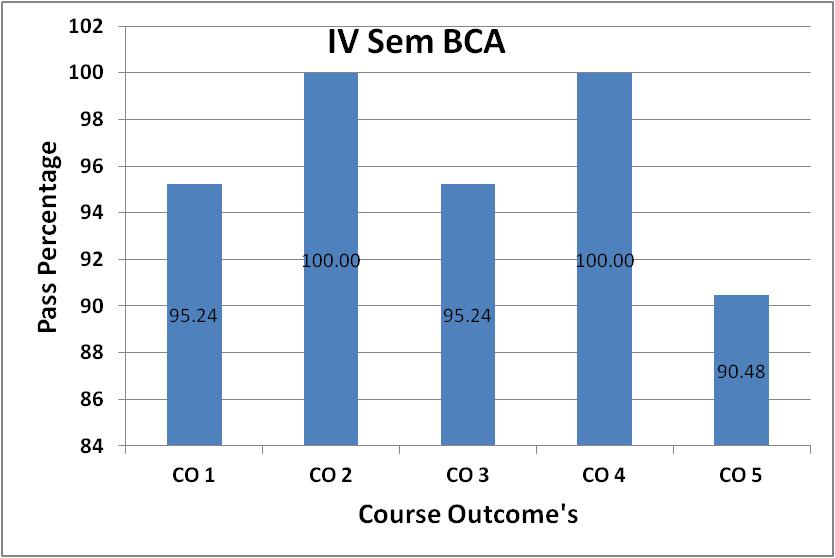 |
|
| Semester | 2 ನೇ ಸೆಮಿಸ್ಟರ್ | |
| Topic | I.ಕಾವ್ಯ ಭಾಗ | |
| Course Outcome | ಈ ಭಾಗದಲ್ಲಿ ವಿದ್ಯಾರ್ಥಿಗಳಿಗೆ ಹಳಗನ್ನಡ ಸಾಹಿತ್ಯದಲ್ಲಿ ಷಟ್ಪದಿ ಕವಿ
ಕುಮಾರವ್ಯಾಸ ಕವಿಯ 1)'ನಿಟ್ಟೋಟದಲಿ ಹಾಯ್ದನು ಬಿಟ್ಟ ಮಂಡೆಯಲಿ' ಈ ಕಾವ್ಯ ಭಾಗದಲ್ಲಿ ವಿರಾಟರಾಯನ ಮಗ ಉತ್ತರನ ಬಡಾಯಿ ಹಾಗೂ ಕೌರವ ಸೇನೆಯನ್ನು ನೋಡಿ ಭಯ ಭೀತನಾದ ಈತ ಚಲಿಸುತ್ತಿರವ ರಥದಿಂದ ಇಳಿದು ಓಡಿ ಕೌರವ ಸೇನೆ ನಗೆಗಡಲಿನಲಿ ತೇಲುವಂತೆ ಮಾಡುತ್ತದೆ. ಈ ಮೂಲಕ ಮಾತನಾಡುವ ಮುನ್ನ ಹಲವು ಭಾರಿ ಯೋಚಿಸ ಬೇಕು ಹಾಗೂ ಬಡಾಯಿ ಕೊಚ್ಚಿಕೊಳ್ಳ ಬಾರದು ಎಂಬುದನ್ನು ಅರಿತಿದ್ದಾರೆ. ಎಲ್. ಹನುಮಂತಯ್ಯ ನವರ 2) ‘ಕವಚ’ ಕವಿತೆಯ ಈ ಭಾಗದಲ್ಲಿ ಭಾರತೀಯ ಸಂದರ್ಭದಲ್ಲಿ ಜಾತಿ, ಮತ, ಧರ್ಮ ಮತ್ತು ವರ್ಣ-ವರ್ಗಗಳು, ಹುಟ್ಟಿನೊಂದಿಗೆ ಅಂಟಿಕೊಂಡು ವ್ಯಕ್ತಿಗೆ ಬಿಡಿಸಲಾಗದ ಕವಚದ ಬಂಧನವನ್ನು ಉಂಟುಮಾಡುತ್ತದೆ. ಈ ಪರಂಪರಾಗತ ವ್ಯವಸ್ಥೆಯಿಂದ ಹೊಬರಲು ಏನೆಲ್ಲಾ ಪ್ರಯತ್ನಗಳನ್ನು ಮಾಡಿದರೂ ಈ ಜಾತಿಯ ಕವಚದಿಂದ ಬರಲು ಸಾಧ್ಯವಾಗಲಿಲ್ಲ ಎಂಬುದನ್ನು ಈ ಕವಿತೆಯ ಮುಖಾಂತರ ಅರಿತಿದ್ದಾರೆ. ಬಿ.ಟಿ. ಲಲಿತಾ ನಾಯಕ್ ರವರ 3)‘ಮುಂಜಾವು’ ಕವಿತೆಯಲ್ಲಿ ಸಾಮಾಜಿಕ ಅಸಮಾನತೆಯು ಈ ದೇಶದ ಬಹುದೊಡ್ಡ ಸಮಸ್ಯೆ. ಜಾತಿ, ವರ್ಗ, ಲಿಂಗ ತಾರತಮ್ಯಗಳು ಈ ದೇಶದ ಬಹುಪಾಲು ಅನರ್ಥಗಳಿಗೆ ಕಾರಣವಾದವು ಎಂಬುದನ್ನು ಈ ಕವಿತೆಯ ಮುಖಾಂತರ ತಿಳಿದಿದ್ದಾರೆ. ಜಾನಪದ ಮಂಟೇಸ್ವಾಮಿ ಮಹಾಕಾವ್ಯದ ಭಾಗ 4)ಮಂಟೇಸ್ವಾಮಿ ಕಾವ್ಯ (ಸಿದ್ದಪ್ಪಾಜಿಯ ಸಾಲು..) ಜಾನಪದದ ಈ ಭಾಗದಲ್ಲಿ ಮಂಟೇಸ್ವಾಮಿಯು ಪಾಂಚಾಳ ವರ್ಗದ ಸಿದ್ದಪ್ಪಾಜಿಯನ್ನು ತನ್ನ ಶಿಷ್ಯನನ್ನಾಗಿ ಸ್ವೀಕರಿಸಿ ಆ ಪಾಂಚಾಳ ವರ್ಗದವರು ನೆಲೆಸಿರುವ ಹಲಗೂರು ಹಾಗೂ ಚಿಲಪುರಗಳನ್ನು ನಿರ್ಣಾಮ ಮಾಡಿ ಪಾಂಚಾಲ ವರ್ಗದವರಿಗೆ ಸಿದ್ದಪ್ಪಾಜಿ ಬುದ್ದಿ ಕಲಿಸಿದ ಬಗೆಯನ್ನು ಅರಿತಿದ್ದಾರೆ. ಒಟ್ಟಾರೆ ಈ ಭಾಗದಲ್ಲಿ ಕಾವ್ಯದ ವಿವಿದ ಪ್ರಕಾರಗಳನ್ನು ಅರಿತಿದ್ದಾರೆ. |
|
| Semester | 2 ನೇ ಸೆಮಿಸ್ಟರ್ | |
| Topic | II.ನಾಟಕ ಸಾಹಿತ್ಯದಲ್ಲಿ | |
| Course Outcome | ಶ್ರೀರಂಗ ರವರ 1)‘ಶೋಕಚಕ್ರ’ ನಾಟಕ ಸ್ವಾತಂತ್ರ ಭಾರತದ ರಾಜಕೀಯ ಅವನತಿಯ ಚಿತ್ರ ಶೋಕಚಕ್ರದಲ್ಲಿದೆ. ಅಪ್ಪಟ ಗಾಂಧೀವಾದಿಯಾದ ಜಯರಾಯನನ್ನು ಚಾಣಾಕ್ಷ ಹನುಮಂತಪ್ಪ ರಾಜಕೀಯಕ್ಕೆ ತಂದು ಆತನ ಆದರ್ಶಗಳಿಗೆ ತಡೆಯೊಡ್ಡಿ ಅಧ್ಯಕ್ಷೀಯ ಚುನಾವಣೆಯಲ್ಲಿ ಆತನಿಗೆ ಸೋಲಾಗುವಂತೆ ಮಾಡುವುದು ಇಲ್ಲಿನ ವ್ಯಂಗ್ಯ. ಜಯರಾಯ ಚುನಾವಣೆಯಲ್ಲಿ ಸೋತ ದಿನವೆ ಗಾಂಧೀಜಿಯವರ ಕೊಲೆಯಾಗುವುದು ಈ ನಾಟಕಕ್ಕೆ ಒಂದು ಅರ್ಥಪೂರ್ಣತೆಯೊದಗುತ್ತದೆ. ಈ ಎಲ್ಲಾ ಅಂಶಗಳನ್ನು ವಿದ್ಯಾರ್ಥಿಗಳು ಅರಿತಿದ್ದಾರೆ. |
|
| Semester | 2 ನೇ ಸೆಮಿಸ್ಟರ್ | |
| Topic | III.ಪ್ರಬಂಧ ಸಾಹಿತ್ಯದಲ್ಲಿ | |
| Course Outcome | ಡಾ.ಟಿ.ಎಸ್. ವಿವೇಕಾನಂದರವರ 1)'ತೇರು ಸಾಗಿದ ದಾರಿ' ಈ ಪ್ರಬಂಧದಲ್ಲಿ ಜಾಗತಿಕ ಪರಿಸರ ಪ್ರಜ್ಞೆ ಪ್ರಪಂಚದಲ್ಲಿ ಮೂಡಿಬಂದ ಬಗೆ ಹಾಗೂ ಈ ಚಳುವಳಿ ಪರಿಸರಾಂದೋಲನದ ರೂಪು ಪಡೆದುಕೊಂಡ ಬಗೆಯನ್ನು ಈ ಲೇಖನದ ಮೂಲಕ ವಿದ್ಯಾರ್ಥಿಗಳು ಅರಿತಿದ್ದಾರೆ. 2) ನಾನೆಂಬ ಅಪರಿಚಿತ ಈ ಪ್ರಬಂಧದಲ್ಲಿ ಯಾರಿಗೂ ಕಾಣದ ಒಳಮನಸ್ಸಿನ ಆಲೋಚನೆಗಳು ಅನಾವರಣ, ತಿನ್ನುವ ವಿಚಾರದಲ್ಲಿ ಮಾತ್ರವಲ್ಲದೆ ರೂಪ, ಗುಣ, ಸ್ವಭಾವದ ಬಗ್ಗೆಯೂ ಇಂತಹ ಆಲೋಚನೆಗಳು, ದ್ವಂದ್ವಗಳು ಇರುತ್ತವೆ. ನಮ್ಮ ಬಗ್ಗೆ ನಮಗೆ ಸರಿಯಾಗಿ ಅರಿವಿರುವುದಿಲ್ಲ. ಸಮಯ ಬಂದಾಗ ಮಾತ್ರ ಅದರ ಅರಿವಾಗುತ್ತದೆ. ಸತ್ಯವನ್ನು ಒಪ್ಪಿಕೊಳ್ಳದೆ ನಮಗೆ ನಾವೇ ಅಪರಿಚಿತರಾಗಿತ್ತೇವೆ. ಎಂಬುದನ್ನು ವಿದ್ಯಾರ್ಥಿಗಳು ಅರಿತಿದ್ದಾರೆ. ಗೊರೂರು ರಾಮಸ್ವಾಮಿ ಅಯ್ಯಂಗಾರ್ ರವರ 3)‘ನಮ್ಮ ಜೋಡಿದಾರರ ಕೆಲವು ಚಿತ್ರಗಳು’ ಈ ಪ್ರಬಂಧದಲ್ಲಿ ಗ್ರಾಮೀಣ ಪ್ರದೇಶದಲ್ಲಿ ಬೆಳೆಯುವ ವಿದ್ಯಾರ್ಥಿಗಳ ತುಂಟಾಟ, ಹುಡುಗಾಟವನ್ನು ತಿಳಿಸುತ್ತ ಲೇಖಕರಿಗೆ ಈಜು ಕಲಿಯಲು ಆಸಕ್ತಿ, ತಂದೆ ಅದನ್ನು ವಿರೋಧಿಸುವುದು. ಭಾಷ್ಯಾಕಾರರ ತಿರು ನಕ್ಷತ್ರದ ದಿನ ಭಾಷ್ಯಾಕಾರರಾಗಿ ಲೇಖಕರ ಆಯ್ಕೆ, ಅಲ್ಲಿಂದ ಈಜು ಕಲಿಯಲು ಕದ್ದು ತೆರಳಿ ಅಲ್ಲಿ ಆ ಊರಿನ ಹಿರಿಯರು ಇವರ ವಸ್ತ್ರಾಪಹರಣ ಮಾಡಿದ್ದು ರಾತ್ರೋ ರಾತ್ರಿ ಕದ್ದು ಮನೆಗೆ ಬಂದದ್ದು, ಮನೆಯವರಿಂದ ಅವಮಾನ ಈ ಎಲ್ಲಾ ಅಂಶವನ್ನು ವಿದ್ಯಾರ್ಥಿಗಳು ತಿಳಿದಿರುತ್ತಾರೆ. |
|
| Semester | 2 ನೇ ಸೆಮಿಸ್ಟರ್ | |
| Topic | IV.ಲೇಖನ ವೈವಿಧ್ಯದಲ್ಲಿ | |
| Course Outcome | ಶ್ರೀ ವ್ಯಾಸರಾಯ ಬಲ್ಲಾಳರ 1)‘ಹೊಸ ಸಹಸ್ತ್ರಮಾನದಲ್ಲಿ ಸೃಜನಶೀಲ
ಸಾಹಿತ್ಯ’ ಲೇಖನದಲ್ಲಿ ಸೃಜನಶೀಲ ಸಾಹಿತ್ಯ ಹೇಗಿರ ಬೇಕು, ಸೃಜನ ಶೀಲ ಸಾಹಿತ್ಯಕ್ಕೆ ಪಾಶ್ಚಾತ್ಯ ವೈಚಾರಿಕತೆಯ ಮಾನದಂಡಗಳು, ವೈಜ್ಞಾನಿಕ ಚಿಂತನೆ ಹಾಗೂ ತಾಂತ್ರಿಕ ಜ್ಞಾನ ಸೃಜನಶೀಲ ಸಾಹಿತ್ಯದ ಮೇಲೆ ಬೀರುವ ಪ್ರಭಾವ. ಈ ಎಲ್ಲಾ ಅಂಶಗಳನ್ನು ವಿದ್ಯಾರ್ಥಿಗಳು ಅರಿತಿದ್ದಾರೆ. ಡಾ. ಟಿ. ಆರ್. ಚಂದ್ರಶೇಖರ್ ರವರ 2)‘ಬಹುರಾಷ್ಟ್ರೀಯ ಕಂಪನಿಗಳು ಮತ್ತು ಸಾಮಾಜಿಕ ನ್ಯಾಯ’ ಈ ಲೇಖನದಲ್ಲಿ ಬಹುರಾಷ್ಟ್ರೀಯ ಕಂಪನಿಗಳ ಕುರಿತಾದ ಜಾನ್ ರಾಲ್ಸ್ ಪ್ರತಿಪಾದಿಸಿರುವ ಸಾಮಾಜಿಕ ನ್ಯಾಯ ಸಿದ್ದಾಂತದ ಸೂತ್ರ. ಅಂಬಲಿ ಮೀಮಾಂಸೆ, ಎಂದರೇನು? ಬಹುರಾಷ್ಟೀಯ ಕಂಪನಿಗಳ ಅವಲಂಬನೆಗೂ ಅಬಿವೃದ್ಧಿಗೂ ಇರುವ ಸಂಬಂಧ, ರೋಬಟ್ ಕ್ರಾಂತಿ, ಬಹುರಾಷ್ಟ್ರೀಯ ಕಂಪನಿಗಳ ಸಾಮಾಜಿಕ ನ್ಯಾಯ ಹಾಗೂ ಬಹುರಾಷ್ಟ್ರೀಯ ಕಂಪನಿ ಹಾಗೂ ವಿದೇಶಿ ಬಂಡವಾಳ ಸ್ಥಳೀಯ ಮಾರುಕಟ್ಟೆಯ ಮೇಲೆ ಬೀರುವ ಪ್ರಭಾವವನ್ನು ವಿದ್ಯಾರ್ಥಿಗಳು ಅರಿತಿದ್ದಾರೆ. ಪ್ರೊ. ಕೆ. ಭೈರಪ್ಪರವರ 3)‘ಪರಿಸರ' ಈ ಲೇಖನ ಪರಿಸರ ಎಂದರೇನು? ಪರಿಸರದ ಪ್ರಕಾರಗಳೆಷ್ಟು, ಭೌತಿಕ ಪರಿಸರವೆಂದರೇನು, ಜೈವಿಕ ಪರಿಸರ ಎಂದರೇನು, ಸಾಮಾಜಿಕ ಪರಿಸರ ಎಂದರೇನು, ಮಕ್ಕಳ ವ್ಯಕ್ತಿತ್ವದ ಮೇಲೆ ಸಾಮಾಜಿಕ ಪರಿಸರ ಬೀರುವ ಪ್ರಭಾವ, ಮಕ್ಕಳ ವ್ಯಕ್ತಿತ್ವ ರೂಪಿಸುವಲ್ಲಿ ಪರಿಸರದ ಕೊಡುಗೆ ಈ ಎಲ್ಲಾ ವಿಚಾರಗಳನ್ನು ತಿಳಿದಿದ್ದಾರೆ. ಒಟ್ಟಾರೆ ಈ ಎಲ್ಲಾ ಅಂಶಗಳನ್ನು ವಿದ್ಯಾರ್ಥಿಗಳು ತಿಳಿದುಕೊಳ್ಳುತ್ತಾರೆ. |
|
| Co - Attainment | 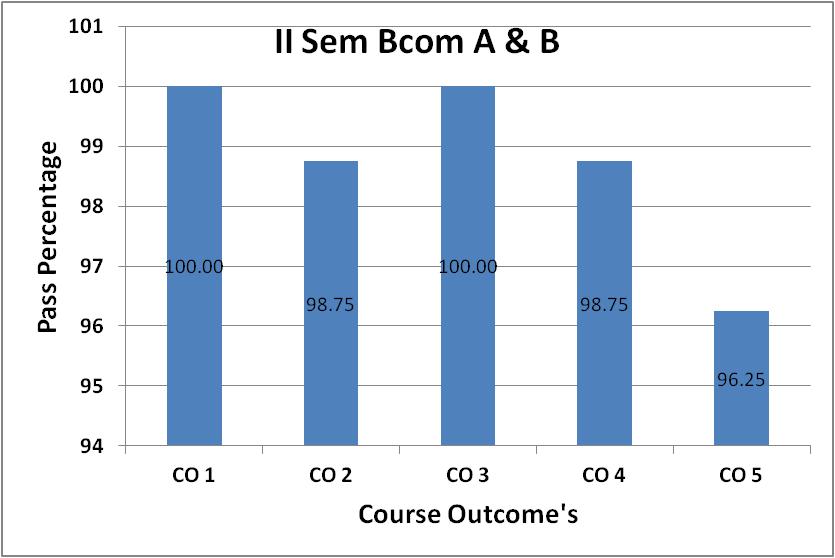 |
|
| Semester | 4 ನೇ ಸೆಮಿಸ್ಟರ್ | |
| Topic | I. ಕಾವ್ಯಭಾಗ | |
| Course Outcome | ಈ ಕಾವ್ಯಭಾಗದಲ್ಲಿ ವಿದ್ಯಾರ್ಥಿಗಳು ರನ್ನ ಕವಿಯ ಸಾಹಸಭೀಮ ವಿಜಯದಿಂದ
ಆಯ್ದ ಭಾಗ 1) ‘ಊರುಗಳನುಡಿವೆನ್’ ಭಾಗದಲ್ಲಿ ದ್ರೌಪದಿ ಭೀಮನನ್ನು ಉದ್ಧೀಪನಗೊಳಿಸಿದ ಬಗೆ ಹಾಗೂ ದ್ರೌಪದಿಯ ಮಾತುಗಳಿಂದ ಉದ್ಧೀಪನಗೊಂಡ ಭೀಮ ಮಾಡಿದ ಪ್ರತಿಜ್ಞೆಯನ್ನು ತಿಳಿಸಿಕೊಡಲಾಗಿದೆ. ಹರಿಹರ ಕವಿಯ ತನ್ನ ಸೋಮೇಶ್ವರಶತಕದ 2)‘ಪುಷ್ಪರಗಳೆ’ ಪ್ರಸ್ತುತ ಈ ಭಾಗದಲ್ಲಿ ಶಿವ ಭಕ್ತನಾದ ಹರಿಹರ ವಿವಿಧ ಬಗೆಯ ಪತ್ರೆಗಳು, ಹೂವುಗಳನ್ನು ಸಂಗ್ರಹಿಸಿದ ಬಗೆ ಹಾಗೂ ಅವುಗಳಿಂದ ಶಿವನನ್ನು ಅಲಂಕರಿಸಿ ಪೂಜಿಸಿದ ಬಗೆಯನ್ನು ವಿದ್ಯಾರ್ಥಿಗಳು ಅರಿತಿದ್ದಾರೆ. ಪುರಂದರದಾಸರ 3)‘ಕೀರ್ತನೆಗಳು’ ಭಾಗದಲ್ಲಿ ದಾಸರ ಕೀರ್ತನೆ ‘ಹೆಚ್ಚದೆ ಹಿಗ್ಗದೆ ಇದ್ದರೆ ಲೋಕಕ್ಕೆ ಮೆಚ್ಚು’ ಈ ಭಾಗದಲ್ಲಿ ಐಶ್ವರ್ಯ, ರಾಜ್ಯ, ರಾಜ್ಯ ಪದವಿ ಶಾಶ್ವತವಲ್ಲ ಸಜ್ಜನರ ಜೊತೆ ಸೌಜನ್ಯಯುತವಾಗಿ ನಡೆಯಬೇಕು. ಲೋಕಕ್ಕೆ ಅಂಜಿ ನಡೆಯ ಭೇಕು, ಚಾಡಿ ಮಾತುಗಳಿಗೆ ತಲೆ ಕೆಡಿಸಿಕೊಳ್ಳ ಬಾರದು, ಪರ ಸತಿಯರಿಗೆ ಆಸೆ ಮಾಡಬಾರದು ಎಂಬುದನ್ನು ವಿದ್ಯಾರ್ಥಿಗಳು ಅರಿತಿದ್ದಾರೆ. ಒಟ್ಟಾರೆ ಈ ಭಾಗದಲ್ಲಿ ಕಾವ್ಯದ ವಿವಿಧ ಪ್ರಕಾರಗಳನ್ನು ಅರಿತಿದ್ದಾರೆ. |
|
| Semester | 4 ನೇ ಸೆಮಿಸ್ಟರ್ | |
| Topic | II. ವಾಣಿಜ್ಯ ಕನ್ನಡ | |
| Course Outcome | 1)‘ಸಂಕ್ಷೇಪ ಲೇಖನ’ ಈ ಭಾಗದಲ್ಲಿ ಅದರಲ್ಲೂ ಮುಖ್ಯವಾಗಿ ವರದಿ, ಪತ್ರವ್ಯವಹಾರ, ದಾಖಲು ಪತ್ರ, ಗ್ರಂಥಗಳು ಇವನ್ನೆಲ್ಲ ಮೂಲದ ಅರ್ಥಕ್ಕೆ ಚ್ಯುತಿ ಬಾರದಂತೆ ಸಂಕ್ಷಿಪ್ತಗೊಳಿಸುವುದು. ಸಂಕ್ಷಿಪ್ತಗೊಳಿಸುವ ಸಂದರ್ಭದಲ್ಲಿ ಅನುಸರಿಸ ಬೇಕಾದ ಕ್ರಮಗಳನ್ನು ವಿದ್ಯಾರ್ಥಿಗಳು ತಿಳಿದಿದ್ದಾರೆ. ಎಚ್ಚೆಸ್ಕೆ ಯವರ 2)’ಕಂಪನಿಯ ಕಾರ್ಯದರ್ಶಿ’ ಈ ಭಾಗದಲ್ಲಿ ಕಂಪನಿ ಕಾರ್ಯದರ್ಶಿಯ ಜವಬ್ದಾರಿಗಳು, ಅವರು ನಡೆಸುವ ವಿವಿಧ ರೀತಿಯ ಪತ್ರ ವ್ಯವಹಾರಗಳು ಅದರಲ್ಲಿ ನಿರ್ದೇಶಕರೊಡನೆ, ಷೇರುದಾರರೊಡನೆ, ಸಾರ್ವಜನಿಕರೊಡನೆ, ಸಿಬ್ಬಂದಿಯೊಡನೆ ಹಾಗೂ ಇತರ ಸಿಬ್ಬಂದಿಯೊಂದಿಗೆ ಅವರು ನಡೆಸುವ ಪತ್ರ ವ್ಯವಹಾರ ಹಾಗೂ ಮಾದರಿ ಪತ್ರಗಳನ್ನು ಅರಿತಿದ್ದಾರೆ. ಡಾ. ವೀರೇಶ ಬಡಿಗೇರಿ ಯವರ 3)’ಕನ್ನಡದಲ್ಲಿ ಕಂಪ್ಯೂಟರ್ ಬಳಕೆ’ ಈ ಲೇಖನ ವಿವಿಧ ಕ್ಷೇತ್ರಗಳಲ್ಲಿ ಕಂಪ್ಯೂಟರ್ ಬಳಕೆಯಾಗುತ್ತಿರುವ ರೀತಿ. ತಂತ್ರಾಂಶವನ್ನು ಬಳಸಿ ವಾಕ್ ಸಂಶ್ಲೇಷಣೆಗೊಳಿಸುವ ಬಗೆ, ಓ.ಸಿ.ಆರ್ ಸೌಲಭ್ಯ, ಕನ್ನಡ ಮತ್ತು ಮಾಹಿತಿ ತಂತ್ರಜ್ಞಾನ, ಎಲಕ್ಟ್ರಾನಿಕ್ ಬುಕ್, ಇ-ವ್ಯವಹಾರ, ವಿ- ಅಂಚೆ, ಕನ್ನುಡಿ ವೆಬ್ ಸೈಟ್ (ಅಂತರ್ಜಾಲ) ಹಾಗೂ ಕನ್ನಡ ಮತ್ತು ಬಹು ಮಾಧ್ಯಮ ಈ ಎಲ್ಲಾ ಅಂಶಗಳನ್ನು ವಿದ್ಯಾರ್ಥಿಗಳು ಈ ಭಾಗದಲ್ಲಿ ಅರಿತಿದ್ದಾರೆ. |
|
| Semester | 4 ನೇ ಸೆಮಿಸ್ಟರ್ | |
| Topic | III.ಚಿಂತನಧಾರೆ ಲೇಖನಗಳು | |
| Course Outcome | ಈ ಭಾಗದಲ್ಲಿ ಡಾ. ಬರಗೂರು ರಾಮಚಂದ್ರಪ್ಪರವರ 1)‘ಕನ್ನಡಾಭಿಮಾನದ ತಾತ್ವಿಕತೆ’ ಈ ಲೇಖನದಲ್ಲಿ ಕನ್ನಡ ಉಳಿದಿರುವುದು ಗ್ರಾಮೀಣ ಪ್ರದೇಶದಲ್ಲಿ ಅದರಲ್ಲೂ ಬಡವರಲ್ಲಿ. ಎಂಬ ಈ ವಿಚಾರವನ್ನು ತಿಳಿಸುತ್ತ ಯಾವ್ಯಾವುದರಲ್ಲಿ ಕನ್ನಡತನವಿರಬೇಕು. ಕನ್ನಡ ಸಮಕಾಲೀನವಾಗುವ ಬಗೆ, ಭಾರತ ಹೇಗೆ ಬಹು ಸಂಸ್ಕೃತಿಗಳ ದೇಶವಾಗಿದೆ ಎಂಬುದು. ಕನ್ನಡ ಕೇವಲ ಕಂಠದ ಕೂಗಾಗುವುದು ಬೇಡ ಕರುಳಿನ ಕನ್ನಡ ಇಂದು ಬೇಕಾಗಿದೆ. ಈ ಎಲ್ಲಾ ಅಂಶಗಳನ್ನು ವಿದ್ಯಾರ್ಥಿಗಳು ಅರಿತಿದ್ದಾರೆ. ನೇಮಿಚಂದ್ರರವರ 2)’ಎಲ್ಲಾ ಮಗಳ ಮದುವೆಗಾಗಿ’ ಲೇಖನದಲ್ಲಿ ತಂದೆ- ತಾಯಂದರಿಗೆ ಹೆಣ್ಣು ಮಕ್ಕಳು ಹೊರೆಯಾಗುತ್ತಿರುವ ಬಗೆ, ಗಂಡಿನ ಲೋಭ, ದುರಾಸೆ, ಸ್ವಾರ್ಥ ಹೆಚ್ಚಾಗುತ್ತಿದೆ. ಈ ಲೇಖನದಲ್ಲಿ ಬರುವ ಮೀರ್ ಚಂದಾನಿಯ ಮೊದಲ ಮಗಳು 23 ವರ್ಷದ ಉಷಾಳ ಮದುವೆಗೆ ಅಪ್ಪ ಕೊಡಲೊಪ್ಪಿದ 25000 ಸಾವಿರ ರೂಪಾಯಿ ವರದಕ್ಷಿಣೆ ಕೊಡಲು ಸಾಧ್ಯವಾಗದೆ ಮದುವೆ ನಿಂತಿದ್ದಕ್ಕೆ ಮನನೊಂದು ಮಗಳು ಉಷಾ ಆತ್ಮಹತ್ಯೆ ಮಾಡಿಕೊಳ್ಳತ್ತಾಳೆ. ಇದರಿಂದ ಮನನೊಂದ ಮೀರ್ ಚಂದಾನಿ ತನ್ನ ಎರಡನೇ ಮಗಳ ಮದುವೆಗೆ ತನ್ನ ಕಿಡ್ನಿಯನ್ನು ಮಾರಿ ತನ್ನ ಮಗಳ ಮದುವೆ ಮಾಡಲು ಸಿದ್ಧರಾಗಿದ್ದಾರೆ. ಇದನ್ನು ತನ್ನ ಮಗನು ಅನುಸರಿಸಲು ಸಿದ್ಧವಿರುವ ಬಗೆ ವರಧಕ್ಷಿಣೆ ಎನ್ನುವ ಅನಿಷ್ಟ ಪದ್ಧತಿಯ ಅನಾವರಣಗೊಳಿಸುತ್ತದೆ. ಹಾಗೂ ಎರಡನೇ ಘಟನೆ ದಿಲ್ಲಿಯಲ್ಲಿ ಆರು ವರ್ಷದ ಬಾಲೆ ರೇಖಾ ಬಡಗಿ ರಾಧೇಶ್ಯಾಮ್ರ ಮಗಳು. ಸಣ್ಣ ಗಾಯವಾದ ಕಾಲು ಗ್ಯಾಂಗ್ರೀನ್ ಆಗಿ ವೈದ್ಯರು ಆಕೆಯ ಕಾಲು ತೆಗೆಯುತ್ತಾರೆ. ಅವರ ಮುಂದೆ ಇವರನ್ನು ಮದುವೆಯಾಗುವವರು ಯಾರು ಎಂದು ರಾತ್ರಿ ಬಟ್ಟೆಯಲ್ಲಿ ಸುತ್ತಿ ಜಮುನಾ ನದಿಯಲ್ಲಿ ಎಸೆದು ಬರುತ್ತಾರೆ. ಈ 21ನೇ ಶತಮಾನದಲ್ಲೂ ವರದಕ್ಷಿಣೆ ಸಮಸ್ಯೆ ಜೀವಂತವಿರುವುದನ್ನು ವಿದ್ಯಾರ್ಥಿಗಳು ಅರಿತಿದ್ದಾರೆ. ಎಂ.ಡಿ. ಧನ್ನೂರ್ ರವರ 3)’ಮೂಢನಂಬಿಕೆಗಳು’ ಈ ವಿಜ್ಞಾನ-ತಂತ್ರಜ್ಞಾನ ಯುಗದಲ್ಲಿಯೂ ಮೂಢನಂಬಿಕೆಗಳು ಜೀವಂತವಾಗಿರುವುದರ ಕಡೆ ಬೆಳಕು ಚೆಲ್ಲುತ್ತದೆ. ಶಕುನ-ಪಂಚಾಂಗ, ಗ್ರಹಣಗಳು, ದೇವರನ್ನು ಕುರಿತ ಮೂಡನಂಭಿಕೆಗಳು, ದೇವರು-ಧರ್ಮದ ಹೆಸರಿನಲ್ಲಿ ನಡೆಯುತ್ತಿರವ ಶೋಷಣೆಗಳು ಹಾಗೂ ಇವುಗಳ ವಿರುದ್ಧ ನಡೆಯುತ್ತಿರುವ ಜಾಗೃತಿ ಮತ್ತು ಮೂಢನಂಬಿಕೆಗಳ ಕಪಿಮುಷ್ಠಿಯಿಂದ ಬಿಡುಗಡೆಗೊಳ್ಳಲು ಕೈಗೊಳ್ಳಬೇಕಾದ ಕ್ರಮಗಳು ಈ ಎಲ್ಲಾ ಅಂಶಗಳನ್ನು ವಿದ್ಯಾರ್ಥಿಗಳು ಅರಿತಿದ್ದಾರೆ. |
|
| Semester | 4 ನೇ ಸೆಮಿಸ್ಟರ್ | |
| Topic | IV. ಸಂಕೀರ್ಣ ಲೇಖನಗಳು | |
| Course Outcome | ಈ ಭಾಗದಲ್ಲಿ ಡಾ. ಶಿವಮೂರ್ತಿ ಶಿವಾಚಾರ್ಯ
ಶ್ರೀಗಳರವರ 1)‘ವಿಶ್ವಶಾಂತಿ ಯಾತ್ರೆ’ ಈ ಲೇಖನದಲ್ಲಿ ಡಾ. ಶಿವಮೂರ್ತಿ ಶಿವಾಚಾರ್ಯ ಶ್ರೀಗಳವರು ಲಿಂಗೈಕ್ಯ ಗುರುಗಳಾದ ಸಿರಿಗೆರೆ ಶ್ರೀ ಶಿವಕುಮಾರ ಶಿವಾಚಾರ್ಯ ಮಹಾಸ್ವಾಮಿಗಳು 1935ರ ಜುಲೈನಲ್ಲಿ 750 ಜನ ಶಿಷ್ಯ ಸಮುದಾಯದೊಂದಿಗೆ ಮೂರು ತಿಂಗಳ ಕಾಲ ಉತ್ತರ ಭಾರತ, ಕಾಶಿ ಮತ್ತು ನೇಪಾಳಕ್ಕೆ ರೈಲು ಪ್ರವಾಸವನ್ನು ಏರ್ಪಡಿಸಿದ್ದದ್ದು. ಹಳ್ಳಿಯ ಬಡವರು, ಹಾಗೂ ಅವಿದ್ಯಾವಂತರು ಅದರಲ್ಲಿದ್ದರು. ವಿಮಾನ ನಿಲ್ದಾಣ, ವಿಮಾನ ಪ್ರಯಾಣ ಹಾಗೂ ವಸತಿ ಗೃಹಗಳಲ್ಲಿನ ಹಾಗೂ ಕಾಶಿಯ ಅವರ ಅನುಭವಗಳನ್ನು ವಿದ್ಯಾರ್ಥಿಗಳು ಅರಿತಿದ್ದಾರೆ. ಗೊರೂರು ರಾಮಸ್ವಾಮಿ ಅಯ್ಯಂಗಾರ್ ರವರ 2)‘ಹಬ್ಬ ಮತ್ತು ರಥೋತ್ಸವ’ ಈ ಭಾಗದಲ್ಲಿ ಲೇಖಕರ ಬಾಲ್ಯದ ದಿನಗಳಲ್ಲಿ ಊರಿನವರೆಲ್ಲರು ಒಟ್ಟಾಗಿ ಯುಗಾದಿ ಹಬ್ಬದ ಆಚರಣೆ ಆ ಸಂದರ್ಭದಲ್ಲಿ ಎಲ್ಲರು ಒಟ್ಟಾಗಿ ಆಡುತ್ತಿದ್ದ ಚೆಂಡಾಟ ತೂಗುವ ಏಣಿಗಳ ಆಟ, ಜೋಯಿಷರಿಂದ ಪಂಚಾಂಗ ನೋಡುವುದು. ಹಿಂದು ಹಬ್ಬಗಳಲ್ಲಿ ಮುಸಲ್ಮಾನರು ಹಾಗೂ ಮುಸಲ್ಮಾನರ ಹಬ್ಬಗಳಲ್ಲಿ ಹಿಂದುಗಳು ಭಾಗವಹಿಸುವಿಕೆ. ಹುಲಿ ವೇಷದಾರಿಗಳ ಪರಾಕ್ರಮವನ್ನು ಕೋಮು ಸೌಹಾರ್ದದ ಮಹತ್ವವನ್ನು ವಿದ್ಯಾರ್ಥಿಗಳು ಅರಿತಿದ್ದಾರೆ. ಡಾ. ಜಿ.ಶಂ.ಪರಮಶಿವಯ್ಯರವರ 3)‘ಬೆಳ್ಳಿಚುಕ್ಕಿ’ ಈ ಲೇಖನವು ರಾಷ್ಟ್ರೀಯ ಸಂಸ್ಕೃತಿಯ ತಾಯಿ ಬೇರಾಗಿರುವ ಜನಪದ ಸಾಹಿತ್ಯವು ನಾಡಿನ ಜನತೆಯ ಸಮಗ್ರ ಜೀವನವನ್ನು ಪ್ರತಿಬಿಂಬಿಸುವ ಕೈಗನ್ನಡಿಯಾಗಿದೆ. ಸಾಹಿತ್ಯದ ಜಾನಪದ ಗೀತೆಗಳನ್ನು ಬೀಸುವಾಗ, ಶ್ರಮದಾಯಕ ಕೆಲಸಗಳನ್ನು ನಿರ್ವಹಿಸುವಾಗ ಹಾಡುವುದು. ನ್ಯಾಯಕ್ಕಾಗಿ ಹೋರಾಡಿದ ಪಾಂಡವರ ಕತೆ, ಕೌಟುಂಬಿಕ ವಿರಸದ ಸಂದರ್ಭಗಳಲ್ಲಿ, ಗರತಿಯ ಹಾಡು ಹಾಗೂ ಬೆಳ್ಳಿಚುಕ್ಕಿಯ ಸಂಬಂಧವನ್ನು ಹಾಗೂ ಜಾನಪದ ಸಾಹಿತ್ಯದ ಮಹತ್ವವನ್ನು ಅರಿತಿದ್ದಾರೆ. ಒಟ್ಟಾರೆ ಈ ಮೇಲಿನ ಎಲ್ಲಾ ಅಂಶಗಳನ್ನು ಕನ್ನಡ ಸಾಹಿತ್ಯವನ್ನು ಅಧ್ಯಯನ ಮಾಡಿದ ವಿದ್ಯಾರ್ಥಿಗಳು ತಿಳಿದುಕೊಂಡಿದ್ದಾರೆ. |
|
| Co - Attainment | 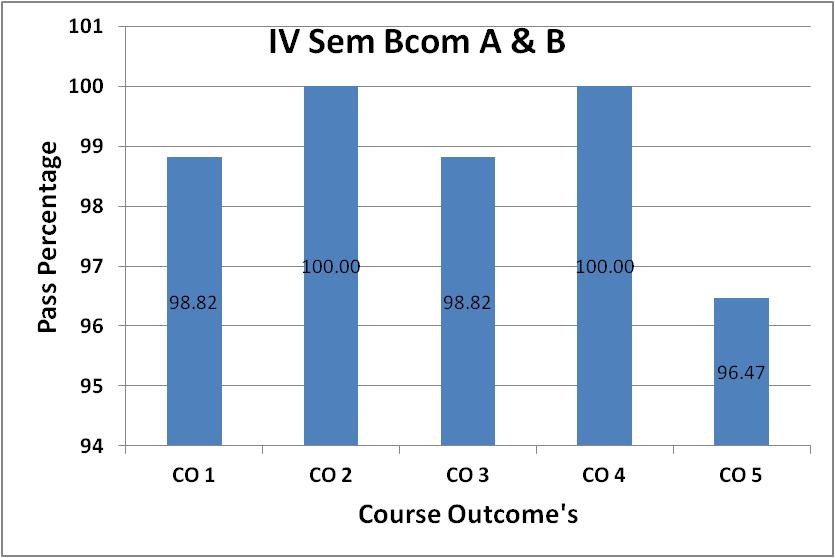 |
|
| Semester | कंप्यूटर साइंस विभाग - द्वितीय सत्र | |
| Course Outcome |
|
|
| Co - Attainment |  |
|
| Semester | कंप्यूटर साइंस विभाग - चतुर्थ सत्र | |
| Course Outcome |
|
|
| Co - Attainment |  |
|
| Semester | वाणिज्य विभाग - द्वितीय सत्र | |
| Course Outcome |
|
|
| Co - Attainment |  |
|
| Semester | वाणिज्य विभाग - चतुर्थ सत्र | |
| Course Outcome |
|
|
| Co - Attainment |  |
|
| Semester | प्रबंधन विभाग - द्वितीय सत्र | |
| Course Outcome |
|
|
| Co - Attainment |  |
|
| Semester | पप्रबंधन विभाग - चतुर्थ सत्र | |
| Course Outcome |
|
|
| Co - Attainment |  |
|
| Semester | विज्ञान विभाग - द्वितीय सत्र | |
| Course Outcome |
|
|
| Co - Attainment |  |
|
| Semester | विज्ञान विभाग - चतुर्थ सत्र | |
| Course Outcome |
|
|
| Co - Attainment |  |
|
| Semester | 2nd Semester | |
| Topic | Harsha Charitha & Grammar | |
| Course Outcome | Students will gain/learn
|
|
| Co - Attainment |  |
|
| Semester | 4th Semester | |
| Topic | Pratijna Yougandharayana & Pracheena Vanijyam | |
| Course Outcome | Students will gain/learn
|
|
| Co - Attainment |  |
|
| Semester | 2nd Semester | |
| Topic | Mitra gupta Charitam & Grammar | |
| Course Outcome | Students will gain/learn
|
|
| Co - Attainment |  |
|
| Semester | 4th Semester | |
| Topic | Duta Ghatotkacham & Smruthis | |
| Course Outcome | Students will gain/learn
|
|
| Co - Attainment |  |
|
| Semester | 2nd Semester | |
| Topic | Mahashwetha Vruttanta & Grammar | |
| Course Outcome | Students will gain/learn
|
|
| Co - Attainment |  |
|
| Semester | 4th Semester | |
| Topic | Charudattam & Scientific Litereture | |
| Course Outcome | Students will gain/learn
|
|
| Co - Attainment |  |
|
| Semester | 2nd Semester | |
| Topic | Bhoja Prabanda & Grammar | |
| Course Outcome | Students will gain/learn
|
|
| Co - Attainment |  |
|
| Semester | 4th Semester | |
| Topic | Karnabharam & Dramatic Literature | |
| Course Outcome | Students will gain/learn
|
|
| Co - Attainment |  |
|
| Semester | 2nd Semester | |
| Topic | Mathematics-II | |
| Course Outcome |
|
|
| Co - Attainment |  |
|
| Semester | 4th Semester | |
| Topic | Mathematics-IV | |
| Course Outcome |
|
|
| Co - Attainment |  |
|
| Semester | 6th Semester | |
| Topic | Mathematics-VII and Mathematics-VIII | |
| Course Outcome | Mathematics-VII
Mathematics-VIII
|
|
| Co - Attainment |  |
|
| Semester | 2nd Semester | |
| Topic | Numerical Analysis & Statistical Methods | |
| Course Outcome |
|
|
| Co - Attainment |  |
|
| Semester | 4th Semester | |
| Topic | Operation Research | |
| Course Outcome |
|
|
| Co - Attainment |  |
|
| Semester | 2nd Semester | |
| Topic | Quantitative Analysis for Business Decisions -I | |
| Course Outcome |
|
|
| Co - Attainment |  |
|
| Semester | 2nd Semester | |
| Topic | Quantitative Methods for Business -II | |
| Course Outcome |
|
|
| Co - Attainment |  |
|

 Apply Now
Apply Now